An African American scholar known for his work overseas who also served 50 years on his local board. A longtime leader in camping and million-dollar donor. A one-time program counselor who has gone on to spend 60 years (and counting) as a champion for multicultural leadership development. A war veteran who survived horrible wounds to become an author who was “as much a prophet as he was a scientist.”
These are but a few of the remarkable men and women enshrined here in the National YMCA Hall of Fame.
We invite you to spend time with them, online or on the campus of Springfield College. Imagine their impact on the Movement of their time and how their work has contributed to the YMCA of today. Consider too the path of their life’s journey as you travel along your own, and as you strive to carry on the social contributions – and the spirit – that define the YMCA.
MEET OUR HEROES. DISCOVER THEIR LEGACY.
- Search by Induction Year
- Search by Induction Year
-
- All Induction Years
- 1985
- 1986
- 1987
- 1988
- 1989
- 1990
- 1991
- 1992
- 1993
- 1994
- 1995
- 1996
- 1997
- 1998
- 1999
- 2000
- 2001
- 2002
- 2003
- 2004
- 2006
- 2007
- 2010
- 2013
- 2016
- 2019
- 2023
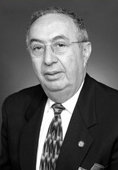
Born into a family that traces its roots in Jerusalem back 500 years, 12-year-old Rizek Abusharr was recruited to do yard work at the Jerusalem International YMCA (JIY), along with Palestinian classmates and an equal number of Jewish boys. Abusharr never left; he spent his entire career working at the JIY, becoming the first indigenous director general in 1998.
The hallmark of Abusharr’s work was his commitment to build tolerance among the different faiths in Jerusalem. He ensured that equal numbers of Jewish, Arab, and Christian participants were represented in programs, membership, and on volunteer boards. Under his leadership, the JIY was recognized as a haven of peaceful co-existence in a region where conflict and distrust are commonplace. His work earned the JIY a nomination for the Nobel Peace Prize. He was recognized with the Marthe Laube Prize for Tolerance and Democratic Values and an honorary doctor of Humanics degree from Springfield College.

2007 INDUCTEE Rizek Abusharr
Born into a family that traces its roots in Jerusalem back 500 years, 12-year-old Rizek Abusharr was recruited to do yard work at the Jerusalem International YMCA (JIY), along with Palestinian classmates and an equal number of Jewish boys. Abusharr never left; he spent his entire career working at the JIY, becoming the first indigenous director general in 1998.
The hallmark of Abusharr’s work was his commitment to build tolerance among the different faiths in Jerusalem. He ensured that equal numbers of Jewish, Arab, and Christian participants were represented in programs, membership, and on volunteer boards. Under his leadership, the JIY was recognized as a haven of peaceful co-existence in a region where conflict and distrust are commonplace. His work earned the JIY a nomination for the Nobel Peace Prize. He was recognized with the Marthe Laube Prize for Tolerance and Democratic Values and an honorary doctor of Humanics degree from Springfield College.
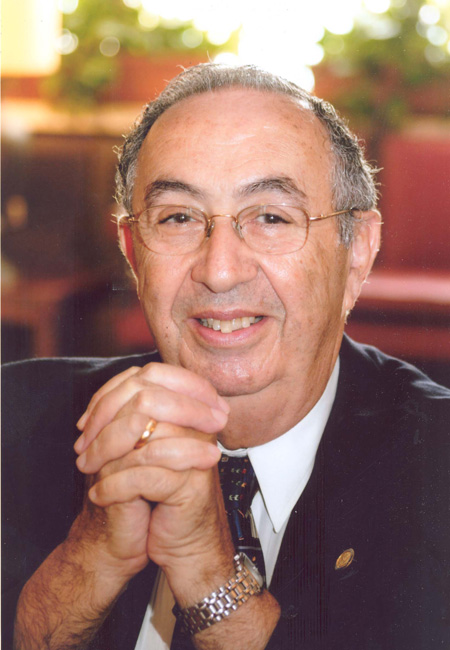
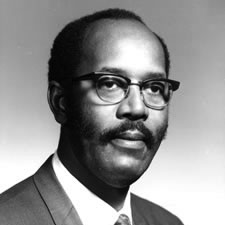
Jesse Alexander worked in large urban YMCAs in Louisville, Kentucky, Chicago, Illinois, Brooklyn, New York and Washington, DC and especially focused on running programs for black communities. He started off in the YMCA as an outreach worker with youth in 1959. In 1969, he joined the National council of YMCAs as an executive for racial minority concerns. In this position, he helped organize the National Conference of Black and Non-White Laymen and Staff which dealt with supporting efforts to overcome racism in the YMCA and ensuring that YMCA organizations existed where non-white communities wanted them, and served as its executive director and advisor. Later he served as the director of the National Council of YMCAs Human Rights Unit, which worked for the concerns of Women in the YMCA in addition to the YMCAs affirmative action program and plans for YMCAs in black communities. Much of Alexander’s work in the YMCA focused on the area of race relations within the movement where he provided leadership to YMCAs serving minority communities. He was inducted into the National Black Achievers Hall of Fame by the YMCA of the USA.
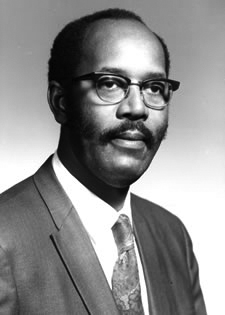
2016 INDUCTEE Jesse Alexander
YMCA of Greater New York
YMCA of Metropolitan Chicago
YMCA of Metropolitan Washington
National Council of YMCAs
National Conference of Black and Non-white Laymen and Staff
Jesse Alexander worked in large urban YMCAs in Louisville, Kentucky, Chicago, Illinois, Brooklyn, New York and Washington, DC and especially focused on running programs for black communities. He started off in the YMCA as an outreach worker with youth in 1959. In 1969, he joined the National council of YMCAs as an executive for racial minority concerns. In this position, he helped organize the National Conference of Black and Non-White Laymen and Staff which dealt with supporting efforts to overcome racism in the YMCA and ensuring that YMCA organizations existed where non-white communities wanted them, and served as its executive director and advisor. Later he served as the director of the National Council of YMCAs Human Rights Unit, which worked for the concerns of Women in the YMCA in addition to the YMCAs affirmative action program and plans for YMCAs in black communities. Much of Alexander’s work in the YMCA focused on the area of race relations within the movement where he provided leadership to YMCAs serving minority communities. He was inducted into the National Black Achievers Hall of Fame by the YMCA of the USA.
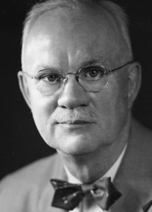
Paul William Alexander founded the International Association of Y’s Men’s Clubs. He conceived the idea of a YMCA volunteer service club in his home town of Toledo, Ohio, patterning the organization on what he considered the best features of Rotary and other service clubs. The idea spread quickly, and an International Association was formed in 1922, with Alexander named as the first international president. Alexander left a powerful legacy. Today, there are nearly 1,600 Y’s Men’s Clubs around the world, with more than 28,000 members. Alexander developed a program to support young people preparing for YMCA work. Known today as the Alexander Scholarship Fund, it provides financial support to YMCA students in the developing world. A judge, Alexander received an honorary doctor of humane letters degree from George Williams College in 1962. A memorial tribute was held by the National Board of the YMCA of the USA after Alexander’s death in 1967.

2013 INDUCTEE Paul W. Alexander (1888-1967)
Paul William Alexander founded the International Association of Y’s Men’s Clubs. He conceived the idea of a YMCA volunteer service club in his home town of Toledo, Ohio, patterning the organization on what he considered the best features of Rotary and other service clubs. The idea spread quickly, and an International Association was formed in 1922, with Alexander named as the first international president. Alexander left a powerful legacy. Today, there are nearly 1,600 Y’s Men’s Clubs around the world, with more than 28,000 members. Alexander developed a program to support young people preparing for YMCA work. Known today as the Alexander Scholarship Fund, it provides financial support to YMCA students in the developing world. A judge, Alexander received an honorary doctor of humane letters degree from George Williams College in 1962. A memorial tribute was held by the National Board of the YMCA of the USA after Alexander’s death in 1967.
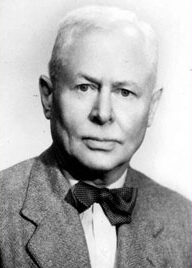
Paul Anderson spent his 48-year career working with the YMCA’s International Committee. He lived in Russia during the overthrow of the Czar and subsequent attempts to establish a democratic government.
He spent four years in Germany before moving to Paris in 1921, where he provided leadership to the Russian-language YMCA Press for 26 years. The Press published over 400 titles, including Russian Orthodox theologians, scholarly works related to Communism, and the original Russian text of three of Alexander Solzhenitzyn’s novels.
Anderson returned to New York in 1947 to serve as the associate executive secretary for World Service until his retirement in 1961. He was awarded the French Legion of Honor with Palms and the Officer of the British Empire in recognition of his WWII service in Europe.
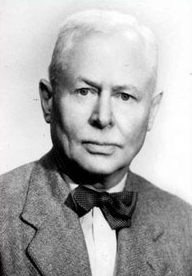
1994 INDUCTEE Paul B. Anderson
International Committee of the YMCA
Paul Anderson spent his 48-year career working with the YMCA’s International Committee. He lived in Russia during the overthrow of the Czar and subsequent attempts to establish a democratic government.
He spent four years in Germany before moving to Paris in 1921, where he provided leadership to the Russian-language YMCA Press for 26 years. The Press published over 400 titles, including Russian Orthodox theologians, scholarly works related to Communism, and the original Russian text of three of Alexander Solzhenitzyn’s novels.
Anderson returned to New York in 1947 to serve as the associate executive secretary for World Service until his retirement in 1961. He was awarded the French Legion of Honor with Palms and the Officer of the British Empire in recognition of his WWII service in Europe.
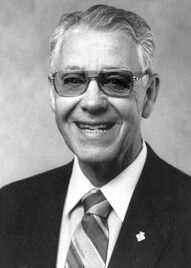
Earl Armstrong began his 52-year affiliation with the YMCA in 1940 as the Boys’ Work secretary in Louisville (Ky.). He established and ran Camp Piomingo for seven years and later became the association-wide program–and then associate– general secretary. In 1953, he moved to the Central Atlantic staff as associate secretary and camp director, eventually assuming regional portfolios for personnel and camping.
In 1960, Armstrong was awarded the first John R. Mott Fellowship, allowing him to pursue a year of full-time graduate studies at Columbia University. He served as the associate secretary for the Personnel Services Division of the National Council of YMCAs, and then moved to Charlotte as the executive director of the Interstate YMCA of the Carolinas.
He remained in a consulting role in the southeast until his retirement in 1982. Upon his retirement, the Armstrong Scholarship was established to enable YMCA senior directors to pursue graduate study. In retirement, Armstrong served as a volunteer personnel specialist for the YMCAs. He was the architect of the YMCA Salary Administration Plan, and was responsible for the implementation of the salary program through most of the YMCAs in the United States.
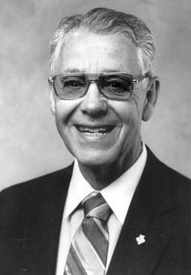
1995 INDUCTEE Earl P. Armstrong (1916-2009)
YMCA of Greater Louisville
National Council of YMCAs
Central Atlantic Area YMCA
Earl Armstrong began his 52-year affiliation with the YMCA in 1940 as the Boys’ Work secretary in Louisville (Ky.). He established and ran Camp Piomingo for seven years and later became the association-wide program–and then associate– general secretary. In 1953, he moved to the Central Atlantic staff as associate secretary and camp director, eventually assuming regional portfolios for personnel and camping.
In 1960, Armstrong was awarded the first John R. Mott Fellowship, allowing him to pursue a year of full-time graduate studies at Columbia University. He served as the associate secretary for the Personnel Services Division of the National Council of YMCAs, and then moved to Charlotte as the executive director of the Interstate YMCA of the Carolinas.
He remained in a consulting role in the southeast until his retirement in 1982. Upon his retirement, the Armstrong Scholarship was established to enable YMCA senior directors to pursue graduate study. In retirement, Armstrong served as a volunteer personnel specialist for the YMCAs. He was the architect of the YMCA Salary Administration Plan, and was responsible for the implementation of the salary program through most of the YMCAs in the United States.
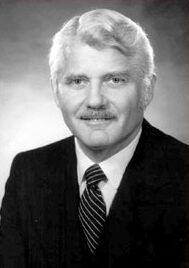
Lloyd Arnold was a youth member of the York (Pa.) YMCA. He served in the U.S. Army from 1944 to 1946, where he worked with amputees in the Medical Corps. After his military service, he received his undergraduate degree from Springfield College. He later earned his doctorate from Pennsylvania State University.
Arnold’s first full time YMCA position was as physical education director at the Canton (Ohio) YMCA. He served in the Rochester (N.Y.) association, prior to joining the Central Atlantic Area staff as the associate executive for health and physical education. In 1968, he was named on the national staff as the national director for health, physical education, and sports.
Under his leadership, there was significant growth in the complexity and breadth in the health and wellness field. Arnold emphasized the individual’s responsibility for their own health as a central philosophy in YMCA programs. He redeveloped the YMCA Aquatic Program and introduced a comprehensive structure for YMCA youth basketball. When he retired in 1981, he was recognized as one of the 10 people in the country chosen for the Healthy American Fitness Leader Award.
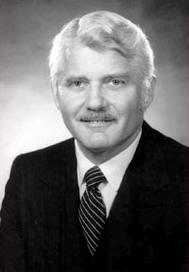
2002 INDUCTEE Lloyd C. Arnold
YMCA of Greater Rochester
York and York County YMCA
Central Atlantic Area YMCA
Lloyd Arnold was a youth member of the York (Pa.) YMCA. He served in the U.S. Army from 1944 to 1946, where he worked with amputees in the Medical Corps. After his military service, he received his undergraduate degree from Springfield College. He later earned his doctorate from Pennsylvania State University.
Arnold’s first full time YMCA position was as physical education director at the Canton (Ohio) YMCA. He served in the Rochester (N.Y.) association, prior to joining the Central Atlantic Area staff as the associate executive for health and physical education. In 1968, he was named on the national staff as the national director for health, physical education, and sports.
Under his leadership, there was significant growth in the complexity and breadth in the health and wellness field. Arnold emphasized the individual’s responsibility for their own health as a central philosophy in YMCA programs. He redeveloped the YMCA Aquatic Program and introduced a comprehensive structure for YMCA youth basketball. When he retired in 1981, he was recognized as one of the 10 people in the country chosen for the Healthy American Fitness Leader Award.
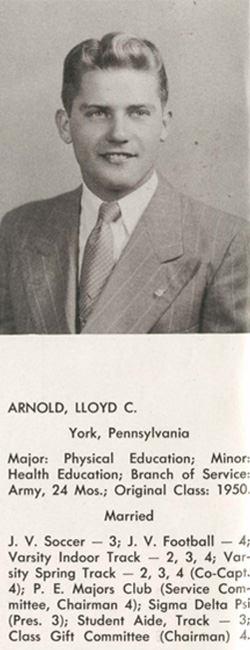
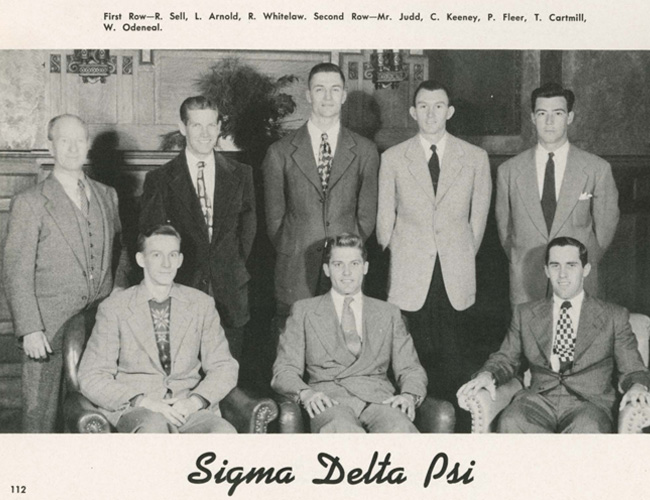
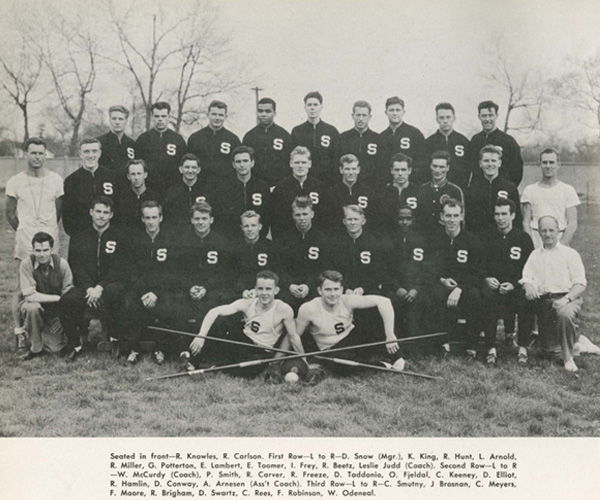
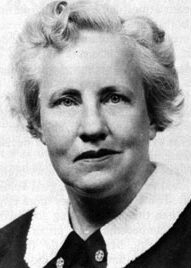
When Wilhelmina Aveling, the first woman to serve on the Metropolitan staff of the Chicago YMCA, began her 28-year career, the involvement of women and girls in the YMCA was minimal.
With an undergraduate degree from Wheaton College and a graduate degree from Northwestern University in personnel and guidance, she recruited qualified females as staff for local branches and provided training for a variety of programs.
Aveling was responsible for the development of the family YMCA concept, a model that was replicated across the United States and Canada. Her weight loss programs gained worldwide recognition and her Danish Gymnastics program led to the development of modern aerobic dance.
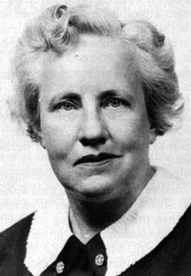
1987 INDUCTEE Wilhelmina M. Aveling
When Wilhelmina Aveling, the first woman to serve on the Metropolitan staff of the Chicago YMCA, began her 28-year career, the involvement of women and girls in the YMCA was minimal.
With an undergraduate degree from Wheaton College and a graduate degree from Northwestern University in personnel and guidance, she recruited qualified females as staff for local branches and provided training for a variety of programs.
Aveling was responsible for the development of the family YMCA concept, a model that was replicated across the United States and Canada. Her weight loss programs gained worldwide recognition and her Danish Gymnastics program led to the development of modern aerobic dance.
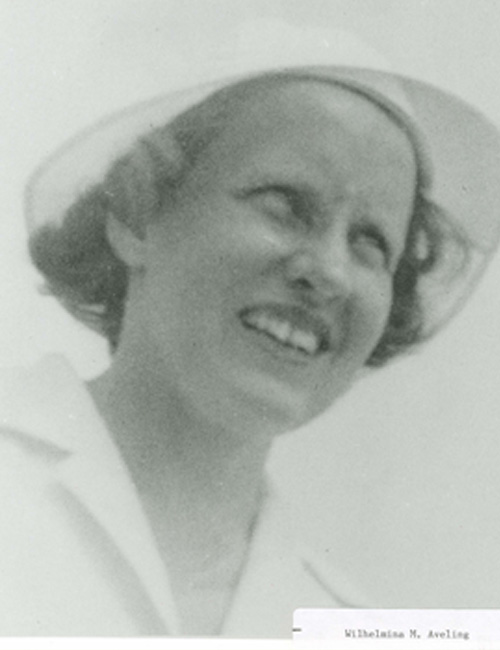
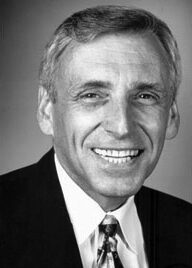
Rich Bailey began his association as a youth member of the Toronto Central YMCA. After graduating from George Williams College, he went to the YMCA of Edmonton, Alberta, first as the director of camping and youth, and later as director of programs. He became the general secretary of Lethbridge YMCA in Alberta.
Five years later, he joined the staff of YMCA Canada as director of personnel services and then executive director of the Canadian Urban Group. He served as chief executive officer in Edmonton in 1989, and seven years later, returned to YMCA Canada as its chief executive officer. He was appointed president and chief executive officer of the YMCA of Greater Toronto in 1991.
Bailey’s association embraced all elements of a YMCA career: camping, programs, and serving as a general secretary, a national executive director, and chief executive officer of Canada’s largest YMCA. His innovations and accomplishments include employment programs, camping and outdoor education, international programs, creating new YMCAs in smaller cities, establishing youth intervention and prevention programs, and the development of a unique formal education high school program. Bailey retired in 2003.
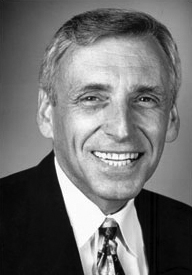
2004 INDUCTEE Richard R. Bailey
YMCA of Canada
YMCA of Edmonton AB
Lethbridge YMCA, AB
YMCA of Greater Toronto
Rich Bailey began his association as a youth member of the Toronto Central YMCA. After graduating from George Williams College, he went to the YMCA of Edmonton, Alberta, first as the director of camping and youth, and later as director of programs. He became the general secretary of Lethbridge YMCA in Alberta.
Five years later, he joined the staff of YMCA Canada as director of personnel services and then executive director of the Canadian Urban Group. He served as chief executive officer in Edmonton in 1989, and seven years later, returned to YMCA Canada as its chief executive officer. He was appointed president and chief executive officer of the YMCA of Greater Toronto in 1991.
Bailey’s association embraced all elements of a YMCA career: camping, programs, and serving as a general secretary, a national executive director, and chief executive officer of Canada’s largest YMCA. His innovations and accomplishments include employment programs, camping and outdoor education, international programs, creating new YMCAs in smaller cities, establishing youth intervention and prevention programs, and the development of a unique formal education high school program. Bailey retired in 2003.
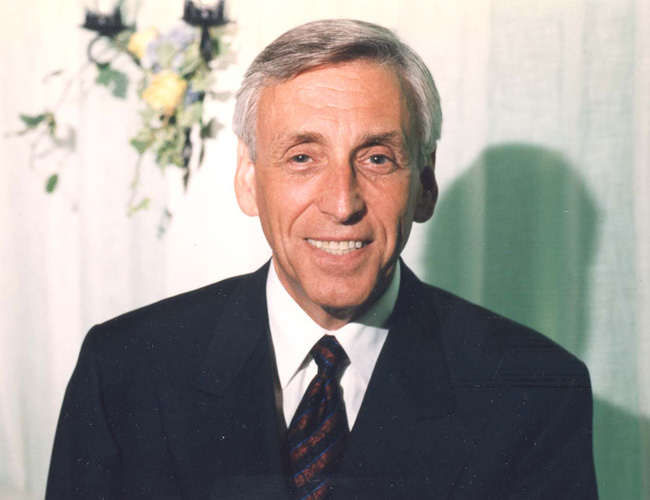
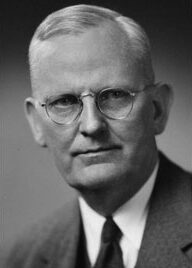
Eugene Barnett served as a secretary for the University of North Carolina Student YMCA while attending graduate school from 1908-10. For the next 27 years, he worked in various YMCA positions in China, where the YMCA flourished until the Communist Revolution.
Barnett served as general secretary in Shanghai, and in 1925, became the senior secretary for the International Committee of the YMCA in China. He served concurrently as associate general secretary of the China National Committee and was also a member of the National Christian Council. Barnett returned to the United States in 1937 to become the executive secretary of the International Board of the YMCA. He helped to eliminate the significant debt that had developed and managed the World Services program.
In 1941, he was named the general secretary of the National Council of YMCAs where he served until his retirement in 1953. During WWII, Barnett gave leadership to the YMCA’s efforts on the home and fighting fronts. The national organization provided aid to soldiers, prisoners of war, and local YMCAs.
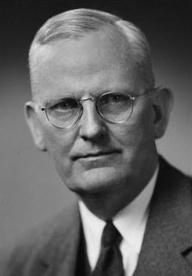
2002 INDUCTEE Eugene E. Barnett (1888-1970)
National Council of YMCAs
International Committee of the YMCA
University of North Carolina Student YMCA
International Board of the YMCA
Eugene Barnett served as a secretary for the University of North Carolina Student YMCA while attending graduate school from 1908-10. For the next 27 years, he worked in various YMCA positions in China, where the YMCA flourished until the Communist Revolution.
Barnett served as general secretary in Shanghai, and in 1925, became the senior secretary for the International Committee of the YMCA in China. He served concurrently as associate general secretary of the China National Committee and was also a member of the National Christian Council. Barnett returned to the United States in 1937 to become the executive secretary of the International Board of the YMCA. He helped to eliminate the significant debt that had developed and managed the World Services program.
In 1941, he was named the general secretary of the National Council of YMCAs where he served until his retirement in 1953. During WWII, Barnett gave leadership to the YMCA’s efforts on the home and fighting fronts. The national organization provided aid to soldiers, prisoners of war, and local YMCAs.
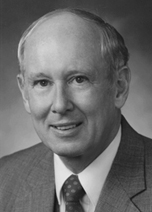
William M. Barnhardt is one of two volunteers being inducted into the class of 2013, the first official recognition of volunteers within the history of the YMCA Hall of Fame since John D. Rockefeller, Jr. whose $1,000,000 contribution helped capitalize the YMCA Retirement Fund. A champion of the Y movement, William Barnhardt’s legacy of volunteer service spans more than 50 years and stands as a shining example of servant leadership.
Barnhardt’s service on the board of directors and board of trustees for the YMCA of Greater Charlotte dates back to the 1960s. Understanding that the Y’s mission is best served through passionate people, Barnhardt committed himself to the recruitment and development of staff and volunteer leadership. As chairman of the Executive Search Committee, Barnhardt recruited Harry H. Brace, posthumously inducted into the YMCA Hall of Fame, to serve as president of the association in 1983. As a result of that appointment and his collaboration with executive leadership throughout the years, the Y movement surged in Charlotte, and remains one of the nation’s most successful YMCAs today. Barnhardt is admired by volunteers and staff who have patterned their own service after his example.
Barnhardt’s vision to revolutionize the YMCA Blue Ridge Assembly is one of his most enduring contributions to advancing the Y movement. Built in 1906 as a Christian conference center, the facility was beleaguered by a 30-year financial crisis and operated only during the summer. Barnhardt immediately recognized the assembly’s historical significance and its potential to serve new Y members, families, and guests across the southeast region. In 1968, Barnhardt spearheaded a $5,000,000 capital campaign to fund the facility’s expansion. By 1970, as a result of his pioneering efforts, the assembly was transformed into a robust, debt-free, year-round enterprise. The 1,200-acre facility now serves more than 30,000 guests annually and is an important resource to YMCAs and organizations throughout the southeastern United States and beyond.
Barnhardt has built a heritage of giving, volunteerism and advocacy for the Y within his family, heralding new generations of servant leaders. Simply put, he defines the Y movement. In the great tradition of George Williams, Barnhardt has the ability to recognize a societal need and fully commit himself, then inspire others, to meet it. He welcomes those not affiliated with the YMCA to join the movement, and encourages current supporters and members to deepen their commitment. His service merits historic record and his induction underscores the sacred partnership between volunteer and staff members to serve the mission.

2013 INDUCTEE William M. Barnhardt
YMCA Blue Ridge Assembly
William M. Barnhardt is one of two volunteers being inducted into the class of 2013, the first official recognition of volunteers within the history of the YMCA Hall of Fame since John D. Rockefeller, Jr. whose $1,000,000 contribution helped capitalize the YMCA Retirement Fund. A champion of the Y movement, William Barnhardt’s legacy of volunteer service spans more than 50 years and stands as a shining example of servant leadership.
Barnhardt’s service on the board of directors and board of trustees for the YMCA of Greater Charlotte dates back to the 1960s. Understanding that the Y’s mission is best served through passionate people, Barnhardt committed himself to the recruitment and development of staff and volunteer leadership. As chairman of the Executive Search Committee, Barnhardt recruited Harry H. Brace, posthumously inducted into the YMCA Hall of Fame, to serve as president of the association in 1983. As a result of that appointment and his collaboration with executive leadership throughout the years, the Y movement surged in Charlotte, and remains one of the nation’s most successful YMCAs today. Barnhardt is admired by volunteers and staff who have patterned their own service after his example.
Barnhardt’s vision to revolutionize the YMCA Blue Ridge Assembly is one of his most enduring contributions to advancing the Y movement. Built in 1906 as a Christian conference center, the facility was beleaguered by a 30-year financial crisis and operated only during the summer. Barnhardt immediately recognized the assembly’s historical significance and its potential to serve new Y members, families, and guests across the southeast region. In 1968, Barnhardt spearheaded a $5,000,000 capital campaign to fund the facility’s expansion. By 1970, as a result of his pioneering efforts, the assembly was transformed into a robust, debt-free, year-round enterprise. The 1,200-acre facility now serves more than 30,000 guests annually and is an important resource to YMCAs and organizations throughout the southeastern United States and beyond.
Barnhardt has built a heritage of giving, volunteerism and advocacy for the Y within his family, heralding new generations of servant leaders. Simply put, he defines the Y movement. In the great tradition of George Williams, Barnhardt has the ability to recognize a societal need and fully commit himself, then inspire others, to meet it. He welcomes those not affiliated with the YMCA to join the movement, and encourages current supporters and members to deepen their commitment. His service merits historic record and his induction underscores the sacred partnership between volunteer and staff members to serve the mission.
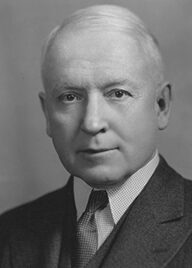
Ernest Best joined the Ontario YMCA as a youth member in the early 1900s. He received his bachelor’s degree from the International YMCA College (now Springfield College) in 1911, and then took on roles at both the West Side Branch YMCA in New York City and as a faculty member at Springfield College.
He served as a senior officer in the Canadian YMCA War Services in France during WWI. After the war, he returned to the West Side YMCA and enrolled in the doctoral program at New York University. He received an appointment to teach theology at McGill University in Montreal, Canada, and helped found the Sir George Williams University in Montreal in 1928. Best set up courses to train YMCA staff and served as the director for the Far East International Survey of YMCAs and YWCAs.
Returning from overseas, he was appointed general secretary of the National Council of the YMCAs of Canada. In 1937, Best was inaugurated as the president of Springfield College. He emphasized the traditions of Springfield College including liberal interpretation of Christianity; the education of the whole person; a continued connection with the YMCA; professional training for youth services staff; international student exchange; racial and religious tolerance; and a continuing emphasis on health, physical education, and recreation.
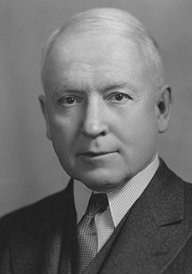
1996 INDUCTEE Ernest M. Best (d. 1963)
West Side Branch YMCA
Far East International Survey of YMCAs and YWCAs
National Council of the YMCAs of Canada
Ernest Best joined the Ontario YMCA as a youth member in the early 1900s. He received his bachelor’s degree from the International YMCA College (now Springfield College) in 1911, and then took on roles at both the West Side Branch YMCA in New York City and as a faculty member at Springfield College.
He served as a senior officer in the Canadian YMCA War Services in France during WWI. After the war, he returned to the West Side YMCA and enrolled in the doctoral program at New York University. He received an appointment to teach theology at McGill University in Montreal, Canada, and helped found the Sir George Williams University in Montreal in 1928. Best set up courses to train YMCA staff and served as the director for the Far East International Survey of YMCAs and YWCAs.
Returning from overseas, he was appointed general secretary of the National Council of the YMCAs of Canada. In 1937, Best was inaugurated as the president of Springfield College. He emphasized the traditions of Springfield College including liberal interpretation of Christianity; the education of the whole person; a continued connection with the YMCA; professional training for youth services staff; international student exchange; racial and religious tolerance; and a continuing emphasis on health, physical education, and recreation.
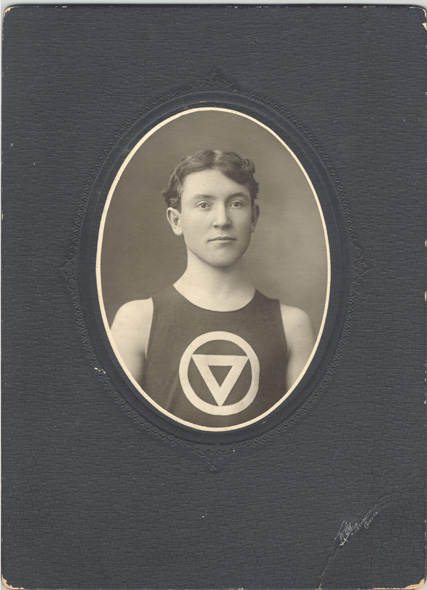
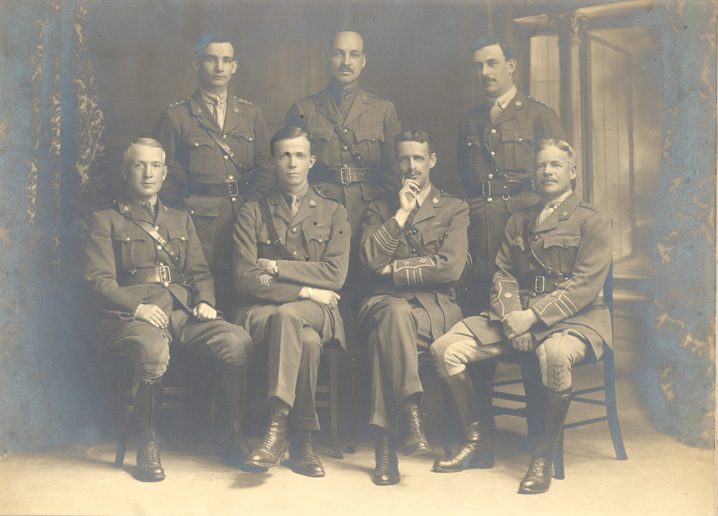
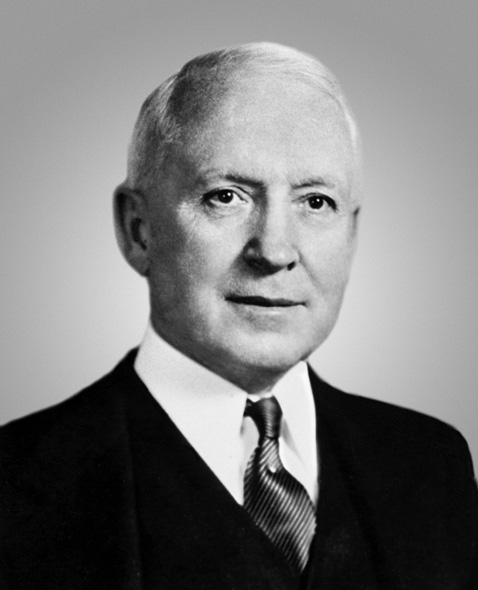
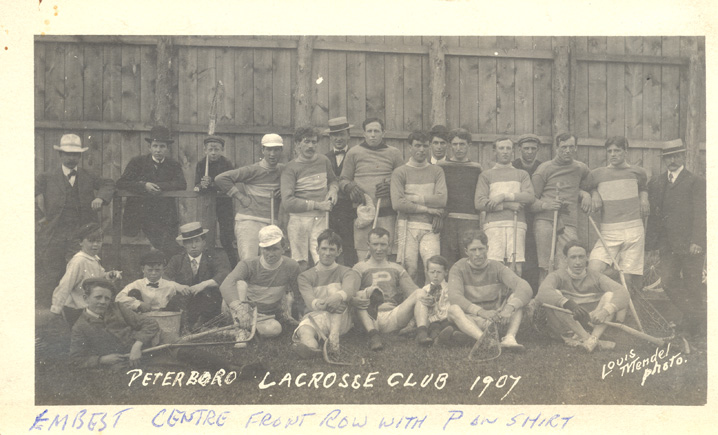
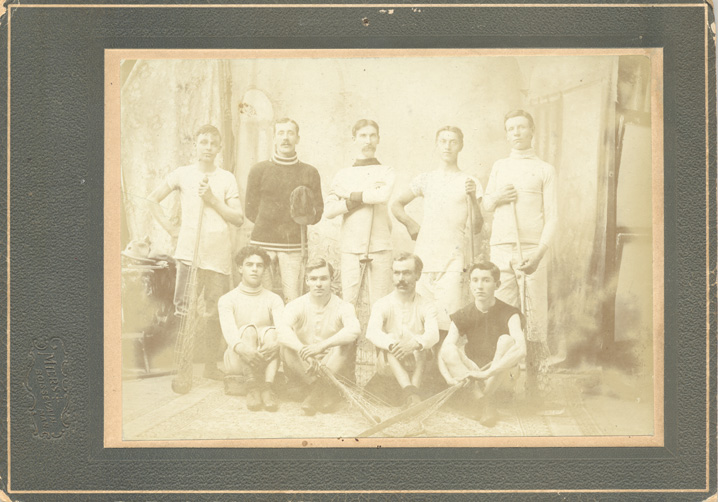
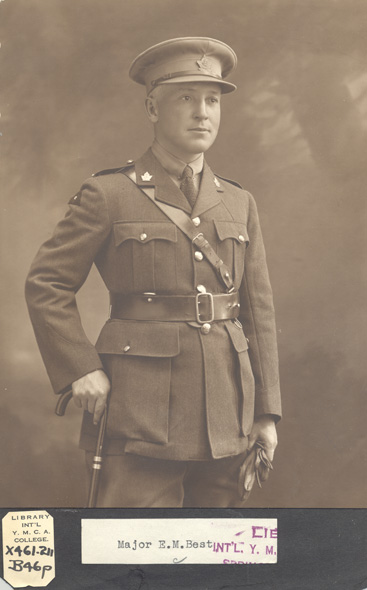
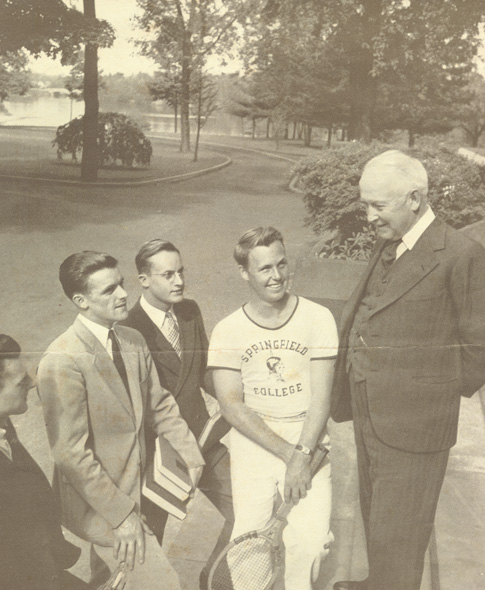
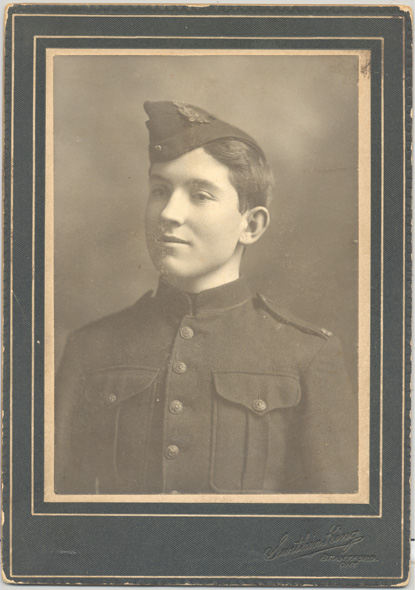
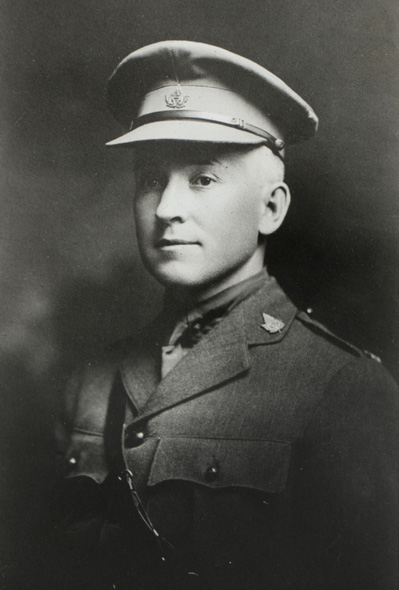
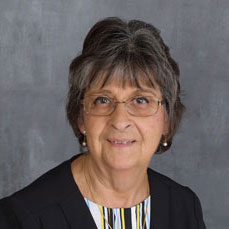
From her service as office manager for the YMCA of San Diego starting in 1972 to finishing her Y career there 30 years later as vice president of Human Resources, Bea Betterton-Halk pioneered modern-day human resources in the Y movement. Betterton-Halk was a vocal advocate for creating strong networks of human resource leaders across the country. Specifically, she paved the way for all Ys from operating with essentially a clerical human resources position to a more strategic approach that featured best practices to meet organizational objectives. She was the driving force behind the formation of the largest human resource nationwide network: the North American Urban Group Human Resource Officers. She was known for many selfless acts, including using her vacation and personal time and investing her own resources to introduce others to training opportunities and scholarships. Betterton-Halk immigrated from Tijuana, Mexico when she was eight and endured some personal hardships, including the passing of her father when she was a teen, all of which strengthened her resolve to be a leader and advocate for multicultural awareness in the Y Movement. Additionally, she attained an M.S. in Human Service Administration and Organizational Development from Springfield College while working two jobs and raising five kids and was a presenter at graduation. Upon her retirement in 2002, the North American Urban Group Human Resource Officers instituted a perpetual award entitled the Bea Betterton-Halk Human Resources Career Excellence award, which honors retiring H.R. officers who meet criteria.
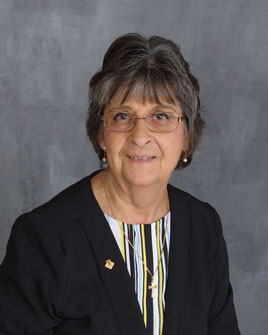
2019 INDUCTEE Bea Betterton-Halk
From her service as office manager for the YMCA of San Diego starting in 1972 to finishing her Y career there 30 years later as vice president of Human Resources, Bea Betterton-Halk pioneered modern-day human resources in the Y movement. Betterton-Halk was a vocal advocate for creating strong networks of human resource leaders across the country. Specifically, she paved the way for all Ys from operating with essentially a clerical human resources position to a more strategic approach that featured best practices to meet organizational objectives. She was the driving force behind the formation of the largest human resource nationwide network: the North American Urban Group Human Resource Officers. She was known for many selfless acts, including using her vacation and personal time and investing her own resources to introduce others to training opportunities and scholarships. Betterton-Halk immigrated from Tijuana, Mexico when she was eight and endured some personal hardships, including the passing of her father when she was a teen, all of which strengthened her resolve to be a leader and advocate for multicultural awareness in the Y Movement. Additionally, she attained an M.S. in Human Service Administration and Organizational Development from Springfield College while working two jobs and raising five kids and was a presenter at graduation. Upon her retirement in 2002, the North American Urban Group Human Resource Officers instituted a perpetual award entitled the Bea Betterton-Halk Human Resources Career Excellence award, which honors retiring H.R. officers who meet criteria.
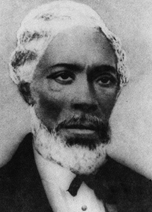
Anthony Bowen (1805-1872), was a former slave who organized the first African-American YMCA in 1853. That was the Twelfth Street YMCA in Washington, D.C., later named YMCA Anthony Bowen and designated a National Historic Landmark. Inspired by his friend William Chauncey Langdon, founder of the YMCA of the City of Washington, Bowen was committed to the advancement of African-Americans in social, educational, and religious respects. Bowen’s YMCA grew out of his efforts to organize the African-American community of Washington D.C. In 1839, he sponsored “The Colored Peoples Meeting House,” a meeting space for the free African-Americans of the city. In 1847 he opened a Sunday evening school for free men where they studied reading, writing, and the bible. For nearly the first 40 years after its founding in 1853, the “Colored” YMCA existed independent of the white YMCA in Washington, and their activities were restricted to meetings in rented space, donated rooms, and members’ living rooms. With determination and dedication, YMCA Anthony Bowen was reorganized as a branch of the YMCA of the City of Washington in 1905. Bowen, the first African-American employee of the U.S. Patent Office, was also instrumental in founding St. Paul AME Church.

2013 INDUCTEE Anthony Bowen (1805-1872)
Anthony Bowen (1805-1872), was a former slave who organized the first African-American YMCA in 1853. That was the Twelfth Street YMCA in Washington, D.C., later named YMCA Anthony Bowen and designated a National Historic Landmark. Inspired by his friend William Chauncey Langdon, founder of the YMCA of the City of Washington, Bowen was committed to the advancement of African-Americans in social, educational, and religious respects. Bowen’s YMCA grew out of his efforts to organize the African-American community of Washington D.C. In 1839, he sponsored “The Colored Peoples Meeting House,” a meeting space for the free African-Americans of the city. In 1847 he opened a Sunday evening school for free men where they studied reading, writing, and the bible. For nearly the first 40 years after its founding in 1853, the “Colored” YMCA existed independent of the white YMCA in Washington, and their activities were restricted to meetings in rented space, donated rooms, and members’ living rooms. With determination and dedication, YMCA Anthony Bowen was reorganized as a branch of the YMCA of the City of Washington in 1905. Bowen, the first African-American employee of the U.S. Patent Office, was also instrumental in founding St. Paul AME Church.
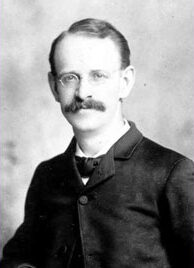
In the mid-1800s, Jacob Bowne helped develop a YMCA in his hometown of Glen Cove, N.Y. He became a pioneer educator in the field of professional training for the secretaryship.
In 1879, while serving as the secretary of the Newburg (N.Y.) YMCA, he launched the “Ten-day Fellowship Meetings,” the first steps in training prospective YMCA secretaries. In 1880, he founded the Secretarial Insurance Alliance and was instrumental in promoting the YMCA Retirement Fund. Three years later, he joined the International Committee, specializing in training leaders for the expanding YMCA Movement. In 1885, he was called to lead the Department of Young Men’s Christian Association Work at the School for Christian Workers (now Springfield College).
He spent the rest of his life at Springfield College, devoted to educating YMCA staff and maintaining an extensive collection of YMCA materials. He is considered the YMCA’s first archivist and the “father of professional YMCA training.”
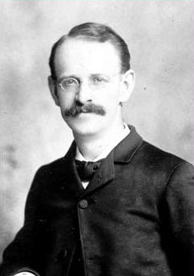
1999 INDUCTEE Jacob T. Bowne (1847-1925)
YMCA of Newburgh
International Committee of the YMCA
In the mid-1800s, Jacob Bowne helped develop a YMCA in his hometown of Glen Cove, N.Y. He became a pioneer educator in the field of professional training for the secretaryship.
In 1879, while serving as the secretary of the Newburg (N.Y.) YMCA, he launched the “Ten-day Fellowship Meetings,” the first steps in training prospective YMCA secretaries. In 1880, he founded the Secretarial Insurance Alliance and was instrumental in promoting the YMCA Retirement Fund. Three years later, he joined the International Committee, specializing in training leaders for the expanding YMCA Movement. In 1885, he was called to lead the Department of Young Men’s Christian Association Work at the School for Christian Workers (now Springfield College).
He spent the rest of his life at Springfield College, devoted to educating YMCA staff and maintaining an extensive collection of YMCA materials. He is considered the YMCA’s first archivist and the “father of professional YMCA training.”
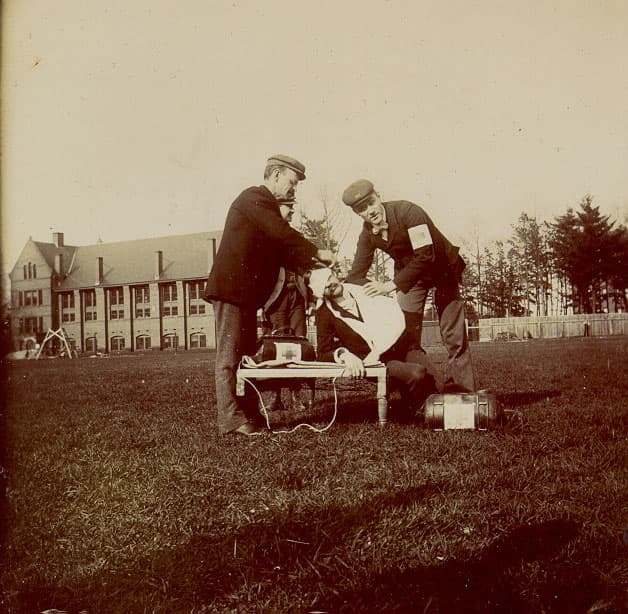
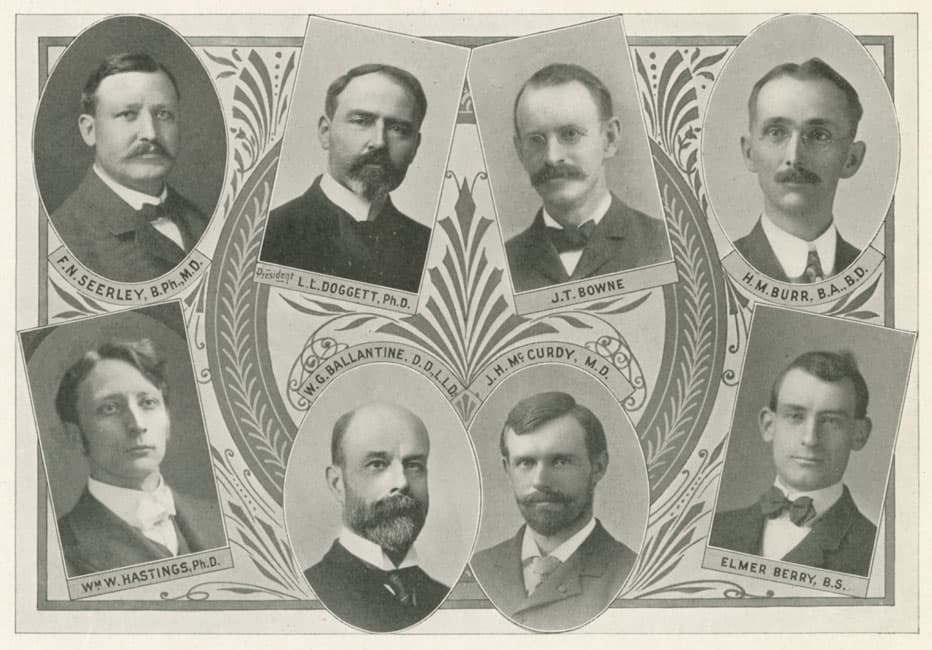
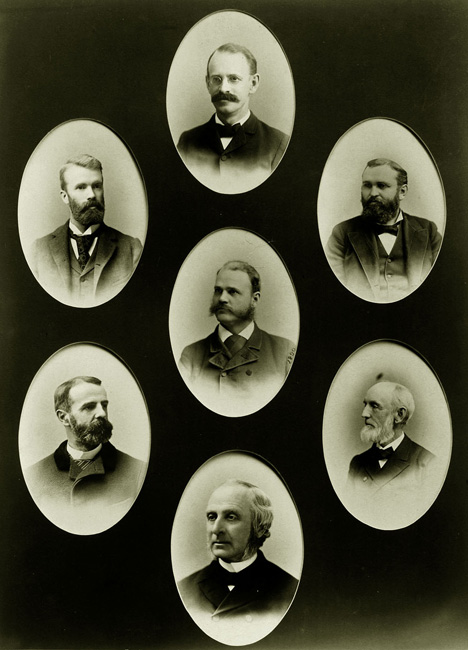
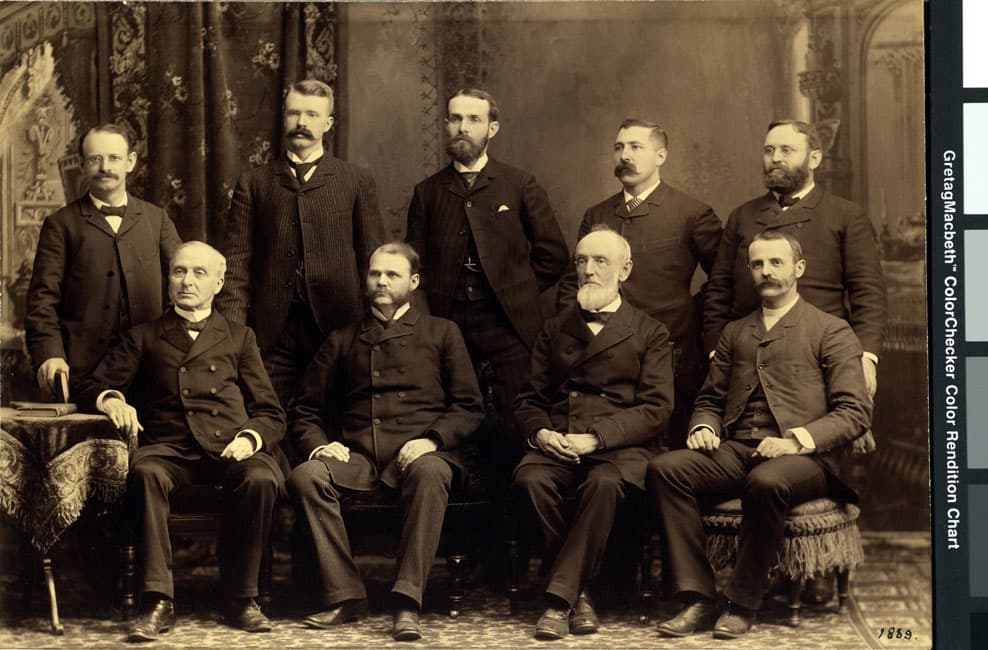
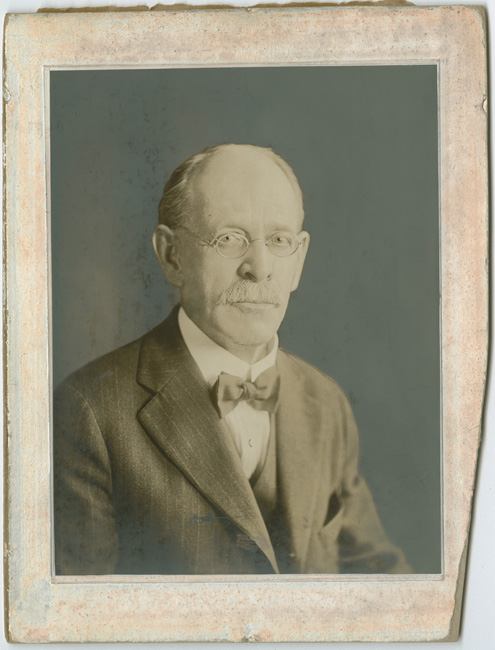
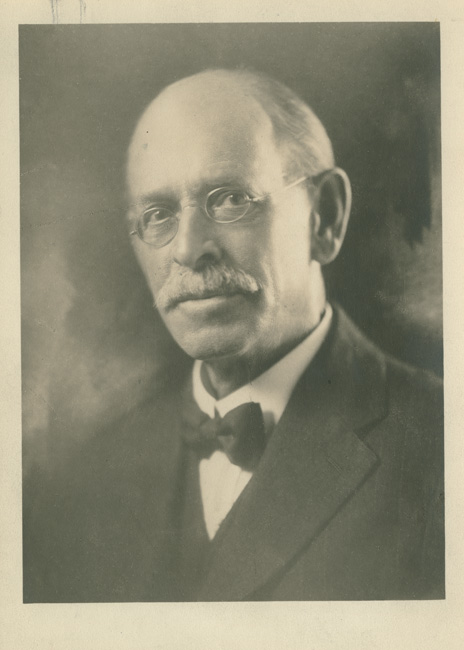
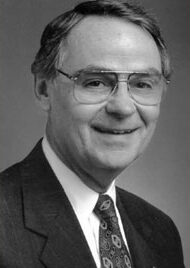
Harry Brace followed in the footsteps of his father Steve, also a YMCA professional, in his career with the Y. While attending the University of Nebraska, Brace spent his summers working at the Seattle (Wash.) YMCA day camp. After completing his graduate studies at George Williams College, he was appointed the community program secretary in the Minneapolis (Minn.) association.
He moved to the Grand Rapids (Mich.) YMCA as the assistant executive secretary and then general director. In 1983, Brace was appointed president of the YMCA of Greater Charlotte (N.C.). Under his leadership, Charlotte became one of the country’s most successful YMCAs. Membership grew from 46,000 in 1983 to more than 106,000 in just six years; and the budget grew from $5 million to $40 million.
He had a quiet, yet effective leadership style and was skilled at assembling strong teams who emphasized the Christian purpose of the YMCA, while also supporting inclusiveness. Brace died unexpectedly after 16 years in Charlotte.
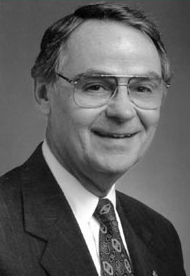
2004 INDUCTEE Harry H. Brace (1937-1999)
YMCA of Greater Grand Rapids
YMCA of Greater Washington
YMCA of Metropolitan Minneapolis
Harry Brace followed in the footsteps of his father Steve, also a YMCA professional, in his career with the Y. While attending the University of Nebraska, Brace spent his summers working at the Seattle (Wash.) YMCA day camp. After completing his graduate studies at George Williams College, he was appointed the community program secretary in the Minneapolis (Minn.) association.
He moved to the Grand Rapids (Mich.) YMCA as the assistant executive secretary and then general director. In 1983, Brace was appointed president of the YMCA of Greater Charlotte (N.C.). Under his leadership, Charlotte became one of the country’s most successful YMCAs. Membership grew from 46,000 in 1983 to more than 106,000 in just six years; and the budget grew from $5 million to $40 million.
He had a quiet, yet effective leadership style and was skilled at assembling strong teams who emphasized the Christian purpose of the YMCA, while also supporting inclusiveness. Brace died unexpectedly after 16 years in Charlotte.
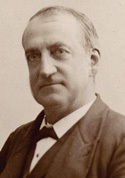
The first step toward creating a centralized agency to coordinate the work of YMCAs was called the Executive Committee, established in 1864. The second chairman of that committee was a lawyer named Cephas Brainerd, who served from 1867-1892. In this unpaid position, Brainerd exerted enormous influence over the direction of the YMCA movement, advocating for an evangelical emphasis and an inclusive stance on race. Initially hesitant to commit to developing overseas YMCAs, Brainerd eventually became a forceful advocate for foreign work. Under his leadership, a system of traveling national secretaries was instituted to work with local associations, an early version of later field systems in the YMCA of the USA.
Although he was a man with conservative views, Brainerd advised against setting up racially separate divisions in the YMCA and foresaw an arrangement where whites and blacks would participate together in YMCA state conventions during a period when the YMCA was divided over how to serve African-Americans. As an attorney, he successfully represented a group of African-Americans whose property had been damaged in rioting. He is regarded as a major force in the first generation of truly national YMCA leaders.

2010 INDUCTEE Cephas Brainerd (1831-1910)
The first step toward creating a centralized agency to coordinate the work of YMCAs was called the Executive Committee, established in 1864. The second chairman of that committee was a lawyer named Cephas Brainerd, who served from 1867-1892. In this unpaid position, Brainerd exerted enormous influence over the direction of the YMCA movement, advocating for an evangelical emphasis and an inclusive stance on race. Initially hesitant to commit to developing overseas YMCAs, Brainerd eventually became a forceful advocate for foreign work. Under his leadership, a system of traveling national secretaries was instituted to work with local associations, an early version of later field systems in the YMCA of the USA.
Although he was a man with conservative views, Brainerd advised against setting up racially separate divisions in the YMCA and foresaw an arrangement where whites and blacks would participate together in YMCA state conventions during a period when the YMCA was divided over how to serve African-Americans. As an attorney, he successfully represented a group of African-Americans whose property had been damaged in rioting. He is regarded as a major force in the first generation of truly national YMCA leaders.
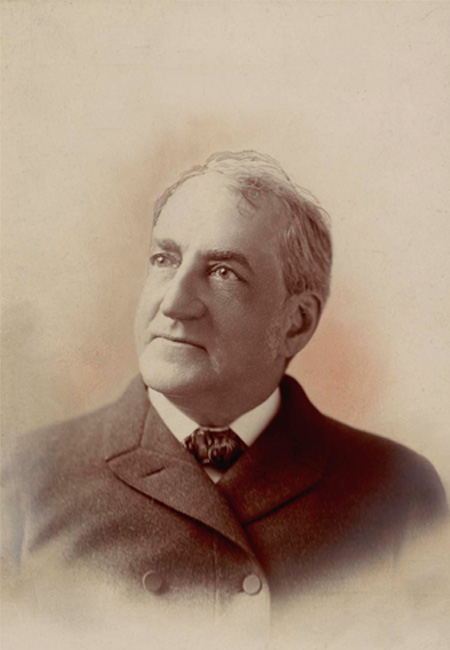
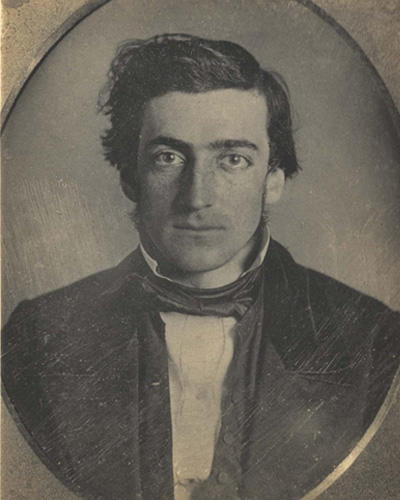
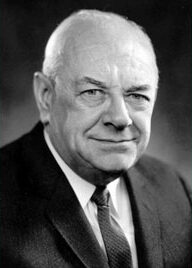
Earl Brandenburg began his lifetime affiliation with the YMCA as a teen member of the La Crosse (Wis.) YMCA. As a 20-year-old, he was employed as the Boys’ Work secretary in Wausau, Wisconsin. He was involved in YMCA War Work in San Antonio (Texas) and Michigan before enlisting in the Navy.
After the war, he served as the town and country secretary for the Wisconsin State Committee, and later, as the Chicago-based regional Boys’ Work secretary on the national staff. In 1927, Brandenburg was named regional executive in Chicago and organized the system of area councils to coordinate the work of National Council and state committees. Six years later, as the associate general secretary of the National Council, he supported the continued development of area organizations throughout the U.S. and implemented a new percentage financing formula.
From 1936 to 1940, Brandenburg served as general secretary of the St. Louis County (Mo.) YMCA. He was appointed director of the YMCA Retirement Fund in 1940, and was responsible for revamping the operations and increasing the investments of the Fund, which had suffered in the Great Depression. Under his leadership, the Fund gained stability and its assets grew from $18 million to $103 million. Brandenburg was a trustee of both Springfield College and George Williams College.
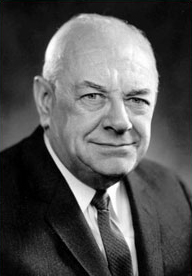
1994 INDUCTEE Earl W. Brandenburg
YMCA La Crosse Area Family
YMCA of Greater Metropolitan Chicago
St. Louis County YMCA
National Council of YMCAs
YMCA Retirement Fund
Earl Brandenburg began his lifetime affiliation with the YMCA as a teen member of the La Crosse (Wis.) YMCA. As a 20-year-old, he was employed as the Boys’ Work secretary in Wausau, Wisconsin. He was involved in YMCA War Work in San Antonio (Texas) and Michigan before enlisting in the Navy.
After the war, he served as the town and country secretary for the Wisconsin State Committee, and later, as the Chicago-based regional Boys’ Work secretary on the national staff. In 1927, Brandenburg was named regional executive in Chicago and organized the system of area councils to coordinate the work of National Council and state committees. Six years later, as the associate general secretary of the National Council, he supported the continued development of area organizations throughout the U.S. and implemented a new percentage financing formula.
From 1936 to 1940, Brandenburg served as general secretary of the St. Louis County (Mo.) YMCA. He was appointed director of the YMCA Retirement Fund in 1940, and was responsible for revamping the operations and increasing the investments of the Fund, which had suffered in the Great Depression. Under his leadership, the Fund gained stability and its assets grew from $18 million to $103 million. Brandenburg was a trustee of both Springfield College and George Williams College.
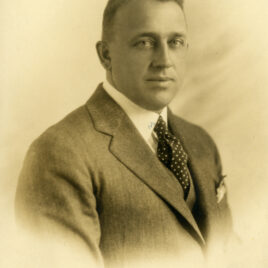
Elwood Brown began his YMCA career at the Salt Lake City Association in 1908 as the director of athletics, and in 1910, he was sent to the Manila YMCA. He was the first director of athletics in Manila and successfully introduced several American group games, such as volleyball and baseball. The Governor-General described baseball as “the most valuable unifying influence at work among the widely different peoples.” The program is a result of Brown’s leadership with the YMCA.
Beyond the introduction of American group sports in the Philippines, Brown more notably organized the Far Eastern Games, “the most important athletic event in [Asia]” at the time (from the YMCA biographical files, Kautz Family YMCA Archives.). After the success of the first four Far Eastern Games, Brown petitioned the International Olympic Committee (IOC) for the Far Eastern Games, The Pan American Games (the South American International Games), and the Indian Empire Games to be included in the IOC’s scope of influence under their “All Sports for All” program. Subsequently, athletes from the Far Eastern Games began competing at the Olympic Games.
Brown and the YMCA athletic department also worked with the Army in France to set up a program for athletics during the Armistice period. It included mass athletics and competition for every man, American Expeditionary Force athletic championships, demonstrations of American sports to the French, and finally, it established the Inter-Allied Games.
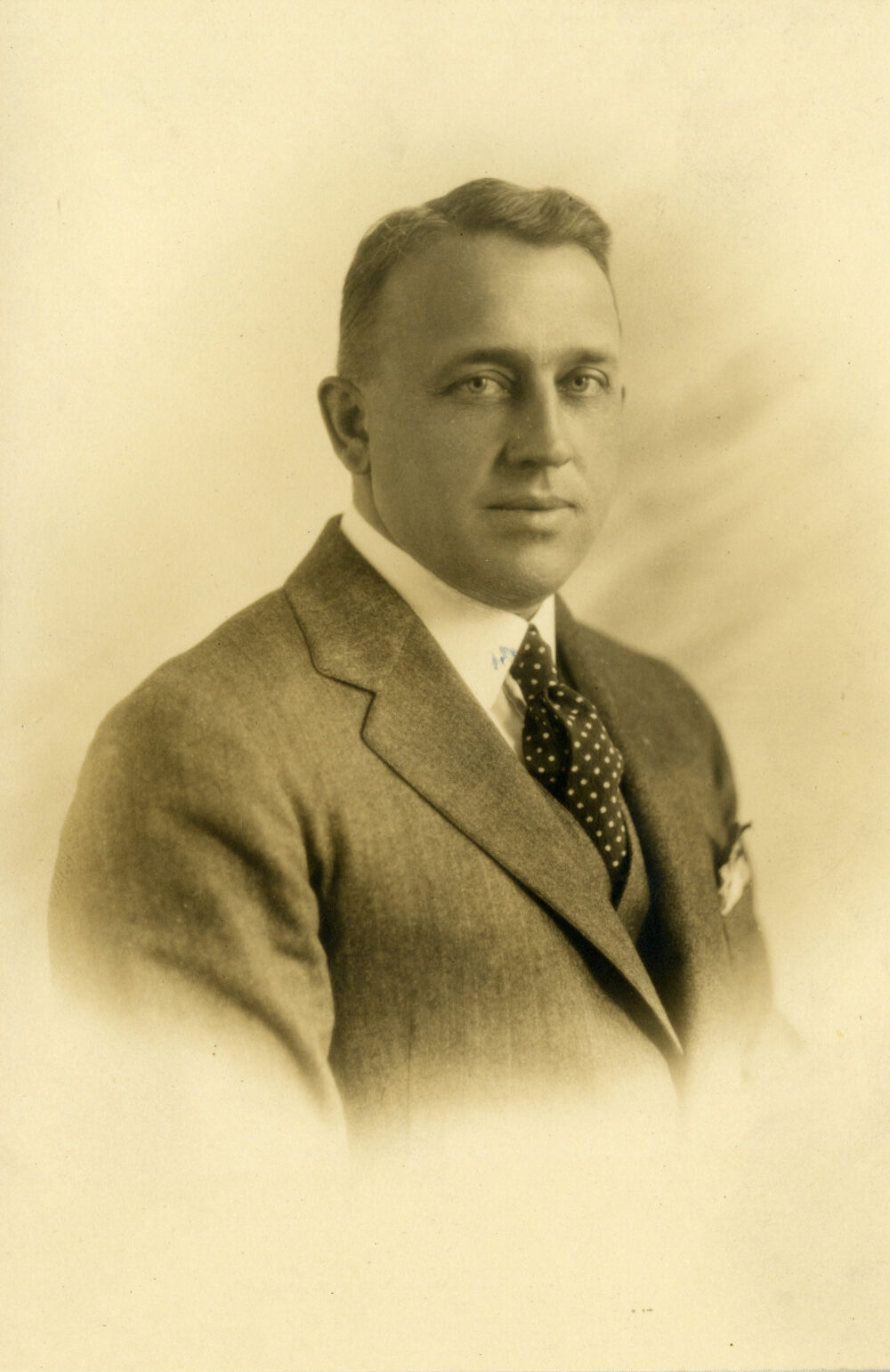
2023 INDUCTEE Elwood Brown
Elwood Brown began his YMCA career at the Salt Lake City Association in 1908 as the director of athletics, and in 1910, he was sent to the Manila YMCA. He was the first director of athletics in Manila and successfully introduced several American group games, such as volleyball and baseball. The Governor-General described baseball as “the most valuable unifying influence at work among the widely different peoples.” The program is a result of Brown’s leadership with the YMCA.
Beyond the introduction of American group sports in the Philippines, Brown more notably organized the Far Eastern Games, “the most important athletic event in [Asia]” at the time (from the YMCA biographical files, Kautz Family YMCA Archives.). After the success of the first four Far Eastern Games, Brown petitioned the International Olympic Committee (IOC) for the Far Eastern Games, The Pan American Games (the South American International Games), and the Indian Empire Games to be included in the IOC’s scope of influence under their “All Sports for All” program. Subsequently, athletes from the Far Eastern Games began competing at the Olympic Games.
Brown and the YMCA athletic department also worked with the Army in France to set up a program for athletics during the Armistice period. It included mass athletics and competition for every man, American Expeditionary Force athletic championships, demonstrations of American sports to the French, and finally, it established the Inter-Allied Games.
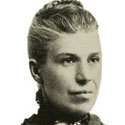
In the late 1870s, as Boys’ Work was beginning to take hold in the YMCA, city YMCAs began to develop Boys’ Work departments. These were typically outgrowths of other programs. A notable example was the YMCA in Buffalo, N.Y., where Ellen Brown, an instructor in the State Normal School, taught a class of boys at the YMCA night school. The class grew so rapidly that in 1886, it became a department of the YMCA with Brown as the first employed Boys’ Work secretary in the YMCA movement. She continued in that job until 1903. In addition, Brown has the distinction of being the first female professional employee of a YMCA.
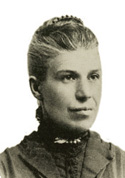
2010 INDUCTEE Ellen Brown (1843-1922)
In the late 1870s, as Boys’ Work was beginning to take hold in the YMCA, city YMCAs began to develop Boys’ Work departments. These were typically outgrowths of other programs. A notable example was the YMCA in Buffalo, N.Y., where Ellen Brown, an instructor in the State Normal School, taught a class of boys at the YMCA night school. The class grew so rapidly that in 1886, it became a department of the YMCA with Brown as the first employed Boys’ Work secretary in the YMCA movement. She continued in that job until 1903. In addition, Brown has the distinction of being the first female professional employee of a YMCA.
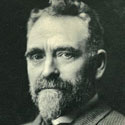
A towering figure in YMCA history, I.E. Brown, as he was known, was instrumental in the early architectural design of YMCA buildings and also in the development of YMCA educational systems. Brown published his book, “Book of Y.M.C.A. Buildings,” in 1895. With its numerous illustrations and floor plans, it became a standard reference source for YMCA architecture. That was a significant contribution to the early YMCA movement, but Brown’s greater achievement was his insistence on educating YMCA secretaries – or in today’s vocabulary, “professionalizing” the association leadership.
He was a founder, along with Robert Weidensall and William E. Lewis, of the Western Secretarial Institute at Lake Geneva, Wis., which was later to become a campus of George Williams College. The institute’s articles of incorporation said its intent was “the establishment and maintenance of an organization for the purpose of training and developing secretaries and physical directors of Young Men’s Christian Associations in their work.” Brown also participated with his sister, Lida Brown, in the creation of the Young Women’s Christian Association.
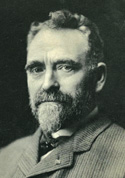
2010 INDUCTEE Isaac Eddy Brown (1849-1917)
A towering figure in YMCA history, I.E. Brown, as he was known, was instrumental in the early architectural design of YMCA buildings and also in the development of YMCA educational systems. Brown published his book, “Book of Y.M.C.A. Buildings,” in 1895. With its numerous illustrations and floor plans, it became a standard reference source for YMCA architecture. That was a significant contribution to the early YMCA movement, but Brown’s greater achievement was his insistence on educating YMCA secretaries – or in today’s vocabulary, “professionalizing” the association leadership.
He was a founder, along with Robert Weidensall and William E. Lewis, of the Western Secretarial Institute at Lake Geneva, Wis., which was later to become a campus of George Williams College. The institute’s articles of incorporation said its intent was “the establishment and maintenance of an organization for the purpose of training and developing secretaries and physical directors of Young Men’s Christian Associations in their work.” Brown also participated with his sister, Lida Brown, in the creation of the Young Women’s Christian Association.
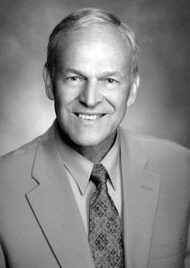
Halbe Brown began his career at the Youngstown (Ohio) YMCA, first as aquatic director and later as the camp director and youth director. In 1966, he became the executive director of the Frost Valley (N.Y.) YMCA, a position he held until his retirement 35 years later.
Under Brown’s leadership, Frost Valley grew from a 2,000-acre camp with an annual budget of $115,000, to a 6,000-acre, $6 million, year-round facility. The year-round staff of six served 1,400 children in 1966. In 2001, the 100-member staff served over 31,000 guests.
Brown was dedicated to providing high quality camping experiences for people of all abilities, and created the first pediatric dialysis center in a resident camp setting. Project MAC was created to enable developmentally disabled children to attend camp. He was committed to fostering cross-cultural cooperation and developed a multi-faceted partnership with the YMCA in Tokyo.
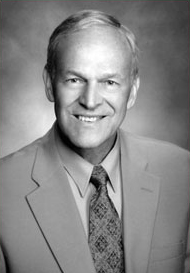
2003 INDUCTEE David Halbe Brown (1936-2012)
YMCA of Youngstown Ohio
Halbe Brown began his career at the Youngstown (Ohio) YMCA, first as aquatic director and later as the camp director and youth director. In 1966, he became the executive director of the Frost Valley (N.Y.) YMCA, a position he held until his retirement 35 years later.
Under Brown’s leadership, Frost Valley grew from a 2,000-acre camp with an annual budget of $115,000, to a 6,000-acre, $6 million, year-round facility. The year-round staff of six served 1,400 children in 1966. In 2001, the 100-member staff served over 31,000 guests.
Brown was dedicated to providing high quality camping experiences for people of all abilities, and created the first pediatric dialysis center in a resident camp setting. Project MAC was created to enable developmentally disabled children to attend camp. He was committed to fostering cross-cultural cooperation and developed a multi-faceted partnership with the YMCA in Tokyo.
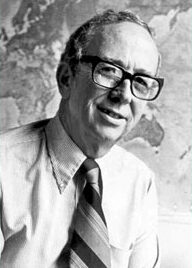
Like many YMCA professionals, Harry Brunger began his association with the YMCA in his youth as a member of the Hi-Y Program in the Eaton/Barry County (Mich.) YMCA. He received degrees from Michigan State University and Yale University Divinity School. He worked with the United Church until he was recruited for service with the National Committee of the YMCAs of China.
Brunger spent the next 28 years working in YMCAs overseas. He was a YMCA fraternal secretary, serving in China, Hong Kong, and Lebanon. He also worked with YMCAs in Egypt, Greece, and Turkey. His overseas efforts focused on staff development, fundraising, training programs for youth workers, facility development, and social/economic development.
Brunger returned to the U.S. on the national staff and focused on international education. In 1980, he served as the head of the International Relations for the YMCA of the USA relating to programs in China, the Middle East, and New York City.
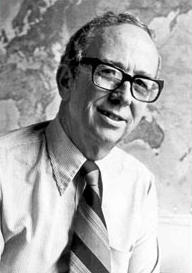
1991 INDUCTEE Harry A. Brunger (1919-2011)
YMCA in Egypt
YMCA in Greece
YMCA in Hong Kong
YMCA in Lebanon
YMCA in Turkey
YMCA of the USA
Like many YMCA professionals, Harry Brunger began his association with the YMCA in his youth as a member of the Hi-Y Program in the Eaton/Barry County (Mich.) YMCA. He received degrees from Michigan State University and Yale University Divinity School. He worked with the United Church until he was recruited for service with the National Committee of the YMCAs of China.
Brunger spent the next 28 years working in YMCAs overseas. He was a YMCA fraternal secretary, serving in China, Hong Kong, and Lebanon. He also worked with YMCAs in Egypt, Greece, and Turkey. His overseas efforts focused on staff development, fundraising, training programs for youth workers, facility development, and social/economic development.
Brunger returned to the U.S. on the national staff and focused on international education. In 1980, he served as the head of the International Relations for the YMCA of the USA relating to programs in China, the Middle East, and New York City.
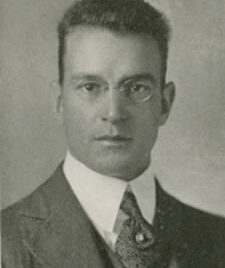
Harry Crowe Buck is considered by the YMCA to be the “Father of Modern Physical Education in India” having founded the profession of physical education in India as a Y ambassador from the International Committee of the YMCA in the United States. Buck had graduated from Springfield College (International YMCA College) in 1917. On a mission of humanity, he and his wife Marie C. Buck went to India in 1919 and organized the YMCA Physical Education College in Madras, India with the purpose of promoting the Springfield College core values by educating and empowering young Indian leaders in the field of physical education and sports in India. Buck was the adviser to the Madras government on physical education and both he and his wife received the Kaiser-i-Hind medal in 1932 awarded by the British Monarch for public service. Buck founded the Indian Olympic Associations, the first public playground in Indian cities, the first YMCA College of Physical Education for the training of teachers of physical education, introduced physical education as an integral part of the school and college curriculum, introduced coaching in games and sports, and he was the first coach to accompany an Indian team for the Olympic Games in 1924 in Paris.
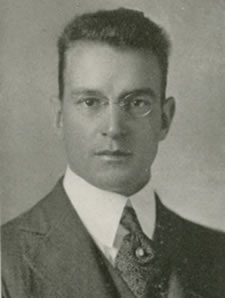
2016 INDUCTEE Harry Crowe Buck (1884-1943)
Harry Crowe Buck is considered by the YMCA to be the “Father of Modern Physical Education in India” having founded the profession of physical education in India as a Y ambassador from the International Committee of the YMCA in the United States. Buck had graduated from Springfield College (International YMCA College) in 1917. On a mission of humanity, he and his wife Marie C. Buck went to India in 1919 and organized the YMCA Physical Education College in Madras, India with the purpose of promoting the Springfield College core values by educating and empowering young Indian leaders in the field of physical education and sports in India. Buck was the adviser to the Madras government on physical education and both he and his wife received the Kaiser-i-Hind medal in 1932 awarded by the British Monarch for public service. Buck founded the Indian Olympic Associations, the first public playground in Indian cities, the first YMCA College of Physical Education for the training of teachers of physical education, introduced physical education as an integral part of the school and college curriculum, introduced coaching in games and sports, and he was the first coach to accompany an Indian team for the Olympic Games in 1924 in Paris.
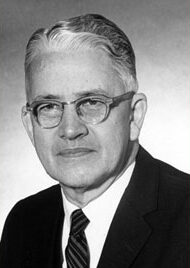
James Bunting began his YMCA career as member of the Hi-Y Club while attending Syracuse University. Following graduation, he took a position as associate educational director at the Rochester (N.Y.) YMCA. After 12 years, he moved to the New Haven (Conn.) YMCA as associate general secretary.
After completing his master’s degree in divinity at Yale, he served as general secretary in Schenectady, N.Y., Newark, N.J., and Washington, D.C. In Newark, he led the first complete merger of the YMCA and the YWCA into one organization, and in Washington, he eliminated segregation at all of the branches. Bunting was appointed national executive director of the YMCA in 1964. During this turbulent period, the YMCA took public stands on a number of important issues of the day, including the Vietnam War, environmental preservation, and civil rights.
Under his leadership, the national structure was reduced to eight regional offices and local Ys were, for the first time, required to certify that their policies and practices were non-discriminatory. Bunting retired in 1971.
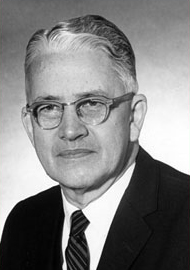
2004 INDUCTEE James F. Bunting (1906-1989)
Schenectady Branch YMCA
YMCA of Greater Rochester
YMCA of Metropolitan Washington
YMCA of the USA
James Bunting began his YMCA career as member of the Hi-Y Club while attending Syracuse University. Following graduation, he took a position as associate educational director at the Rochester (N.Y.) YMCA. After 12 years, he moved to the New Haven (Conn.) YMCA as associate general secretary.
After completing his master’s degree in divinity at Yale, he served as general secretary in Schenectady, N.Y., Newark, N.J., and Washington, D.C. In Newark, he led the first complete merger of the YMCA and the YWCA into one organization, and in Washington, he eliminated segregation at all of the branches. Bunting was appointed national executive director of the YMCA in 1964. During this turbulent period, the YMCA took public stands on a number of important issues of the day, including the Vietnam War, environmental preservation, and civil rights.
Under his leadership, the national structure was reduced to eight regional offices and local Ys were, for the first time, required to certify that their policies and practices were non-discriminatory. Bunting retired in 1971.
Throughout his work with the Y, Michael Bussey showed that rather than pursuing a career, he pursued a calling. Bussey’s work goes beyond the Y and into the global pursuit of peace. The beginning of Bussey’s journey with the YMCA begins at Camp Christmas Tree, a day camp operated by the Minneapolis YMCA. As a 15-year-old camp counselor, Bussey dove into the deep end of what the Y had to offer, working to become a full-time program director after completing his college education. Bussey continued to serve the YMCAs of his home state, up until 1990, when he took to the global stage. Bussey served as the director general for the Jerusalem International YMCA from 1990-98, as well from 2008-09. During his tenure, the YMCA was nominated for the Nobel Peace Prize for its work to build peaceful coexistence in an area divided by ethnic and religious conflict. Bussey’s work goes into his retirement, as he continues to volunteer with passion and care on both the national and international level.
2023 INDUCTEE Michael Bussey
YMCA of Greater Saint Paul
Nazareth YMCA (Israel)
Jerusalem International YMCA (Israel)
YMCA of the USA
Throughout his work with the Y, Michael Bussey showed that rather than pursuing a career, he pursued a calling. Bussey’s work goes beyond the Y and into the global pursuit of peace. The beginning of Bussey’s journey with the YMCA begins at Camp Christmas Tree, a day camp operated by the Minneapolis YMCA. As a 15-year-old camp counselor, Bussey dove into the deep end of what the Y had to offer, working to become a full-time program director after completing his college education. Bussey continued to serve the YMCAs of his home state, up until 1990, when he took to the global stage. Bussey served as the director general for the Jerusalem International YMCA from 1990-98, as well from 2008-09. During his tenure, the YMCA was nominated for the Nobel Peace Prize for its work to build peaceful coexistence in an area divided by ethnic and religious conflict. Bussey’s work goes into his retirement, as he continues to volunteer with passion and care on both the national and international level.
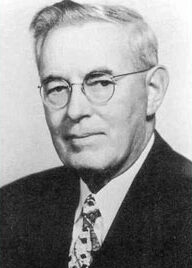
Moving from Ontario as a child, Thomas Caldwell began his association in 1902 with the YMCA in Riverside, California. He was employed by the Y in Oakland (Calif.), and subsequently joined the Los Angeles YMCA as the citywide boys’ secretary.
Beginning in 1926, he served 13 years as general secretary of the Riverside YMCA. In 1914, Caldwell was leading camping programs when he created the YMCA Rag Society as a means of rewarding positive behavior among the boys in the program. Ceremonies were held to give “rags” (bandanas) to youth as a challenge to live up to Christian ideals of spiritual and physical health.
The Rag program spread along the West coast and eventually to camps across the country. The YMCA Rag Society, with its seven levels of increasingly higher commitment to values, has had an impact on generations of YMCA campers. Many former and current Y staff, along with thousands of YMCA campers, have personally been inspired by their participation in the Rag Society.
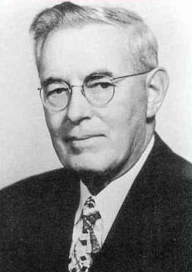
1994 INDUCTEE Thomas S. Caldwell
YMCA in Riverside
YMCA of Greater Los Angeles
Moving from Ontario as a child, Thomas Caldwell began his association in 1902 with the YMCA in Riverside, California. He was employed by the Y in Oakland (Calif.), and subsequently joined the Los Angeles YMCA as the citywide boys’ secretary.
Beginning in 1926, he served 13 years as general secretary of the Riverside YMCA. In 1914, Caldwell was leading camping programs when he created the YMCA Rag Society as a means of rewarding positive behavior among the boys in the program. Ceremonies were held to give “rags” (bandanas) to youth as a challenge to live up to Christian ideals of spiritual and physical health.
The Rag program spread along the West coast and eventually to camps across the country. The YMCA Rag Society, with its seven levels of increasingly higher commitment to values, has had an impact on generations of YMCA campers. Many former and current Y staff, along with thousands of YMCA campers, have personally been inspired by their participation in the Rag Society.
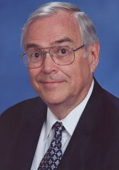
Bill Cameron was an active member, part-time staff member, and resident camp counselor at the Allentown (Pa.) YMCA during his youth.
He began his YMCA career in 1977 as the executive director of the North Penn, and later, the Main Line YMCAs in Pennsylvania after having served as pastor at the United Church of Christ and having worked in a variety of social service and community development agencies. For the next 26 years, Cameron established himself as one of the most well respected Y leaders as a management consultant, author, mentor, trainer, and speaker.
He wrote numerous articles and training materials, including a column for Perspective, the professional journal of the Association of YMCA Professionals (AYP), and had a collection of his writings published as a book, “The Last Word.” He received the AYP Kuenzli-Hall Award. The AYP Cameron Award for Excellence in Writing is named after him. In retirement, Cameron continued his involvement with YMCA of the USA as a part-time consultant, facilitator, and frequent presenter at YMCA Principles & Practices meetings.

2007 INDUCTEE William E. Cameron
YMCA and YWCA of Allentown
YMCA of the USA
Main Line YMCA
Bill Cameron was an active member, part-time staff member, and resident camp counselor at the Allentown (Pa.) YMCA during his youth.
He began his YMCA career in 1977 as the executive director of the North Penn, and later, the Main Line YMCAs in Pennsylvania after having served as pastor at the United Church of Christ and having worked in a variety of social service and community development agencies. For the next 26 years, Cameron established himself as one of the most well respected Y leaders as a management consultant, author, mentor, trainer, and speaker.
He wrote numerous articles and training materials, including a column for Perspective, the professional journal of the Association of YMCA Professionals (AYP), and had a collection of his writings published as a book, “The Last Word.” He received the AYP Kuenzli-Hall Award. The AYP Cameron Award for Excellence in Writing is named after him. In retirement, Cameron continued his involvement with YMCA of the USA as a part-time consultant, facilitator, and frequent presenter at YMCA Principles & Practices meetings.
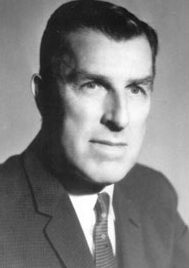
Clifford Carey’s connection with the YMCA was established so early in life that even his high school yearbook predicted a YMCA career. He received his undergraduate degree in 1923 from Denison University in Ohio and his Ph.D. from the University of Southern California in 1942.
In those 20 years, he balanced his schooling and remained a full-time staff member of the YMCA. He held positions with the Dayton (Ohio), Chicago (Ill.), and Los Angeles (Calif.) YMCAs. In 1942, Carey joined the National Council staff and remained there for 28 years until 1970. He served in a number of positions, including working in young men’s program services, and as director of research and planning and executive for program and research.
For two years prior to his retirement, Carey was the associate general executive, where he implemented changes in the organization of field services. Carey wrote and taught training classes, including refresher courses for Y staff returning after WWII. He helped write “Young Men Speak, A Self Appraisal Plan for the YMCAs” and “Survey Techniques for Local YMCAs.”
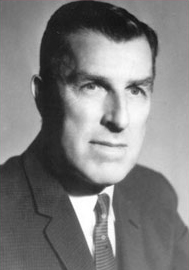
1992 INDUCTEE Clifford M. Carey
YMCA of Greater Los Angeles
YMCA of Greater Metropolitan Chicago
National Council of YMCAs
Clifford Carey’s connection with the YMCA was established so early in life that even his high school yearbook predicted a YMCA career. He received his undergraduate degree in 1923 from Denison University in Ohio and his Ph.D. from the University of Southern California in 1942.
In those 20 years, he balanced his schooling and remained a full-time staff member of the YMCA. He held positions with the Dayton (Ohio), Chicago (Ill.), and Los Angeles (Calif.) YMCAs. In 1942, Carey joined the National Council staff and remained there for 28 years until 1970. He served in a number of positions, including working in young men’s program services, and as director of research and planning and executive for program and research.
For two years prior to his retirement, Carey was the associate general executive, where he implemented changes in the organization of field services. Carey wrote and taught training classes, including refresher courses for Y staff returning after WWII. He helped write “Young Men Speak, A Self Appraisal Plan for the YMCAs” and “Survey Techniques for Local YMCAs.”
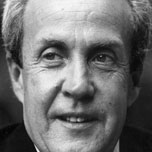
John Casey has had a profound impact on the YMCA movement, both as the president of the YMCA of Metropolitan Chicago and then as the secretary general of the World Alliance of YMCAs where he was able to act on his unique global passion and vision for the YMCA movement. His commitment to addressing social issues in one’s community started with his work as the vice president of program development and government relations for the YMCA of Metropolitan Chicago. In this role he had primary responsibility for developing and coordinating $15 million annually in state and municipal contracts to support much needed social programs including childcare for low-income families, higher education, juvenile delinquency, adult and youth employment, community health initiatives, drug and alcohol counseling, and various housing programs. He also advised the State of Illinois General Assembly on making improvements and addressing the enforcement of collections for delinquent child support, child abuse prevention, reforms to the state’s Medicare system, and many other initiatives to support children and families.
After bringing the Chicago Y from financial peril, Casey went on to serve the World Alliance of YMCAs in Geneva, Switzerland, as secretary general. This was a significant honor in the history of the YMCA movement as he was the first Roman-Catholic and first local YMCA executive to ever hold the post, as well as being the first American in that post in 35 years. In this role he expanded the YMCA’s refugee and disaster relief efforts, integrated women into worldwide leadership roles in the YMCA, led the campaign to ban landmines, and created pathways for conflict resolution and community transformation through YMCA led efforts around the world. His greatest legacy is the focus on youth work in the worldwide YMCA movement, which still echoes around the globe with the International Youth Internship Program and the Global Youth Leadership Program. Casey was a mentor to literally hundreds of youth leaders around the world through the Young Professionals Forum with his passion of meeting and motivating youth to build a new generation of global YMCA leaders. As his term of office ended in 1998, under his initiative, the Mission Review Process was passed at the 14th World Council in Frechen, Germany, which gave the world movement a newly formulated mission statement called Challenge 21. The mission states, “Affirming the Paris Basis adopted in 1855 as the ongoing foundation statement of the mission of the YMCA, at the threshold of the third millennium we declare that the YMCA is a world-wide Christian, ecumenical, voluntary movement for women and men with special emphasis on and the genuine involvement of young people and that it seeks to share the Christian ideal of building a human community of justice with love, peace and reconciliation for the fullness of life for all creation.”
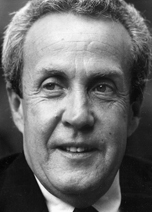
2013 INDUCTEE John Casey (1938-2017)
YMCA of Greater Metropolitan Chicago
John Casey has had a profound impact on the YMCA movement, both as the president of the YMCA of Metropolitan Chicago and then as the secretary general of the World Alliance of YMCAs where he was able to act on his unique global passion and vision for the YMCA movement. His commitment to addressing social issues in one’s community started with his work as the vice president of program development and government relations for the YMCA of Metropolitan Chicago. In this role he had primary responsibility for developing and coordinating $15 million annually in state and municipal contracts to support much needed social programs including childcare for low-income families, higher education, juvenile delinquency, adult and youth employment, community health initiatives, drug and alcohol counseling, and various housing programs. He also advised the State of Illinois General Assembly on making improvements and addressing the enforcement of collections for delinquent child support, child abuse prevention, reforms to the state’s Medicare system, and many other initiatives to support children and families.
After bringing the Chicago Y from financial peril, Casey went on to serve the World Alliance of YMCAs in Geneva, Switzerland, as secretary general. This was a significant honor in the history of the YMCA movement as he was the first Roman-Catholic and first local YMCA executive to ever hold the post, as well as being the first American in that post in 35 years. In this role he expanded the YMCA’s refugee and disaster relief efforts, integrated women into worldwide leadership roles in the YMCA, led the campaign to ban landmines, and created pathways for conflict resolution and community transformation through YMCA led efforts around the world. His greatest legacy is the focus on youth work in the worldwide YMCA movement, which still echoes around the globe with the International Youth Internship Program and the Global Youth Leadership Program. Casey was a mentor to literally hundreds of youth leaders around the world through the Young Professionals Forum with his passion of meeting and motivating youth to build a new generation of global YMCA leaders. As his term of office ended in 1998, under his initiative, the Mission Review Process was passed at the 14th World Council in Frechen, Germany, which gave the world movement a newly formulated mission statement called Challenge 21. The mission states, “Affirming the Paris Basis adopted in 1855 as the ongoing foundation statement of the mission of the YMCA, at the threshold of the third millennium we declare that the YMCA is a world-wide Christian, ecumenical, voluntary movement for women and men with special emphasis on and the genuine involvement of young people and that it seeks to share the Christian ideal of building a human community of justice with love, peace and reconciliation for the fullness of life for all creation.”
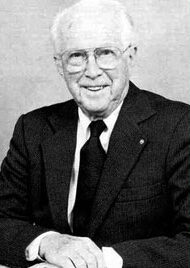
Erie D. Chapman held various program and camping positions from 1922 to 1941 with YMCAs in Elyria, Cleveland, and East Cleveland, Ohio. During the World War II era, he was the general director of the Lockport (N.Y.) YMCA.
Beginning in 1945, he served 10 years as the executive director of the YMCA in Hollywood, Calif. In 1955, he moved to the Toledo (Ohio) association as executive vice president, and for 15 years helped to sustain expansive growth in programming, facilities, endowment, and camping. Over the course of his 48-year career, and into retirement, he was a passionate advocate of physical fitness and camping programs.
During his tenure, the Storer Camps quadrupled in size and its budget grew tenfold. Chapman served as a volunteer in numerous civic associations and was inducted into the National Volleyball Leader’s Hall of Fame. In 1981, Chapman was a Congressional appointee to the White House Conference on Aging. In 1985, he was named a Paul Harris Fellow by Rotary International.
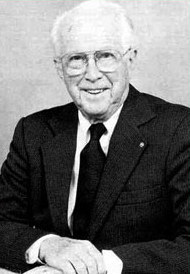
1990 INDUCTEE Erie D. Chapman (d. 1995)
Lockport Family YMCA
YMCA of Greater Cleveland
YMCA of Greater Toledo
Erie D. Chapman held various program and camping positions from 1922 to 1941 with YMCAs in Elyria, Cleveland, and East Cleveland, Ohio. During the World War II era, he was the general director of the Lockport (N.Y.) YMCA.
Beginning in 1945, he served 10 years as the executive director of the YMCA in Hollywood, Calif. In 1955, he moved to the Toledo (Ohio) association as executive vice president, and for 15 years helped to sustain expansive growth in programming, facilities, endowment, and camping. Over the course of his 48-year career, and into retirement, he was a passionate advocate of physical fitness and camping programs.
During his tenure, the Storer Camps quadrupled in size and its budget grew tenfold. Chapman served as a volunteer in numerous civic associations and was inducted into the National Volleyball Leader’s Hall of Fame. In 1981, Chapman was a Congressional appointee to the White House Conference on Aging. In 1985, he was named a Paul Harris Fellow by Rotary International.
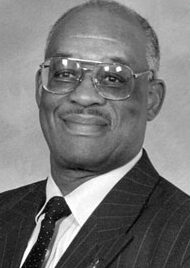
As a child in Montclair, N.J., Everett Christmas lived next door to the Montclair YMCA. There, he began his professional YMCA career as a physical director. He later worked in Wilmington, Del. and as executive director at the Second Street Youth Center in Plainfield, N.J.
Christmas returned to YMCA work in the late 1960s, in leadership positions in Newark and East Orange, N.J. For 16 years, Christmas worked with YMCA of the USA as a field consultant and trainer. He was also the director of the YMCA Black Achievers Program, which grew from seven to 125 local programs under his leadership. As a core member of the national staff development faculty, Christmas trained thousands of YMCA workers in YMCA history, the Y’s Christian heritage, and diversity.
He retired in 1996, and continued to serve as a YMCA consultant, historian, and motivational speaker. He was honored with the YMCA Association of Professional Directors Knebel Award for Distinguished Leadership and was named to the National YMCA Black Achievers Hall of Fame. He also received a Humanitarian Award from the African American Culture Center of Raleigh, N.C.
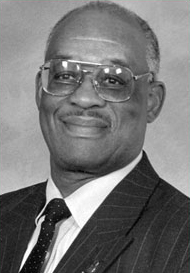
2006 INDUCTEE Everett Christmas
Plainfield Area YMCA
YMCA of Delaware
YMCA of Montclair
YMCA of the USA
As a child in Montclair, N.J., Everett Christmas lived next door to the Montclair YMCA. There, he began his professional YMCA career as a physical director. He later worked in Wilmington, Del. and as executive director at the Second Street Youth Center in Plainfield, N.J.
Christmas returned to YMCA work in the late 1960s, in leadership positions in Newark and East Orange, N.J. For 16 years, Christmas worked with YMCA of the USA as a field consultant and trainer. He was also the director of the YMCA Black Achievers Program, which grew from seven to 125 local programs under his leadership. As a core member of the national staff development faculty, Christmas trained thousands of YMCA workers in YMCA history, the Y’s Christian heritage, and diversity.
He retired in 1996, and continued to serve as a YMCA consultant, historian, and motivational speaker. He was honored with the YMCA Association of Professional Directors Knebel Award for Distinguished Leadership and was named to the National YMCA Black Achievers Hall of Fame. He also received a Humanitarian Award from the African American Culture Center of Raleigh, N.C.
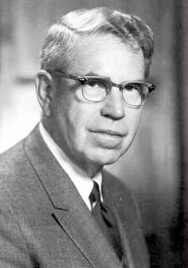
Max Clowers started his lifelong relationship as a member of the Hi-Y Club at the Springfield (Ill.) YMCA. In 1926, he became the associate Boys’ Work secretary of the Rock Island (Ill.) YMCA.
During WWII, he served in the Navy YMCA in Norfolk, Virginia, which provided USO programs to half a million servicemen. In 1944, he joined the YMCA field staff at the North Central Area Council in Milwaukee, with responsibility for the development of Youth and Government, Hi-Y, and other youth programs.
In 1968, he was appointed executive director of the North Central Area Council during a period of organizational transition. He successfully repositioned the Council into the Mid-American region. He was editor and writer of the newsletter On Board; editor of the Boys’ Work Journal; and contributor to Perspective, the professional journal of the Association of YMCA Professionals (AYP). Clowers retired in 1974, but stayed active in the YMCA and in his writing.
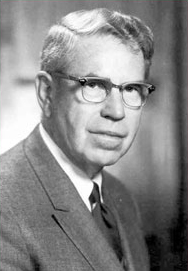
1999 INDUCTEE Max Clowers
YMCA of Springfield
Navy YMCA
YMCA North Central Area Council
Max Clowers started his lifelong relationship as a member of the Hi-Y Club at the Springfield (Ill.) YMCA. In 1926, he became the associate Boys’ Work secretary of the Rock Island (Ill.) YMCA.
During WWII, he served in the Navy YMCA in Norfolk, Virginia, which provided USO programs to half a million servicemen. In 1944, he joined the YMCA field staff at the North Central Area Council in Milwaukee, with responsibility for the development of Youth and Government, Hi-Y, and other youth programs.
In 1968, he was appointed executive director of the North Central Area Council during a period of organizational transition. He successfully repositioned the Council into the Mid-American region. He was editor and writer of the newsletter On Board; editor of the Boys’ Work Journal; and contributor to Perspective, the professional journal of the Association of YMCA Professionals (AYP). Clowers retired in 1974, but stayed active in the YMCA and in his writing.
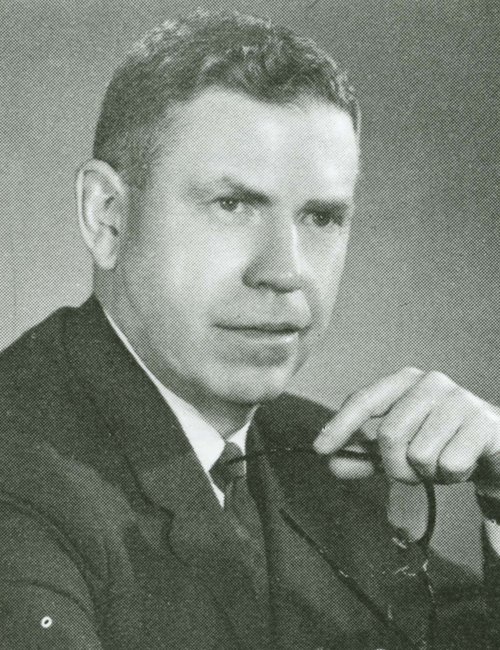
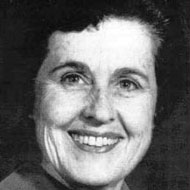
Winifred Colton had a stellar YMCA career promoting programs for girls, women, and families. Beginning in 1940, she spent three years in Chicago YMCA branches as secretary for programs with women and girls.
In 1953, she joined the Dallas (Texas) YMCA as the program secretary for women and girls. Colton retired after serving seven years as the director of the Family Communication Skills Center in California. In retirement, she continued to influence the work that the YMCA did with women and girls.
Her focus remained on communication, human development, and cross-cultural and international understanding. She spent 39 years developing the foundation of today’s family-oriented YMCA.
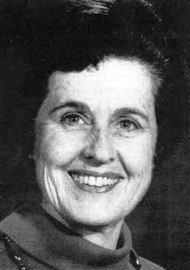
1993 INDUCTEE Winifred J. Colton (1918-2013)
YMCA of Greater Metropolitan Chicago
YMCA of Greater Metropolitan Dallas
Winifred Colton had a stellar YMCA career promoting programs for girls, women, and families. Beginning in 1940, she spent three years in Chicago YMCA branches as secretary for programs with women and girls.
In 1953, she joined the Dallas (Texas) YMCA as the program secretary for women and girls. Colton retired after serving seven years as the director of the Family Communication Skills Center in California. In retirement, she continued to influence the work that the YMCA did with women and girls.
Her focus remained on communication, human development, and cross-cultural and international understanding. She spent 39 years developing the foundation of today’s family-oriented YMCA.
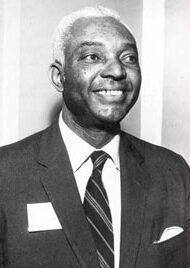
After graduating from Oberlin College in 1937, John W. Copeland began his 42-year YMCA career as a physical education director in the Dayton (Ohio) association. After just five years, he moved to the East Madison YMCA in Seattle (Wash.) as executive director.
He later returned to the Midwest to serve the next 22 years with the Detroit (Mich.) YMCA. While at Detroit, he assumed responsibilities at the branch and corporate levels. He was that association’s first affirmative action officer and later became the assistant general director. For five years beginning in 1965, he joined the national staff as director of Adult Programs and Urban Affairs.
He returned to Detroit as vice president and director of Planning, Public Relations and Membership. After his 1979 retirement, Copeland continued his YMCA service as a consultant to the Harlem Branch of the YMCA of Greater New York City and in interim executive roles for branches in Detroit.
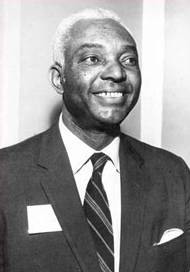
1990 INDUCTEE John W. Copeland
YMCA of Greater Dayton
YMCA of Greater New York
YMCA of Metropolitan Detroit
YMCA of the USA
After graduating from Oberlin College in 1937, John W. Copeland began his 42-year YMCA career as a physical education director in the Dayton (Ohio) association. After just five years, he moved to the East Madison YMCA in Seattle (Wash.) as executive director.
He later returned to the Midwest to serve the next 22 years with the Detroit (Mich.) YMCA. While at Detroit, he assumed responsibilities at the branch and corporate levels. He was that association’s first affirmative action officer and later became the assistant general director. For five years beginning in 1965, he joined the national staff as director of Adult Programs and Urban Affairs.
He returned to Detroit as vice president and director of Planning, Public Relations and Membership. After his 1979 retirement, Copeland continued his YMCA service as a consultant to the Harlem Branch of the YMCA of Greater New York City and in interim executive roles for branches in Detroit.
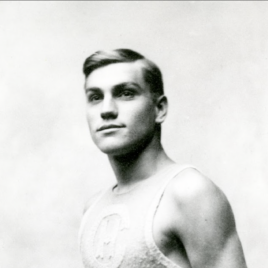
George Corsan is credited with the introduction of the massed method of swimming instruction, rhythmic breathing, the back crawl stroke, and the fear elimination drill, among other accomplishments.
Before the introduction of swimming lessons, it was estimated that 25% of the U.S. population did not know how to swim, causing more than 7,000 to die by accidental drowning. The YMCA recognized a need for uniform swimming lessons in the United States and put Corsan in charge of teaching people from all walks of life how to swim. He went to nearly every city in the United States, advertising his one week of five intensive class sessions at local YMCAs. “His land drills developed movement coordination; water wings provided support while practicing crawl stroke movements and breath control.” [Quote from Corsan’s book, At Home in the Water, 1910 Association Press]. In Grand Rapids, Michigan, in 1913, 800 boys were given swim instruction in one week. And after just two lessons with Corsan, more than 200 had learned to swim 50 feet without assistance.
In just 20 years, Corsan’s system of swimming instruction was universally adopted and followed in the United States, Canada, Australia, and South America, where he was also involved in the designing and implementation of swimming pools. People and organizations worldwide, including the U.S. Army, used his teaching methods to expand access to swimming education.
Today, the YMCA is considered “America’s Swim Instructor,” and tens of millions of people have learned to swim thanks to Corsan’s methods and implementation.
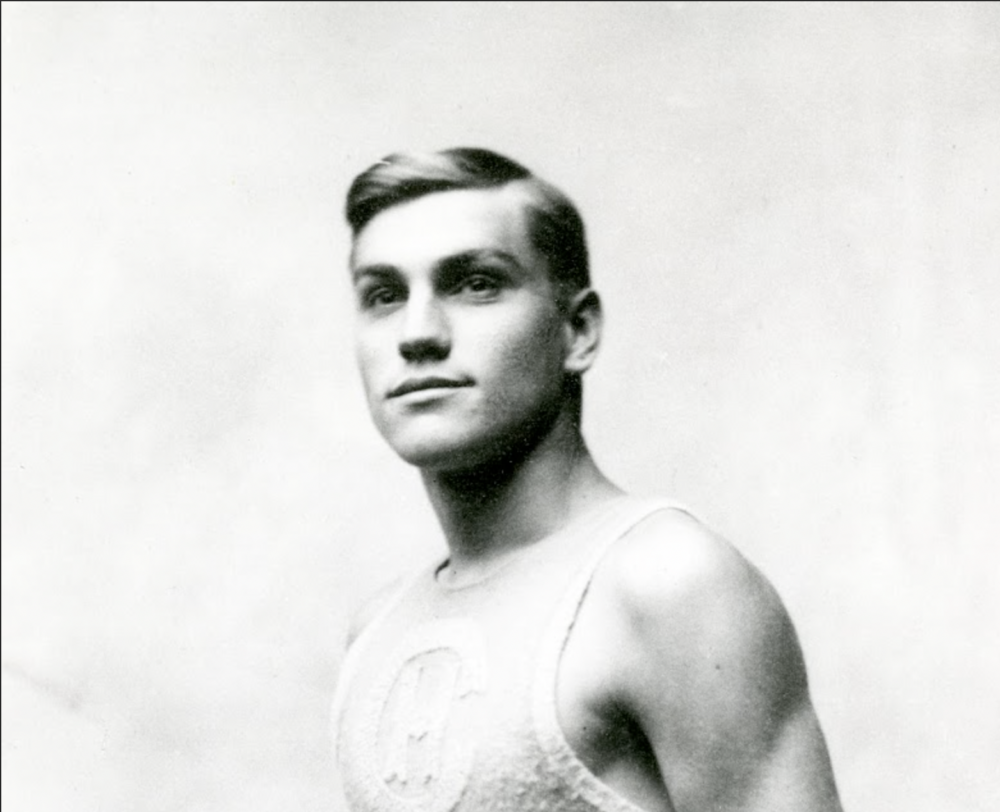
2023 INDUCTEE George Corsan
George Corsan is credited with the introduction of the massed method of swimming instruction, rhythmic breathing, the back crawl stroke, and the fear elimination drill, among other accomplishments.
Before the introduction of swimming lessons, it was estimated that 25% of the U.S. population did not know how to swim, causing more than 7,000 to die by accidental drowning. The YMCA recognized a need for uniform swimming lessons in the United States and put Corsan in charge of teaching people from all walks of life how to swim. He went to nearly every city in the United States, advertising his one week of five intensive class sessions at local YMCAs. “His land drills developed movement coordination; water wings provided support while practicing crawl stroke movements and breath control.” [Quote from Corsan’s book, At Home in the Water, 1910 Association Press]. In Grand Rapids, Michigan, in 1913, 800 boys were given swim instruction in one week. And after just two lessons with Corsan, more than 200 had learned to swim 50 feet without assistance.
In just 20 years, Corsan’s system of swimming instruction was universally adopted and followed in the United States, Canada, Australia, and South America, where he was also involved in the designing and implementation of swimming pools. People and organizations worldwide, including the U.S. Army, used his teaching methods to expand access to swimming education.
Today, the YMCA is considered “America’s Swim Instructor,” and tens of millions of people have learned to swim thanks to Corsan’s methods and implementation.
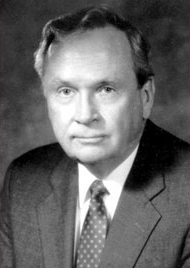
Solon Cousins began working with the YMCA in 1954 as the director of personnel and planning of the Chicago (Ill.) YMCA. Twelve years later, he moved to the YMCA of Greater Boston (Mass.) as the executive director. His $2.5 million capital campaign helped build a new facility, expand four older branches, and purchase a camp.
He also created an innovative program that addressed personnel, program, and facility development. In 1970, Cousins became the National Board’s associate executive director and the first executive of the Urban Group. Under his leadership, a national health insurance program was developed and the Standards of Excellence for Urban Metro YMCA’s were established. He joined the United Way of Metropolitan Chicago as its executive director in 1974. Cousins was named national executive director of the YMCA of the USA in 1980, and for 10 years led a period of dramatic change.
Under his leadership, the national system was completely reorganized under a new constitution. Dues were lowered for member associations, the budget was balanced, the national office was moved to Chicago, the Y-Mutual Insurance Company was created, the fight against tax challenges was implemented, and the dramatic expansion of YMCA child care programs was supported. Cousins was a trustee of Springfield College, George Williams College, and the YMCA Retirement Fund. He was awarded honorary doctorates from Springfield College and the University of Richmond.

1995 INDUCTEE Solon B. Cousins (1925-1996)
YMCA of Greater Metropolitan Chicago
YMCA of the USA
Solon Cousins began working with the YMCA in 1954 as the director of personnel and planning of the Chicago (Ill.) YMCA. Twelve years later, he moved to the YMCA of Greater Boston (Mass.) as the executive director. His $2.5 million capital campaign helped build a new facility, expand four older branches, and purchase a camp.
He also created an innovative program that addressed personnel, program, and facility development. In 1970, Cousins became the National Board’s associate executive director and the first executive of the Urban Group. Under his leadership, a national health insurance program was developed and the Standards of Excellence for Urban Metro YMCA’s were established. He joined the United Way of Metropolitan Chicago as its executive director in 1974. Cousins was named national executive director of the YMCA of the USA in 1980, and for 10 years led a period of dramatic change.
Under his leadership, the national system was completely reorganized under a new constitution. Dues were lowered for member associations, the budget was balanced, the national office was moved to Chicago, the Y-Mutual Insurance Company was created, the fight against tax challenges was implemented, and the dramatic expansion of YMCA child care programs was supported. Cousins was a trustee of Springfield College, George Williams College, and the YMCA Retirement Fund. He was awarded honorary doctorates from Springfield College and the University of Richmond.
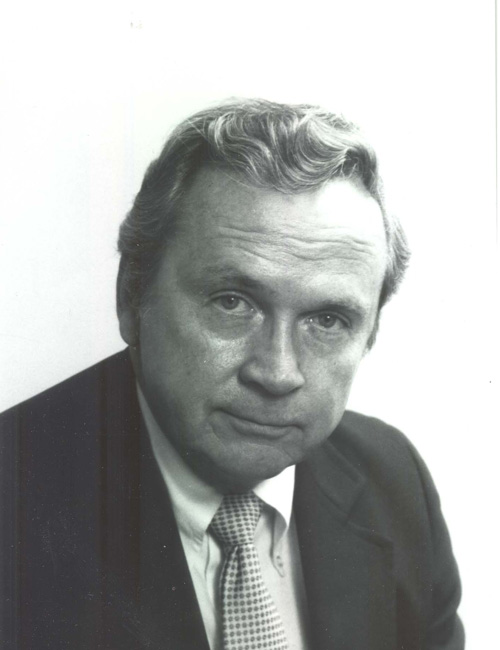
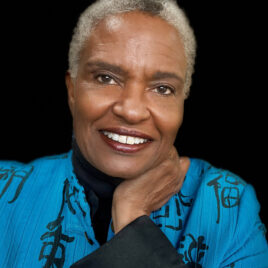
Carolyn Creager is a champion of multicultural leadership development, as she served as a founding member of multiple programs aimed at addressing inequities and lack of racial representation in YMCA staffing. With a wealth of knowledge and ideas, Creager became the first director of what is now known as Multicultural Leadership Development (MLD) in 2004. Over the next 10 years, Creager helped launch multiple national leadership development programs, including the Multicultural Executive Development Institute, the Multicultural Executive Career Advancement, the Multicultural Mentoring Program, the Emerging Multicultural Leadership Experience, and the Next Level CEO Coaching program. MLD is the longest-running strategy dedicated to addressing racial gaps and inequities throughout the Y today. Creager’s hard work and vision inspired a movement within the YMCA organization that has helped develop multicultural leaders into high levels of leadership, both internally and externally.
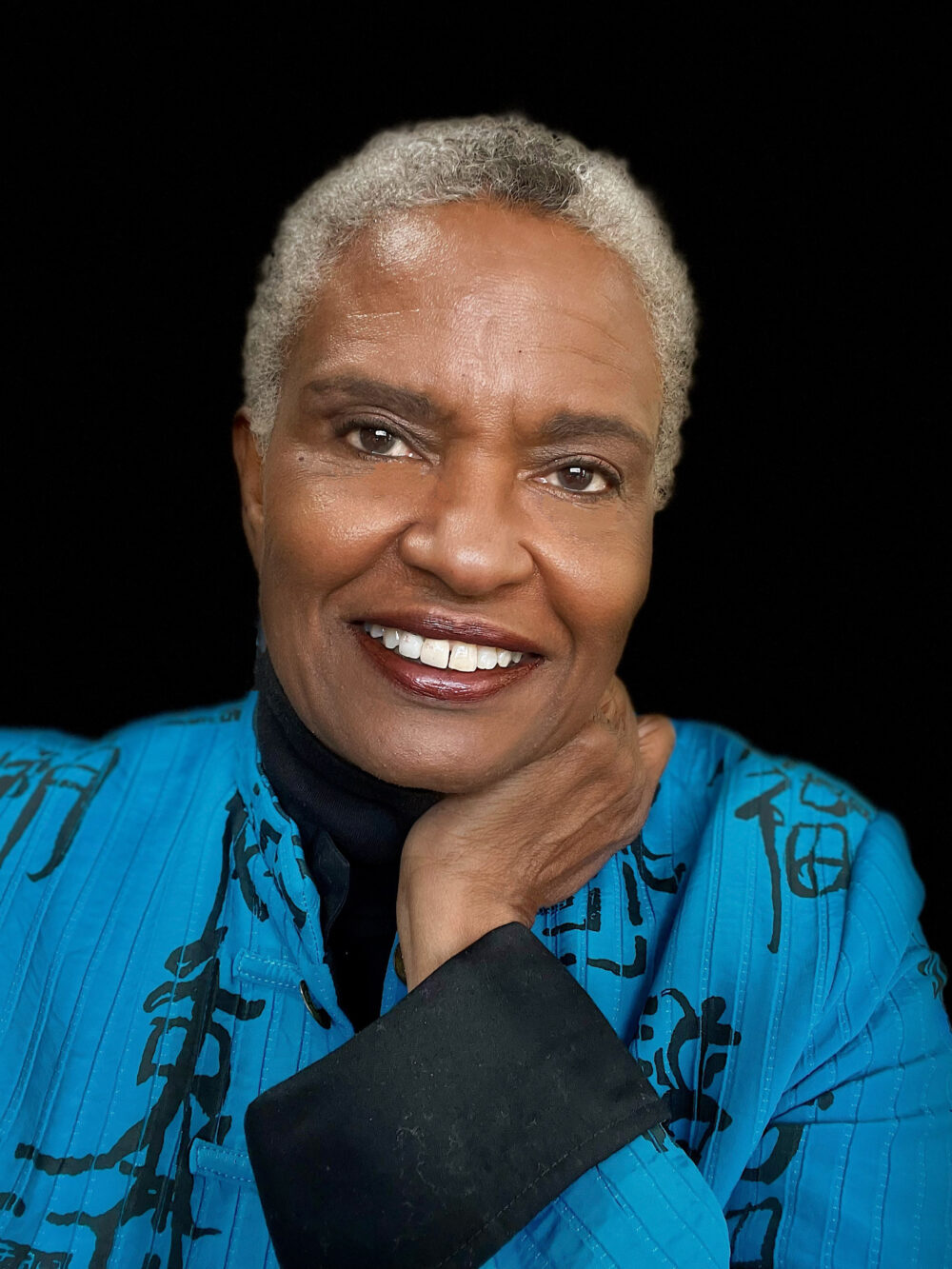
2023 INDUCTEE Carolyn Creager
YMCA of the USA
Carolyn Creager is a champion of multicultural leadership development, as she served as a founding member of multiple programs aimed at addressing inequities and lack of racial representation in YMCA staffing. With a wealth of knowledge and ideas, Creager became the first director of what is now known as Multicultural Leadership Development (MLD) in 2004. Over the next 10 years, Creager helped launch multiple national leadership development programs, including the Multicultural Executive Development Institute, the Multicultural Executive Career Advancement, the Multicultural Mentoring Program, the Emerging Multicultural Leadership Experience, and the Next Level CEO Coaching program. MLD is the longest-running strategy dedicated to addressing racial gaps and inequities throughout the Y today. Creager’s hard work and vision inspired a movement within the YMCA organization that has helped develop multicultural leaders into high levels of leadership, both internally and externally.
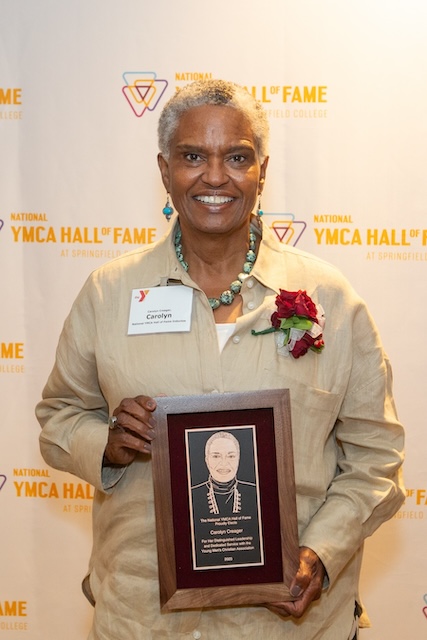
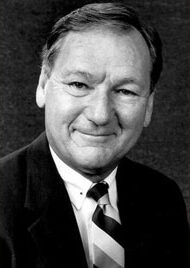
As a child, John Danielson attended Y camp and was a member of the Gra-Y and Hi-Y Clubs. After graduating from Springfield College, he was appointed Boys’ Work secretary at the Newton (Mass.) YMCA.
Danielson served in multiple capacities in the Cleveland Association: branch executive, secretary for program and membership, and secretary for administration and personnel. In 1970, he was appointed president of the Greater Boston YMCA, where he was a strong advocate for the YMCA’s involvement in juvenile justice programs.
He also served as president of the Employees Alliance, a YMCA insurance program, for six years. Danielson joined the YMCA national staff as the deputy executive director in 1981. His responsibilities included field service delivery, support for the Management Resource Center, and the National Committee on Membership Standards.
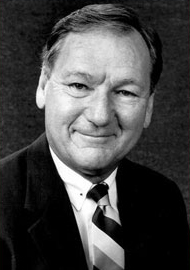
1997 INDUCTEE John E. Danielson
West Suburban YMCA
YMCA of Greater Cleveland
YMCA of the USA
As a child, John Danielson attended Y camp and was a member of the Gra-Y and Hi-Y Clubs. After graduating from Springfield College, he was appointed Boys’ Work secretary at the Newton (Mass.) YMCA.
Danielson served in multiple capacities in the Cleveland Association: branch executive, secretary for program and membership, and secretary for administration and personnel. In 1970, he was appointed president of the Greater Boston YMCA, where he was a strong advocate for the YMCA’s involvement in juvenile justice programs.
He also served as president of the Employees Alliance, a YMCA insurance program, for six years. Danielson joined the YMCA national staff as the deputy executive director in 1981. His responsibilities included field service delivery, support for the Management Resource Center, and the National Committee on Membership Standards.
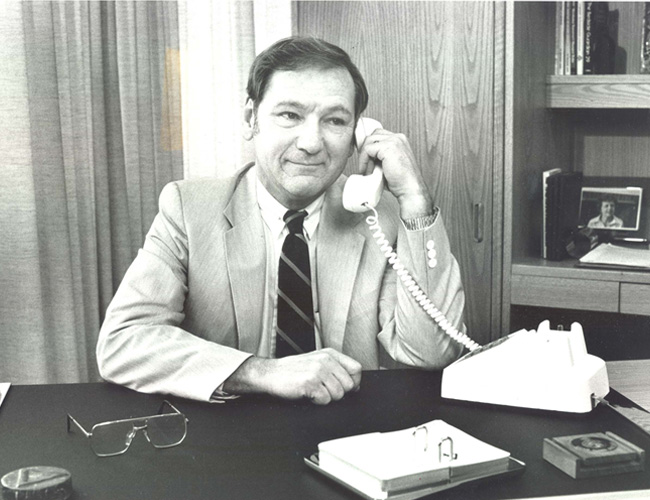

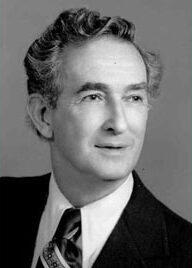
John deBarbadillo is a rare example of a YMCA professional who joined the YMCA as a member, and went on to spend his entire 45-year career in the same association.
After graduating from York Collegiate Institute, deBarbadillo became the assistant to the boys’ physical director, eventually taking on responsibility for physical education, camping, and youth leadership programs. He had particular success in aquatics programs, coaching years of undefeated teams, producing several national champions and one Olympic swimmer. He helped to develop the modern butterfly stroke and the station-to-station method of teaching the crawl stoke.
He also developed the Tadpole program, which served as the premier preschool swim program of the National YMCA. He wrote the rules and regulations for the Masters Swimming competition and acted as the meet director for the first National YMCA Masters Championship in York in 1981. deBarbadillo was enshrined in the International Swimming Hall of Fame in 1998.
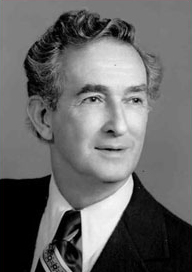
1999 INDUCTEE John deBarbadillo (1925-1996)
John deBarbadillo is a rare example of a YMCA professional who joined the YMCA as a member, and went on to spend his entire 45-year career in the same association.
After graduating from York Collegiate Institute, deBarbadillo became the assistant to the boys’ physical director, eventually taking on responsibility for physical education, camping, and youth leadership programs. He had particular success in aquatics programs, coaching years of undefeated teams, producing several national champions and one Olympic swimmer. He helped to develop the modern butterfly stroke and the station-to-station method of teaching the crawl stoke.
He also developed the Tadpole program, which served as the premier preschool swim program of the National YMCA. He wrote the rules and regulations for the Masters Swimming competition and acted as the meet director for the first National YMCA Masters Championship in York in 1981. deBarbadillo was enshrined in the International Swimming Hall of Fame in 1998.
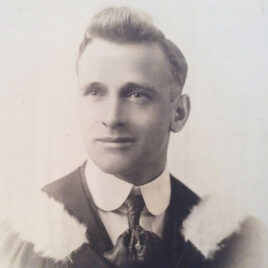
During World War I, Hedley Dimock suffered near-fatal wounds when he fell on top of a German grenade to save the lives of his fellow soldiers. The Nova Scotia native survived-and thrived-years later to eventually become a dynamic teacher, trainer, and mentor of YMCA professional staff in group work, outdoor education, and character development. With a penchant for writing, Dimock penned Rediscovering the Adolescent, which broke new ground in social research and changed the approach to developing YMCA programs from the 1930s through the 1950s. His Camping and Character book is considered an influential treatise on camping. Dimock has been described as someone who was “as much a prophet as he was a scientist.” One of his most significant roles was that of a change agent for the YMCA, as he made a huge impact on the development of YMCA secretaries at home and abroad. At the end of his YMCA career, Dimock served as the director of training and leadership development at the YMCA of San Francisco, where he redesigned that program.
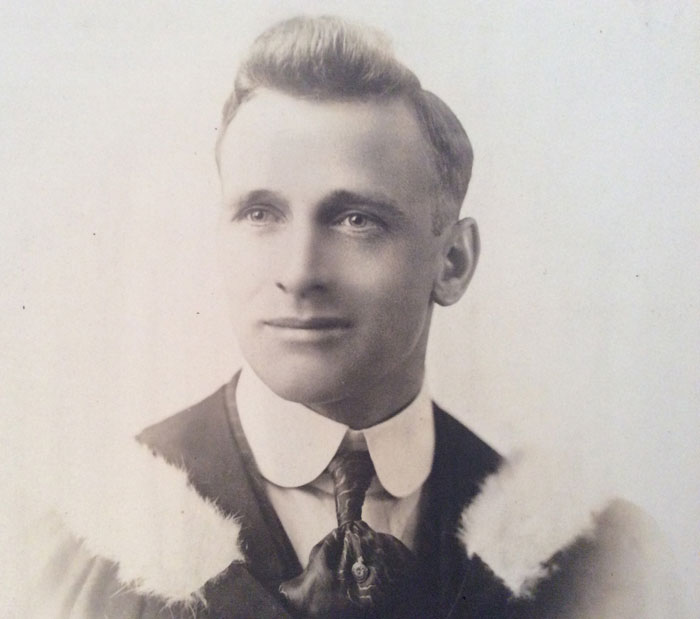
2019 INDUCTEE Dr. Hedley S. Dimock (1891-1958)
During World War I, Hedley Dimock suffered near-fatal wounds when he fell on top of a German grenade to save the lives of his fellow soldiers. The Nova Scotia native survived-and thrived-years later to eventually become a dynamic teacher, trainer, and mentor of YMCA professional staff in group work, outdoor education, and character development. With a penchant for writing, Dimock penned Rediscovering the Adolescent, which broke new ground in social research and changed the approach to developing YMCA programs from the 1930s through the 1950s. His Camping and Character book is considered an influential treatise on camping. Dimock has been described as someone who was “as much a prophet as he was a scientist.” One of his most significant roles was that of a change agent for the YMCA, as he made a huge impact on the development of YMCA secretaries at home and abroad. At the end of his YMCA career, Dimock served as the director of training and leadership development at the YMCA of San Francisco, where he redesigned that program.
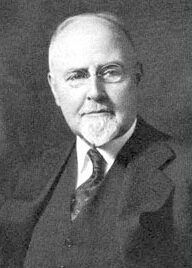
Laurence Doggett’s first involvement with the YMCA was with the Student YMCA at Oberlin College in Ohio. He served one year with the State YMCA of Ohio, before leaving to pursue a doctorial degree at the University of Leipzig (Germany). His thesis at Leipzig was the history of the YMCA, subsequently published as “The History of the Young Men’s Christian Association.” Doggett was appointed Secretary of the State YMCA of Ohio upon his return to the United States.
In 1896, he became president of the International YMCA Training School (now Springfield College), where he served for 40 years. Under Doggett’s leadership, the School became known for its liberal religious teachings and for training leaders both inside and outside the YMCA. During his time as president, the College’s “Humanics” philosophy, which calls for the education of the whole person — in spirit, mind, and body — for leadership in service to humanity, was implemented. The philosophy still guides the College today. Doggett also ran four capital campaigns to establish and build the present-day campus and to create an endowment.
In addition to his work at Springfield College, Doggett also served as “principal” of the YMCA Summer Institutes at the Silver Bay (N.Y.) association, attracting up to 600 Y secretaries for summer training.
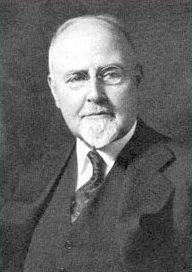
1997 INDUCTEE Laurence L. Doggett (d. 1957)
International YMCA Training School
Laurence Doggett’s first involvement with the YMCA was with the Student YMCA at Oberlin College in Ohio. He served one year with the State YMCA of Ohio, before leaving to pursue a doctorial degree at the University of Leipzig (Germany). His thesis at Leipzig was the history of the YMCA, subsequently published as “The History of the Young Men’s Christian Association.” Doggett was appointed Secretary of the State YMCA of Ohio upon his return to the United States.
In 1896, he became president of the International YMCA Training School (now Springfield College), where he served for 40 years. Under Doggett’s leadership, the School became known for its liberal religious teachings and for training leaders both inside and outside the YMCA. During his time as president, the College’s “Humanics” philosophy, which calls for the education of the whole person — in spirit, mind, and body — for leadership in service to humanity, was implemented. The philosophy still guides the College today. Doggett also ran four capital campaigns to establish and build the present-day campus and to create an endowment.
In addition to his work at Springfield College, Doggett also served as “principal” of the YMCA Summer Institutes at the Silver Bay (N.Y.) association, attracting up to 600 Y secretaries for summer training.
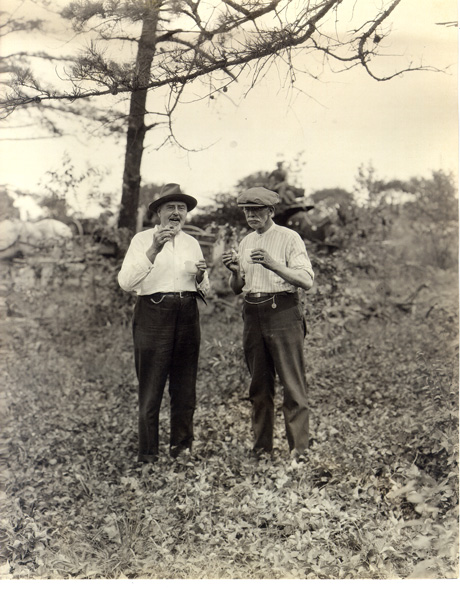
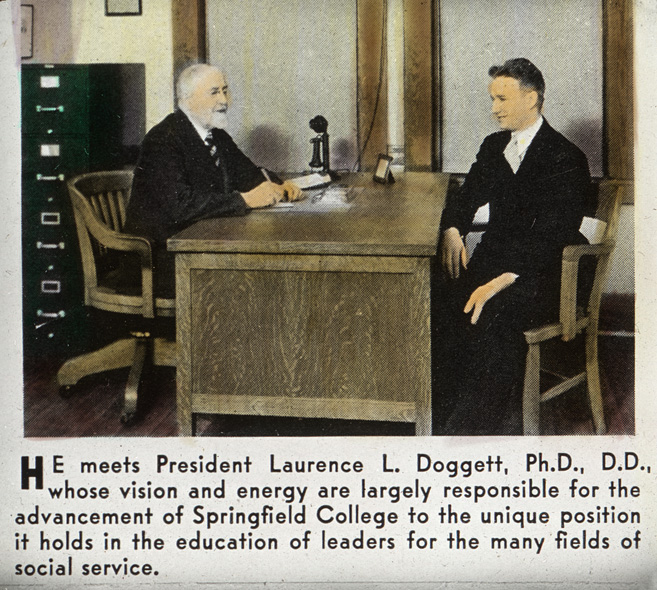
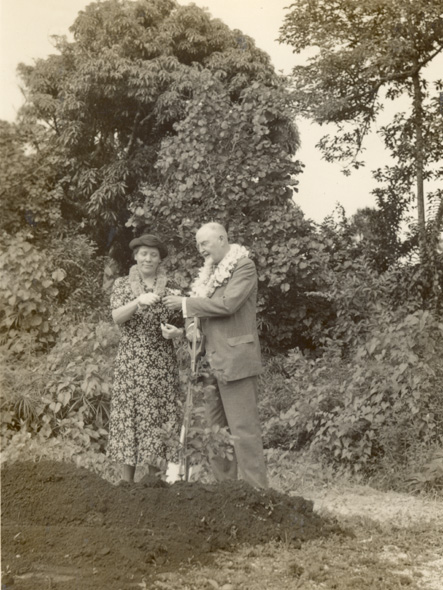
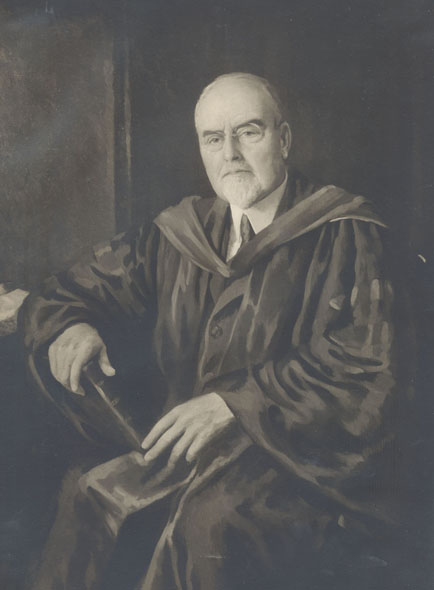
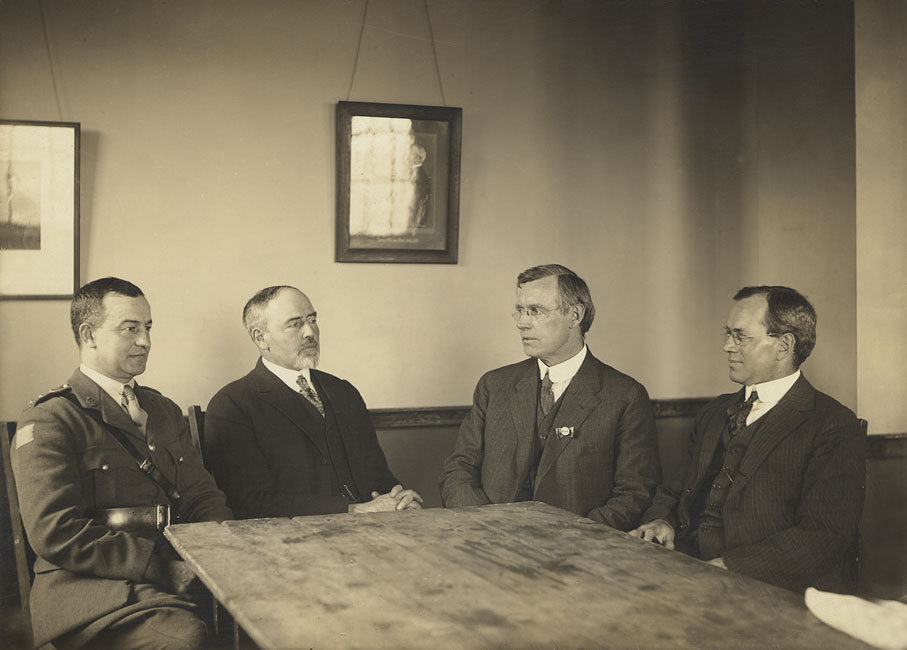
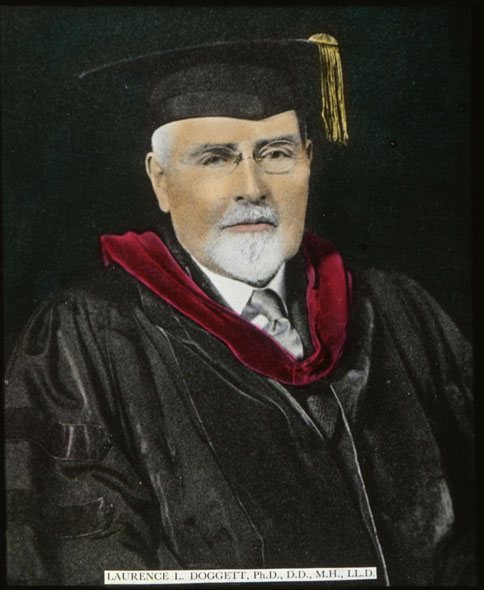
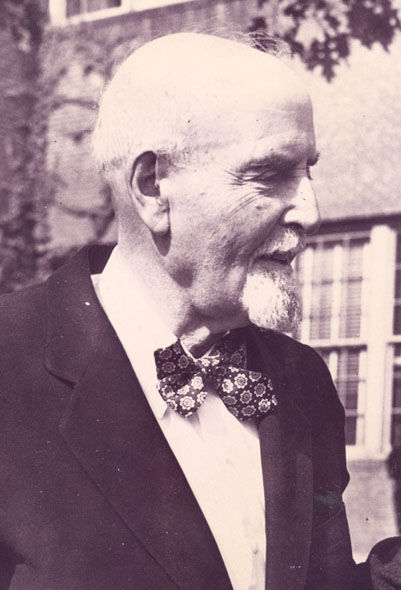
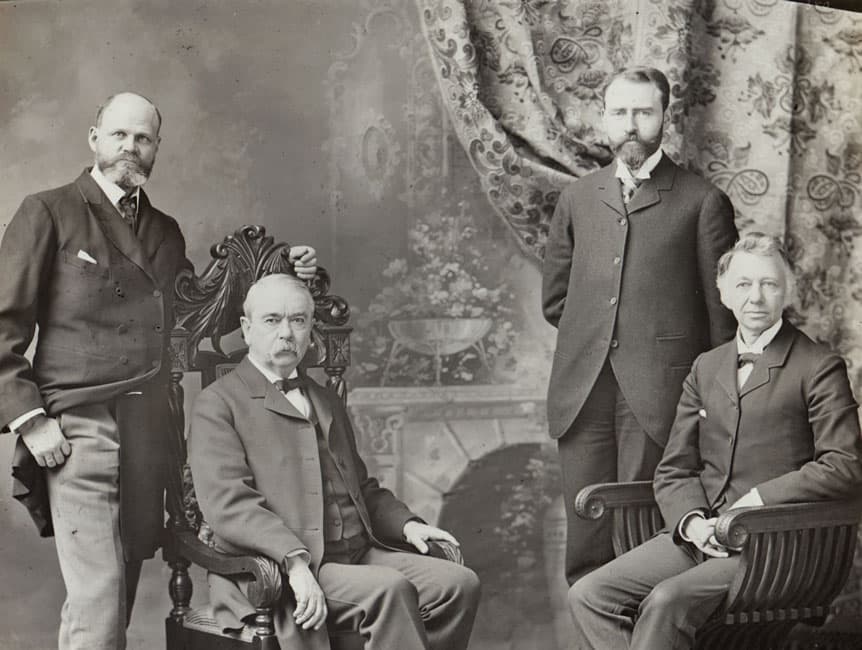
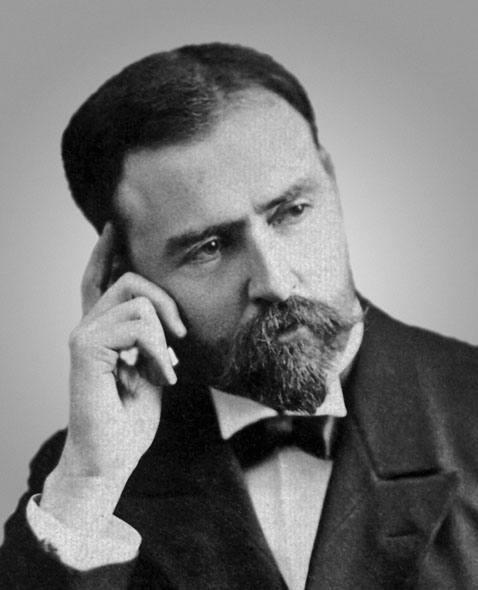
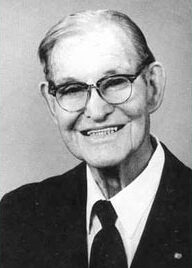
Clifton M. Drury began his YMCA career in the Erie (Pa.) YMCA in 1923. His early career took him to Ys in Michigan: Upper Peninsula, Cadillac, Detroit, and Lansing.
He became the associate director of the Camp Hayo-Went-Ha in 1928, moving into the director position two years later. He remained with the camp until his retirement in 1964. During the off-season, he stayed active as the coordinator of the World Ambassador program, which sent teams of volunteer workers all over the world.
In 1950, he took a five-month leave to join General Douglas MacArthur’s staff in Japan, working with the Ministry of Education to train the youth leadership of the Japanese YMCAs. After retirement, Drury was again drawn to Japan. He served for three years as a special World Service secretary as a consultant to Ys in Asia for camping and outdoor education.
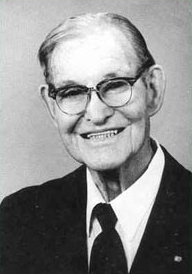
1992 INDUCTEE Clifton M. Drury
Westside Community YMCA
YMCA of Greater Metropolitan Detroit
World Service Program of the YMCA
YMCA of Greater Erie
Clifton M. Drury began his YMCA career in the Erie (Pa.) YMCA in 1923. His early career took him to Ys in Michigan: Upper Peninsula, Cadillac, Detroit, and Lansing.
He became the associate director of the Camp Hayo-Went-Ha in 1928, moving into the director position two years later. He remained with the camp until his retirement in 1964. During the off-season, he stayed active as the coordinator of the World Ambassador program, which sent teams of volunteer workers all over the world.
In 1950, he took a five-month leave to join General Douglas MacArthur’s staff in Japan, working with the Ministry of Education to train the youth leadership of the Japanese YMCAs. After retirement, Drury was again drawn to Japan. He served for three years as a special World Service secretary as a consultant to Ys in Asia for camping and outdoor education.
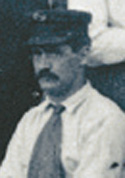
Young men’s work was the heart of the early YMCA, but in the United States, boys’ work soon followed. The pioneer of this focus was Sumner F. Dudley, who served on the staff of the New York State YMCA and as general secretary of the Orange YMCA in New Jersey. Dudley started with a boys literary society and soon convinced the New York State YMCA convention to seat boys as delegates. He organized summer “rambling tours” to the country that, over time, were lengthened into overnight camping experiences. Dudley came to understand — and to convince other YMCA leaders — that the camping experience provided a unique setting for character-building.
In 1891, he established a summer boys camp on Lake Champlain, N.Y. Dudley is often referred to as “the father of YMCA camping.” After his death, the camp he founded was named in his honor. Camp Dudley YMCA is the oldest continually operating boys camp in the United States.

2010 INDUCTEE Sumner F. Dudley (1854-1897)
New York State YMCA
Young men’s work was the heart of the early YMCA, but in the United States, boys’ work soon followed. The pioneer of this focus was Sumner F. Dudley, who served on the staff of the New York State YMCA and as general secretary of the Orange YMCA in New Jersey. Dudley started with a boys literary society and soon convinced the New York State YMCA convention to seat boys as delegates. He organized summer “rambling tours” to the country that, over time, were lengthened into overnight camping experiences. Dudley came to understand — and to convince other YMCA leaders — that the camping experience provided a unique setting for character-building.
In 1891, he established a summer boys camp on Lake Champlain, N.Y. Dudley is often referred to as “the father of YMCA camping.” After his death, the camp he founded was named in his honor. Camp Dudley YMCA is the oldest continually operating boys camp in the United States.
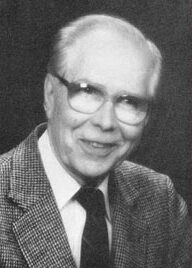
John Dunderdale began an international career in the YMCA as the Boys’ Work secretary of the Windsor, Ontario YMCA-YWCA. After completing a graduate degree from Columbia University in 1935, he returned to Canada as the young men’s secretary of the Toronto Central YMCA.
For the next 27 years, Dunderdale worked as the Boys’ Work secretary for the National YMCAs of India, Burma, Pakistan, and Ceylon. He served as a lecturer at the YMCA College of Physical Education, director of the Staff Training School, secretary of the Personnel Committee, and district secretary. During WWII, he participated in the Emergency Services of the National Council, overseeing 225 centers serving allied forces in India, and later served as the secretary of the Program and Leadership Committee for the World Alliance of YMCAs.
After his official retirement, he served six months as the secretary of the Ottawa office of the Canadian National Council of YMCAs, and then served a one-year appointment as secretary for Refugee Services in Bangladesh. Dunderdale was honored by the YMCA College in Madras and with the Fellowship of Honor from the National Council of YMCAs of Canada.
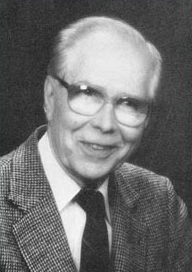
1989 INDUCTEE John H. Dunderdale
National YMCA of Ceylon
National YMCA of India
National YMCA of Pakistan
Toronto Central YMCA
Windsor Ontario YMCA-YWCA
World Alliance of YMCAs
Canadian National Council of YMCAs
John Dunderdale began an international career in the YMCA as the Boys’ Work secretary of the Windsor, Ontario YMCA-YWCA. After completing a graduate degree from Columbia University in 1935, he returned to Canada as the young men’s secretary of the Toronto Central YMCA.
For the next 27 years, Dunderdale worked as the Boys’ Work secretary for the National YMCAs of India, Burma, Pakistan, and Ceylon. He served as a lecturer at the YMCA College of Physical Education, director of the Staff Training School, secretary of the Personnel Committee, and district secretary. During WWII, he participated in the Emergency Services of the National Council, overseeing 225 centers serving allied forces in India, and later served as the secretary of the Program and Leadership Committee for the World Alliance of YMCAs.
After his official retirement, he served six months as the secretary of the Ottawa office of the Canadian National Council of YMCAs, and then served a one-year appointment as secretary for Refugee Services in Bangladesh. Dunderdale was honored by the YMCA College in Madras and with the Fellowship of Honor from the National Council of YMCAs of Canada.
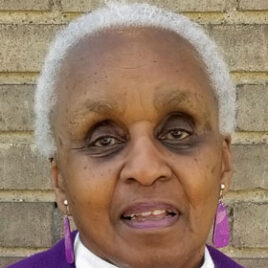
Jean Ann Durades made her mark in the YMCA as a champion for multicultural leadership development, in particular in her work providing training and networking opportunities for young black staff (program and executive) to aspire to leadership positions in the Y Movement. She also coached and counseled black staff to envision themselves beyond their current programs and home branches to include higher-level positions that could be leveraged to assist other up-and-coming staff. Her work expanded internationally, especially in Africa, where she traveled on behalf of the Y on several occasions. Durades began her career with the YMCA in 1963 as a program counselor for the YMCA of Metro Chicago. After holding other counselor positions, in 1970 she became the first African American female management consultant on the staff of the National Council of YMCAs in Region 1. She held that position for 22 years until her retirement in 1992.
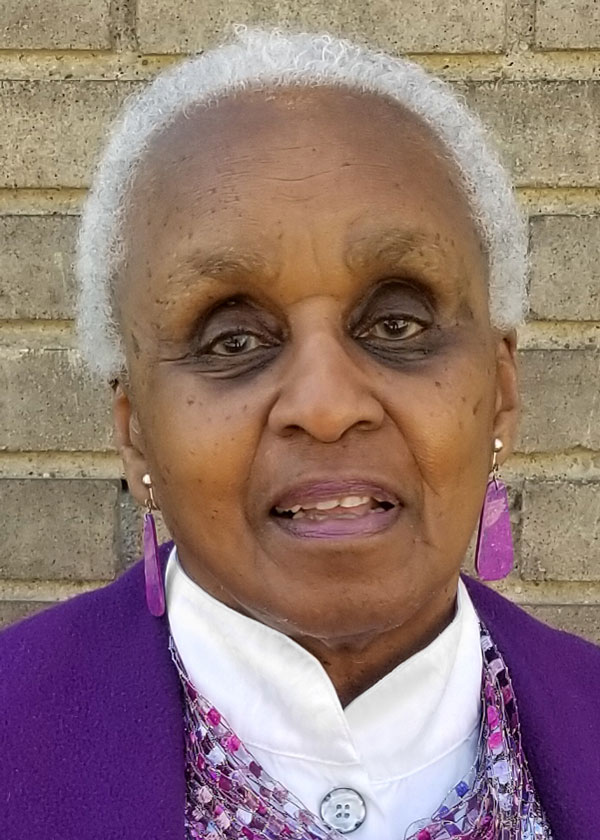
2019 INDUCTEE Jean Ann Durades
National Council of YMCAs
Jean Ann Durades made her mark in the YMCA as a champion for multicultural leadership development, in particular in her work providing training and networking opportunities for young black staff (program and executive) to aspire to leadership positions in the Y Movement. She also coached and counseled black staff to envision themselves beyond their current programs and home branches to include higher-level positions that could be leveraged to assist other up-and-coming staff. Her work expanded internationally, especially in Africa, where she traveled on behalf of the Y on several occasions. Durades began her career with the YMCA in 1963 as a program counselor for the YMCA of Metro Chicago. After holding other counselor positions, in 1970 she became the first African American female management consultant on the staff of the National Council of YMCAs in Region 1. She held that position for 22 years until her retirement in 1992.
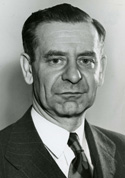
Clement “Pete” Duran, originator of the YMCA Youth and Government program, started his career as a desk clerk at the Amsterdam, N.Y., YMCA. The YMCA was so impressed with his abilities that they asked him to become the assistant athletic director. Duran accepted, and, in 1919 at the age of 17, he officially entered association work.
Amsterdam was followed by Poughkeepsie, where Duran worked to form the Ki-Y, a youth mentoring partnership with the local Kiwanis Club. From there, he went to Yonkers, and finally to Albany, where Duran began to articulate his thoughts for a program designed to train youth in good citizenship. He later became associate director of Association Press. However, his role as creator of the Youth and Government program, which is now active in more than 40 states and the District of Columbia, is his most enduring legacy. His vision that “democracy must be learned by each generation” is still the motto of the Youth and Government program. Duran was the author of “The Program Encyclopedia” and “The New Encyclopedia of Successful Program Ideas,” both of which were widely used in YMCAs.

2010 INDUCTEE Clement Duran (1902-1983)
Amsterdam Family YMCA
Old Poughkeepsie YMCA
YMCA of Yonkers Inc
Clement “Pete” Duran, originator of the YMCA Youth and Government program, started his career as a desk clerk at the Amsterdam, N.Y., YMCA. The YMCA was so impressed with his abilities that they asked him to become the assistant athletic director. Duran accepted, and, in 1919 at the age of 17, he officially entered association work.
Amsterdam was followed by Poughkeepsie, where Duran worked to form the Ki-Y, a youth mentoring partnership with the local Kiwanis Club. From there, he went to Yonkers, and finally to Albany, where Duran began to articulate his thoughts for a program designed to train youth in good citizenship. He later became associate director of Association Press. However, his role as creator of the Youth and Government program, which is now active in more than 40 states and the District of Columbia, is his most enduring legacy. His vision that “democracy must be learned by each generation” is still the motto of the Youth and Government program. Duran was the author of “The Program Encyclopedia” and “The New Encyclopedia of Successful Program Ideas,” both of which were widely used in YMCAs.
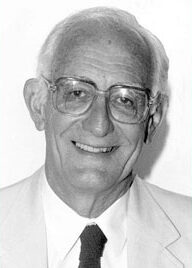
Bob Dye began his YMCA career in the Los Angeles association following his service in the European Theater of Operations during WWII. In 1951, he was appointed the executive director of the Nuuanu Branch in Honolulu (Hawaii), the first Hawaiian organization to bring all races together in a fully integrated institution.
During the late 1960s, he was the director of urban development and extension on the national staff, where he helped design a system that could be responsive to the rapidly changing needs and issues of society. He served as the director of the Urban Action and Program Division through the 1970s, helping to develop the National Center for Youth Outreach Workers, the National Family Communication Skills Center, the National Juvenile Justice Project, the National Youth Project Using Minibikes (NYPUM), and the Youth Basketball Association.
In 1983, he joined the World Alliance of YMCAs in Geneva, Switzerland, as coordinator of program services, with a particular responsibility for the PEACE portfolio. He also served as World Alliance liaison with the United Nations.
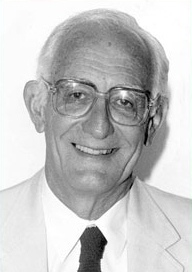
1998 INDUCTEE Robert R. Dye (1921-2002)
YMCA of Greater Los Angeles
YMCA of Honolulu
Bob Dye began his YMCA career in the Los Angeles association following his service in the European Theater of Operations during WWII. In 1951, he was appointed the executive director of the Nuuanu Branch in Honolulu (Hawaii), the first Hawaiian organization to bring all races together in a fully integrated institution.
During the late 1960s, he was the director of urban development and extension on the national staff, where he helped design a system that could be responsive to the rapidly changing needs and issues of society. He served as the director of the Urban Action and Program Division through the 1970s, helping to develop the National Center for Youth Outreach Workers, the National Family Communication Skills Center, the National Juvenile Justice Project, the National Youth Project Using Minibikes (NYPUM), and the Youth Basketball Association.
In 1983, he joined the World Alliance of YMCAs in Geneva, Switzerland, as coordinator of program services, with a particular responsibility for the PEACE portfolio. He also served as World Alliance liaison with the United Nations.
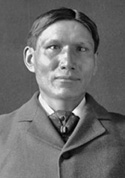
One of the first Native American YMCA secretaries, Dr. Charles Eastman, a Sioux Indian and a physician, began his work for the movement in 1894. Over the next three years, he established 32 Indian YMCA groups on reservations. A highly educated man, Eastman was able to navigate white culture and advocate for native populations. Under the auspices of the International Committee (the forerunner of the YMCA of the USA), he oversaw 25 Indian YMCA associations. He also worked as a physician for the Bureau of Indian Affairs and cared for Indians after the Wounded Knee Massacre. Eastman had a lifelong commitment to boys and young men and is regarded as one of the founders of the Boy Scouts of America.

2010 INDUCTEE Charles Eastman (1858-1939)
Indian Reservation YMCAs
One of the first Native American YMCA secretaries, Dr. Charles Eastman, a Sioux Indian and a physician, began his work for the movement in 1894. Over the next three years, he established 32 Indian YMCA groups on reservations. A highly educated man, Eastman was able to navigate white culture and advocate for native populations. Under the auspices of the International Committee (the forerunner of the YMCA of the USA), he oversaw 25 Indian YMCA associations. He also worked as a physician for the Bureau of Indian Affairs and cared for Indians after the Wounded Knee Massacre. Eastman had a lifelong commitment to boys and young men and is regarded as one of the founders of the Boy Scouts of America.
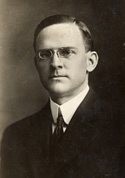
A contemporary and colleague of John R. Mott, G. Sherwood Eddy was one of the best-known evangelists and religious writers of his day. In 1896, he went to India at his own expense and worked at the YMCA-organized Indian Student Volunteer Movement, serving as its secretary for the next 15 years. In 1911, he was appointed secretary for Asia by the International Committee and he divided his time between evangelistic campaigns in Asia and fundraising in North America. Huge crowds would flock to his meetings in China, where he and Mott fostered YMCA programs that engaged many thousands of men and boys. Eddy served in World War I, and during World War II, wrote in support of armed resistance to the Nazi threat, though he later became a pacifist. He was the author of 37 books, mostly on religious themes. In 35 years of work for the YMCA International Committee, Eddy never once received a salary.

2010 INDUCTEE G. Sherwood Eddy (1871-1963)
International Committee of the YMCA
YMCA Indian Volunteer Student Movement
A contemporary and colleague of John R. Mott, G. Sherwood Eddy was one of the best-known evangelists and religious writers of his day. In 1896, he went to India at his own expense and worked at the YMCA-organized Indian Student Volunteer Movement, serving as its secretary for the next 15 years. In 1911, he was appointed secretary for Asia by the International Committee and he divided his time between evangelistic campaigns in Asia and fundraising in North America. Huge crowds would flock to his meetings in China, where he and Mott fostered YMCA programs that engaged many thousands of men and boys. Eddy served in World War I, and during World War II, wrote in support of armed resistance to the Nazi threat, though he later became a pacifist. He was the author of 37 books, mostly on religious themes. In 35 years of work for the YMCA International Committee, Eddy never once received a salary.
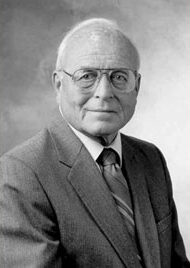
Samuel Edgar began his YMCA career as the physical director and adult program secretary at the Winona (Minn.) YMCA in 1954. Just two years later, he was promoted to general secretary.
He served on the North Central Area field staff in the early 1960s, and was appointed general secretary in Des Moines (Iowa) in 1966. For 14 years, beginning in 1974, he was president and chief executive officer of the YMCA of Greater St. Louis (Mo.). Under his leadership, the association experienced major growth, increasing its budget from $2 million to $18 million. Six new branches were developed as a result of $33 million of capital development.
Edgar chaired the North American Urban Group of YMCAs and the YMCA Employees Alliance. He served on a number of national and international YMCA boards and committees. He also served on the YMCA National Executive Director Search Committee and the YMCA Hall of Fame Selection Committee.
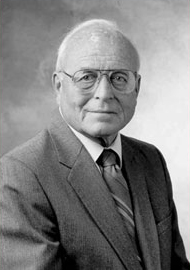
1997 INDUCTEE Samuel A. Edgar
YMCA of Greater Des Moines Iowa
YMCA of Greater St. Louis
Samuel Edgar began his YMCA career as the physical director and adult program secretary at the Winona (Minn.) YMCA in 1954. Just two years later, he was promoted to general secretary.
He served on the North Central Area field staff in the early 1960s, and was appointed general secretary in Des Moines (Iowa) in 1966. For 14 years, beginning in 1974, he was president and chief executive officer of the YMCA of Greater St. Louis (Mo.). Under his leadership, the association experienced major growth, increasing its budget from $2 million to $18 million. Six new branches were developed as a result of $33 million of capital development.
Edgar chaired the North American Urban Group of YMCAs and the YMCA Employees Alliance. He served on a number of national and international YMCA boards and committees. He also served on the YMCA National Executive Director Search Committee and the YMCA Hall of Fame Selection Committee.
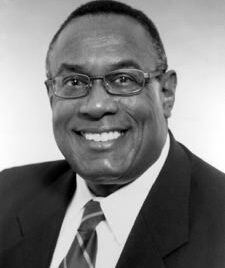
Dr. David E. Epperson was a distinguished local and national Y volunteer. He served for more than 50 years on the YMCA of Greater Pittsburgh’s Board of Directors, including board chair and numerous other roles. He was instrumental for the Pittsburgh YMCA to be placed with more than 400 interns in YMCA posts, many from the School of Social work where he was Dean for the School of Social Work at the University of Pittsburgh. He was particularly passionate about the Y’s international work. In 1991 he joined Y-USA’s International Committee. He became the first African American Chairman of the National Board of Directors for the YMCA of the USA Y-USA Board Chair from January 2005 to June 2007.
Epperson was the first African-American YMCA World Service Worker Fellowship recipient in community development, serving a year at the Chinese University in Hong Kong after college graduation in 1961. Dr. Epperson was a delegate to nine World Council Meetings and served on the World Alliance Executive Committee from 1998 to 2002. He was a delegate for the YMCA at the 2010 World Council in Durban, South Africa. Dr. Epperson was deeply committed to the YMCA, a true YMCA icon.
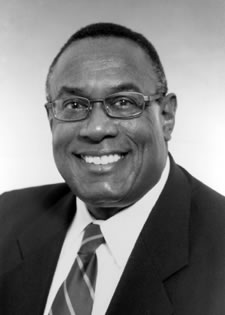
2016 INDUCTEE Dr. David Epperson (1935-2011)
YMCA of the USA
World Alliance Executive Committee
Dr. David E. Epperson was a distinguished local and national Y volunteer. He served for more than 50 years on the YMCA of Greater Pittsburgh’s Board of Directors, including board chair and numerous other roles. He was instrumental for the Pittsburgh YMCA to be placed with more than 400 interns in YMCA posts, many from the School of Social work where he was Dean for the School of Social Work at the University of Pittsburgh. He was particularly passionate about the Y’s international work. In 1991 he joined Y-USA’s International Committee. He became the first African American Chairman of the National Board of Directors for the YMCA of the USA Y-USA Board Chair from January 2005 to June 2007.
Epperson was the first African-American YMCA World Service Worker Fellowship recipient in community development, serving a year at the Chinese University in Hong Kong after college graduation in 1961. Dr. Epperson was a delegate to nine World Council Meetings and served on the World Alliance Executive Committee from 1998 to 2002. He was a delegate for the YMCA at the 2010 World Council in Durban, South Africa. Dr. Epperson was deeply committed to the YMCA, a true YMCA icon.
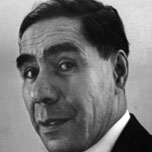
Joe Friday was an American Indian of the Ojibway Tribe, born in a wigwam in northern Canada. Along with YMCA Director Harold Keltner and William Hefelfinger, Friday is credited as a founder of the first father-son YMCA Indian Guide tribe in St. Louis in 1925. Friday had been a guide for Keltner’s hunting and fishing trips in Canada and Keltner invited Friday to come and work with him at the St. Louis association. Friday spoke before groups of boys and dads at the YMCA and found a keen interest in the Native American culture. The Indian Guides program grew out of those experiences. According to Indian Guide literature, Friday told Keltner, “The Indian father raises his son. He teaches his son to hunt, track, fish, walk softly and silently in the forest, know the meaning and purpose of life and all he must know, while the white man allows another to raise his son.” Although the Indian Guides program has become Adventure Guides, the legacy of Friday and Keltner lives on in the father-son bonding experience.
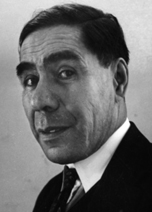
2013 INDUCTEE Joe Friday (1888-1955)
Joe Friday was an American Indian of the Ojibway Tribe, born in a wigwam in northern Canada. Along with YMCA Director Harold Keltner and William Hefelfinger, Friday is credited as a founder of the first father-son YMCA Indian Guide tribe in St. Louis in 1925. Friday had been a guide for Keltner’s hunting and fishing trips in Canada and Keltner invited Friday to come and work with him at the St. Louis association. Friday spoke before groups of boys and dads at the YMCA and found a keen interest in the Native American culture. The Indian Guides program grew out of those experiences. According to Indian Guide literature, Friday told Keltner, “The Indian father raises his son. He teaches his son to hunt, track, fish, walk softly and silently in the forest, know the meaning and purpose of life and all he must know, while the white man allows another to raise his son.” Although the Indian Guides program has become Adventure Guides, the legacy of Friday and Keltner lives on in the father-son bonding experience.
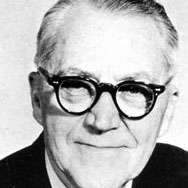
Harold Friermood is known as the “grandfather of volleyball” and is recognized as the person who brought volleyball to the Olympics. He earned his undergraduate degree from George Williams College and his doctorate from New York University.
During the late 1930s, Friermood served as associate physical director for the Chicago and Dayton (Ohio) YMCAs. From 1943 to 1968, he was the director of health, physical education, recreation, and sports, on the national staff. He was a member of the U.S. Olympic Committee from 1944 to 1985, and provided leadership to numerous national and international volleyball associations.
Friermood was elected as a lifetime member of the National YMCA Physical Education Society in 1967. He was also the first recipient of the U. S. Volleyball Association’s Frier Award, which was named for him. Dr. Friermood received the Association of YMCA Professionals (AYP) Roberts-Gulick award in 1944 and was also honored by the President’s Council of Physical Education.
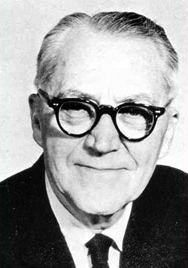
1988 INDUCTEE Harold T. Friermood (1902-1999)
YMCA of Metropolitan Chicago
YMCA of the USA
Harold Friermood is known as the “grandfather of volleyball” and is recognized as the person who brought volleyball to the Olympics. He earned his undergraduate degree from George Williams College and his doctorate from New York University.
During the late 1930s, Friermood served as associate physical director for the Chicago and Dayton (Ohio) YMCAs. From 1943 to 1968, he was the director of health, physical education, recreation, and sports, on the national staff. He was a member of the U.S. Olympic Committee from 1944 to 1985, and provided leadership to numerous national and international volleyball associations.
Friermood was elected as a lifetime member of the National YMCA Physical Education Society in 1967. He was also the first recipient of the U. S. Volleyball Association’s Frier Award, which was named for him. Dr. Friermood received the Association of YMCA Professionals (AYP) Roberts-Gulick award in 1944 and was also honored by the President’s Council of Physical Education.
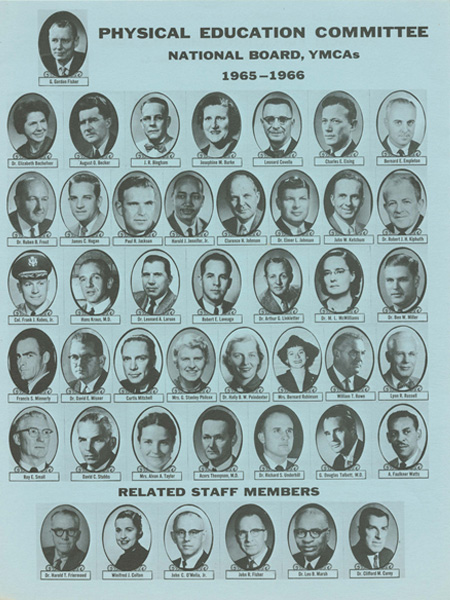
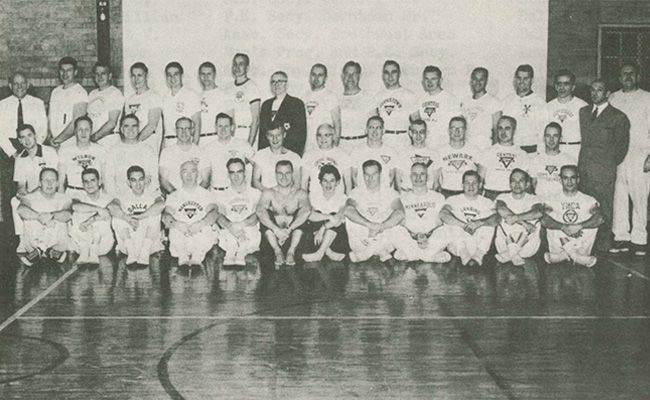
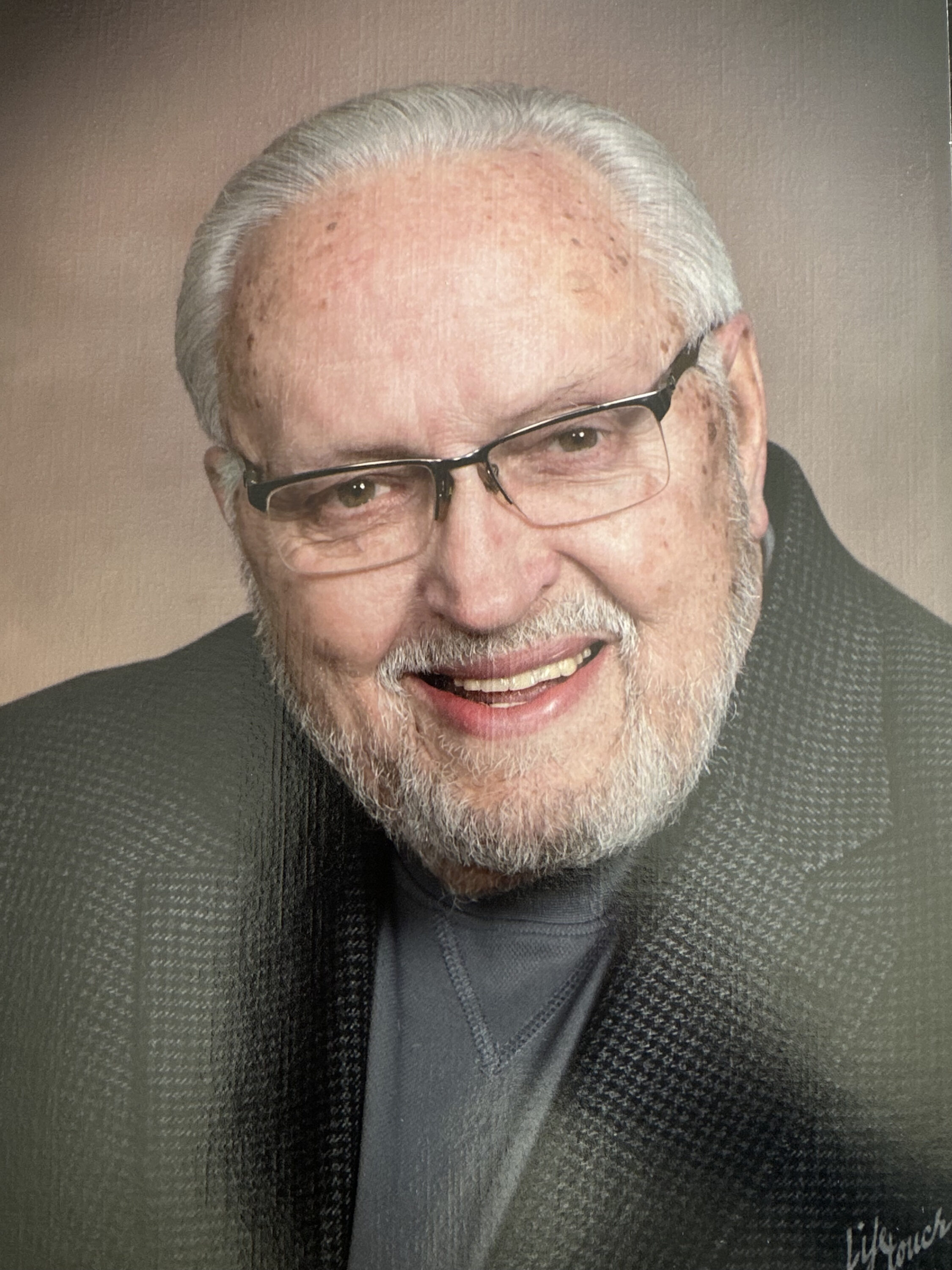
James Garland Stooke’s professional experience at the YMCA is a tale of two careers. The first 18 years, Stooke worked in professional positions in YMCAs around the country. He first began in Atlanta, Ga., serving as a community program director. He then moved to Memphis, Tenn., to become executive director of the Davis branch, which was right down the street from Elvis Presley’s Graceland. Five years later, Stooke accepted a position of vice president of program with the Central Florida YMCA. Then, he moved on to Kansas City, Mo., where he was the vice president of YMCA program and staff development. However, most of his colleagues are most impressed and familiar with Stooke’s work with the YMCA Association of Professional Directors (APD), which he took up in the mid 70s. Eventually becoming CEO of the APD, Stooke rekindled a spark of pride in being both a YMCA and APD member. During his 19-year tenure, APD membership grew from 3,050 to 5,900 members in 2000, established new models and programs in the form of conferences and workshops, and provided development opportunities for all YMCA staff. Stooke’s work developing tool kits and conducting trainings all over the country bolstered the development of thousands of YMCA staff members, creating a robust internal pool of extremely qualified professionals. From his teaching, both directly and indirectly, Stooke left the YMCA and APD with a well-informed training and development regiment that is still being used today.

2023 INDUCTEE James Garland Stooke
Northside Branch YMCA, Atlanta
Davis Branch YMCA
Central Florida YMCA
Missouri YMCA
James Garland Stooke’s professional experience at the YMCA is a tale of two careers. The first 18 years, Stooke worked in professional positions in YMCAs around the country. He first began in Atlanta, Ga., serving as a community program director. He then moved to Memphis, Tenn., to become executive director of the Davis branch, which was right down the street from Elvis Presley’s Graceland. Five years later, Stooke accepted a position of vice president of program with the Central Florida YMCA. Then, he moved on to Kansas City, Mo., where he was the vice president of YMCA program and staff development. However, most of his colleagues are most impressed and familiar with Stooke’s work with the YMCA Association of Professional Directors (APD), which he took up in the mid 70s. Eventually becoming CEO of the APD, Stooke rekindled a spark of pride in being both a YMCA and APD member. During his 19-year tenure, APD membership grew from 3,050 to 5,900 members in 2000, established new models and programs in the form of conferences and workshops, and provided development opportunities for all YMCA staff. Stooke’s work developing tool kits and conducting trainings all over the country bolstered the development of thousands of YMCA staff members, creating a robust internal pool of extremely qualified professionals. From his teaching, both directly and indirectly, Stooke left the YMCA and APD with a well-informed training and development regiment that is still being used today.
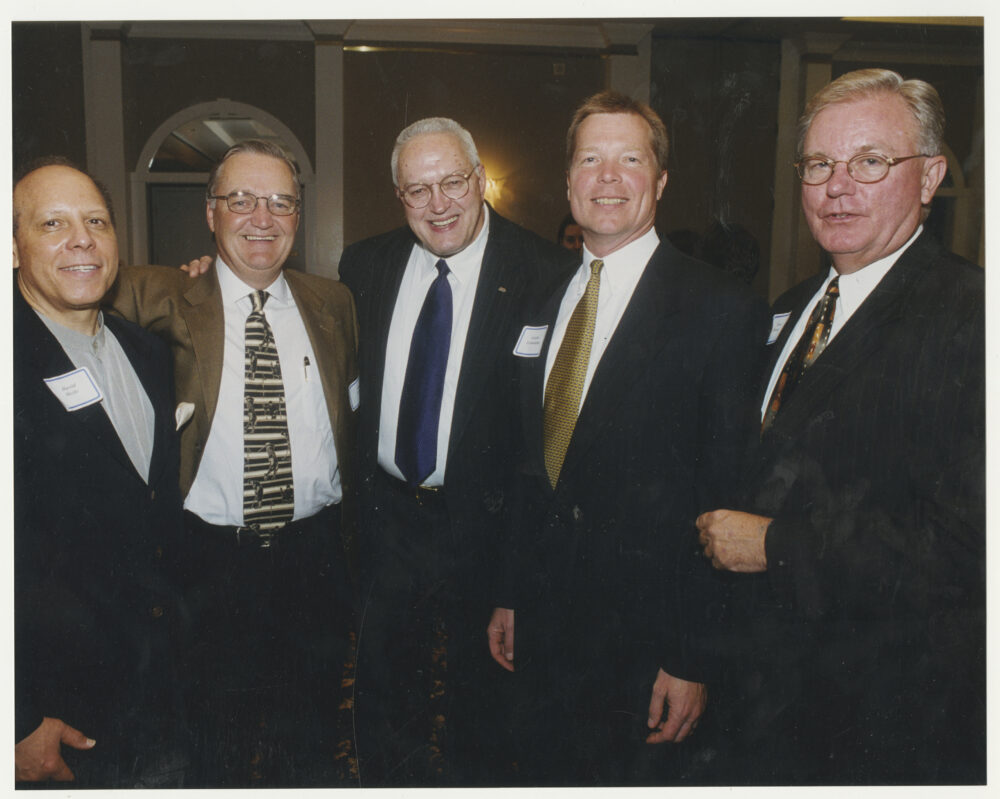
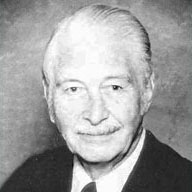
Harper Glezen began his career working for the C&E Railroad YMCA in 1927. During the 1930s, he served on the staffs of the Chicago and Peoria (Ill.) YMCAs.
For four years, he was the executive secretary of the North Side Branch of the St. Louis (Mo.) YMCA. In the 1940s, he served as the first director of camping and then executive director of the West Central Area Council. In 1949, he began a 19- year tenure as general secretary of the Minneapolis (Minn.) YMCA.
He was actively involved in the Association of Secretaries, serving as both program and general chairman of the Annual Conference of the Midwest Chapter. He was honored as a distinguished alumnus at George Williams College for his volunteer efforts.
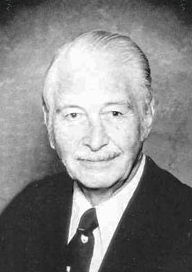
1988 INDUCTEE H. Harper Glezen
Greater Peoria Family YMCA
North Side Branch of the St. Louis YMCA
YMCA of Metropolitan Chicago
YMCA of Metropolitan Minneapolis
West Central Area Council
Harper Glezen began his career working for the C&E Railroad YMCA in 1927. During the 1930s, he served on the staffs of the Chicago and Peoria (Ill.) YMCAs.
For four years, he was the executive secretary of the North Side Branch of the St. Louis (Mo.) YMCA. In the 1940s, he served as the first director of camping and then executive director of the West Central Area Council. In 1949, he began a 19- year tenure as general secretary of the Minneapolis (Minn.) YMCA.
He was actively involved in the Association of Secretaries, serving as both program and general chairman of the Annual Conference of the Midwest Chapter. He was honored as a distinguished alumnus at George Williams College for his volunteer efforts.
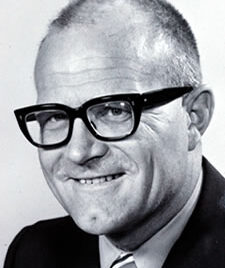
Forty years ago, if Y members wanted to determine their levels of physical fitness, they would have to report to a research laboratory. In the late 1960’s, YMCA of the USA approached Dr. Golding, director of exercise physiology at Kent State University in Ohio, to help standardize adult fitness testing so that Y staff nationwide could conduct tests in the same way.
Unveiled in 1971, the “Y’s Way to Physical Fitness” program became the first national fitness testing protocol by any organization. The battery of tests not only reflected the most-up-to-date scientific information, but it was simple to administer and interpret, it required a minimum of equipment, it required little time to administer, it was within the YMCA fitness director’s capabilities, it reflected changes in the fitness parameters that were emphasized in most YMCA fitness classes, and it was safe when administered according to the established protocols. Over the next 25 years, more than 8,000 people became certified as YMCA fitness specialists.
In 1993 he received the prestigious “Healthy American Award”, by the President’s Council on Physical Fitness and Sports, and the U.S. Jaycees. Golding was honored in 1995 with the YMCA of the USA National Treasure award.
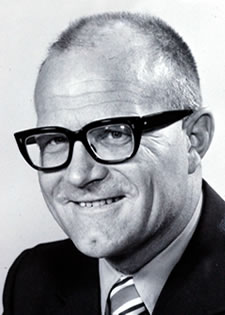
2016 INDUCTEE Dr. Lawrence A. Golding (1926-2018)
Forty years ago, if Y members wanted to determine their levels of physical fitness, they would have to report to a research laboratory. In the late 1960’s, YMCA of the USA approached Dr. Golding, director of exercise physiology at Kent State University in Ohio, to help standardize adult fitness testing so that Y staff nationwide could conduct tests in the same way.
Unveiled in 1971, the “Y’s Way to Physical Fitness” program became the first national fitness testing protocol by any organization. The battery of tests not only reflected the most-up-to-date scientific information, but it was simple to administer and interpret, it required a minimum of equipment, it required little time to administer, it was within the YMCA fitness director’s capabilities, it reflected changes in the fitness parameters that were emphasized in most YMCA fitness classes, and it was safe when administered according to the established protocols. Over the next 25 years, more than 8,000 people became certified as YMCA fitness specialists.
In 1993 he received the prestigious “Healthy American Award”, by the President’s Council on Physical Fitness and Sports, and the U.S. Jaycees. Golding was honored in 1995 with the YMCA of the USA National Treasure award.
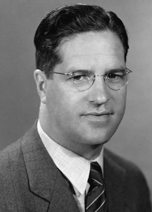
Hugo Grassi had a career that earned him the distinction of being called “the John R. Mott of South America.” A 1925 graduate of Springfield College, Grassi was the first physical director of the Montevideo YMCA in Uruguay and eventually became the general secretary there. In 1940, he was elected South American general secretary of the South American Federation of YMCAs. Under his leadership the federation established new associations and constructed new YMCA buildings. By 1950, there were 14 YMCA associations in South America that served 300,000 people. In 1956, he joined the World Alliance staff in Geneva.

2013 INDUCTEE Hugo Grassi (1895-1985)
Montevideo YMCA
South American Federation of YMCAs
Hugo Grassi had a career that earned him the distinction of being called “the John R. Mott of South America.” A 1925 graduate of Springfield College, Grassi was the first physical director of the Montevideo YMCA in Uruguay and eventually became the general secretary there. In 1940, he was elected South American general secretary of the South American Federation of YMCAs. Under his leadership the federation established new associations and constructed new YMCA buildings. By 1950, there were 14 YMCA associations in South America that served 300,000 people. In 1956, he joined the World Alliance staff in Geneva.
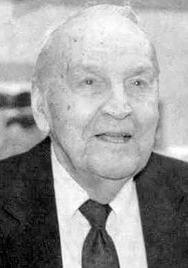
Francis E. Gray served the YMCA for more than 71 years, beginning in 1917. After graduating from Oberlin College, he served with the YMCA Red Triangle during World War I.
He returned to serve two years at the Y in Worcester (Mass.), prior to his appointment as the industrial secretary at the Troy (N.Y.) YMCA. He was the general secretary for the Saginaw (Mich.) YMCA during the 1930s. Beginning in 1937, he spent 24 years as the general secretary of the Hartford (Conn.) Y, retiring in 1961.
Gray’s tenure in Hartford was marked by a 300 percent increase in volunteer participation, as well as a dramatic expansion of the program offerings. Long after his retirement, he remained an active volunteer for the Hartford YMCA. Gray received honorary doctorates from both the Hillyer College, which began as a YMCA educational institute, and Springfield College.

1990 INDUCTEE Francis E. Gray (1896-1995)
YMCA in Saginaw
YMCA of Greater Worcester
YMCA of Metropolitan Hartford
Francis E. Gray served the YMCA for more than 71 years, beginning in 1917. After graduating from Oberlin College, he served with the YMCA Red Triangle during World War I.
He returned to serve two years at the Y in Worcester (Mass.), prior to his appointment as the industrial secretary at the Troy (N.Y.) YMCA. He was the general secretary for the Saginaw (Mich.) YMCA during the 1930s. Beginning in 1937, he spent 24 years as the general secretary of the Hartford (Conn.) Y, retiring in 1961.
Gray’s tenure in Hartford was marked by a 300 percent increase in volunteer participation, as well as a dramatic expansion of the program offerings. Long after his retirement, he remained an active volunteer for the Hartford YMCA. Gray received honorary doctorates from both the Hillyer College, which began as a YMCA educational institute, and Springfield College.
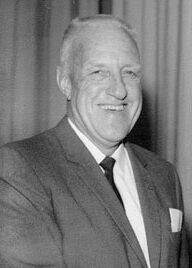
As a young physical director at the Selma (Ala.) YMCA , Paul Grist was a strong force in the development of the Blue Ridge Leaders School. Fifteen years later, in 1934, he was promoted to general secretary in Selma, and remained there until his retirement in 1964.
During WWII he served simultaneously as the director of the YMCA and the USO/YMCA Club in Selma. In Selma, he established Camp McGee and Camp Grist. He also acted as dean of the YMCA Blue Ridge Physical Leaders School. He was a long-time member of the Rotary Club, serving as president and as a member of several local and international committees.
He received an honorary doctor of humanities degree from the University of Alabama. The Valley Creek State Park in Selma was renamed the Paul M.Grist State Park in his honor.
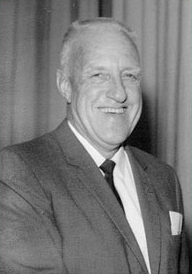
1997 INDUCTEE Paul M. Grist (1898-1982)
As a young physical director at the Selma (Ala.) YMCA , Paul Grist was a strong force in the development of the Blue Ridge Leaders School. Fifteen years later, in 1934, he was promoted to general secretary in Selma, and remained there until his retirement in 1964.
During WWII he served simultaneously as the director of the YMCA and the USO/YMCA Club in Selma. In Selma, he established Camp McGee and Camp Grist. He also acted as dean of the YMCA Blue Ridge Physical Leaders School. He was a long-time member of the Rotary Club, serving as president and as a member of several local and international committees.
He received an honorary doctor of humanities degree from the University of Alabama. The Valley Creek State Park in Selma was renamed the Paul M.Grist State Park in his honor.
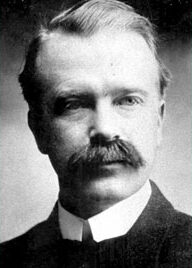
Born to missionary parents in Hawaii, Luther Gulick traveled the world by the time he was a teenager. He attended both Oberlin College and Sargent Normal School of Physical Training for short periods of time, leaving to become the gymnasium supervisor at the Jackson (Mich.) YMCA. He enrolled at New York University and received his medical degree in 1889 at the age of 24.
For the next 13 years, he served concurrently as the International Committee secretary for physical work and director of physical education programs at the School for Christian Workers (now Springfield College). At the School, he also worked as part of the Department of YMCA Secretaries.
Gulick also promoted health and physical education in the public education system in New York City. Described by C. Howard Hopkins as “the most unique genius to touch the first half century of the American YMCA,” Gulick was responsible for introducing new ideas and practices that forever changed physical education, sport, and health instruction.
While at Springfield College, he invented the spirit-mind-body inverted triangle (the College’s emblem) to symbolize the concept of wellness. He challenged James Naismith to develop the game of basketball, and then helped disseminate the game to the world through the YMCA. He helped to organize the Boy Scouts in the U.S. and created Campfire Girls along with his wife, Charlotte. He wrote extensively, publishing in areas as diverse as physical measurements, dance, and sex education for soldiers.
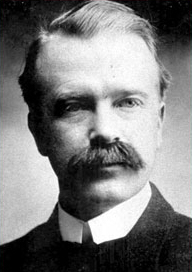
1992 INDUCTEE Luther H. Gulick (1865-1918)
International Committee of the YMCA
School for Christian Workers (Springfield College)
Born to missionary parents in Hawaii, Luther Gulick traveled the world by the time he was a teenager. He attended both Oberlin College and Sargent Normal School of Physical Training for short periods of time, leaving to become the gymnasium supervisor at the Jackson (Mich.) YMCA. He enrolled at New York University and received his medical degree in 1889 at the age of 24.
For the next 13 years, he served concurrently as the International Committee secretary for physical work and director of physical education programs at the School for Christian Workers (now Springfield College). At the School, he also worked as part of the Department of YMCA Secretaries.
Gulick also promoted health and physical education in the public education system in New York City. Described by C. Howard Hopkins as “the most unique genius to touch the first half century of the American YMCA,” Gulick was responsible for introducing new ideas and practices that forever changed physical education, sport, and health instruction.
While at Springfield College, he invented the spirit-mind-body inverted triangle (the College’s emblem) to symbolize the concept of wellness. He challenged James Naismith to develop the game of basketball, and then helped disseminate the game to the world through the YMCA. He helped to organize the Boy Scouts in the U.S. and created Campfire Girls along with his wife, Charlotte. He wrote extensively, publishing in areas as diverse as physical measurements, dance, and sex education for soldiers.
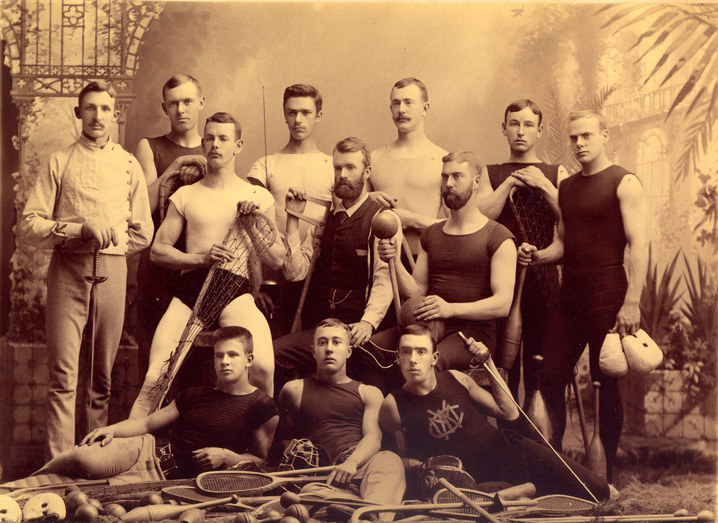
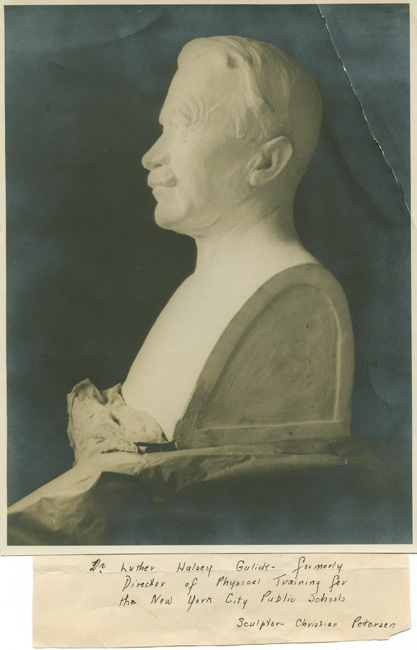
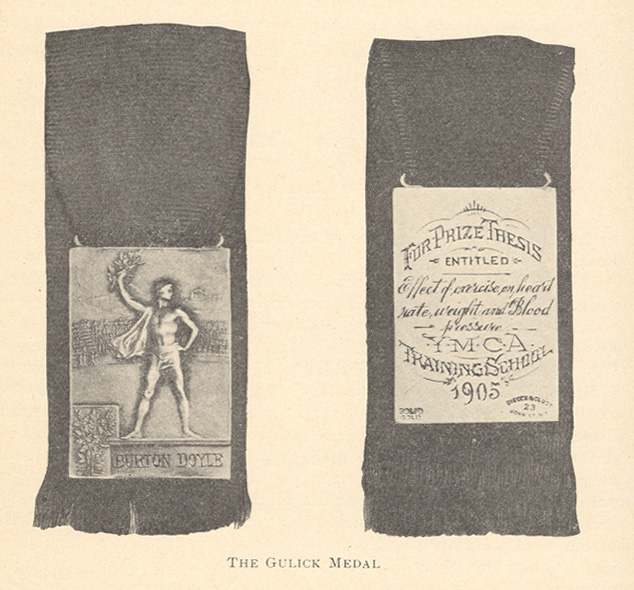
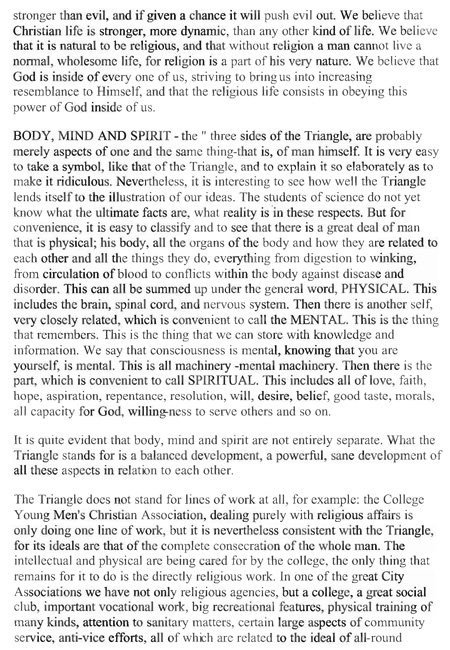
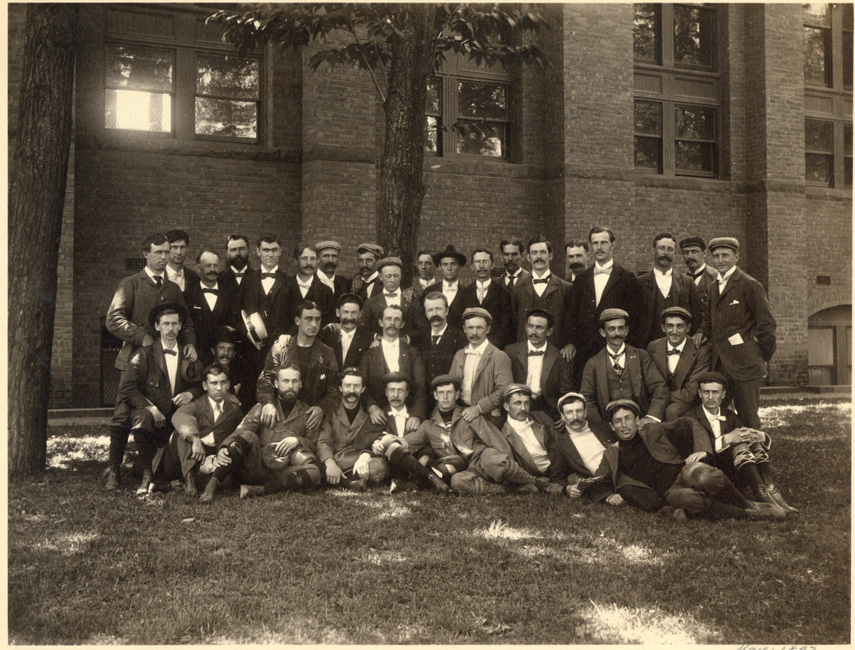
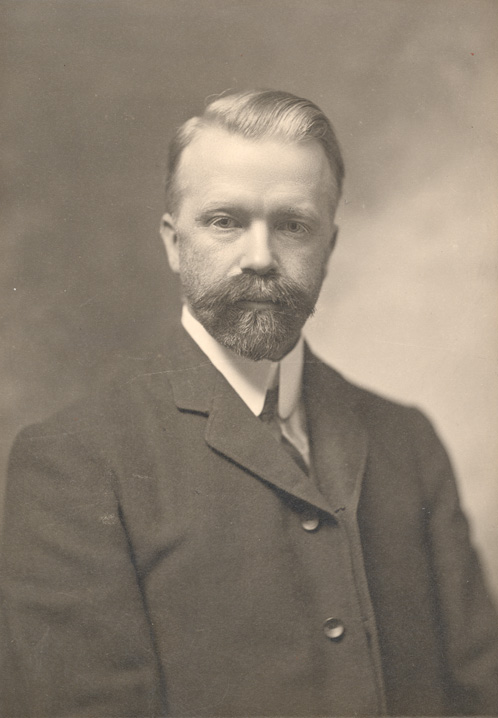
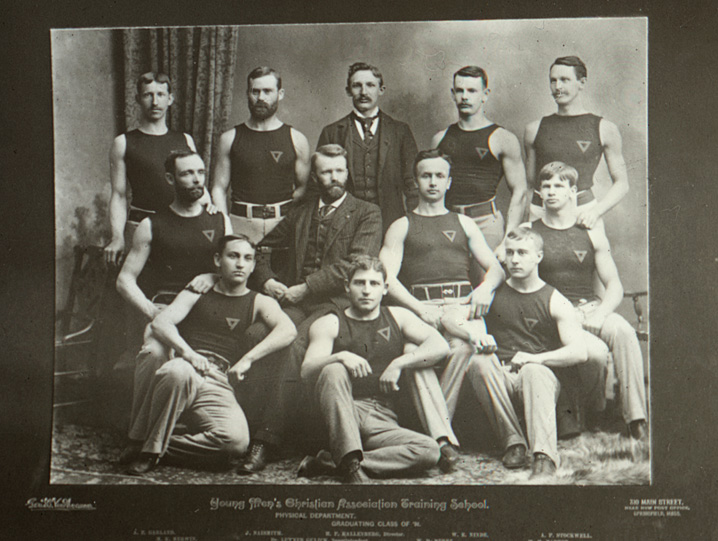
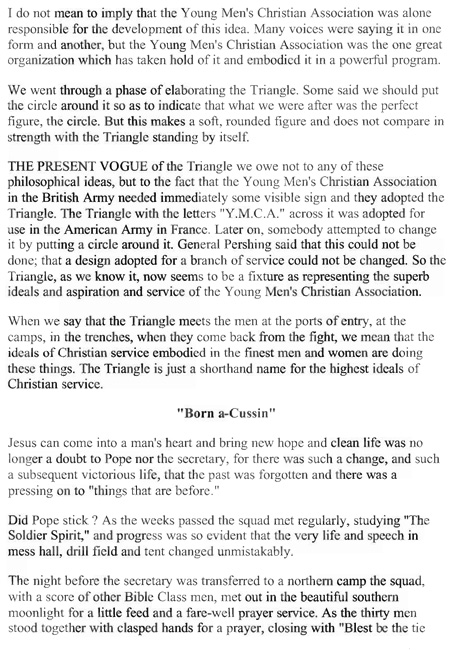
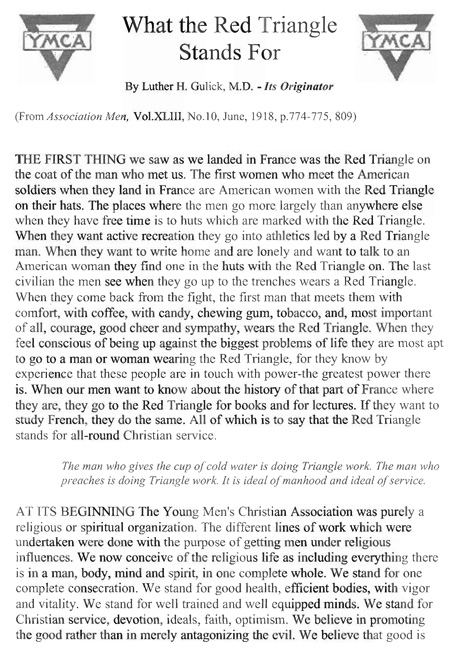
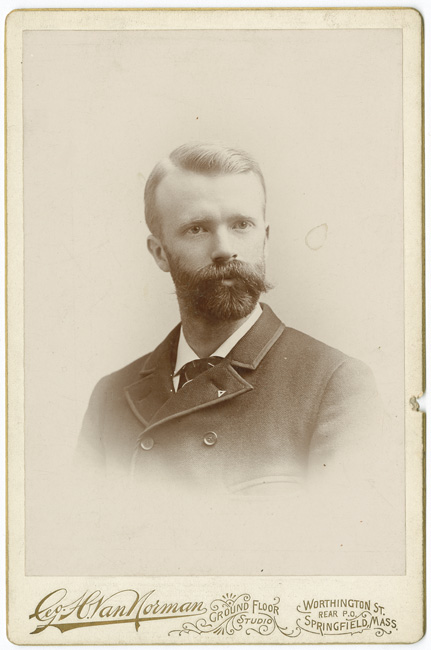
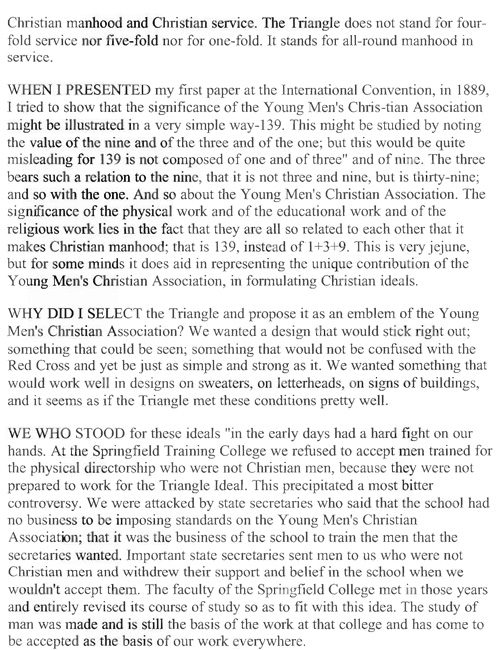
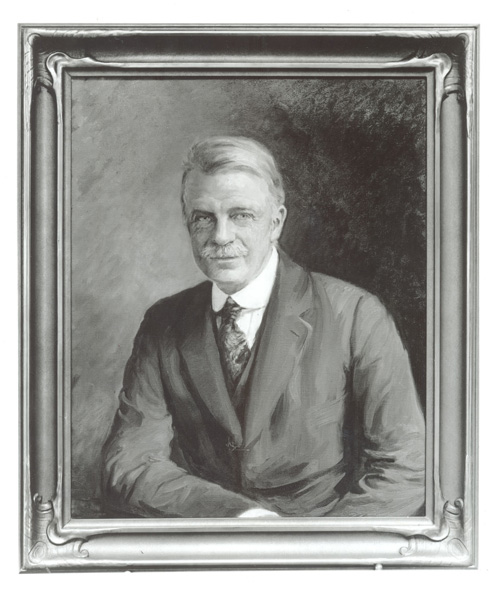
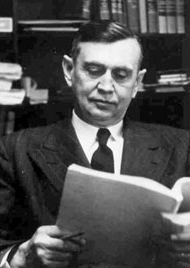
Born in Kansas in 1886, L.K. Hall’s first involvement with the YMCA was during his college years at Baker University. After teaching school for two years, he began working for the YMCA, helping to establish the Camp Wood YMCA (Kansas) in 1915.
He was hired by the International Committee of the YMCA to develop programs for rural youth and also spent seven years in China developing Boys’ Work programs in Shanghai and for the China National Council of YMCAs. Hall returned to the U.S. to attend Columbia University in 1925. In 1928, he joined the faculty at what had then become known as the International YMCA College (now Springfield College), where he stayed for 15 years as the director of Boys’ Work Studies and later, the director of the Social Science Department.
Hall left Springfield College to become the interim editor of Association Press, the publishing enterprise of the National Council of YMCAs. He remained in this position for nine years until his retirement in 1952. In retirement, he served as the first director of the Association of Secretaries (today’s Association of YMCA Professionals) until 1957, and was also a visiting professor at George Williams College.

1992 INDUCTEE Lawrence K. Hall (1886-1979)
National Council of YMCAs
International Committee of the YMCA
Camp Wood YMCA
International YMCA Training School (Springfield College)
Born in Kansas in 1886, L.K. Hall’s first involvement with the YMCA was during his college years at Baker University. After teaching school for two years, he began working for the YMCA, helping to establish the Camp Wood YMCA (Kansas) in 1915.
He was hired by the International Committee of the YMCA to develop programs for rural youth and also spent seven years in China developing Boys’ Work programs in Shanghai and for the China National Council of YMCAs. Hall returned to the U.S. to attend Columbia University in 1925. In 1928, he joined the faculty at what had then become known as the International YMCA College (now Springfield College), where he stayed for 15 years as the director of Boys’ Work Studies and later, the director of the Social Science Department.
Hall left Springfield College to become the interim editor of Association Press, the publishing enterprise of the National Council of YMCAs. He remained in this position for nine years until his retirement in 1952. In retirement, he served as the first director of the Association of Secretaries (today’s Association of YMCA Professionals) until 1957, and was also a visiting professor at George Williams College.
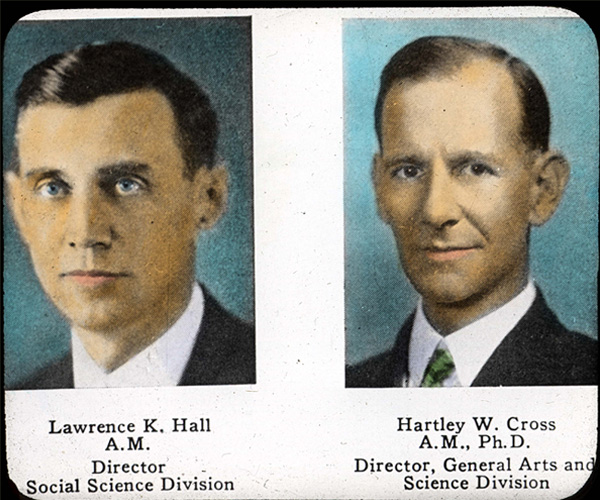
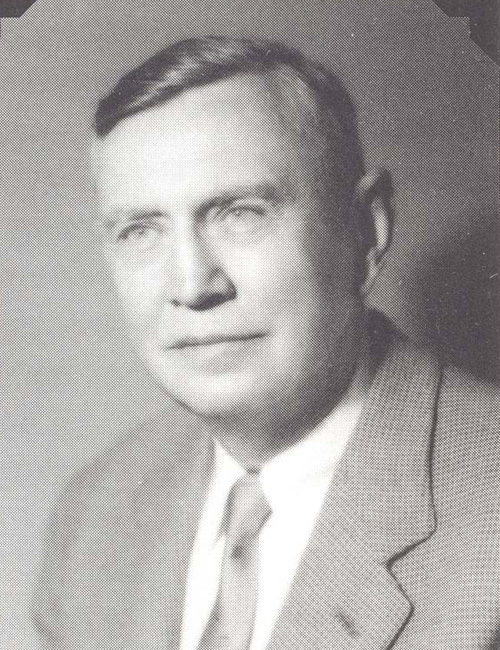
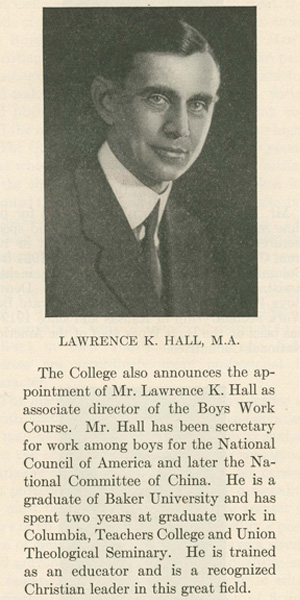
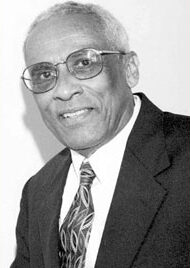
Tom Hargrave’s first job in the YMCA, after graduating from Knoxville College in Tennessee, was as executive director of the Portsmouth (Va.) YMCA. Over the next 15 years, he held various positions in the YMCA, including assistant director to the college and university YMCAs, branch executive for Florida’s First Coast YMCA, executive director in Pasadena, Calif., associate general director of Urban Action of the YMCA of Los Angeles, and the associate general director for program planning and development at the YMCA of Metropolitan Washington.
Beginning in 1973, Hargrave served 19 years as president and chief executive officer of the YMCA of Metropolitan Washington, D.C. until his retirement in 1992. In Washington, he established the new YMCA headquarters and eliminated the association’s $1 million operating deficit. He created partnerships with Ys in India, Gambia, Costa Rica, China, and the Soviet Union. Among his proudest achievements, is the number of staff who served in Washington who went on to become influential YMCA leaders.
In retirement, Hargrave authored several books, including historical novels and histories of the Y. He was the recipient of many prestigious awards, including an honor from the African Alliance of YMCAs.
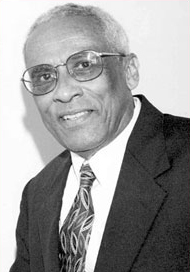
2001 INDUCTEE Thomas B. Hargrave, Jr. (1927-2017)
Pasadena YMCA
Portsmouth YMCA
YMCA of Greater Los Angeles
YMCA of Metropolitan Washington
College and University YMCAs
Tom Hargrave’s first job in the YMCA, after graduating from Knoxville College in Tennessee, was as executive director of the Portsmouth (Va.) YMCA. Over the next 15 years, he held various positions in the YMCA, including assistant director to the college and university YMCAs, branch executive for Florida’s First Coast YMCA, executive director in Pasadena, Calif., associate general director of Urban Action of the YMCA of Los Angeles, and the associate general director for program planning and development at the YMCA of Metropolitan Washington.
Beginning in 1973, Hargrave served 19 years as president and chief executive officer of the YMCA of Metropolitan Washington, D.C. until his retirement in 1992. In Washington, he established the new YMCA headquarters and eliminated the association’s $1 million operating deficit. He created partnerships with Ys in India, Gambia, Costa Rica, China, and the Soviet Union. Among his proudest achievements, is the number of staff who served in Washington who went on to become influential YMCA leaders.
In retirement, Hargrave authored several books, including historical novels and histories of the Y. He was the recipient of many prestigious awards, including an honor from the African Alliance of YMCAs.
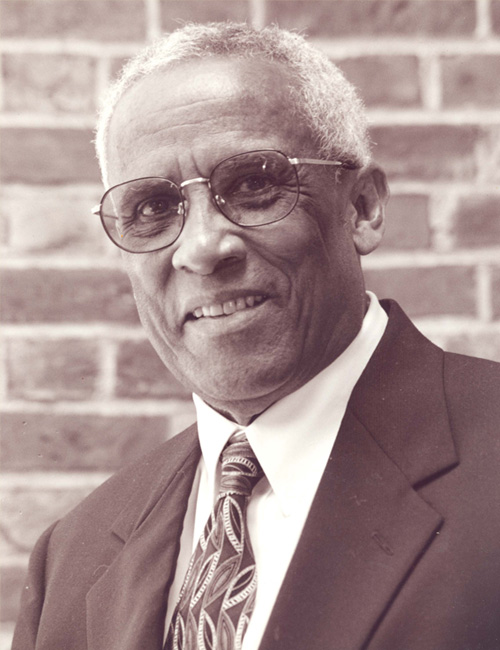
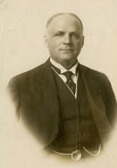
Archibald Harte first became involved in the YMCA as member of the Student Y’s at Wesleyan University. He served as the secretary of YMCA’s in Huntsville and Mobile (Ala.) until 1907. Harte was then called to lead YMCAs in Ceylon, India, and Burma, where he began new programs, built facilities, and trained local Y leadership for 16 years.
During World War I, Harte supervised a staff of 65 individuals in the Y’s Red Triangle program to provide services to soldiers and prisoners of war. In 1920, Harte was called to Jerusalem to lead the YMCA, which was then housed in a series of larger rented spaces. Harte developed a vision for a permanent Y building and worked tirelessly planning every detail. For years, he cultivated donors who shared his vision of a “Sermon in Stone.” After seven years of construction, the new Jerusalem YMCA was dedicated in 1933 with the words, “Here is a spot whose atmosphere is peace, where political and religious jealousies can be forgotten and international unity be fostered and developed.”
Harte retired to his home on the shores of Galilee, which he bequeathed to the Jerusalem International YMCA as an international conference facility.

2007 INDUCTEE Dr. Archibald C. Harte (d. 1946)
YMCA in Burma
YMCA in Ceylon
YMCA in India
YMCA of Metropolitan Huntsville AL
YMCA of South Alabama Inc.
Archibald Harte first became involved in the YMCA as member of the Student Y’s at Wesleyan University. He served as the secretary of YMCA’s in Huntsville and Mobile (Ala.) until 1907. Harte was then called to lead YMCAs in Ceylon, India, and Burma, where he began new programs, built facilities, and trained local Y leadership for 16 years.
During World War I, Harte supervised a staff of 65 individuals in the Y’s Red Triangle program to provide services to soldiers and prisoners of war. In 1920, Harte was called to Jerusalem to lead the YMCA, which was then housed in a series of larger rented spaces. Harte developed a vision for a permanent Y building and worked tirelessly planning every detail. For years, he cultivated donors who shared his vision of a “Sermon in Stone.” After seven years of construction, the new Jerusalem YMCA was dedicated in 1933 with the words, “Here is a spot whose atmosphere is peace, where political and religious jealousies can be forgotten and international unity be fostered and developed.”
Harte retired to his home on the shores of Galilee, which he bequeathed to the Jerusalem International YMCA as an international conference facility.
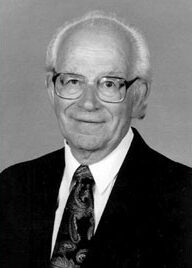
After being discharged from the Army, Ted Hawkins attended Augustana College in Illinois, graduating in 1949 with majors in business, psychology, and education. His first YMCA position was as general secretary of the Worthington (Minn.) YMCA.
He later worked at YMCAs in Iowa and Alaska, before moving to the St. Louis (Mo.) YMCA as vice president. During his work in St. Louis, he became known for the leadership tools he developed to help staff manage their operations, as well as the systems he created for membership services. As a member of both the national Management Resource Center (MRC) directors and Urban Group operations executives, he was able to share his ideas with YMCAs all over the country.
For 15 years, he managed the international program at the St. Louis YMCA, creating partnerships with Quito, Ecuador, and the Colombian Federation. He received the Herb Evans International Award from the Mid-American region. After his retirement, he served as president of the North American Fellowship of YMCA retirees for three years.
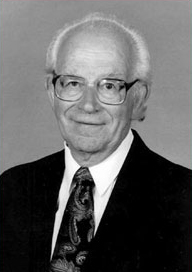
2002 INDUCTEE Ted W. Hawkins (1925-2014)
YMCA in Alaska
YMCA in Iowa
YMCA of Greater St. Louis
After being discharged from the Army, Ted Hawkins attended Augustana College in Illinois, graduating in 1949 with majors in business, psychology, and education. His first YMCA position was as general secretary of the Worthington (Minn.) YMCA.
He later worked at YMCAs in Iowa and Alaska, before moving to the St. Louis (Mo.) YMCA as vice president. During his work in St. Louis, he became known for the leadership tools he developed to help staff manage their operations, as well as the systems he created for membership services. As a member of both the national Management Resource Center (MRC) directors and Urban Group operations executives, he was able to share his ideas with YMCAs all over the country.
For 15 years, he managed the international program at the St. Louis YMCA, creating partnerships with Quito, Ecuador, and the Colombian Federation. He received the Herb Evans International Award from the Mid-American region. After his retirement, he served as president of the North American Fellowship of YMCA retirees for three years.
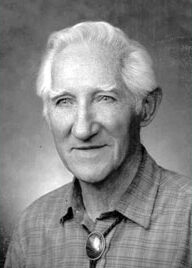
A graduate of George Williams College, Donald Hayward began his career as the Boys’ Work secretary and physical director at the Dallas (Texas) YMCA. He was appointed community secretary of the Fort Worth (Texas) YMCA in 1939. Three years later, he moved to the Los Angeles (Calif.) YMCA as the executive secretary of the South West Branch.
He became the program director of the YMCA of Metropolitan Los Angeles in 1952, where he initiated an international partnership with the YMCA in Nagoya, Japan. Hayward was instrumental in the expansion of a number of YMCA programs, including the concept of comprehensive youth involvement programs such as Indian Guides,Gra-Y, Junior Hi-Y, and Hi-Y.
He remained in the Metropolitan Los Angeles YMCA for 23 years until his retirement in 1975. In retirement, he continued to devote his time and energy to the YMCA Family Communication Skills Center.
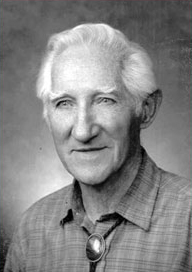
1989 INDUCTEE Donald S. Hayward (1911-2001)
YMCA of Metropolitan Los Angeles
Fort Worth YMCA
A graduate of George Williams College, Donald Hayward began his career as the Boys’ Work secretary and physical director at the Dallas (Texas) YMCA. He was appointed community secretary of the Fort Worth (Texas) YMCA in 1939. Three years later, he moved to the Los Angeles (Calif.) YMCA as the executive secretary of the South West Branch.
He became the program director of the YMCA of Metropolitan Los Angeles in 1952, where he initiated an international partnership with the YMCA in Nagoya, Japan. Hayward was instrumental in the expansion of a number of YMCA programs, including the concept of comprehensive youth involvement programs such as Indian Guides,Gra-Y, Junior Hi-Y, and Hi-Y.
He remained in the Metropolitan Los Angeles YMCA for 23 years until his retirement in 1975. In retirement, he continued to devote his time and energy to the YMCA Family Communication Skills Center.
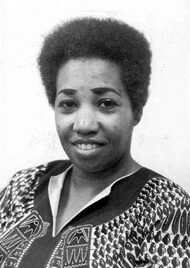
Born in Alberta, Canada, Violet Henry earned her undergraduate and law degrees from the University of Alberta and a graduate degree in urban studies from Roosevelt University. She was the first African-American woman to be admitted to the practice of law in Canada.
In 1963, she became executive director of the Community Branch of the Newark (N.J.) YMCA. Seven years later, she was appointed the director of planning for the YMCA of Metropolitan Chicago (Ill.), and later became the director of manpower, planning, and staff development. In 1976, Henry became the first woman to be named to a top management position on the national staff as executive director of the Organizational Development Group. She was responsible for personnel management, corporate planning, and development projects.
Henry served as president of the YMCA Association of Professional Directors (APD) and vice president of the World Association of Secretaries. She provided leadership for numerous national and international commissions and committees that worked effectively for the rights of women and minorities.
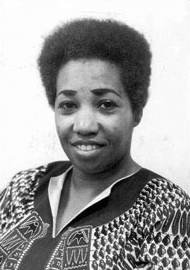
1998 INDUCTEE Violet P. Henry (1929-1982)
National Council of YMCAs
Newark YWCA/YMCA
Born in Alberta, Canada, Violet Henry earned her undergraduate and law degrees from the University of Alberta and a graduate degree in urban studies from Roosevelt University. She was the first African-American woman to be admitted to the practice of law in Canada.
In 1963, she became executive director of the Community Branch of the Newark (N.J.) YMCA. Seven years later, she was appointed the director of planning for the YMCA of Metropolitan Chicago (Ill.), and later became the director of manpower, planning, and staff development. In 1976, Henry became the first woman to be named to a top management position on the national staff as executive director of the Organizational Development Group. She was responsible for personnel management, corporate planning, and development projects.
Henry served as president of the YMCA Association of Professional Directors (APD) and vice president of the World Association of Secretaries. She provided leadership for numerous national and international commissions and committees that worked effectively for the rights of women and minorities.
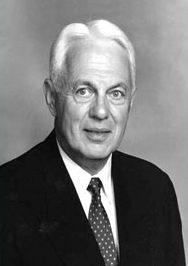
Bob Hoffman received both his undergraduate and graduate degrees from Springfield College. He began his YMCA career in Pennsylvania in 1958, serving in youth work and camping at the Norristown and York associations.
He developed extensive four-front club work (Y Indian Guides, Gra-Y, and Junior and Senior Hi-Y), initiated the development of a new YMCA camp, and developed a street workers program to create outreach for hard-to-reach teens. He served as executive director at the Hazelton (Pa.) and Germantown (Pa.) YMCAs before his appointment as vice president at the YMCA of Greater Hartford (Conn.).
In addition to his operational responsibilities, Hoffman organized and directed the annual YMCA Financial Development School for 13 years. He maintained an active involvement with the YMCA Association of Professional Directors (APD), serving at regional and national levels. He received Springfield College’s highest alumni award, the Tarbell Medallion, in 2001.

2002 INDUCTEE Robert B. Hoffman
Norristown YMCA
YMCA of Germantown
YMCA of Greater Hartford
York and York County YMCA
Bob Hoffman received both his undergraduate and graduate degrees from Springfield College. He began his YMCA career in Pennsylvania in 1958, serving in youth work and camping at the Norristown and York associations.
He developed extensive four-front club work (Y Indian Guides, Gra-Y, and Junior and Senior Hi-Y), initiated the development of a new YMCA camp, and developed a street workers program to create outreach for hard-to-reach teens. He served as executive director at the Hazelton (Pa.) and Germantown (Pa.) YMCAs before his appointment as vice president at the YMCA of Greater Hartford (Conn.).
In addition to his operational responsibilities, Hoffman organized and directed the annual YMCA Financial Development School for 13 years. He maintained an active involvement with the YMCA Association of Professional Directors (APD), serving at regional and national levels. He received Springfield College’s highest alumni award, the Tarbell Medallion, in 2001.
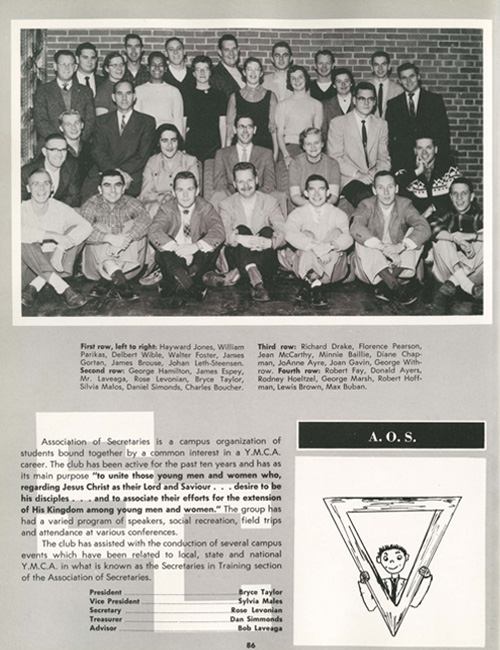
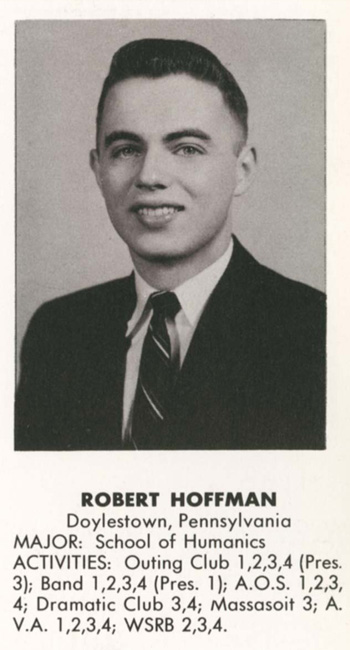
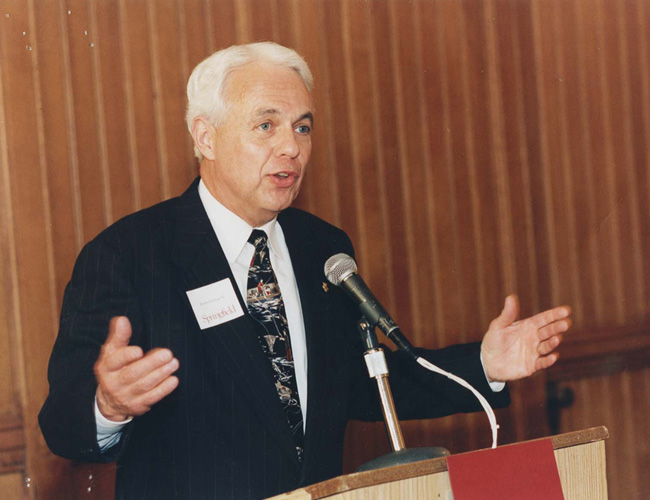
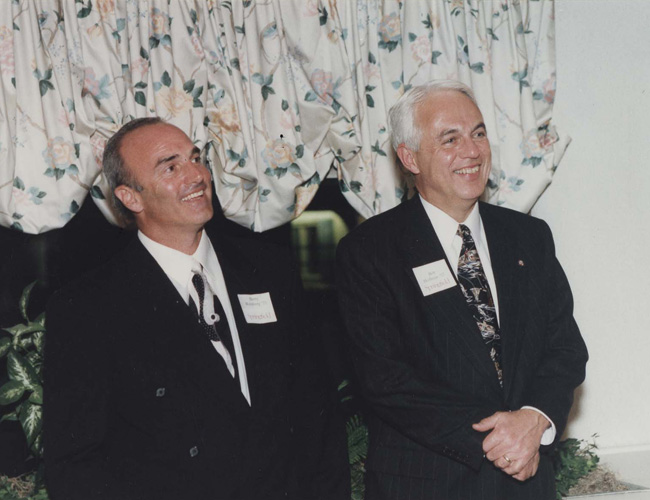
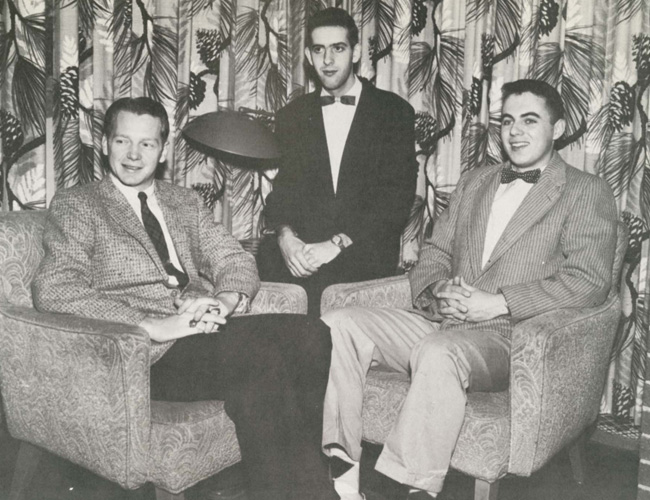
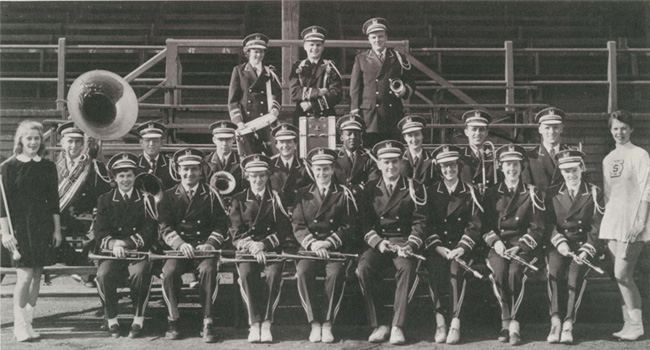
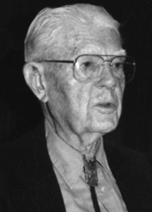
Dr. C. Howard Hopkins (1905-2000) literally wrote the book on the YMCA. His authoritative History of the Y.M.C.A. in North America is the only comprehensive history of the American YMCA movement from its founding to the mid-1950s. Hopkins was chosen by the Committee on Historical Resources of the YMCA to research and write that history of the organization. He was selected not only because of his PhD in history from Yale, but also because his earlier book, The Rise of the Social Gospel in American Protestantism, dealt with an era that had been critical in the formation of the YMCA. Hopkins had also been a volunteer in student and city Ys. Following publication of his tome on YMCA history, Hopkins went on to write a highly regarded biography of Y icon John R. Mott. For many years, a copy of Hopkins’s History could be found in virtually every American YMCA, referred to just as “Hopkins.”

2013 INDUCTEE Dr. C. Howard Hopkins (1905-2000)
Dr. C. Howard Hopkins (1905-2000) literally wrote the book on the YMCA. His authoritative History of the Y.M.C.A. in North America is the only comprehensive history of the American YMCA movement from its founding to the mid-1950s. Hopkins was chosen by the Committee on Historical Resources of the YMCA to research and write that history of the organization. He was selected not only because of his PhD in history from Yale, but also because his earlier book, The Rise of the Social Gospel in American Protestantism, dealt with an era that had been critical in the formation of the YMCA. Hopkins had also been a volunteer in student and city Ys. Following publication of his tome on YMCA history, Hopkins went on to write a highly regarded biography of Y icon John R. Mott. For many years, a copy of Hopkins’s History could be found in virtually every American YMCA, referred to just as “Hopkins.”
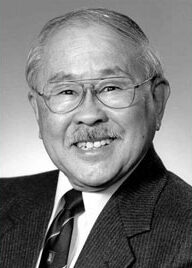
Born at a YMCA community for Japanese immigrants, Fred Hoshiyama lived his entire life in association with the YMCA. He served as the Boys’ Work secretary at the San Francisco (Calif.) Japanese YMCA Branch. In 1942, he was interred at the Government Internment Camp in Utah, where he helped to create YMCA-based programs to help address the social, educational, and recreational needs of the Japanese-Americans held in the camp.
An offer to study at Springfield College provided Hoshiyama with an early release from the camp. In 1946, he served as the community youth program director in Honolulu (Hawaii), before returning to San Francisco in branch executive roles. In 1971, he was appointed associate staff of the national program and Urban Development Division.
He developed National Youth Program Using Mini-Bikes (NYPUM), a program that eventually engaged 250,000 high-risk youth in productive activities. From 1976 to 1983, he assisted in the formation of the National Association of Student YMCAs. In retirement, Hoshiyama continued to serve in numerous training and consulting roles, maintaining an active presence in Y-USA’s Principles and Practices training.
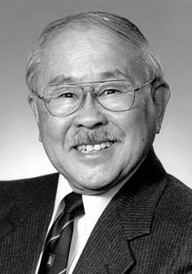
1989 INDUCTEE Fred Y. Hoshiyama (1914-2015)
YMCA of Honolulu
Born at a YMCA community for Japanese immigrants, Fred Hoshiyama lived his entire life in association with the YMCA. He served as the Boys’ Work secretary at the San Francisco (Calif.) Japanese YMCA Branch. In 1942, he was interred at the Government Internment Camp in Utah, where he helped to create YMCA-based programs to help address the social, educational, and recreational needs of the Japanese-Americans held in the camp.
An offer to study at Springfield College provided Hoshiyama with an early release from the camp. In 1946, he served as the community youth program director in Honolulu (Hawaii), before returning to San Francisco in branch executive roles. In 1971, he was appointed associate staff of the national program and Urban Development Division.
He developed National Youth Program Using Mini-Bikes (NYPUM), a program that eventually engaged 250,000 high-risk youth in productive activities. From 1976 to 1983, he assisted in the formation of the National Association of Student YMCAs. In retirement, Hoshiyama continued to serve in numerous training and consulting roles, maintaining an active presence in Y-USA’s Principles and Practices training.
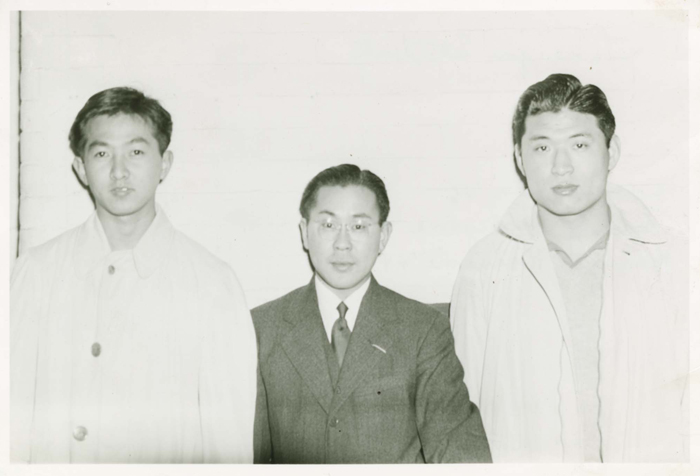
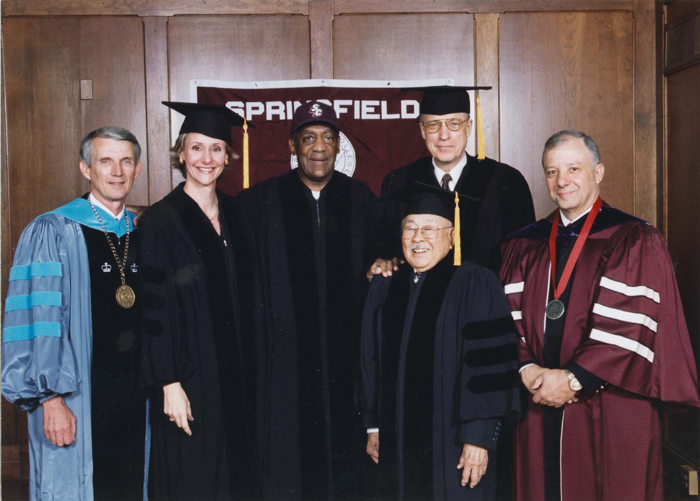
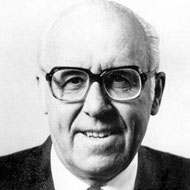
William A. Howes graduated from Springfield College in 1939 (then the International YMCA College) and began his career at the Summit (N.J.) YMCA as the youth program director.
He served in the Army Medical Service Corps in WWII and returned to the Greater New York YMCA for the next 36 years. He was the program secretary of the McBurney YMCA (N.Y.) in 1946 and senior director of the William Sloane House (N.Y.) in 1964, before being named its president in 1966.
Howes helped reaffirm the YMCA’s commitment to urban efforts during the 1960s with his report “Strategy for the Inner City.” He served on the steering committee of the World Urban Committee of YMCA Executives until his retirement in 1982.
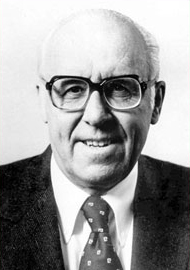
1989 INDUCTEE William A. Howes (1918-1988)
YMCA of Greater New York
William A. Howes graduated from Springfield College in 1939 (then the International YMCA College) and began his career at the Summit (N.J.) YMCA as the youth program director.
He served in the Army Medical Service Corps in WWII and returned to the Greater New York YMCA for the next 36 years. He was the program secretary of the McBurney YMCA (N.Y.) in 1946 and senior director of the William Sloane House (N.Y.) in 1964, before being named its president in 1966.
Howes helped reaffirm the YMCA’s commitment to urban efforts during the 1960s with his report “Strategy for the Inner City.” He served on the steering committee of the World Urban Committee of YMCA Executives until his retirement in 1982.
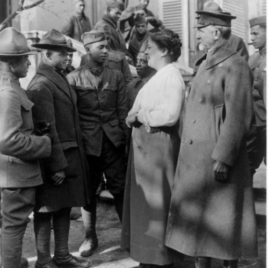
Addie Hunton began her work with the YMCA in 1893 after she married YMCA Secretary William A. Hunton (inducted in 1992). She worked with the YWCA to educate Black youth in the midwest and south, where she also conducted surveys and recruited for the YWCA.
After her husband’s death and the outbreak of World War I, Hunton volunteered for the Women’s Expeditionary Forces in France. Throughout her time in the Forces, she touched the lives of more than 25,000 stevedores, labor battalions, and engineers in war-torn France. She was one of just three Black women assigned to work with more than 200,000 segregated troops stationed in France. She established literacy courses and a discussion program on art, music, and religion here.
In 1919 she was moved to Southern France, where she organized educational, cultural, religious, and athletic activities for more than 1,000 African-American troops a week. She was later assigned, alongside Black troops, to recover remains from a battlefield and rebury them in a military cemetery at Romagne.
After the war, she returned home and continued working with the YWCA and the NAACP, where she worked to advance the rights of Black individuals throughout the United States.
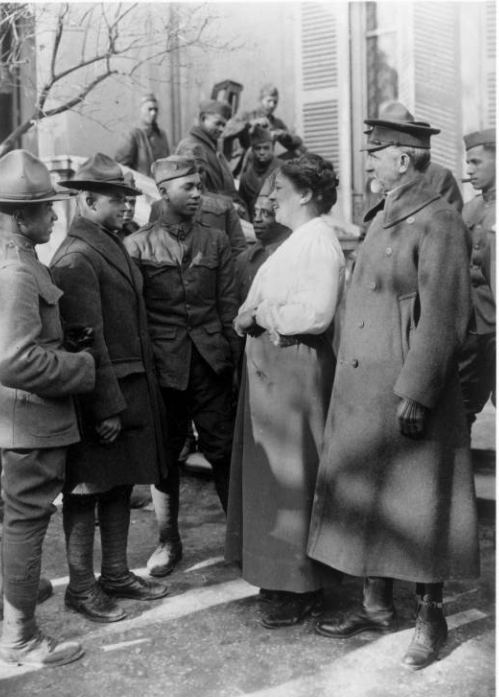
2023 INDUCTEE Addie Hunton
Addie Hunton began her work with the YMCA in 1893 after she married YMCA Secretary William A. Hunton (inducted in 1992). She worked with the YWCA to educate Black youth in the midwest and south, where she also conducted surveys and recruited for the YWCA.
After her husband’s death and the outbreak of World War I, Hunton volunteered for the Women’s Expeditionary Forces in France. Throughout her time in the Forces, she touched the lives of more than 25,000 stevedores, labor battalions, and engineers in war-torn France. She was one of just three Black women assigned to work with more than 200,000 segregated troops stationed in France. She established literacy courses and a discussion program on art, music, and religion here.
In 1919 she was moved to Southern France, where she organized educational, cultural, religious, and athletic activities for more than 1,000 African-American troops a week. She was later assigned, alongside Black troops, to recover remains from a battlefield and rebury them in a military cemetery at Romagne.
After the war, she returned home and continued working with the YWCA and the NAACP, where she worked to advance the rights of Black individuals throughout the United States.
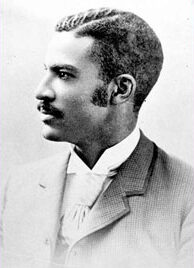
William A. Hunton, the son a freed slave from Canada, began his Y work in 1888 as the first employed YMCA secretary at a “Colored YMCA” in Norfolk (Va.). Three years later, when serving as the national secretary for colored work, he wrote “First Steps,” a pamphlet describing his vision for the YMCA regarding race relations.
Hunton worked among the soldiers in the Army camps during the Spanish-American War and in developing Student YMCAs on black campuses throughout the South. He helped communities meet Julius Rosenwald’s challenge grant to build YMCAs for African-American communities, and then helped recruit and train the staff and volunteers to lead those associations.
Hunton traveled extensively in the United States and abroad. He was awarded an honorary degree by Howard University.
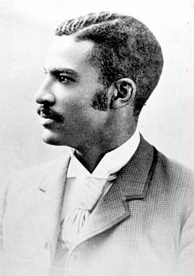
1992 INDUCTEE William A. Hunton (1863-1916)
International Committee of the YMCA
William A. Hunton, the son a freed slave from Canada, began his Y work in 1888 as the first employed YMCA secretary at a “Colored YMCA” in Norfolk (Va.). Three years later, when serving as the national secretary for colored work, he wrote “First Steps,” a pamphlet describing his vision for the YMCA regarding race relations.
Hunton worked among the soldiers in the Army camps during the Spanish-American War and in developing Student YMCAs on black campuses throughout the South. He helped communities meet Julius Rosenwald’s challenge grant to build YMCAs for African-American communities, and then helped recruit and train the staff and volunteers to lead those associations.
Hunton traveled extensively in the United States and abroad. He was awarded an honorary degree by Howard University.
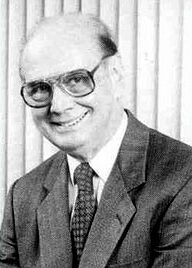
After graduating from George Williams College in 1940, Charles Jacobson began work as the youth program director of the Southwest Branch of the Los Angeles (Calif.) YMCA. A year later, he was named the executive director of the new Downey Branch.
After the Los Angeles Y separated from the Community Chest, Jacobson was charged with implementing a comprehensive annual fundraising drive, an experience that would shape much of the rest of his career. Many of the development strategies and materials he produced became resources for Ys across the U.S. and Canada. In 1963, he was appointed the chief development officer and six years later, became the president and chief executive officer of the YMCA of Greater Los Angeles.
He designed the “Y-Buildings for Youth” program which established or rehabilitated 20 branches and camps, and provided an additional one million dollars for current operations. Jacobson retired the association’s $3.5 million debt with the “Getting Ready for Tomorrow Campaign.”
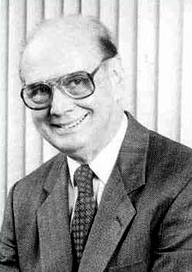
1991 INDUCTEE Charles W. Jacobson
Southwest Branch of Los Angeles
YMCA of Greater Los Angeles
After graduating from George Williams College in 1940, Charles Jacobson began work as the youth program director of the Southwest Branch of the Los Angeles (Calif.) YMCA. A year later, he was named the executive director of the new Downey Branch.
After the Los Angeles Y separated from the Community Chest, Jacobson was charged with implementing a comprehensive annual fundraising drive, an experience that would shape much of the rest of his career. Many of the development strategies and materials he produced became resources for Ys across the U.S. and Canada. In 1963, he was appointed the chief development officer and six years later, became the president and chief executive officer of the YMCA of Greater Los Angeles.
He designed the “Y-Buildings for Youth” program which established or rehabilitated 20 branches and camps, and provided an additional one million dollars for current operations. Jacobson retired the association’s $3.5 million debt with the “Getting Ready for Tomorrow Campaign.”
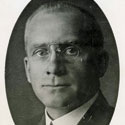
Asa Kent Jennings became membership secretary of the Utica (N.Y.) YMCA in 1901 and later became general secretary of the Carthage, N.Y., association. He began his international work in 1918, serving first in France and then in Czechoslovakia as a regional secretary. In 1922, he went to Smyrna, Turkey, as a Boys’ Work secretary. It was in Turkey that Jennings performed the seemingly impossible, heroic act of saving nearly 350,000 refugees. When he arrived, Turkey was fighting a brutal war with Greece for possession of the territory around Smyrna in Asia Minor. As a result of the fighting, large portions of the city were burned to the ground. Hundreds of thousands of people were displaced. With no authority beyond his convictions, Jennings was able to negotiate and secure safe passage from the Turkish armies for a fleet of Greek merchant vessels.
Jennings’ courage captivated the imagination of the world; his story was produced twice in movies, in 1945 as “Strange Destiny” and then in 1952 as “A Man of Great Importance.”
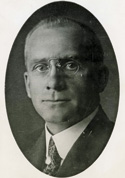
2010 INDUCTEE Asa Kent Jennings (1877-1933)
YMCA in Czechoslovakia
YMCA in France
YMCA in Turkey
YMCA of Utica New York
Asa Kent Jennings became membership secretary of the Utica (N.Y.) YMCA in 1901 and later became general secretary of the Carthage, N.Y., association. He began his international work in 1918, serving first in France and then in Czechoslovakia as a regional secretary. In 1922, he went to Smyrna, Turkey, as a Boys’ Work secretary. It was in Turkey that Jennings performed the seemingly impossible, heroic act of saving nearly 350,000 refugees. When he arrived, Turkey was fighting a brutal war with Greece for possession of the territory around Smyrna in Asia Minor. As a result of the fighting, large portions of the city were burned to the ground. Hundreds of thousands of people were displaced. With no authority beyond his convictions, Jennings was able to negotiate and secure safe passage from the Turkish armies for a fleet of Greek merchant vessels.
Jennings’ courage captivated the imagination of the world; his story was produced twice in movies, in 1945 as “Strange Destiny” and then in 1952 as “A Man of Great Importance.”
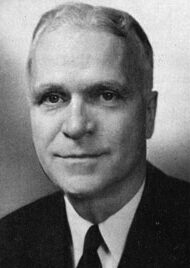
Ray Johns began his YMCA career with the Michigan YMCA and served as the Hi-Y secretary in Chicago. During WWII, he provided leadership to the newly-organized USO.
After the war, Johns served as general executive of the Greater Boston YMCA. Johns served on numerous boards of agencies that focused on youth, including the director of the Massachusetts Committee for Children and Youth. He was the author of five books on social agency administration and organizational change, and lectured at many graduate schools of social work.
He traveled extensively, visiting schools all over the world from the most remote primitive huts to the most advanced educational centers. In the 1970s, Johns returned to full-time teaching at the University of New Hampshire.
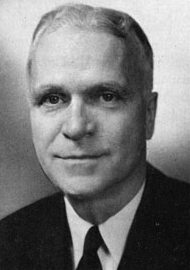
1987 INDUCTEE Ray E. Johns
YMCA in Michigan
YMCA of Greater Metropolitan Chicago
Ray Johns began his YMCA career with the Michigan YMCA and served as the Hi-Y secretary in Chicago. During WWII, he provided leadership to the newly-organized USO.
After the war, Johns served as general executive of the Greater Boston YMCA. Johns served on numerous boards of agencies that focused on youth, including the director of the Massachusetts Committee for Children and Youth. He was the author of five books on social agency administration and organizational change, and lectured at many graduate schools of social work.
He traveled extensively, visiting schools all over the world from the most remote primitive huts to the most advanced educational centers. In the 1970s, Johns returned to full-time teaching at the University of New Hampshire.
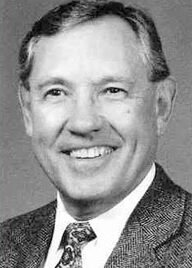
Prescott Johnson enrolled for graduate studies at Springfield College after returning from military service in the U.S. and Korea. He worked part-time at the Westfield (Mass.) YMCA while in school, and joined the staff as physical director after graduation.
In 1960, Johnson received the John R. Mott Fellowship that allowed him to pursue his doctorate at Ohio State University. He joined the national staff as a fraternal secretary in 1962, serving in Uruguay for a decade as a physical education specialist and faculty member at the YMCA Training College, the Instituto Tecnico. During this time he traveled extensively, providing consulting and training for YMCA staff in 13 Central and South American countries.
From 1974 to 1990, Johnson served at YMCA of the USA as well as the Milwaukee (Wis.), San Mateo (Calif.), and New York City associations in health and physical education consulting positions. He also played an active role in the organization of the World Fellowship of YMCA Retirees, and was its first president in 1997.
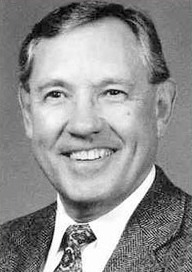
2003 INDUCTEE Prescott K. Johnson (1930-2021)
YMCA of Greater New York
YMCA of Greater Westfield Inc.
YMCA of the USA
YMCA of San Mateo
Prescott Johnson enrolled for graduate studies at Springfield College after returning from military service in the U.S. and Korea. He worked part-time at the Westfield (Mass.) YMCA while in school, and joined the staff as physical director after graduation.
In 1960, Johnson received the John R. Mott Fellowship that allowed him to pursue his doctorate at Ohio State University. He joined the national staff as a fraternal secretary in 1962, serving in Uruguay for a decade as a physical education specialist and faculty member at the YMCA Training College, the Instituto Tecnico. During this time he traveled extensively, providing consulting and training for YMCA staff in 13 Central and South American countries.
From 1974 to 1990, Johnson served at YMCA of the USA as well as the Milwaukee (Wis.), San Mateo (Calif.), and New York City associations in health and physical education consulting positions. He also played an active role in the organization of the World Fellowship of YMCA Retirees, and was its first president in 1997.
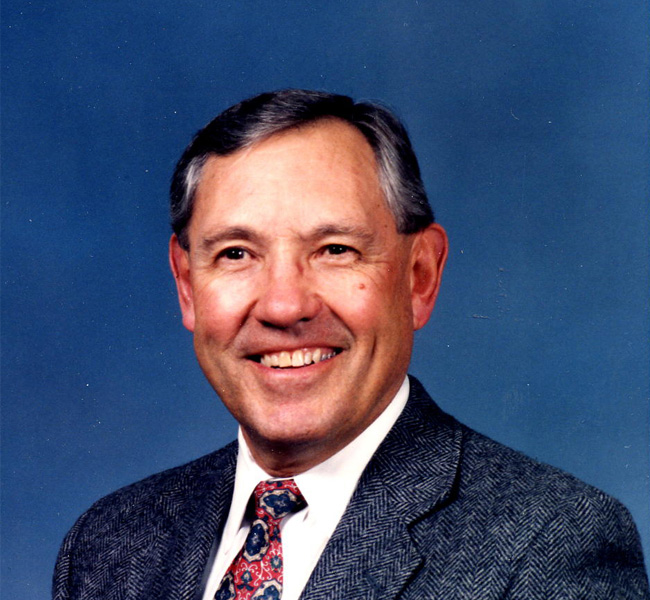
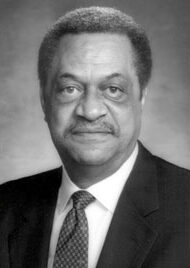
Julius Jones started his career in 1963 as a youth program director at the Jacksonville (Fla.) YMCA. Four years later, he was appointed branch executive director in the Nashville (Tenn.) association. In 1972, he moved to the YMCA of Metropolitan Washington, D.C. as director of operations.
In 1979, he began 22 years of service as president and chief executive officer of the YMCA of Pittsburgh (Pa.). In that role, he was responsible for the operation of 17 local branches and outreach centers and three camps, with an annual budget of over $22,000,000. With a passion for staff development, Jones was a mentor and teacher for generations of up-and-coming YMCA directors. As a result of his international work, many long-term partnerships were created between U.S. and African YMCAs.
He served on numerous boards and committees, both within and outside the YMCA, including the National Conference of Christians and Jews, the Private Industry Council, and Interfaith Volunteer Caregivers. In retirement, Jones continued to provide leadership with YMCA of the USA, the North American Fellowship of YMCA Retirees (NAFYR), and the YMCA Retirement Fund, including relief efforts in the wake of Hurricane Katrina.
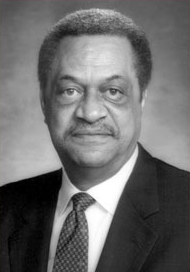
2006 INDUCTEE Julius Jones (1935-2018)
YMCA of Greater Pittsburgh
YMCA of Metropolitan Washington
YMCA of Middle Tennessee
Julius Jones started his career in 1963 as a youth program director at the Jacksonville (Fla.) YMCA. Four years later, he was appointed branch executive director in the Nashville (Tenn.) association. In 1972, he moved to the YMCA of Metropolitan Washington, D.C. as director of operations.
In 1979, he began 22 years of service as president and chief executive officer of the YMCA of Pittsburgh (Pa.). In that role, he was responsible for the operation of 17 local branches and outreach centers and three camps, with an annual budget of over $22,000,000. With a passion for staff development, Jones was a mentor and teacher for generations of up-and-coming YMCA directors. As a result of his international work, many long-term partnerships were created between U.S. and African YMCAs.
He served on numerous boards and committees, both within and outside the YMCA, including the National Conference of Christians and Jews, the Private Industry Council, and Interfaith Volunteer Caregivers. In retirement, Jones continued to provide leadership with YMCA of the USA, the North American Fellowship of YMCA Retirees (NAFYR), and the YMCA Retirement Fund, including relief efforts in the wake of Hurricane Katrina.
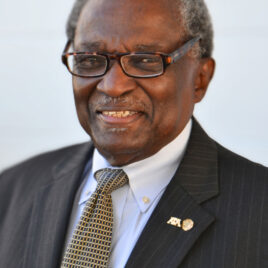
Norm Joyner’s vast YMCA career began at the Montclair, New Jersey, Y serving as the assistant physical director. Since then, Joyner has blazed an impressive trail that carries out the Y mission locally and internationally. Joyner served in executive roles for several YMCAs, including Pittsburgh, Winston-Salem, Los Angeles, and Atlanta. During this time, Joyner was recognized for several awards and accomplishments. These include: Physical Director of the Year, Community Service Leader of the Year, the first African-American to be recognized as a National YMCA Leader in Health and Fitness, and the first African-American CEO of a non-Black heritage YMCA in Alabama. Joyner’s illustrious career also includes serving as an interim CEO and other executive positions for 17 different YMCAs. Joyner’s passion and drive was on full display on the global stage as well. In 2006, Joyner led the charge in revitalizing the YMCA of South Africa and the local YMCAs of South Africa. He rallied American CEOs to study the issue and pin down what could be done. The outcome? The YMCA now has a successful office within South Africa that is supporting local YMCAs throughout the country. In 2022, the office also experienced a successful national CEO transition and continues to work with U.S. YMCA leaders to inform each other on racial healing and global inequality. Clearly, Joyner’s impact and legacy carries the YMCA spirit, both nationally and abroad.
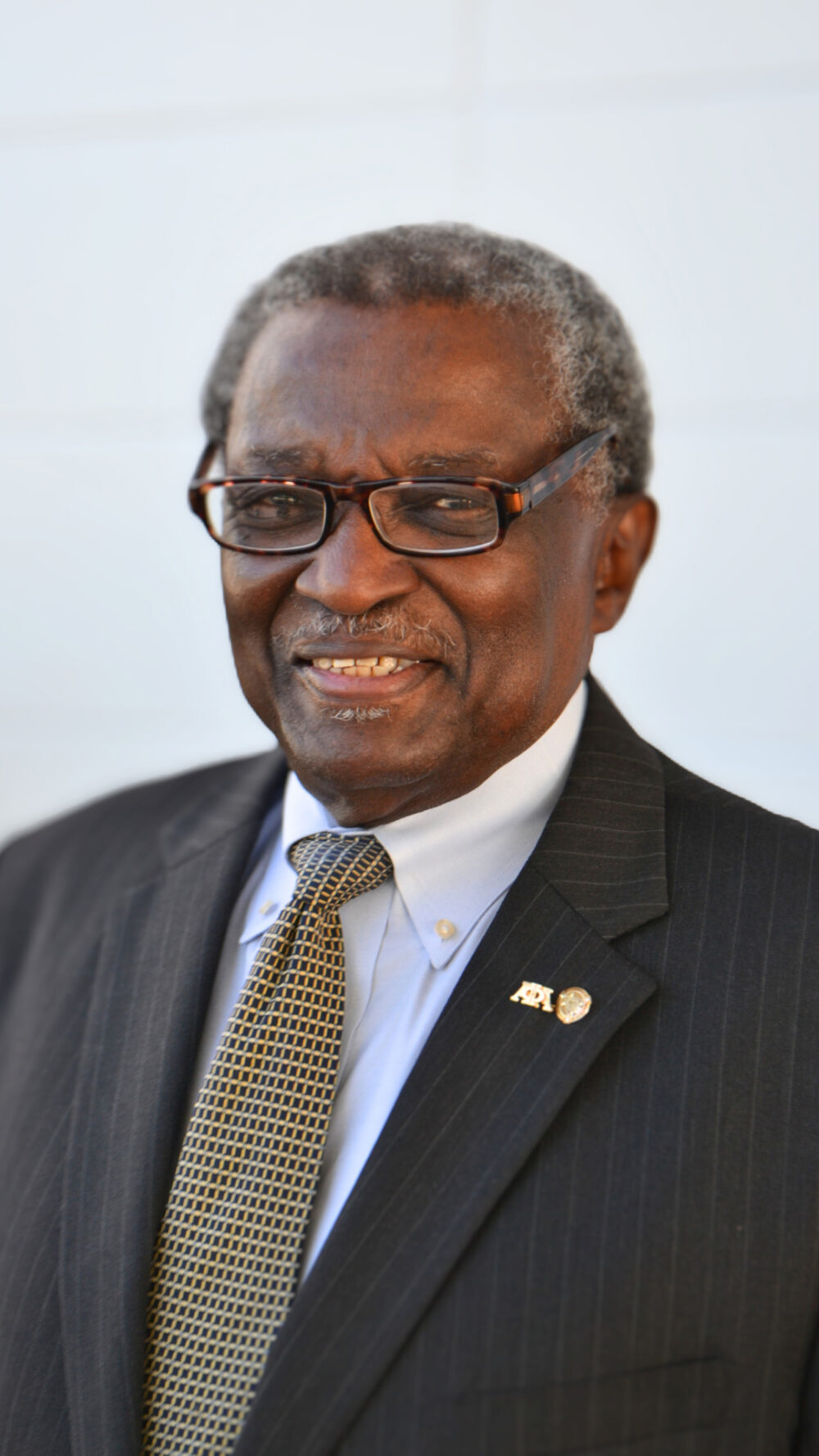
2023 INDUCTEE Norman Joyner
YMCA of Greater Pittsburgh
YMCA of Metropolitan Los Angeles
YMCA of Northwest North Carolina
YMCA of Metropolitan Atlanta
YMCA of the USA
Norm Joyner’s vast YMCA career began at the Montclair, New Jersey, Y serving as the assistant physical director. Since then, Joyner has blazed an impressive trail that carries out the Y mission locally and internationally. Joyner served in executive roles for several YMCAs, including Pittsburgh, Winston-Salem, Los Angeles, and Atlanta. During this time, Joyner was recognized for several awards and accomplishments. These include: Physical Director of the Year, Community Service Leader of the Year, the first African-American to be recognized as a National YMCA Leader in Health and Fitness, and the first African-American CEO of a non-Black heritage YMCA in Alabama. Joyner’s illustrious career also includes serving as an interim CEO and other executive positions for 17 different YMCAs. Joyner’s passion and drive was on full display on the global stage as well. In 2006, Joyner led the charge in revitalizing the YMCA of South Africa and the local YMCAs of South Africa. He rallied American CEOs to study the issue and pin down what could be done. The outcome? The YMCA now has a successful office within South Africa that is supporting local YMCAs throughout the country. In 2022, the office also experienced a successful national CEO transition and continues to work with U.S. YMCA leaders to inform each other on racial healing and global inequality. Clearly, Joyner’s impact and legacy carries the YMCA spirit, both nationally and abroad.
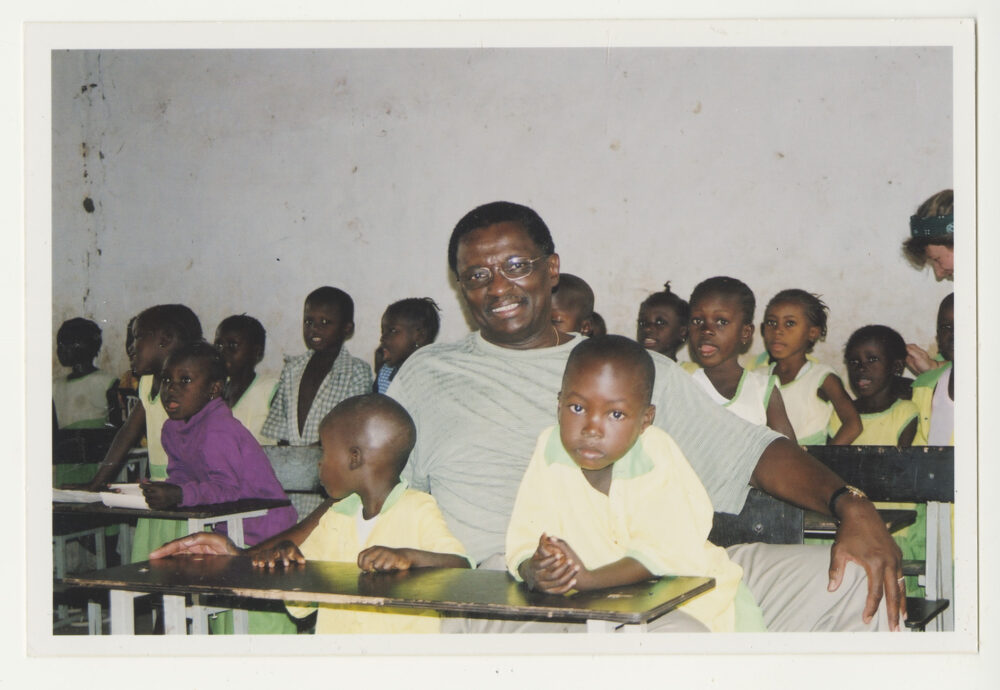
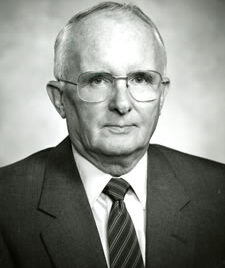
Richard C. “Dick” Kautz was born August 1, 1916 in Muscatine, Iowa. Kautz was active as a member and lay volunteer in the Muscatine YMCA from childhood and became more deeply involved in the 1950s, when he participated in a reorganization study. He later went on to serve as president of the Muscatine Y and then as a member of the National Board of Young Men’s Christian Associations of the United States and a delegate to the World Alliance of YMCAs. He was elected chair of the National YMCA Board in 1970. He also served as vice chair of the World Alliance of YMCAs. In 1996, Kautz and his family donated over $800,000 to the national YMCA Archives, by then located at the University of Minnesota. The gift funded a major preservation project and prompted the renaming of the Archives in honor of the family. The records of the YMCA of the USA, founded in 1851, and its various committees, programs, and constituent bodies, form the core of the Archives. In addition to personal papers of over 300 YMCA leaders, the collection has more than 75,000 photos dating from the American Civil War to the present.
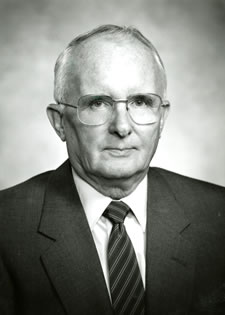
2016 INDUCTEE Richard C. Kautz (1916-2003)
Richard C. “Dick” Kautz was born August 1, 1916 in Muscatine, Iowa. Kautz was active as a member and lay volunteer in the Muscatine YMCA from childhood and became more deeply involved in the 1950s, when he participated in a reorganization study. He later went on to serve as president of the Muscatine Y and then as a member of the National Board of Young Men’s Christian Associations of the United States and a delegate to the World Alliance of YMCAs. He was elected chair of the National YMCA Board in 1970. He also served as vice chair of the World Alliance of YMCAs. In 1996, Kautz and his family donated over $800,000 to the national YMCA Archives, by then located at the University of Minnesota. The gift funded a major preservation project and prompted the renaming of the Archives in honor of the family. The records of the YMCA of the USA, founded in 1851, and its various committees, programs, and constituent bodies, form the core of the Archives. In addition to personal papers of over 300 YMCA leaders, the collection has more than 75,000 photos dating from the American Civil War to the present.
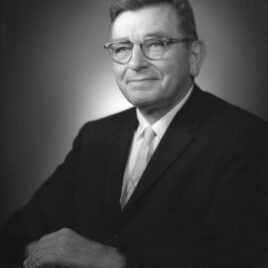
Harold Keltner was a dedicated employee for more than 35 years at the St. Louis YMCA and additional years at YMCAs in Indiana and New York. He worked hard to develop the YMCA as a place to provide opportunities for youth, whether it was working at the Mexican border for the Fort Niagara (NY) YMCA or providing resources for other agencies seeking to serve youth. He was determined to help increase the bond between father and son. That was never more evident than in 1926 when he established a new program, along with Joe Friday, a member of the Ojibwe (Native American) tribe and National YMCA Hall of Fame inductee. The YMCA Indian Guide Program encouraged fathers and sons to be more involved with each other and was modeled on the often deep and profound relationship between Native American fathers and sons. The YMCA Indian Guide Program was recognized in 1938 as a National Program and more than seven million fathers and sons have participated. Keltner was also able to effectively demonstrate the value of the YMCA even during the Depression, when he raised enough funds to build a new YMCA, one of the few built in the United States during that time.
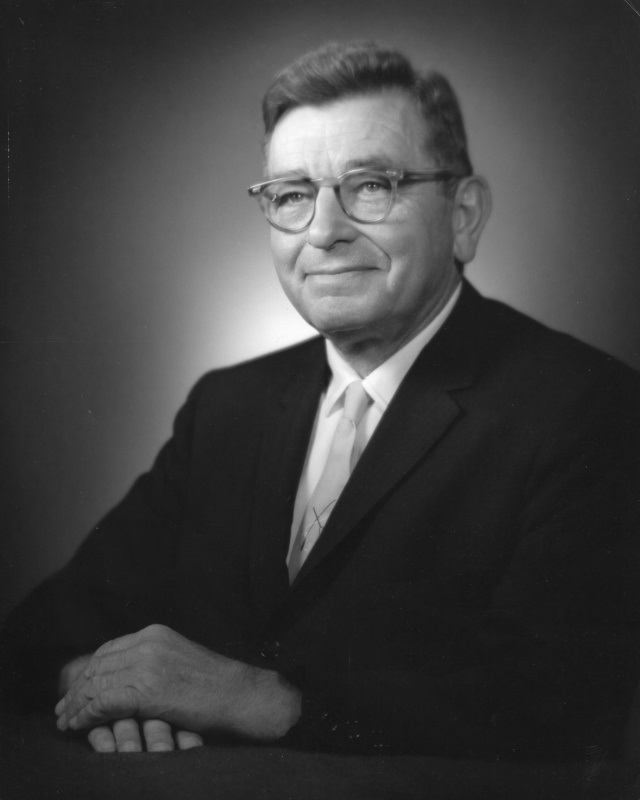
2019 INDUCTEE Harold Keltner (1893-1986)
Fort Niagara YMCA
YMCA in Indiana
Harold Keltner was a dedicated employee for more than 35 years at the St. Louis YMCA and additional years at YMCAs in Indiana and New York. He worked hard to develop the YMCA as a place to provide opportunities for youth, whether it was working at the Mexican border for the Fort Niagara (NY) YMCA or providing resources for other agencies seeking to serve youth. He was determined to help increase the bond between father and son. That was never more evident than in 1926 when he established a new program, along with Joe Friday, a member of the Ojibwe (Native American) tribe and National YMCA Hall of Fame inductee. The YMCA Indian Guide Program encouraged fathers and sons to be more involved with each other and was modeled on the often deep and profound relationship between Native American fathers and sons. The YMCA Indian Guide Program was recognized in 1938 as a National Program and more than seven million fathers and sons have participated. Keltner was also able to effectively demonstrate the value of the YMCA even during the Depression, when he raised enough funds to build a new YMCA, one of the few built in the United States during that time.
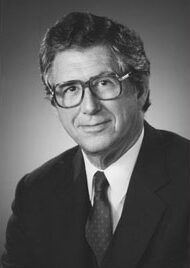
Born in 1919, John Kessler earned degrees from Southeast Missouri State and George Williams College. He joined the YMCA Movement in 1946, serving as director of the Kansas City (Mo.) YMCA’s Lighton Club. He subsequently served at YMCAs in Boston and Fitchburg (Mass.) and on the New England region staff, before moving to the Oak Park (Ill.) YMCA.
While serving as president of the Minneapolis (Minn.) YMCA, Kessler assembled a Board of Directors consisting of community members who were capable of attracting major gifts, an innovation in development strategy. By the time he left in 1983, after 16 years in leadership, the Y had raised a total of $42 million and constructed six new buildings. In 1984, he accepted the difficult task of providing leadership to George Williams College at a time when its closure was imminent. He oversaw the college’s transition to become part of Aurora University.
He served four terms as chairman of the Urban Group and was involved in several national and international committees. Kessler received an honorary doctorate from Springfield College in 1985.
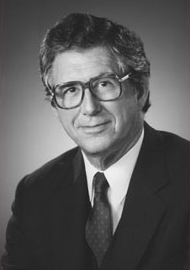
2003 INDUCTEE John W. Kessler (1919-2001)
The West Cooks YMCAs
YMCA of Greater Boston
YMCA of Greater Kansas City
YMCA of Greater Metropolitan Minneapolis
Born in 1919, John Kessler earned degrees from Southeast Missouri State and George Williams College. He joined the YMCA Movement in 1946, serving as director of the Kansas City (Mo.) YMCA’s Lighton Club. He subsequently served at YMCAs in Boston and Fitchburg (Mass.) and on the New England region staff, before moving to the Oak Park (Ill.) YMCA.
While serving as president of the Minneapolis (Minn.) YMCA, Kessler assembled a Board of Directors consisting of community members who were capable of attracting major gifts, an innovation in development strategy. By the time he left in 1983, after 16 years in leadership, the Y had raised a total of $42 million and constructed six new buildings. In 1984, he accepted the difficult task of providing leadership to George Williams College at a time when its closure was imminent. He oversaw the college’s transition to become part of Aurora University.
He served four terms as chairman of the Urban Group and was involved in several national and international committees. Kessler received an honorary doctorate from Springfield College in 1985.
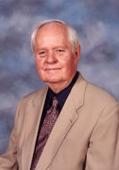
Frank Kiehne joined the YMCA as a teen in Burlington, Iowa. After serving in the Marine Corps during World War II, he attended George Williams College. There, he was the president of the Student YMCA. He worked with the Chicago (Ill.), Kansas City (Mo.), and St. Louis (Mo.) associations before being named the executive director of the YMCA of Reading and Berks County (Pa). While in this role, he developed programs for migrant workers and disadvantaged youth.
In 1970, Kiehne moved to the YMCA in Washington D.C., where he helped to address the social unrest of the era. Kiehne served as a consultant to the newly formed Peace Corps in 1961 and moved on to become the executive director of the YMCA of the USA’s International Division. He was instrumental in implementing a decentralized approach to international work that supported indigenous leadership. In the 1980s, he served as secretary for refugees and rehabilitation for the World Alliance of YMCAs, and in 1990, he became Congressman Donald M. Payne’s foreign affairs advisor.
Kiehne received numerous recognitions, including the North American Fellowship of YMCA Retirees (NAFYR) Stahl Award and the Distinguished Alumni for George Williams College/ Aurora University in 1970, and again in 2006.

2007 INDUCTEE Frank C. Kiehne (1925-2014)
The World Alliance of YMCAs
YMCA of Greater Kansas City
YMCA of Greater Washington
YMCA of Metropolitan Chicago
YMCA of Reading and Berks County
YMCA of the USA
Frank Kiehne joined the YMCA as a teen in Burlington, Iowa. After serving in the Marine Corps during World War II, he attended George Williams College. There, he was the president of the Student YMCA. He worked with the Chicago (Ill.), Kansas City (Mo.), and St. Louis (Mo.) associations before being named the executive director of the YMCA of Reading and Berks County (Pa). While in this role, he developed programs for migrant workers and disadvantaged youth.
In 1970, Kiehne moved to the YMCA in Washington D.C., where he helped to address the social unrest of the era. Kiehne served as a consultant to the newly formed Peace Corps in 1961 and moved on to become the executive director of the YMCA of the USA’s International Division. He was instrumental in implementing a decentralized approach to international work that supported indigenous leadership. In the 1980s, he served as secretary for refugees and rehabilitation for the World Alliance of YMCAs, and in 1990, he became Congressman Donald M. Payne’s foreign affairs advisor.
Kiehne received numerous recognitions, including the North American Fellowship of YMCA Retirees (NAFYR) Stahl Award and the Distinguished Alumni for George Williams College/ Aurora University in 1970, and again in 2006.
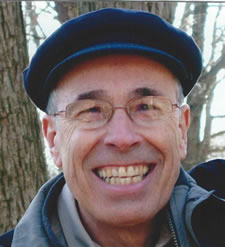
Ron Kinnamon was known as a positive, upbeat and creative leader during 38 years as an executive with the YMCA. Ron started at YMCA Camp Grady Spruce. He then worked with YMCAs in Dallas, Miami, Atlanta and San Francisco before finishing his career with the YMCA of the USA as assistant national executive before retiring in 1998.
Kinnamon was the first to receive the distinguished F. William Stahl Award in 1975 for publishing a 1,500 page resource: “Family Focus” that contained material used to facilitate workshops around the nation with local YMCA leadership on family values and enrichment programs.
Kinnamon was the first to receive the distinguished “Legends in Camping” Award in 1995 which recognizes those individuals who have been integral in shaping the camping experience and model while he was serving on the staff of YMCA of the USA.
One of Kinnamon’s most significant contributions was incorporating the four character development values of Caring, Honesty, Respect and Responsibility in all YMCA programs. He was also an early proponent of older adult programs in the YMCA for aging baby boomers as well as concerned with childhood obesity and youth fitness long before it was a common concern.

2016 INDUCTEE Ron Kinnamon (1937-2015)
YMCA of Greater Miami
YMCA of the USA
YMCA Camp Grady Spruce
South Field Executive - Atlanta
National West Field Executive
Ron Kinnamon was known as a positive, upbeat and creative leader during 38 years as an executive with the YMCA. Ron started at YMCA Camp Grady Spruce. He then worked with YMCAs in Dallas, Miami, Atlanta and San Francisco before finishing his career with the YMCA of the USA as assistant national executive before retiring in 1998.
Kinnamon was the first to receive the distinguished F. William Stahl Award in 1975 for publishing a 1,500 page resource: “Family Focus” that contained material used to facilitate workshops around the nation with local YMCA leadership on family values and enrichment programs.
Kinnamon was the first to receive the distinguished “Legends in Camping” Award in 1995 which recognizes those individuals who have been integral in shaping the camping experience and model while he was serving on the staff of YMCA of the USA.
One of Kinnamon’s most significant contributions was incorporating the four character development values of Caring, Honesty, Respect and Responsibility in all YMCA programs. He was also an early proponent of older adult programs in the YMCA for aging baby boomers as well as concerned with childhood obesity and youth fitness long before it was a common concern.
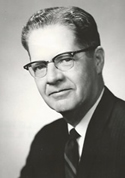
Robert Knight started his YMCA career in 1928 as the assistant young men’s secretary and a participant in the one-year Fellowship Training Class at the Dayton (Ohio) YMCA.
In the 1930s and 1940s, he served as adult program secretary in the Columbus and Toledo (Ohio) associations. For 19 years, beginning in 1948, he was on the staff of the Ohio-West Virginia Area Council of YMCA. He held this position, in which he provided consulting services to local YMCAS, until 1967.
In 1967, he became the first full-time executive director of the YMCA Association of Professional Directors (APD), developing new organizational structures for the APD.
After his retirement in 1972, he continued to consult with local YMCAs and was an active member of the International Association of Retired Directors, serving as its vice president from 1975 to 1978, and president from 1978 to 1981.

1996 INDUCTEE J. Robert Knight
YMCA of Greater Dayton
YMCA of Greater Toledo
Ohio-West Virginia Area Council
Robert Knight started his YMCA career in 1928 as the assistant young men’s secretary and a participant in the one-year Fellowship Training Class at the Dayton (Ohio) YMCA.
In the 1930s and 1940s, he served as adult program secretary in the Columbus and Toledo (Ohio) associations. For 19 years, beginning in 1948, he was on the staff of the Ohio-West Virginia Area Council of YMCA. He held this position, in which he provided consulting services to local YMCAS, until 1967.
In 1967, he became the first full-time executive director of the YMCA Association of Professional Directors (APD), developing new organizational structures for the APD.
After his retirement in 1972, he continued to consult with local YMCAs and was an active member of the International Association of Retired Directors, serving as its vice president from 1975 to 1978, and president from 1978 to 1981.
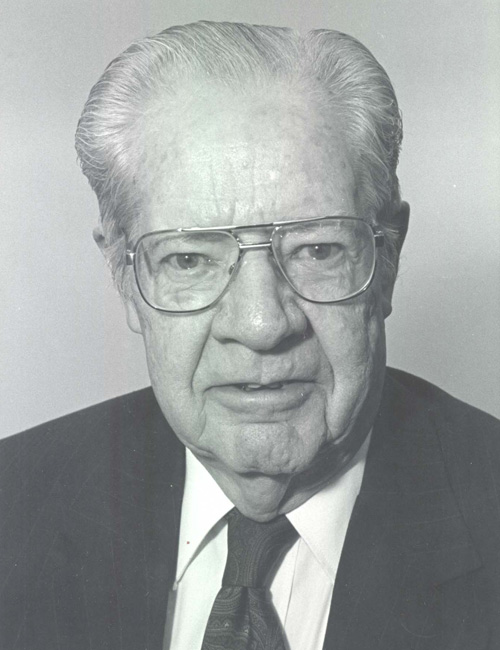
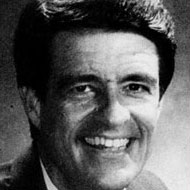
Gary Kuenzilli joined the YMCA when he was nine-years-old, and spent all 33 years of his professional career in the YMCA of Metropolitan Los Angeles (Calif.). He was hired in 1960 as a program director in the San Fernando Valley, and eight years later was the founding executive director of the Torrence-South Bay Branch.
He joined the corporate staff of the Los Angeles YMCA as vice president for branch financial development, and served as the first director of the Southern California Management Resource Center from 1976 until his retirement in 1994. Throughout this career, he was able to combine his skills as a trainer, writer, and organizer.
An advocate of applying modern management theory, Kuenzli wrote articles, monographs, manuals, catalogues, and training designs that were used in YMCAs all over the world. He served one term as national chair of the YMCA Association of Professional Directors (APD) and chaired two APD national conferences. In retirement, he continued to write on YMCA issues and continued traveling as a volunteer trainer for YMCAs across the country.
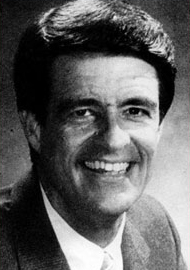
1995 INDUCTEE G. Gary Kuenzli
YMCA of Metropolitan Los Angeles
Gary Kuenzilli joined the YMCA when he was nine-years-old, and spent all 33 years of his professional career in the YMCA of Metropolitan Los Angeles (Calif.). He was hired in 1960 as a program director in the San Fernando Valley, and eight years later was the founding executive director of the Torrence-South Bay Branch.
He joined the corporate staff of the Los Angeles YMCA as vice president for branch financial development, and served as the first director of the Southern California Management Resource Center from 1976 until his retirement in 1994. Throughout this career, he was able to combine his skills as a trainer, writer, and organizer.
An advocate of applying modern management theory, Kuenzli wrote articles, monographs, manuals, catalogues, and training designs that were used in YMCAs all over the world. He served one term as national chair of the YMCA Association of Professional Directors (APD) and chaired two APD national conferences. In retirement, he continued to write on YMCA issues and continued traveling as a volunteer trainer for YMCAs across the country.
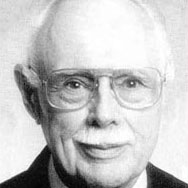
Howard H. Kustermann began his 43-year career with the YMCA in 1936 as a part time youth worker while attending the University of Wisconsin. He later attended George Williams College and the University of Chicago.
In the early part of his career, Kustermann worked in camping and youth programs in Wisconsin and other middle American states. In 1948, he was appointed general executive of the Colorado Springs (Colo.) YMCA. He left Colorado to become the general executive for Public Relations and Development of the YMCA of Chicago (Ill.).
He later assumed successive general executive positions in Dallas (Texas) and Philadelphia (Pa.) before his appointment as executive director of the International Committee of the YMCAs of the U.S. and Canada. In 1973, he joined the World Alliance of YMCAs as associate secretary general in Geneva, Switzerland, where he oversaw the development and spread of YMCA work in over 90 countries.
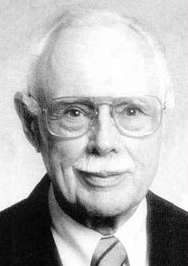
1991 INDUCTEE Howard H. Kustermann
The World Alliance of YMCAs
YMCA of Greater Metropolitan Chicago
YMCA of Greater Metropolitan Dallas
YMCA of Pikes Peak Region
International Committee of the YMCA of the United States and Canada
Howard H. Kustermann began his 43-year career with the YMCA in 1936 as a part time youth worker while attending the University of Wisconsin. He later attended George Williams College and the University of Chicago.
In the early part of his career, Kustermann worked in camping and youth programs in Wisconsin and other middle American states. In 1948, he was appointed general executive of the Colorado Springs (Colo.) YMCA. He left Colorado to become the general executive for Public Relations and Development of the YMCA of Chicago (Ill.).
He later assumed successive general executive positions in Dallas (Texas) and Philadelphia (Pa.) before his appointment as executive director of the International Committee of the YMCAs of the U.S. and Canada. In 1973, he joined the World Alliance of YMCAs as associate secretary general in Geneva, Switzerland, where he oversaw the development and spread of YMCA work in over 90 countries.
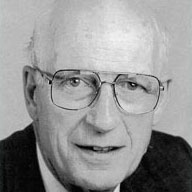
After completing his studies at George Williams College, Henry Labatte began his YMCA career in 1949 in the Chicago (Ill.) association. A native of Toronto, Canada, Labatte spent most of his career in Canada.
He worked for Canada’s National Council of YMCAs as personnel and program services secretary and served as the director of programs for the Toronto association. For 20 years, beginning in 1971, he was president of the YMCA of Metropolitan Toronto.
Labatte was the driving force behind the unprecedented growth of the Toronto Y. Under his leadership, five state-of-the-art facilities were built to serve over 60,000 members. Labatte and the Toronto YMCA became a highly regarded resource for YMCAs and other recreational organizations across Ontario for facility and program development.
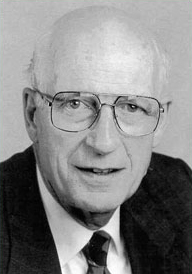
1994 INDUCTEE Henry J. D. Labatte
YMCA of Metropolitan Toronto
National Council of YMCAs of Canada
After completing his studies at George Williams College, Henry Labatte began his YMCA career in 1949 in the Chicago (Ill.) association. A native of Toronto, Canada, Labatte spent most of his career in Canada.
He worked for Canada’s National Council of YMCAs as personnel and program services secretary and served as the director of programs for the Toronto association. For 20 years, beginning in 1971, he was president of the YMCA of Metropolitan Toronto.
Labatte was the driving force behind the unprecedented growth of the Toronto Y. Under his leadership, five state-of-the-art facilities were built to serve over 60,000 members. Labatte and the Toronto YMCA became a highly regarded resource for YMCAs and other recreational organizations across Ontario for facility and program development.
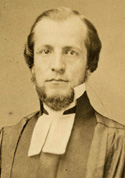
William Chauncey Langdon walked away from a promising career in patent law in 1852 to assist in the organization of a YMCA in the District of Columbia. Beyond the achievement of founding a major urban YMCA, Langdon’s greatest work was as a driving force in the development of a national YMCA identity.
As founder of the National Confederation of Young Men’s Christian Associations and its operating body known as the Central Committee, Langdon played a decisive role in shaping the American YMCA movement. Langdon was a champion of the ecumenical, nondenominational character of the YMCA. He was elected the first general secretary in 1854. Langdon was also instrumental in founding the World Alliance of YMCAs. YMCA historian Howard Hopkins called Langdon “the most significant figure of the first decade” of the YMCA in the United States.

2010 INDUCTEE William Chauncey Langdon (1831-1895)
Founder of the National Confederation of Young Men's Christian Associations and the Central Committee
Founder of the World Alliance of YMCAs
William Chauncey Langdon walked away from a promising career in patent law in 1852 to assist in the organization of a YMCA in the District of Columbia. Beyond the achievement of founding a major urban YMCA, Langdon’s greatest work was as a driving force in the development of a national YMCA identity.
As founder of the National Confederation of Young Men’s Christian Associations and its operating body known as the Central Committee, Langdon played a decisive role in shaping the American YMCA movement. Langdon was a champion of the ecumenical, nondenominational character of the YMCA. He was elected the first general secretary in 1854. Langdon was also instrumental in founding the World Alliance of YMCAs. YMCA historian Howard Hopkins called Langdon “the most significant figure of the first decade” of the YMCA in the United States.
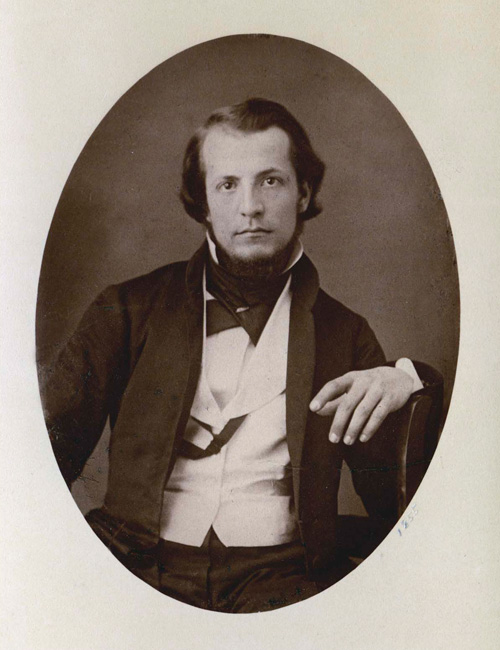
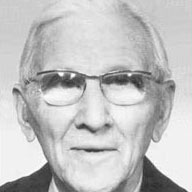
After serving in the Army during WWI, Herbert Lansdale earned his undergraduate and graduate degrees from Oberlin College and completed additional graduate studies at Clark University, while serving as educational director of the Worcester (Mass.) YMCA.
He accepted an assignment as the general secretary of the YMCA in Saloniki, Greece in 1925, and two years later was selected as the national secretary of the YMCAs of Greece, a post he held until 1939. For two years, Lansdale served as the U.S. State Department director of the Division of Relief and Welfare of the American Mission for Aid to Greece.
He returned to the United States as the general secretary of the Rochester (N.Y.) YMCA, where he remained until 1952. Lansdale was appointed executive secretary of the International Committee of the YMCA of the United States and Canada, and served from 1957 to 1964 as general secretary of the National Council.
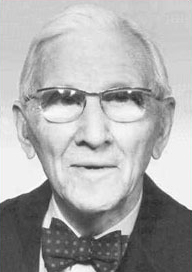
1985 INDUCTEE Herbert P. Lansdale, Jr. (1898-1988)
YMCA of Greater Rochester
YMCA of Greater Worcester
National Council of YMCAs
International Committee of the YMCA of the United States and Canada
After serving in the Army during WWI, Herbert Lansdale earned his undergraduate and graduate degrees from Oberlin College and completed additional graduate studies at Clark University, while serving as educational director of the Worcester (Mass.) YMCA.
He accepted an assignment as the general secretary of the YMCA in Saloniki, Greece in 1925, and two years later was selected as the national secretary of the YMCAs of Greece, a post he held until 1939. For two years, Lansdale served as the U.S. State Department director of the Division of Relief and Welfare of the American Mission for Aid to Greece.
He returned to the United States as the general secretary of the Rochester (N.Y.) YMCA, where he remained until 1952. Lansdale was appointed executive secretary of the International Committee of the YMCA of the United States and Canada, and served from 1957 to 1964 as general secretary of the National Council.
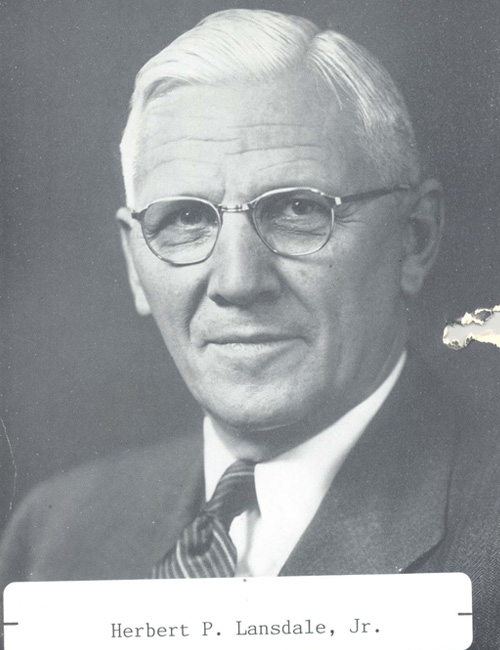
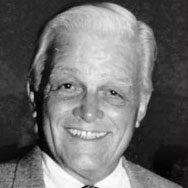
Like his parents before him, Bev Laws became a public school teacher after graduating from college, and worked part time as a football and basketball referee at the YMCA. After completing his graduate degree at New York University in 1953, he accepted the physical director position of the Montgomery, Alabama YMCA.
Soon after, he was appointed executive director of the new South Branch of the Montgomery association. He became the general secretary of the Orange County, Florida YMCA in Orlando in 1963, and completed a capital campaign that resulted in the construction of three new branches. After nine years in Orlando, Laws accepted the chief executive officer position at the YMCA of Greater Houston (Texas).
Under Laws’ leadership, Houston developed a resident camp, added four new facilities and withstood the economic challenges of the 1980s. When Laws retired in 1992, Houston was the fourth largest YMCA in the country. He served on numerous national committees, was the co-chair for the Camping Centennial, and chaired the Urban Group and the National Employee Benefits committees.
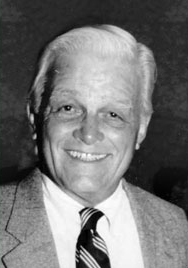
2000 INDUCTEE Bev R. Laws (1926-2015)
Montgomery YMCA Metro Board
Southeast Branch YMCA
YMCA of Greater Houston
Like his parents before him, Bev Laws became a public school teacher after graduating from college, and worked part time as a football and basketball referee at the YMCA. After completing his graduate degree at New York University in 1953, he accepted the physical director position of the Montgomery, Alabama YMCA.
Soon after, he was appointed executive director of the new South Branch of the Montgomery association. He became the general secretary of the Orange County, Florida YMCA in Orlando in 1963, and completed a capital campaign that resulted in the construction of three new branches. After nine years in Orlando, Laws accepted the chief executive officer position at the YMCA of Greater Houston (Texas).
Under Laws’ leadership, Houston developed a resident camp, added four new facilities and withstood the economic challenges of the 1980s. When Laws retired in 1992, Houston was the fourth largest YMCA in the country. He served on numerous national committees, was the co-chair for the Camping Centennial, and chaired the Urban Group and the National Employee Benefits committees.
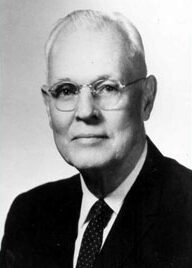
John Ledlie began his 44-year career as a 19-year-old assistant secretary for Boys’ Work at the Bronx Union Branch (N.Y.) YMCA. He later moved to the Patterson (N.J.) YMCA, and in 1924 became the Boys’ Work secretary at the Jersey City Y.
Five years later, he became director of the New Jersey State YMCA’s Camp Wawayanda. For four years, he served as executive for Boys’ Work of the Central Atlantic area. In 1944, he was appointed youth and camping Secretary for the National Council, where he served until his retirement in 1963. Ledlie developed national camping standards that were adopted by other national organizations.
He helped build the Y Indian Guides program for boys and their fathers from a few hundred to 12,000 “tribes” and a membership of 175,000. He was a prolific writer, with over two dozen publications that included: “So You Want To Go To College,” “Gearing Into Life,” “Adventures in Christian Living,” “Managing the YMCA Camp,” “Camping Skills for Trail Living,” and “Better Camping.”
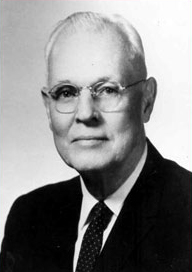
1997 INDUCTEE John A. Ledlie
New Jersey State YMCA
YMCA of Paterson NJ
National Council of YMCAs
Central Atlantic Area YMCA
Jersey City YMCA
John Ledlie began his 44-year career as a 19-year-old assistant secretary for Boys’ Work at the Bronx Union Branch (N.Y.) YMCA. He later moved to the Patterson (N.J.) YMCA, and in 1924 became the Boys’ Work secretary at the Jersey City Y.
Five years later, he became director of the New Jersey State YMCA’s Camp Wawayanda. For four years, he served as executive for Boys’ Work of the Central Atlantic area. In 1944, he was appointed youth and camping Secretary for the National Council, where he served until his retirement in 1963. Ledlie developed national camping standards that were adopted by other national organizations.
He helped build the Y Indian Guides program for boys and their fathers from a few hundred to 12,000 “tribes” and a membership of 175,000. He was a prolific writer, with over two dozen publications that included: “So You Want To Go To College,” “Gearing Into Life,” “Adventures in Christian Living,” “Managing the YMCA Camp,” “Camping Skills for Trail Living,” and “Better Camping.”
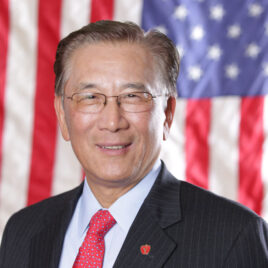
Dr. Lee has been an outstanding volunteer leader in the YMCA at the local, national, and global levels for almost 50 years, particularly in developing comprehensive New American Programs at the YMCA of Greater New York. These programs support new immigrants assimilating to American life. He served as an important program innovator, policy volunteer, and mentor to hundreds of staff and volunteers at the YMCA of Greater New York to strengthen and expand these vital YMCA programs and services throughout the nation. Dr. Lee also served as board chair of the International Branch of the YMCA of Greater New York. During his leadership tenure, the International Branch developed and expanded a wide range of cross-cultural learning exchanges between YMCAs around the United States and YMCAs around the world. These programs helped thousands of American youth strengthen their cultural competencies and commitment to global responsibility. Dr. Lee built new bridges to enhance and develop partnerships between U.S. and Asian YMCAs.
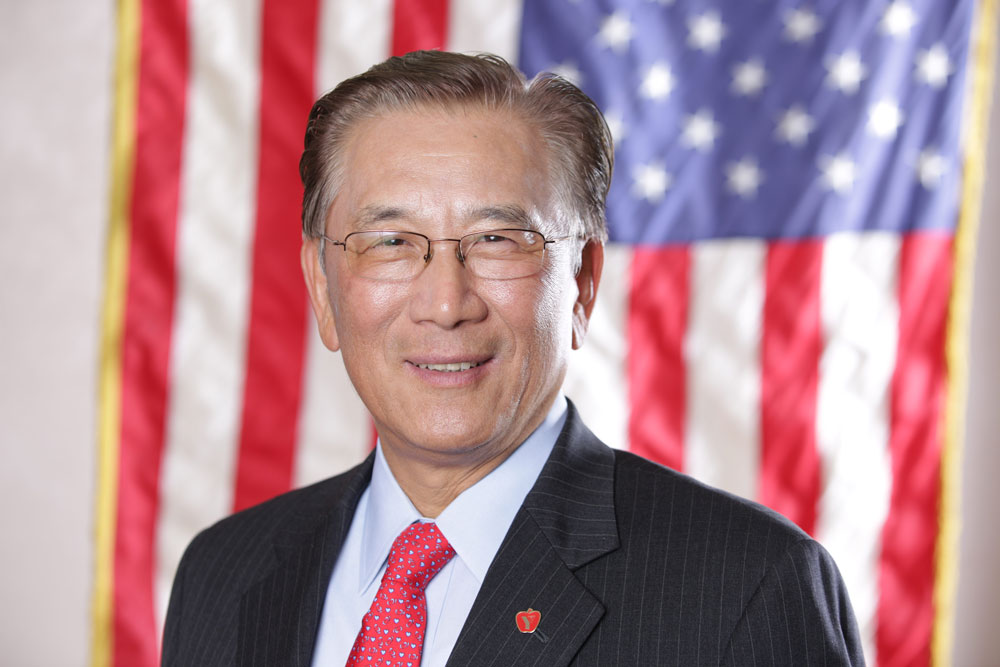
2019 INDUCTEE Dr. William K. Lee
Dr. Lee has been an outstanding volunteer leader in the YMCA at the local, national, and global levels for almost 50 years, particularly in developing comprehensive New American Programs at the YMCA of Greater New York. These programs support new immigrants assimilating to American life. He served as an important program innovator, policy volunteer, and mentor to hundreds of staff and volunteers at the YMCA of Greater New York to strengthen and expand these vital YMCA programs and services throughout the nation. Dr. Lee also served as board chair of the International Branch of the YMCA of Greater New York. During his leadership tenure, the International Branch developed and expanded a wide range of cross-cultural learning exchanges between YMCAs around the United States and YMCAs around the world. These programs helped thousands of American youth strengthen their cultural competencies and commitment to global responsibility. Dr. Lee built new bridges to enhance and develop partnerships between U.S. and Asian YMCAs.
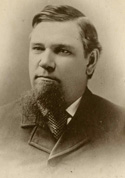
A veteran of the Civil War and an evangelist, William E. Lewis was one of the early state secretaries at a time when the YMCA movement was responding to the need to coordinate and support the work of local associations. He was working with the Massachusetts YMCA when he was recruited to become state secretary for Wisconsin. At that time, there was a movement under way to provide a standardized training program for YMCA secretaries to foster professionalism in the field. Lewis convened an organizational meeting to discuss the creation of a summer school for YMCA secretaries. The meeting was at Camp Collie, on the shores of Lake Geneva, Wis., in August 1884. The outcome was the establishment of the Western Secretarial Institute, which Lewis founded with I.E. Brown and Robert Weidensall. That institute became the Lake Geneva campus of George Williams College. Lewis was named the institute’s first president.

2010 INDUCTEE William E. Lewis (1839-1890)
Wisconsin YMCA
A veteran of the Civil War and an evangelist, William E. Lewis was one of the early state secretaries at a time when the YMCA movement was responding to the need to coordinate and support the work of local associations. He was working with the Massachusetts YMCA when he was recruited to become state secretary for Wisconsin. At that time, there was a movement under way to provide a standardized training program for YMCA secretaries to foster professionalism in the field. Lewis convened an organizational meeting to discuss the creation of a summer school for YMCA secretaries. The meeting was at Camp Collie, on the shores of Lake Geneva, Wis., in August 1884. The outcome was the establishment of the Western Secretarial Institute, which Lewis founded with I.E. Brown and Robert Weidensall. That institute became the Lake Geneva campus of George Williams College. Lewis was named the institute’s first president.
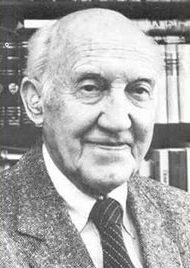
Paul Limbert is among the most notable YMCA professionals of the 20th Century, influencing the YMCA movement at the local, national, and international levels. He earned divinity degrees from both Eastern and Union Theological Seminaries and completed his doctorate in 1929 at Columbia University.
After serving as an Army first lieutenant during WWI, he became the physical director at Camp Upton, New York. Limbert held faculty positions at Franklin and Marshall College and Columbia University and was a faculty adviser to the Student YMCA. For six years, beginning in 1946, he was the president of Springfield College (then the International YMCA College), and in 1953 was named the secretary general of the World Alliance of YMCAs.
After retiring from the World Alliance, he accepted the appointment as the executive director of the YMCA Blue Ridge Assembly in North Carolina. Limbert authored several books, including “Christian Emphasis in YMCA Programs,” “College Teaching and Christian Values,” “Living a Century,” and “New Perspective for the YMCA.” He was recognized with the Legion of Honor award from France, the L.K. Hall Citation from the YMCA Association of Professional Directors (APD), and with honorary doctorates from both Springfield College and American International College.
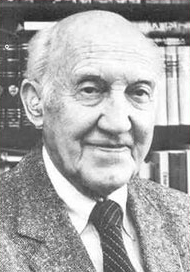
1985 INDUCTEE Paul M. Limbert (1897-1998)
The World Alliance of YMCAs
Paul Limbert is among the most notable YMCA professionals of the 20th Century, influencing the YMCA movement at the local, national, and international levels. He earned divinity degrees from both Eastern and Union Theological Seminaries and completed his doctorate in 1929 at Columbia University.
After serving as an Army first lieutenant during WWI, he became the physical director at Camp Upton, New York. Limbert held faculty positions at Franklin and Marshall College and Columbia University and was a faculty adviser to the Student YMCA. For six years, beginning in 1946, he was the president of Springfield College (then the International YMCA College), and in 1953 was named the secretary general of the World Alliance of YMCAs.
After retiring from the World Alliance, he accepted the appointment as the executive director of the YMCA Blue Ridge Assembly in North Carolina. Limbert authored several books, including “Christian Emphasis in YMCA Programs,” “College Teaching and Christian Values,” “Living a Century,” and “New Perspective for the YMCA.” He was recognized with the Legion of Honor award from France, the L.K. Hall Citation from the YMCA Association of Professional Directors (APD), and with honorary doctorates from both Springfield College and American International College.
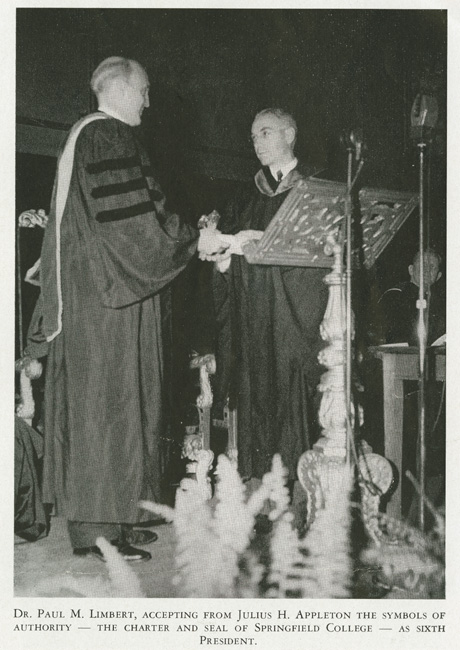
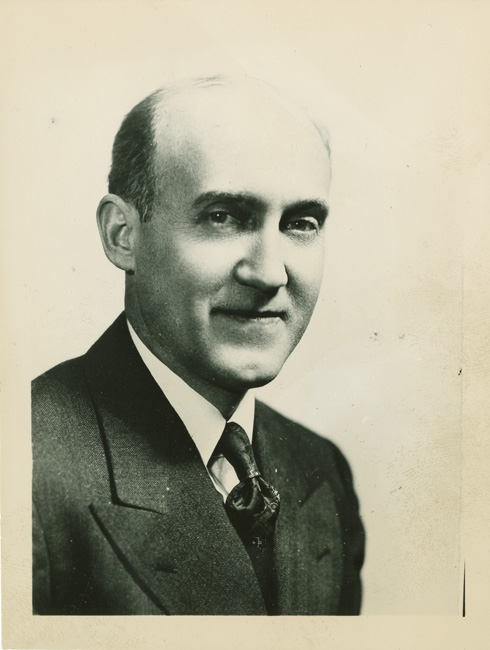
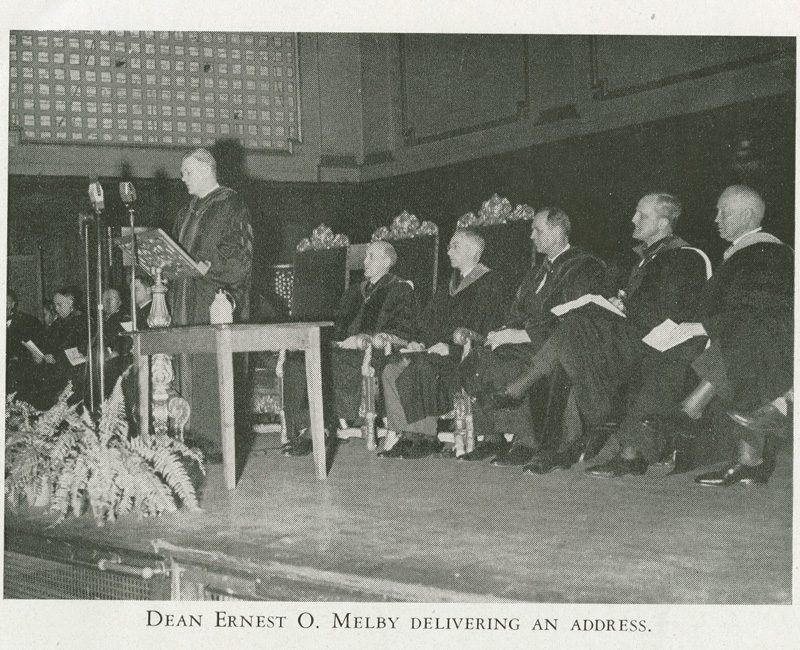
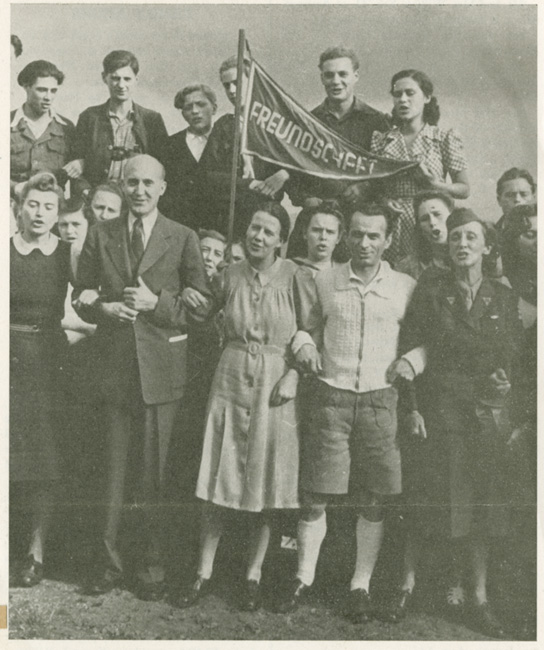
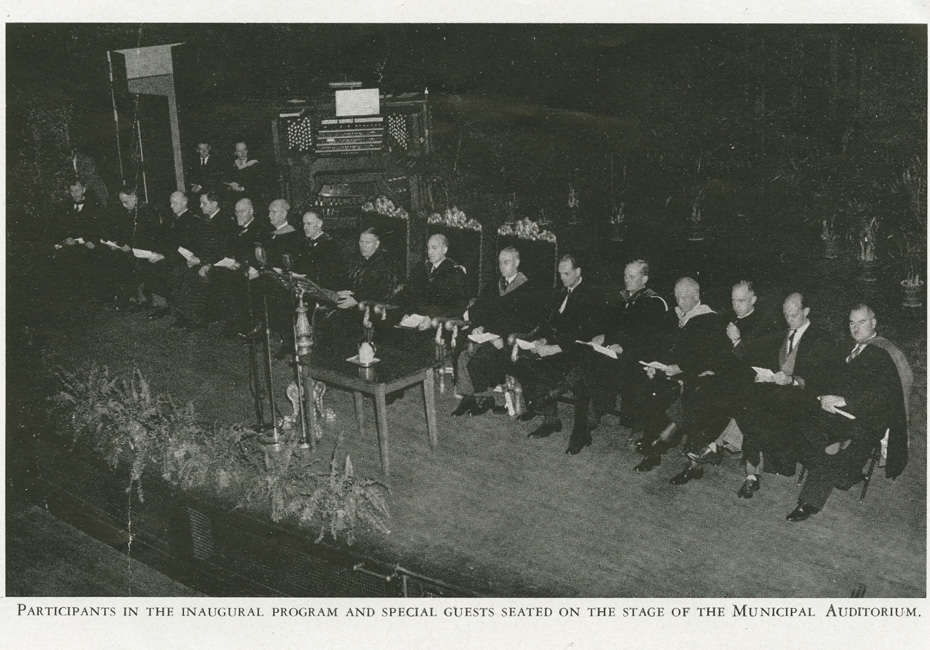
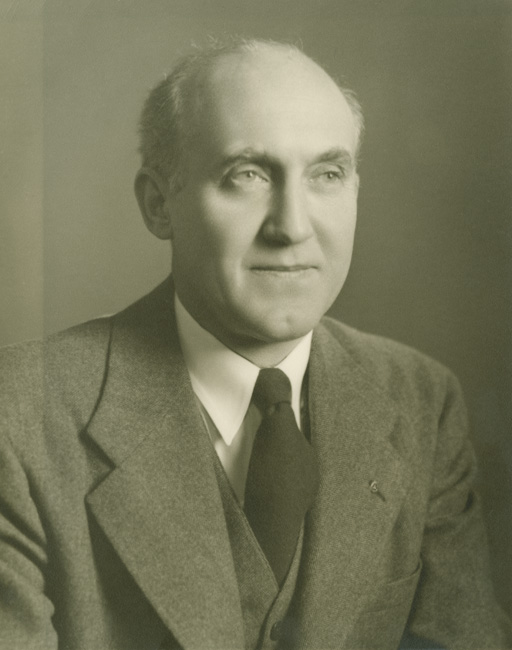
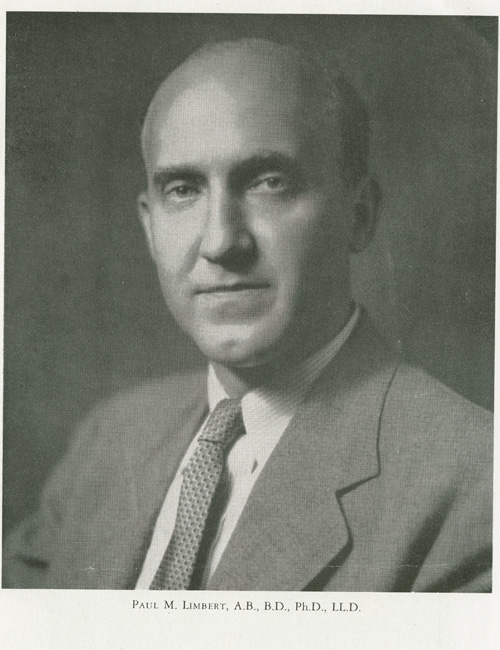
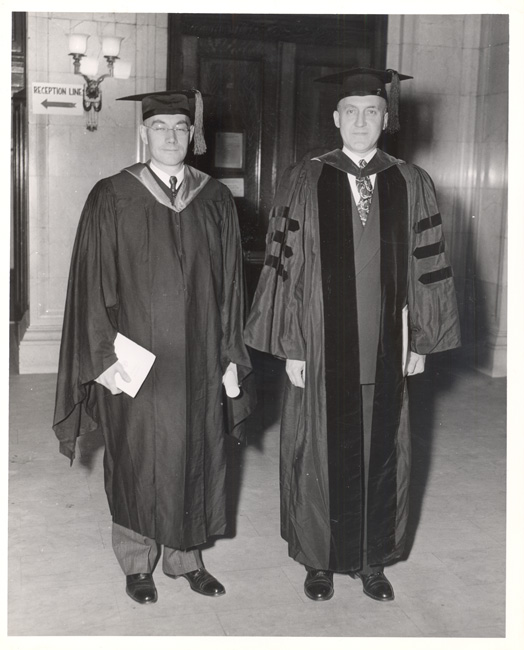
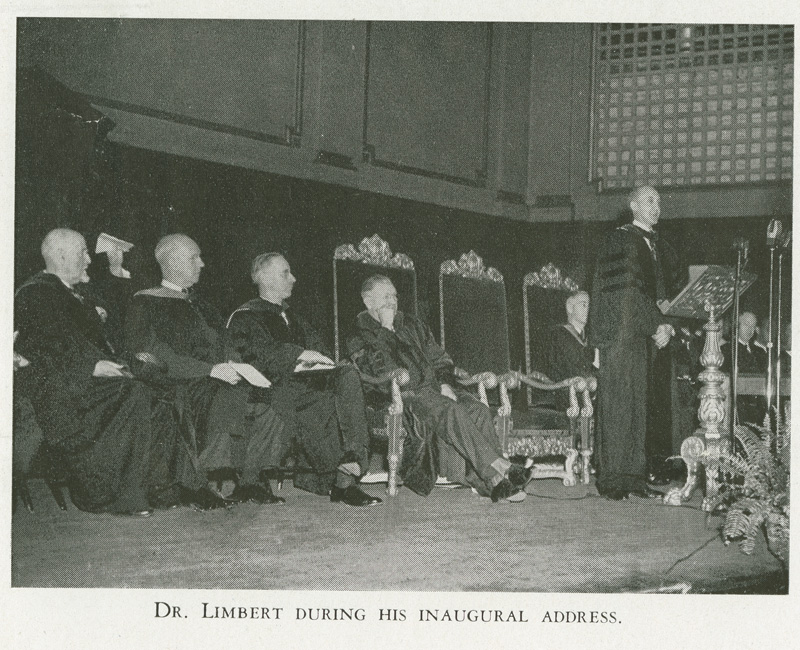
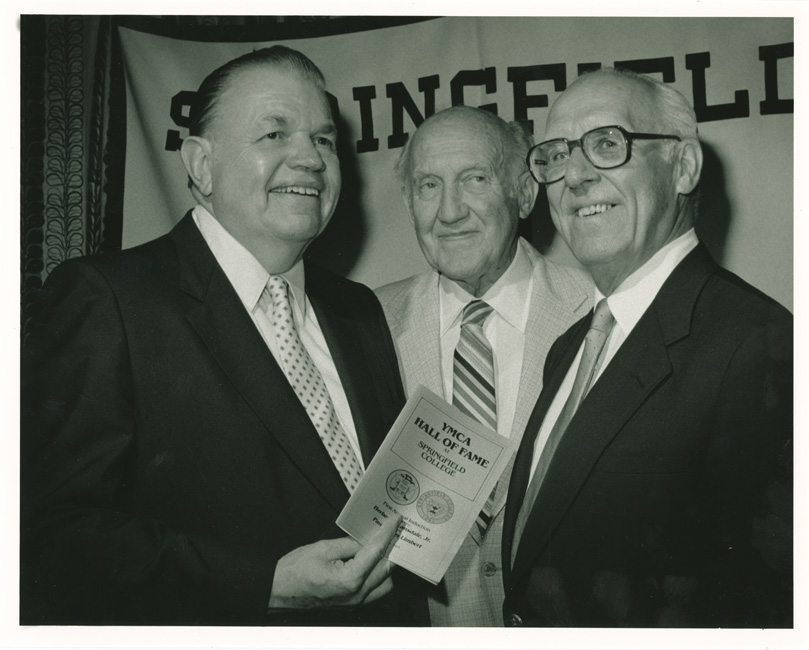
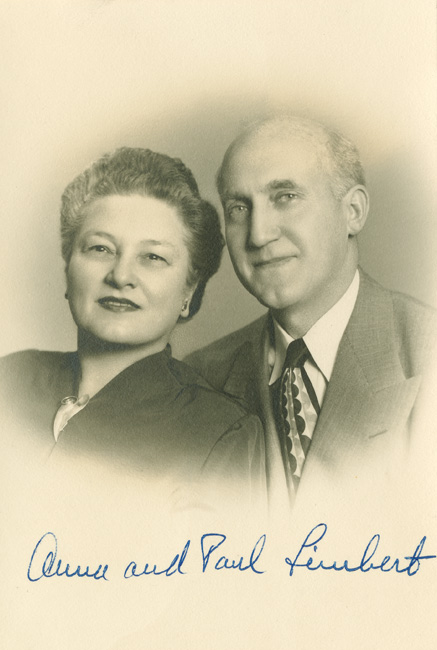
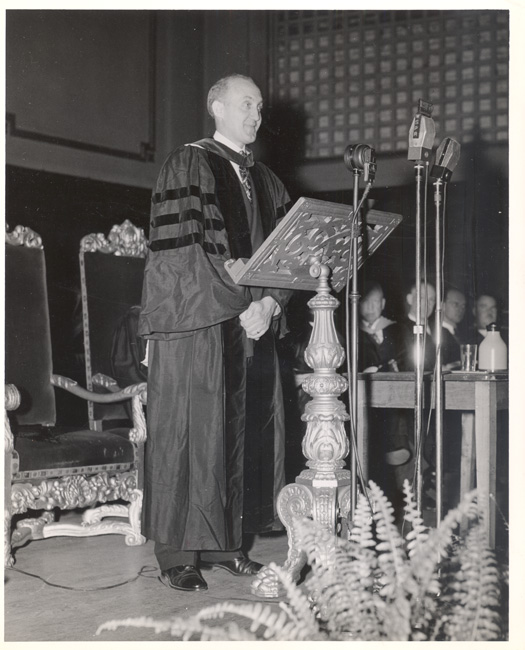
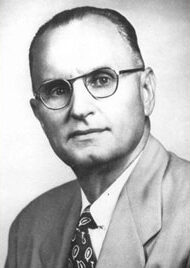
John Long joined the YMCA as a youth member and worked as a part time staff member during his college years. He graduated from Springfield College (then the International YMCA College) in 1922, and began his full-time career with the Brockton (Mass.) YMCA as the industrial and immigration secretary, moving into the general secretary position in 1938.
Long was active in the community, helping immigrants qualify for U.S. citizenship. When he left the Brockton YMCA for a similar position in the Germantown (Pa.) YMCA in 1945, 1,000 people from 17 countries attended a testimonial to honor him.
From 1952 to 1969, he served in several capacities in the Phillipines, including: as a member of the International Committee staff, a member of the National Board of the Philippines YMCA, and as the area secretary of the Southern Philippines. When he left, he was recognized with four citations from various Philippine YMCA organizations honoring his work and dedication to the people.
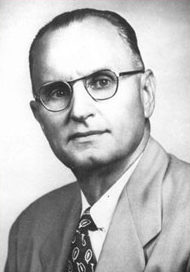
1992 INDUCTEE John F. Long
Philippines YMCA
International Committee of the YMCA
Germantown YMCA
John Long joined the YMCA as a youth member and worked as a part time staff member during his college years. He graduated from Springfield College (then the International YMCA College) in 1922, and began his full-time career with the Brockton (Mass.) YMCA as the industrial and immigration secretary, moving into the general secretary position in 1938.
Long was active in the community, helping immigrants qualify for U.S. citizenship. When he left the Brockton YMCA for a similar position in the Germantown (Pa.) YMCA in 1945, 1,000 people from 17 countries attended a testimonial to honor him.
From 1952 to 1969, he served in several capacities in the Phillipines, including: as a member of the International Committee staff, a member of the National Board of the Philippines YMCA, and as the area secretary of the Southern Philippines. When he left, he was recognized with four citations from various Philippine YMCA organizations honoring his work and dedication to the people.
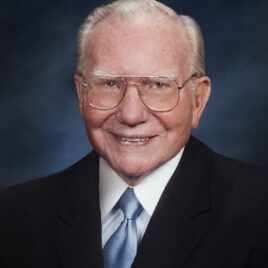
Marvin Ludwig’s inspiring YMCA career reaches both beyond retirement and American soil. After seven years of service as an aquatic director for Camp Highridge and as an executive in Marion, Ohio, Ludwig was selected to serve the YMCAs of Ethiopia as fraternal secretary and eventually secretary general for 11 years. Ludwig’s care and passion to create positive long-lasting impacts for the YMCA of Ethiopia is evident in his work. For example, Ludwig was influential in the creation and execution of the Addis Ababa mission statement, which eventually led to the formation of the Kampala Principles. His commitment to the creation of this mission statement helped create a focused objective for the newly found organization. This dedication to a focused objective is also apparent in the words of Ludwig himself. From a personal anecdote shared by Norris D. Lineweaver, Ludwig utilized the YMCA of Jerusalem as an example of the extreme power in bringing people together. He presented that in the swimming pools of the Jerusalem YMCA where Christians, Muslims, and Jewish people all swam together during a time of great conflict. Ludwig asked the group if they saw not just overcoming fear of water, but also of the other. He left these college students with this wisdom: “The mission of the YMCA is often to see the unseen. Never take for granted the impact you can make on an entire generation, indeed the future of a nation, when you win the trust of a child as their swim instructor.”
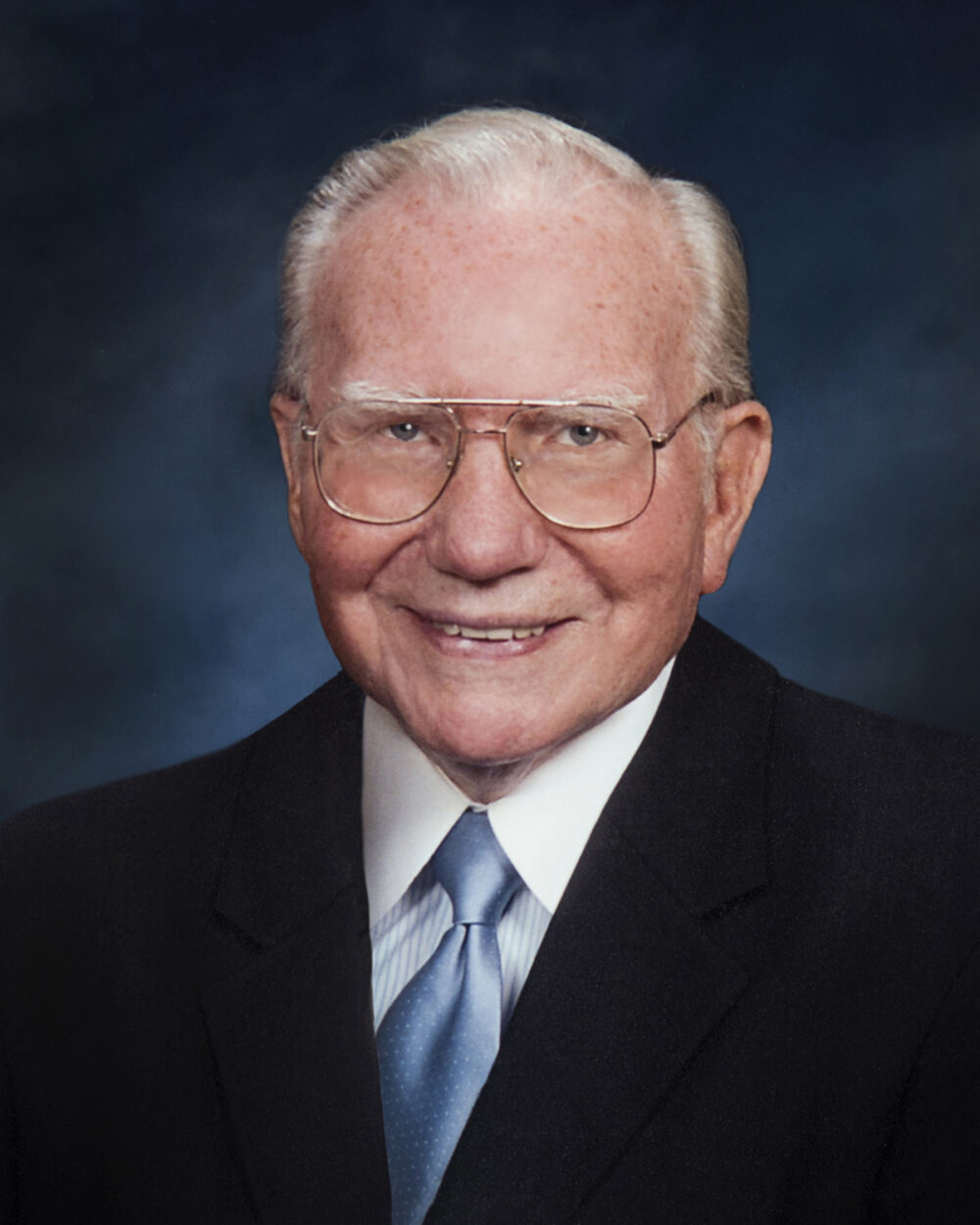
2023 INDUCTEE Marvin Ludwig
YMCA of Marion, Ohio
YMCAs of Ethiopia
International Division, YMCA of the USA
Consultant to the YMCA Fund Inc.
Marvin Ludwig’s inspiring YMCA career reaches both beyond retirement and American soil. After seven years of service as an aquatic director for Camp Highridge and as an executive in Marion, Ohio, Ludwig was selected to serve the YMCAs of Ethiopia as fraternal secretary and eventually secretary general for 11 years. Ludwig’s care and passion to create positive long-lasting impacts for the YMCA of Ethiopia is evident in his work. For example, Ludwig was influential in the creation and execution of the Addis Ababa mission statement, which eventually led to the formation of the Kampala Principles. His commitment to the creation of this mission statement helped create a focused objective for the newly found organization. This dedication to a focused objective is also apparent in the words of Ludwig himself. From a personal anecdote shared by Norris D. Lineweaver, Ludwig utilized the YMCA of Jerusalem as an example of the extreme power in bringing people together. He presented that in the swimming pools of the Jerusalem YMCA where Christians, Muslims, and Jewish people all swam together during a time of great conflict. Ludwig asked the group if they saw not just overcoming fear of water, but also of the other. He left these college students with this wisdom: “The mission of the YMCA is often to see the unseen. Never take for granted the impact you can make on an entire generation, indeed the future of a nation, when you win the trust of a child as their swim instructor.”
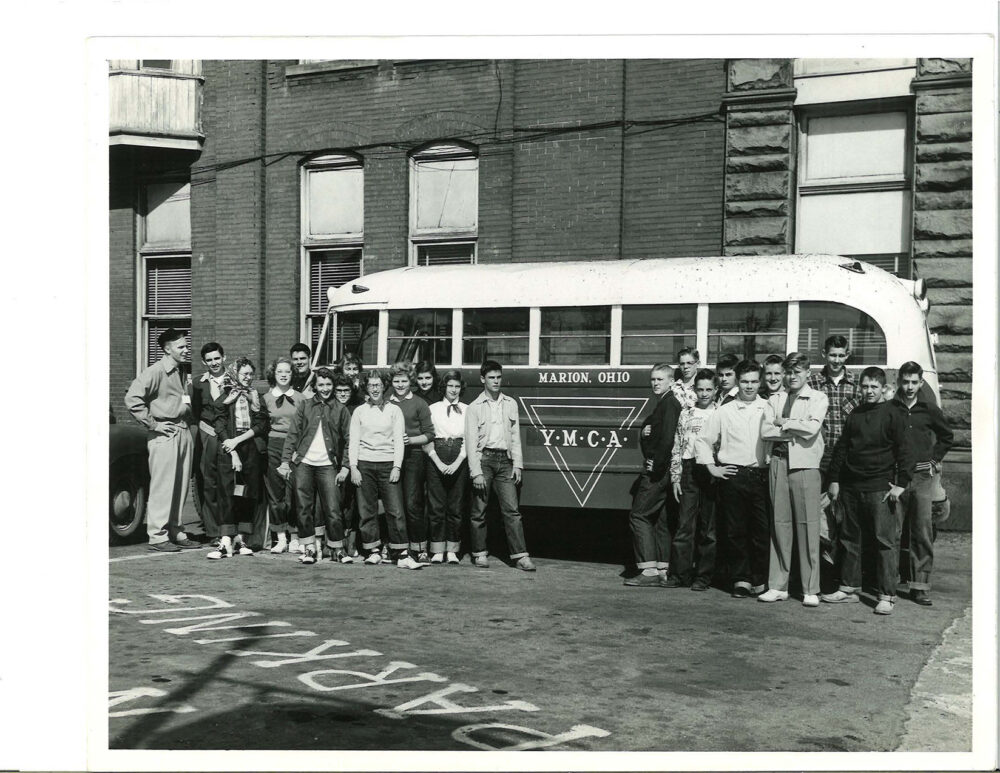
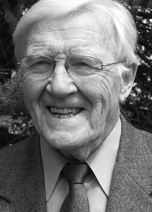
Armin F. Luehrs (Whitey) had a 41 year career with the YMCA as one of the most highly recognized camping specialists from 1948 to 1990. He was considered legendary by his peers during the camping movement of his time. Luehrs was drawn to the YMCA as a Hi-Y high school student when a new YMCA opened up in his hometown of Sheboygan, Wis. He then spent five years as a summer staff person at the Wisconsin State YMCA Camp Manito-wish.
His local work continued with the St. Paul YMCA as director of the wilderness canoe camp, Widjiwagan, and the new resident family Camp du Nord, the latter of which he helped establish. It was there he met the camp nurse who eventually became his wife and mother to their three children.
With the Minneapolis YMCA, Luehrs supervised the four resident youth camps and three large metropolitan day camps, along with the development of a new 1400 acre site for camping and recreational use.
Throughout his career, Luehrs had been actively involved with the American Camp Association (ACA) in a variety of projects and events, culminating a term as national president. He was also a recipient of ACA’s Distinguished Service Award, recognizing his volunteer service.
Luehrs was then invited to serve on the national staff, first, as a regional program and camping specialist for the Southwest and Pacific Regions (office, Dallas) and later with the Program Division (Chicago) continuing with the camping portfolio nationally.
Some additional highlights during this era included: the development of Day Camp standards; the first and second National Conferences for Outdoor Education (school related programs); the centennial of YMCA camping in 1985 brought more than 500 people to the Y of the Rockies; the U.S. Postal System issuing a YMCA Camping Stamp (22 cents), the first of its kind; inauguration of World Camps in each of the regions; and camper exchange programs with European countries.
For eight years in retirement, Luehrs served as chairman to the International Camp Counselor Program for the New York YMCA.

2013 INDUCTEE Armin F. Luehrs (Whitey) (1924-2019)
St. Paul YMCA
Minneapolis YMCA
New York YMCA
National Staff of the YMCA
Armin F. Luehrs (Whitey) had a 41 year career with the YMCA as one of the most highly recognized camping specialists from 1948 to 1990. He was considered legendary by his peers during the camping movement of his time. Luehrs was drawn to the YMCA as a Hi-Y high school student when a new YMCA opened up in his hometown of Sheboygan, Wis. He then spent five years as a summer staff person at the Wisconsin State YMCA Camp Manito-wish.
His local work continued with the St. Paul YMCA as director of the wilderness canoe camp, Widjiwagan, and the new resident family Camp du Nord, the latter of which he helped establish. It was there he met the camp nurse who eventually became his wife and mother to their three children.
With the Minneapolis YMCA, Luehrs supervised the four resident youth camps and three large metropolitan day camps, along with the development of a new 1400 acre site for camping and recreational use.
Throughout his career, Luehrs had been actively involved with the American Camp Association (ACA) in a variety of projects and events, culminating a term as national president. He was also a recipient of ACA’s Distinguished Service Award, recognizing his volunteer service.
Luehrs was then invited to serve on the national staff, first, as a regional program and camping specialist for the Southwest and Pacific Regions (office, Dallas) and later with the Program Division (Chicago) continuing with the camping portfolio nationally.
Some additional highlights during this era included: the development of Day Camp standards; the first and second National Conferences for Outdoor Education (school related programs); the centennial of YMCA camping in 1985 brought more than 500 people to the Y of the Rockies; the U.S. Postal System issuing a YMCA Camping Stamp (22 cents), the first of its kind; inauguration of World Camps in each of the regions; and camper exchange programs with European countries.
For eight years in retirement, Luehrs served as chairman to the International Camp Counselor Program for the New York YMCA.
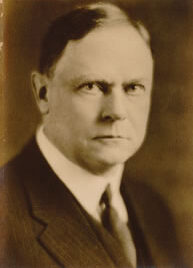
Adrian Lyon was born in Pluckemin, New Jersey in 1869. He was prominent in the Perth Amboy YMCA and was its first president. Lyon was chair of the committee that conducted the constitutional convention of the YMCA resulting on the formation of the National Council, of which he was the first and organizing president in 1924. He was a member of the National Council representing New Jersey from 1924-1939. He was also the first chair of the General Board of the National Council of YMCAs from 1924-1934. In addition he was a member of the International Board which led the World Service Program of the YMCA.
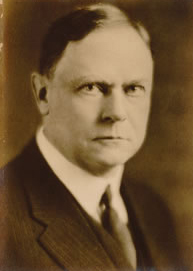
2016 INDUCTEE Adrian Lyon (1869-1950)
National Council of YMCAs
Adrian Lyon was born in Pluckemin, New Jersey in 1869. He was prominent in the Perth Amboy YMCA and was its first president. Lyon was chair of the committee that conducted the constitutional convention of the YMCA resulting on the formation of the National Council, of which he was the first and organizing president in 1924. He was a member of the National Council representing New Jersey from 1924-1939. He was also the first chair of the General Board of the National Council of YMCAs from 1924-1934. In addition he was a member of the International Board which led the World Service Program of the YMCA.
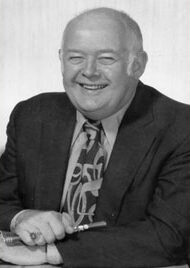
Richard MacMorran began his YMCA career in 1937 as program secretary at the Seattle (Wash.) YMCA, eventually moving into the branch executive position during his 11 years of service. He helped organize the Youth and Government program and successfully conducted a capital campaign for a new facility.
In 1948, he was appointed general secretary at the Boise (Idaho) YMCA. He then served in senior leadership positions at both the Illinois and later, the Southern Area Council of YMCAs. MacMorran led the movement to integrate the Southern YMCA region and promoted affirmative action programs by encouraging minority representation at all levels of volunteer and professional leadership.
He helped YMCAs deal positively with the challenges of interracial and intercultural understanding. MacMorran was an enthusiastic advocate for teen programs, camping, and World Service. He retired in 1977.
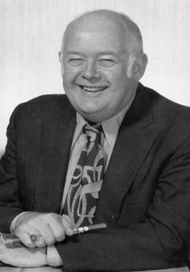
2004 INDUCTEE Richard W. MacMorran (1913-1998)
YMCA of Greater Washington
Southern Area Council of YMCAs
Richard MacMorran began his YMCA career in 1937 as program secretary at the Seattle (Wash.) YMCA, eventually moving into the branch executive position during his 11 years of service. He helped organize the Youth and Government program and successfully conducted a capital campaign for a new facility.
In 1948, he was appointed general secretary at the Boise (Idaho) YMCA. He then served in senior leadership positions at both the Illinois and later, the Southern Area Council of YMCAs. MacMorran led the movement to integrate the Southern YMCA region and promoted affirmative action programs by encouraging minority representation at all levels of volunteer and professional leadership.
He helped YMCAs deal positively with the challenges of interracial and intercultural understanding. MacMorran was an enthusiastic advocate for teen programs, camping, and World Service. He retired in 1977.
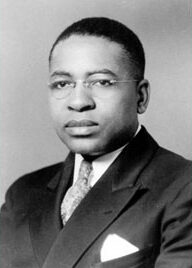
After graduating from Knoxville College in 1928, Leo B. Marsh began working at the Detroit (Mich.) YMCA as the youth work secretary. He held a series of YMCA positions in Chicago (Ill.) and in Toledo and Columbus (Ohio). In 1944, he joined the national staff as associate executive secretary of the Central Atlantic Area. He later served as the director of the Board of Interracial and Counseling Services.
During this period, he continued his education at George Williams College, Springfield College, the University of Chicago, and Columbia University. During his 26 years as director, he became the first African- American president of the National Association of Secretaries in 1954. He also served as the U.S. representative at the World Conference of Christian Youth in India in 1952, and as a delegate to the YMCA World Council Meeting in Japan in 1965. He was one of the founders and first general chair of the National Conference of Black and Non-White YMCA Staff (BANWYS).
Marsh also served for two years as the assistant executive director of the National Board and as executive for the Committee for Interracial Advancement in 1967. After he retired in 1970, he served as a consultant to the Harlem Branch of the YMCA of Greater New York, where he was instrumental in the creation of the Black Achievers program as a strategy to create mentorships between inner-city youth of color and successful minority businessmen.
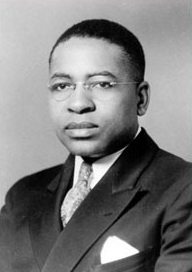
1991 INDUCTEE Leo B. Marsh (1903-1979)
YMCA of Greater New York
YMCA of Metropolitan Chicago
YMCA of Metropolitan Detroit
National Staff of the YMCA
After graduating from Knoxville College in 1928, Leo B. Marsh began working at the Detroit (Mich.) YMCA as the youth work secretary. He held a series of YMCA positions in Chicago (Ill.) and in Toledo and Columbus (Ohio). In 1944, he joined the national staff as associate executive secretary of the Central Atlantic Area. He later served as the director of the Board of Interracial and Counseling Services.
During this period, he continued his education at George Williams College, Springfield College, the University of Chicago, and Columbia University. During his 26 years as director, he became the first African- American president of the National Association of Secretaries in 1954. He also served as the U.S. representative at the World Conference of Christian Youth in India in 1952, and as a delegate to the YMCA World Council Meeting in Japan in 1965. He was one of the founders and first general chair of the National Conference of Black and Non-White YMCA Staff (BANWYS).
Marsh also served for two years as the assistant executive director of the National Board and as executive for the Committee for Interracial Advancement in 1967. After he retired in 1970, he served as a consultant to the Harlem Branch of the YMCA of Greater New York, where he was instrumental in the creation of the Black Achievers program as a strategy to create mentorships between inner-city youth of color and successful minority businessmen.
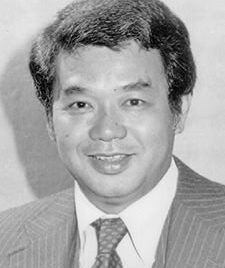
As a YMCA Professional, Robert devoted more than 50 years of his career as a leader in YMCA organizations in Hawaii, the USA and around the world. Robert’s YMCA experience included complex international work in four continents, the Pacific, Middle East and across the U.S.
He provided leadership with “YMCAs in areas of crises” by traveling several times each year to Belfast, Northern Ireland and The Republic working at the invitation of and in partnership with the Belfast YMCA and the Irish YMCA. He also worked actively in support of the YMCA of the USA’s Jerusalem International YMCA, East Jerusalem YMCA, Gaza YMCA, Nazareth YMCA and others in organizing and participating in meetings with the leadership of other regional factions. Robert also initiated and led activities to strengthen partnerships with the Africa Alliance of YMCAs.
Throughout his career, Robert also played a significant role in the YMCA’s relationship, between the YMCA of the USA and YMCAs in Asia & the Pacific as well as the Canadian and Mexican YMCAs, and the Soviet Union. He served as the key representative for the YMCA of the USA for several decades with the National General Secretaries of both China and Japan.
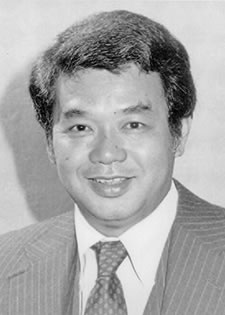
2016 INDUCTEE Robert K. Masuda
YMCA of the USA
As a YMCA Professional, Robert devoted more than 50 years of his career as a leader in YMCA organizations in Hawaii, the USA and around the world. Robert’s YMCA experience included complex international work in four continents, the Pacific, Middle East and across the U.S.
He provided leadership with “YMCAs in areas of crises” by traveling several times each year to Belfast, Northern Ireland and The Republic working at the invitation of and in partnership with the Belfast YMCA and the Irish YMCA. He also worked actively in support of the YMCA of the USA’s Jerusalem International YMCA, East Jerusalem YMCA, Gaza YMCA, Nazareth YMCA and others in organizing and participating in meetings with the leadership of other regional factions. Robert also initiated and led activities to strengthen partnerships with the Africa Alliance of YMCAs.
Throughout his career, Robert also played a significant role in the YMCA’s relationship, between the YMCA of the USA and YMCAs in Asia & the Pacific as well as the Canadian and Mexican YMCAs, and the Soviet Union. He served as the key representative for the YMCA of the USA for several decades with the National General Secretaries of both China and Japan.
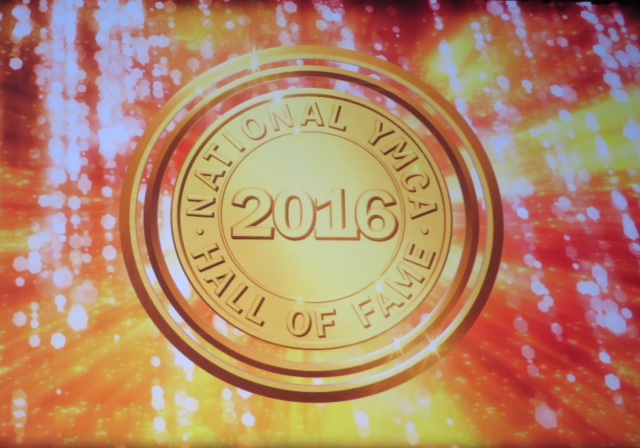
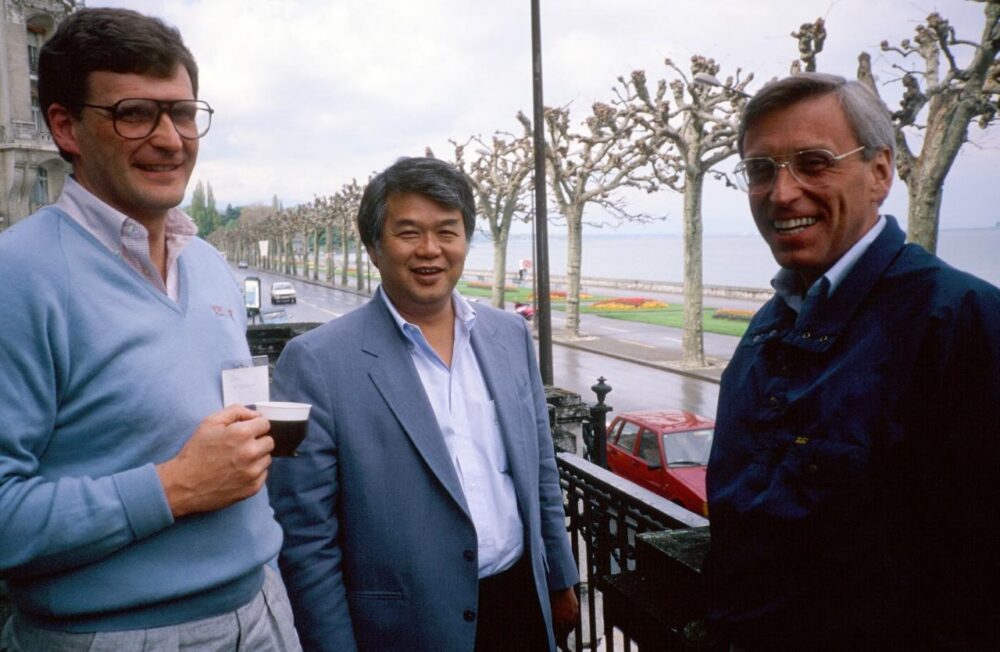
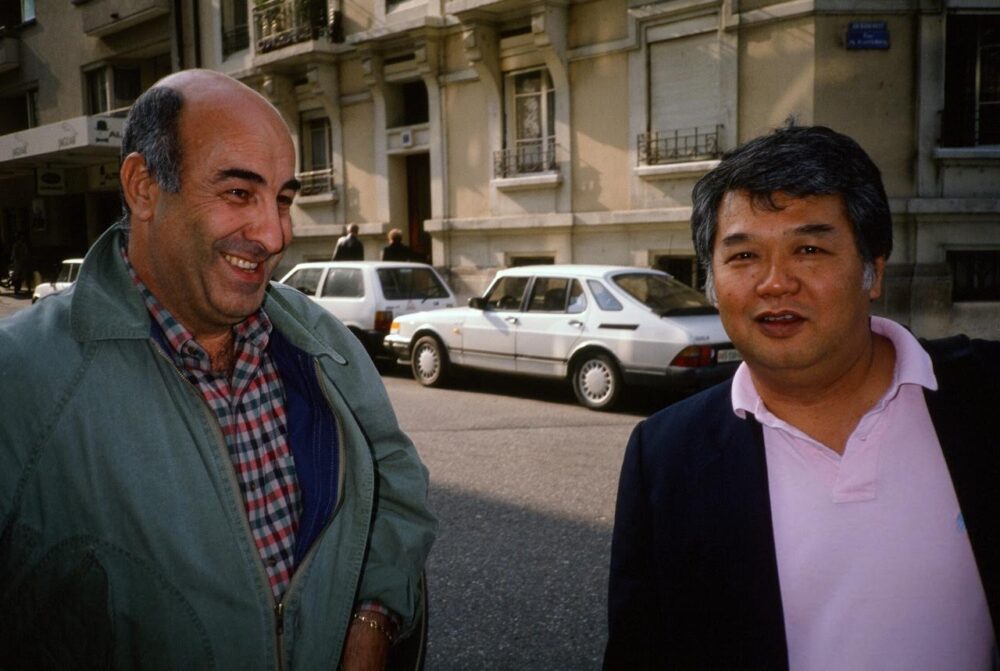
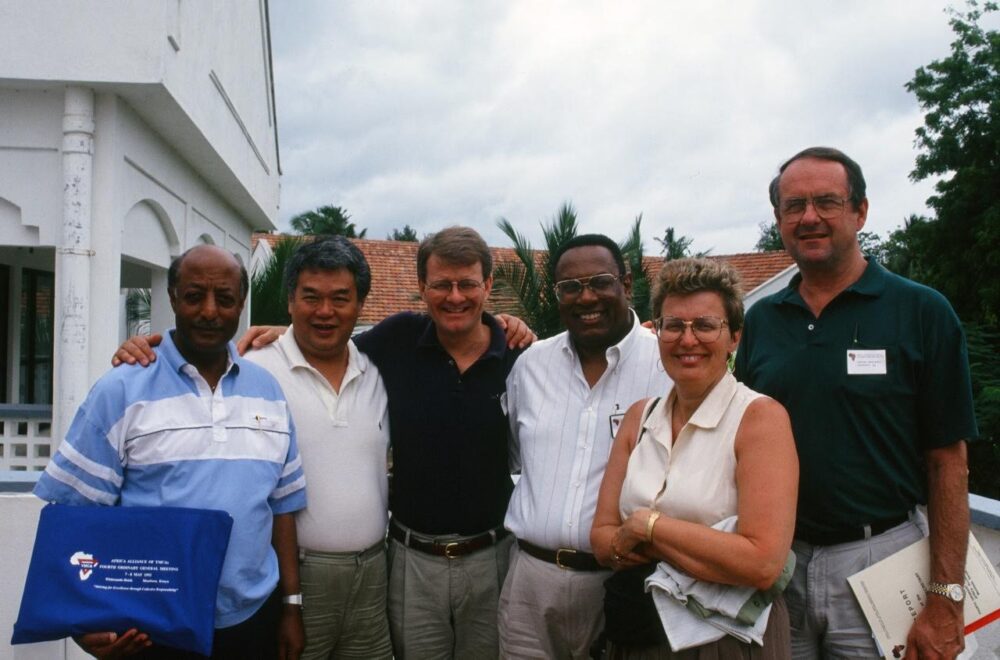
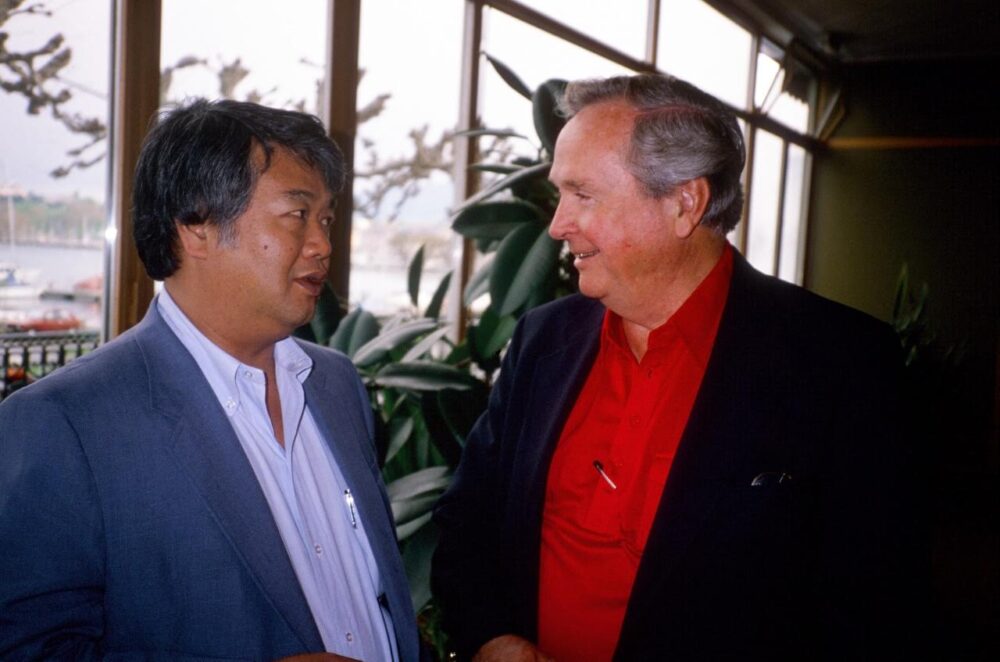
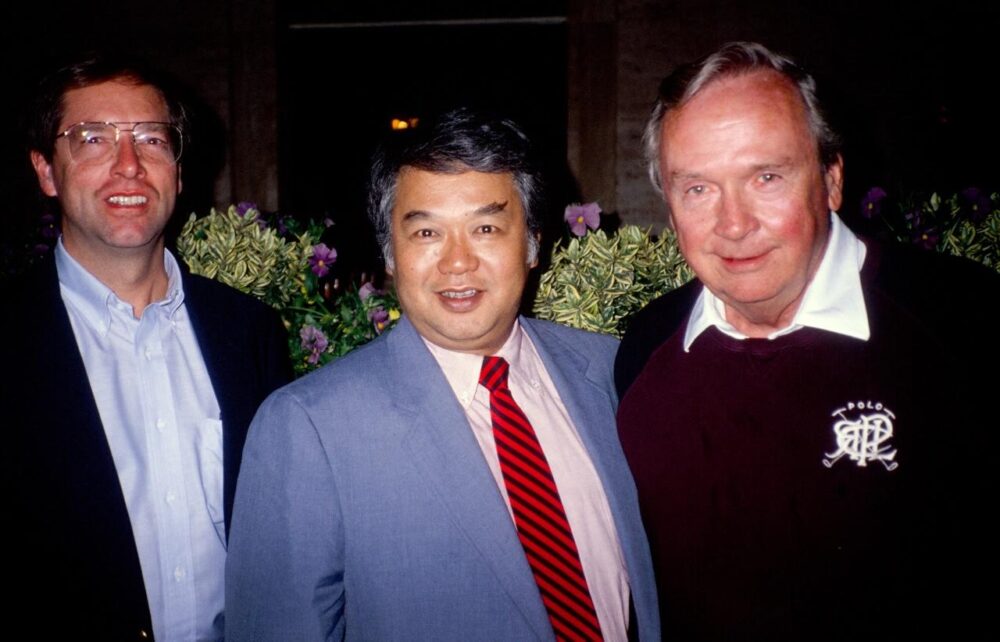
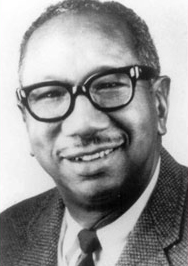
Meredith Mathews began his YMCA career in Ohio, first in Columbus and later in Youngstown. He moved to Oklahoma as program director of the YMCA in Lawton and then as the executive director of the USO-YMCA in McAlester.
In 1947, he became the director of the Northeast Fourth Street YMCA in Oklahoma City, a struggling inner-city association that he helped to transform with a new facility. Ten years later, he was appointed executive of the East Madison YMCA in Seattle (Wash.). His successes led to his appointment as associate executive director of the Pacific Northwest Area Council of the YMCA in 1965. He was named executive director of the Pacific region YMCAs in 1971, with responsibility for assisting 126 facilities in 11 states.
He retired in 1976 after 39 years of service, but remained active in the International Association of Retired Directors of the YMCA. In 1993, the YMCA of Greater Seattle recognized Mathews by naming a facility in his honor: the Meredith Matthews East Madison YMCA. He also received municipal and community recognitions, as well as awards from the YMCA Association of Professional Directors (APD), the National Board of YMCAs, and United Way.

1995 INDUCTEE Meredith Mathews (1919-1992)
Northeast Fourth Street YMCA
YMCA in McAlester
YMCA of Central Ohio
YMCA of Lawton Oklahoma
YMCA of Youngstown Ohio
Pacific Northwest Area Council of the YMCA
Meredith Mathews began his YMCA career in Ohio, first in Columbus and later in Youngstown. He moved to Oklahoma as program director of the YMCA in Lawton and then as the executive director of the USO-YMCA in McAlester.
In 1947, he became the director of the Northeast Fourth Street YMCA in Oklahoma City, a struggling inner-city association that he helped to transform with a new facility. Ten years later, he was appointed executive of the East Madison YMCA in Seattle (Wash.). His successes led to his appointment as associate executive director of the Pacific Northwest Area Council of the YMCA in 1965. He was named executive director of the Pacific region YMCAs in 1971, with responsibility for assisting 126 facilities in 11 states.
He retired in 1976 after 39 years of service, but remained active in the International Association of Retired Directors of the YMCA. In 1993, the YMCA of Greater Seattle recognized Mathews by naming a facility in his honor: the Meredith Matthews East Madison YMCA. He also received municipal and community recognitions, as well as awards from the YMCA Association of Professional Directors (APD), the National Board of YMCAs, and United Way.
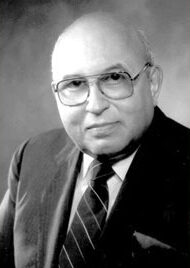
Bill McAllister joined the St. Louis (Mo.) YMCA as a youth work director in 1947. Seven years later, he became a branch executive in Chester, Pennsylvania, were he established extensive young-adult programs and was responsible for the construction of a new facility.
He served in several branches in the Buffalo (N.Y.) YMCA before being appointed associate executive for urban affairs. In this role, he created the Y Academy, an education program that worked with gifted inner-city boys in Buffalo. In 1968, McAllister became the associate executive of the West Central Area of the YMCA, and two years later was appointed the first executive director of the newly-formed Mid-American region. He served as director of the Department of Personnel and Training for the YMCA of the USA.
For five years, beginning in 1984, he was senior vice president and chief operating officer of the YMCA Retirement Fund, with an emphasis on strategic planning. He retired in 1989, but maintained connections with the YMCA through board service on the Greater Bergen County (N.J.) YMCA, Sioux Indian YMCA, and YMCA of the Rockies. He also served as chairman of the World Fellowship of YMCA Retirees.
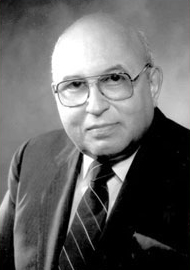
1996 INDUCTEE William A. McAllister
West Chester Area YMCA
YMCA Buffalo Niagara
YMCA of the USA
West Central Area of the YMCA
Mid-American Region
Bill McAllister joined the St. Louis (Mo.) YMCA as a youth work director in 1947. Seven years later, he became a branch executive in Chester, Pennsylvania, were he established extensive young-adult programs and was responsible for the construction of a new facility.
He served in several branches in the Buffalo (N.Y.) YMCA before being appointed associate executive for urban affairs. In this role, he created the Y Academy, an education program that worked with gifted inner-city boys in Buffalo. In 1968, McAllister became the associate executive of the West Central Area of the YMCA, and two years later was appointed the first executive director of the newly-formed Mid-American region. He served as director of the Department of Personnel and Training for the YMCA of the USA.
For five years, beginning in 1984, he was senior vice president and chief operating officer of the YMCA Retirement Fund, with an emphasis on strategic planning. He retired in 1989, but maintained connections with the YMCA through board service on the Greater Bergen County (N.J.) YMCA, Sioux Indian YMCA, and YMCA of the Rockies. He also served as chairman of the World Fellowship of YMCA Retirees.
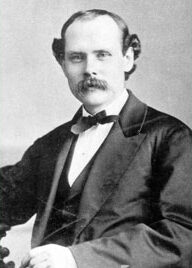
When Robert McBurney arrived in the United States from Ireland in 1854, he took a room at a YMCA. Eight years later, he became the only employed staff person of the New York City YMCA. He was responsible for taking care of the library and programs in the few rented rooms that made up the association.
Under McBurney’s leadership, the association grew and moved several times into larger quarters. In 1870, the YMCA moved into its own building, designed by McBurney, to accommodate the specific membership and program needs of the Y. Over the next seven years, McBurney oversaw the development of nine more facilities as well as a dramatic increase in membership. He was an outspoken advocate of the “fourfold purpose,” incorporating physical activity as part of the Y’s mission when the idea was controversial.
He developed the “Metropolitan Association” model of a semi-autonomous branch network with one central administrative authority. Robert McBurney also served in senior leadership roles for the International Committee, the precursor of today’s YMCA of the USA. One of his biographers wrote that McBurney’s influence on the YMCA movement was “profound, exceeding that of any other man.”
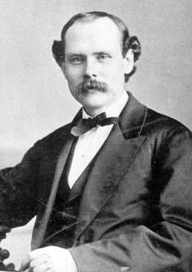
1991 INDUCTEE Robert R. McBurney (1837-1898)
International Committee of the YMCA
When Robert McBurney arrived in the United States from Ireland in 1854, he took a room at a YMCA. Eight years later, he became the only employed staff person of the New York City YMCA. He was responsible for taking care of the library and programs in the few rented rooms that made up the association.
Under McBurney’s leadership, the association grew and moved several times into larger quarters. In 1870, the YMCA moved into its own building, designed by McBurney, to accommodate the specific membership and program needs of the Y. Over the next seven years, McBurney oversaw the development of nine more facilities as well as a dramatic increase in membership. He was an outspoken advocate of the “fourfold purpose,” incorporating physical activity as part of the Y’s mission when the idea was controversial.
He developed the “Metropolitan Association” model of a semi-autonomous branch network with one central administrative authority. Robert McBurney also served in senior leadership roles for the International Committee, the precursor of today’s YMCA of the USA. One of his biographers wrote that McBurney’s influence on the YMCA movement was “profound, exceeding that of any other man.”
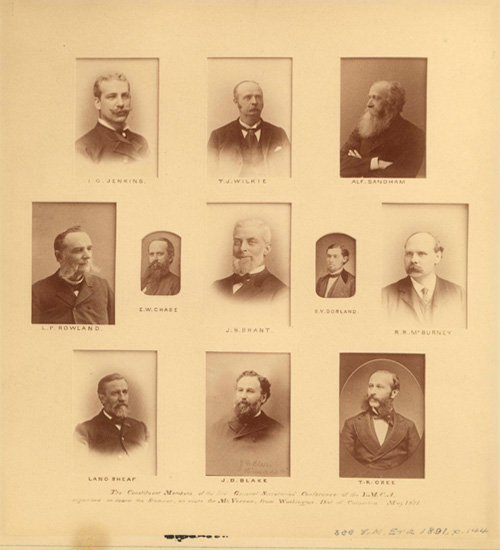
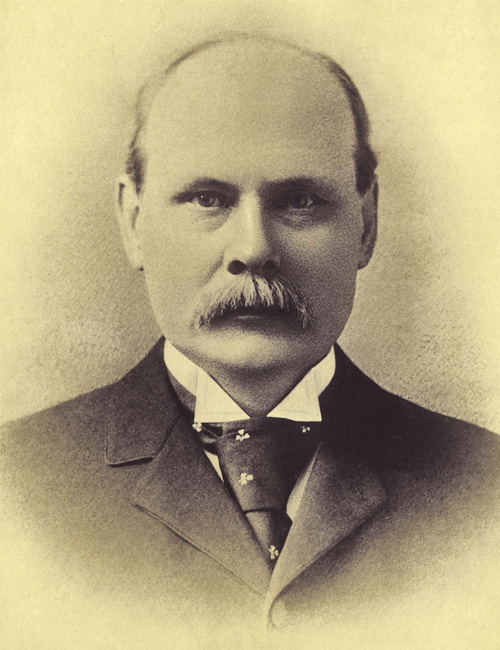
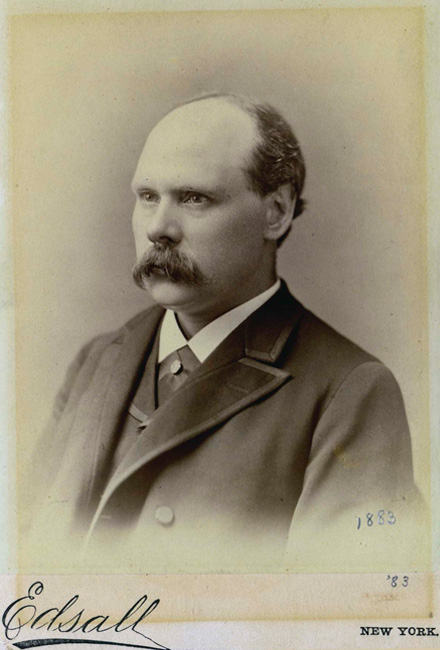
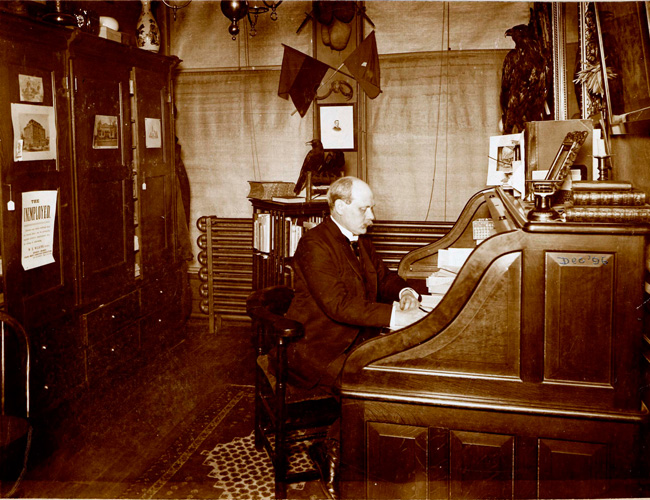
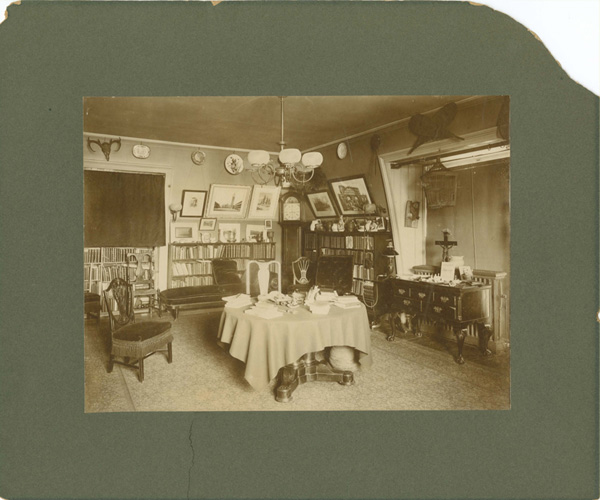
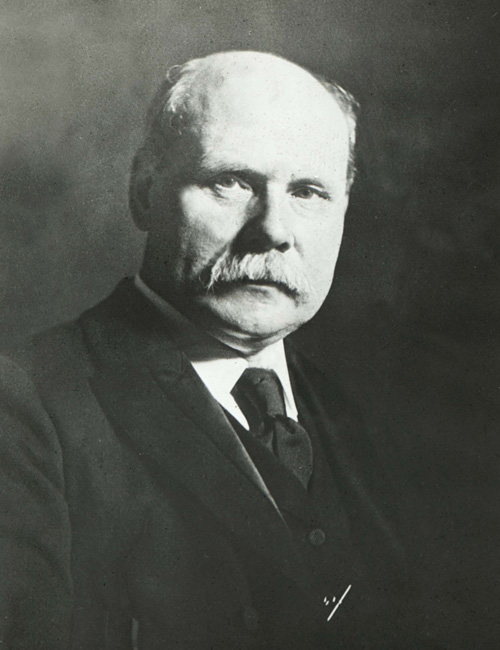
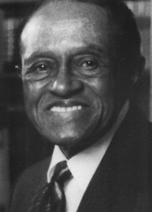
Quentin R. Mease started his YMCA career, which spanned from 1939 to 1976, as an executive for the Crocker Street YMCA in Des Moines, Iowa. He went into the Army from 1942 to 1946 and was discharged as a captain. He attended George Williams College and received a master’s degree in 1948. From 1948 to 1976, he was an executive director for the Houston South Central YMCA, located in the historic Third Ward community, as part of the YMCA of Greater Houston. Mease was a founding member and first president of the Houston Area Urban League. Mease and the late Leo B. Marsh co-sponsored the first Southwest Region YMCA intercultural consultation at Houston YMCA Camp Holden in 1955, an early desegregation initiative for the national YMCA. He helped orchestrate the purchase of YMCA Camp Holden, the Houston Camp for Blacks. In the 1960s, Mease became a primary agent for peaceful desegregation in Houston and led the forces that allowed the city to avoid the racial violence experienced by other U.S. cities at the time. The South Central YMCA became the central meeting place in this effort. Mease conceived the first YMCA Black Achievers Program at the South Central YMCA in 1967, which later was adopted as the national YMCA Black Achievers Program.
Mease was considered a pillar of the community right up until his death at age 100. He was looked at as a visionary who was not hindered by race, age, or demographics. He saw what it was, and fought for what could be. He was a man of great character and was respected by common folk as well as the powerful and wealthy. He believed in and lived the YMCA mission and values each day of his 100 years.
Mease was inducted into the YMCA of the USA’s YMCA Black Achievers Hall of Fame in 2003. He was honored as the founder of the YMCA Black Achievers Program by the YMCA of the USA at its 40th Anniversary Black/Hispanic Conference in New Orleans in 2008.

2013 INDUCTEE Quentin R. Mease (1908-2009)
Houston South Central YMCA
Quentin R. Mease started his YMCA career, which spanned from 1939 to 1976, as an executive for the Crocker Street YMCA in Des Moines, Iowa. He went into the Army from 1942 to 1946 and was discharged as a captain. He attended George Williams College and received a master’s degree in 1948. From 1948 to 1976, he was an executive director for the Houston South Central YMCA, located in the historic Third Ward community, as part of the YMCA of Greater Houston. Mease was a founding member and first president of the Houston Area Urban League. Mease and the late Leo B. Marsh co-sponsored the first Southwest Region YMCA intercultural consultation at Houston YMCA Camp Holden in 1955, an early desegregation initiative for the national YMCA. He helped orchestrate the purchase of YMCA Camp Holden, the Houston Camp for Blacks. In the 1960s, Mease became a primary agent for peaceful desegregation in Houston and led the forces that allowed the city to avoid the racial violence experienced by other U.S. cities at the time. The South Central YMCA became the central meeting place in this effort. Mease conceived the first YMCA Black Achievers Program at the South Central YMCA in 1967, which later was adopted as the national YMCA Black Achievers Program.
Mease was considered a pillar of the community right up until his death at age 100. He was looked at as a visionary who was not hindered by race, age, or demographics. He saw what it was, and fought for what could be. He was a man of great character and was respected by common folk as well as the powerful and wealthy. He believed in and lived the YMCA mission and values each day of his 100 years.
Mease was inducted into the YMCA of the USA’s YMCA Black Achievers Hall of Fame in 2003. He was honored as the founder of the YMCA Black Achievers Program by the YMCA of the USA at its 40th Anniversary Black/Hispanic Conference in New Orleans in 2008.
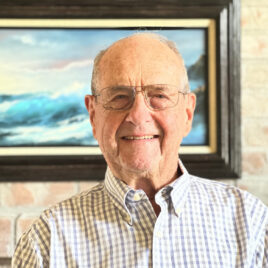
David Mercer’s YMCA service lives on not only through results, but also through the many people he’s inspired with his kindness, humanity, and integrity. Along his journey from a volunteer camp leader to a YMCA of the USA executive, Mercer energized people from all over the world with his embodiment of the YMCA spirit. During his service with the Los Angeles and San Francisco YMCAs, Mercer helped increase annual giving and membership. The work didn’t stop there, as Mercer also helped raise annual income and membership during his 10-year service as national executive director. Specifically, Mercer developed the first National Corporate Partnership in the history of the YMCA with Pepsi Cola, an important milestone for the Y. Yet, one of the most impactful contributions to the Y movement comes in the form of Mercer’s “legendary service” initiative. Mercer challenged and focused his entire staff to provide the best experience possible to YMCAs of all sizes. His work expanded internationally as well, as Mercer developed great relations with YMCAs in China, Jerusalem, and Japan. Mercer continues to carry out the spirit of the Y through his alumni chapter, helping most recently with the Sioux Indian Project. Through his genuine regard for all human life, the YMCA spirit flows through his veins.
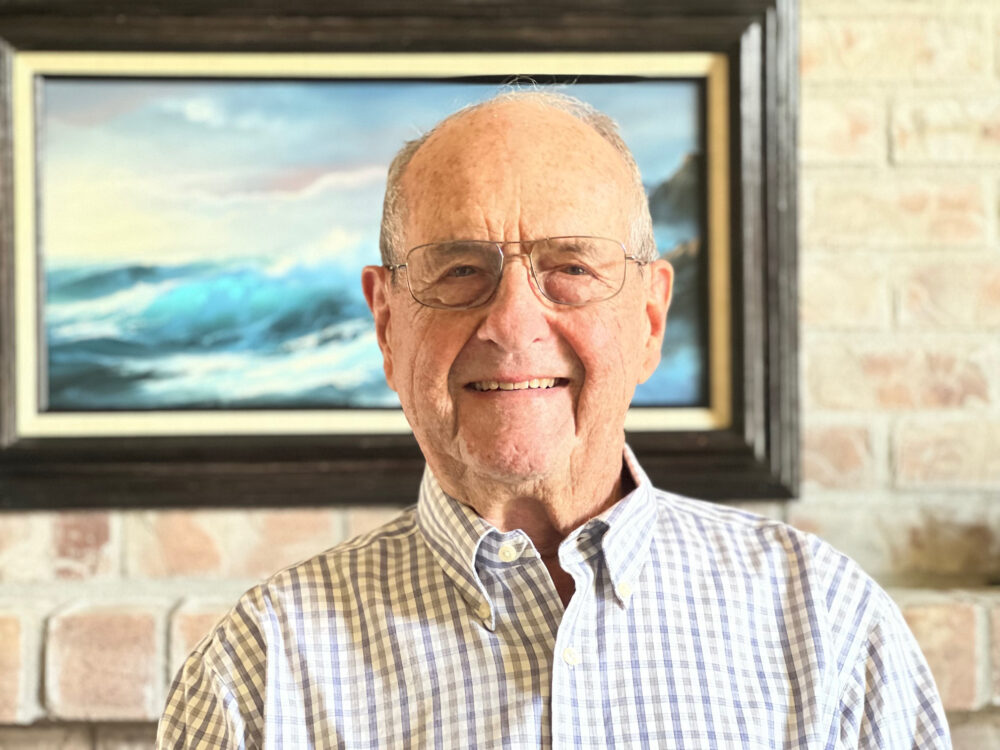
2023 INDUCTEE David Mercer
South Pasadena - San Marino YMCA
West Valley YMCA
Los Angeles Metropolitan YMCA
San Francisco Metropolitan YMCA
YMCA of the USA
David Mercer’s YMCA service lives on not only through results, but also through the many people he’s inspired with his kindness, humanity, and integrity. Along his journey from a volunteer camp leader to a YMCA of the USA executive, Mercer energized people from all over the world with his embodiment of the YMCA spirit. During his service with the Los Angeles and San Francisco YMCAs, Mercer helped increase annual giving and membership. The work didn’t stop there, as Mercer also helped raise annual income and membership during his 10-year service as national executive director. Specifically, Mercer developed the first National Corporate Partnership in the history of the YMCA with Pepsi Cola, an important milestone for the Y. Yet, one of the most impactful contributions to the Y movement comes in the form of Mercer’s “legendary service” initiative. Mercer challenged and focused his entire staff to provide the best experience possible to YMCAs of all sizes. His work expanded internationally as well, as Mercer developed great relations with YMCAs in China, Jerusalem, and Japan. Mercer continues to carry out the spirit of the Y through his alumni chapter, helping most recently with the Sioux Indian Project. Through his genuine regard for all human life, the YMCA spirit flows through his veins.
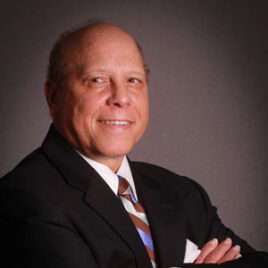
To say that Harold Mezile is a go-getter and motivated to lead by example would be an understatement. In a 40-year career with the YMCA, he was known for his social justice work and transformational leadership style. He created initiatives that impacted the urban landscape. He is described as a cause-driven equity leader and innovator. He inspired people to collaborate in a collective way to make differences in the communities they serve. Among his accomplishments, Mezile pioneered the Beacons Adaptation Partnership, an after-school network started in 1996 during his tenure as president and CEO of the YMCA of the Greater Twin Cities, the third largest YMCA in the United States. Beacons provided enriching out-of-school time services for more than 5,000 youth daily from low-income urban communities, with an estimate of over 60,000 youth served since the inception of the program. He is also credited with starting a number of national Y initiatives, including Search Institute Partnership, Minority Achievers, Multicultural Executive Leadership Program, Diversity and Inclusion, Strong Community Agenda, and the Employee Resource Networks.
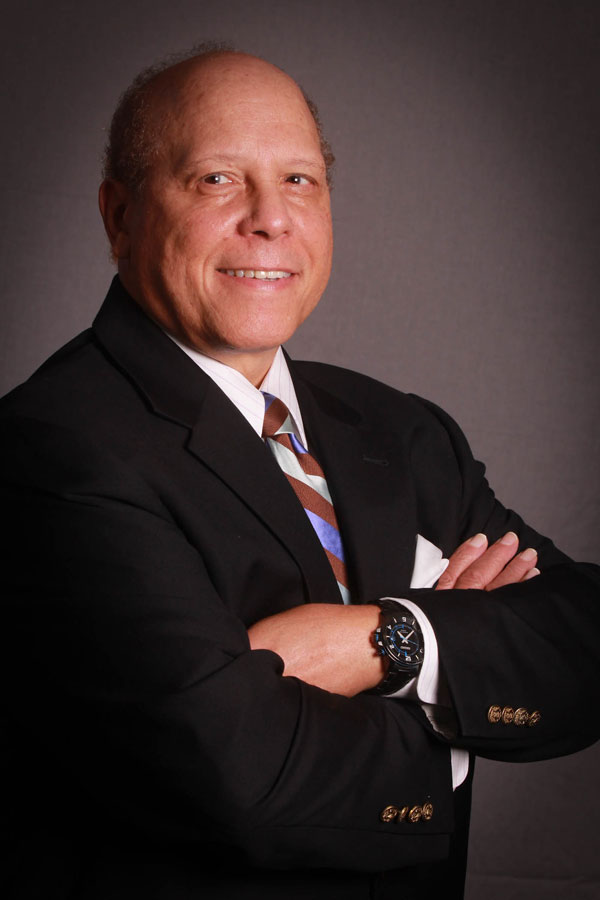
2019 INDUCTEE Harold Mezile
To say that Harold Mezile is a go-getter and motivated to lead by example would be an understatement. In a 40-year career with the YMCA, he was known for his social justice work and transformational leadership style. He created initiatives that impacted the urban landscape. He is described as a cause-driven equity leader and innovator. He inspired people to collaborate in a collective way to make differences in the communities they serve. Among his accomplishments, Mezile pioneered the Beacons Adaptation Partnership, an after-school network started in 1996 during his tenure as president and CEO of the YMCA of the Greater Twin Cities, the third largest YMCA in the United States. Beacons provided enriching out-of-school time services for more than 5,000 youth daily from low-income urban communities, with an estimate of over 60,000 youth served since the inception of the program. He is also credited with starting a number of national Y initiatives, including Search Institute Partnership, Minority Achievers, Multicultural Executive Leadership Program, Diversity and Inclusion, Strong Community Agenda, and the Employee Resource Networks.
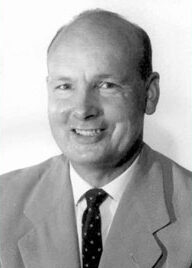
Colin Moffat began his association with the YMCA as a youth in Canada. He served in youth and physical secretary positions in YMCAs in Ontario, before joining the Chicago YMCA in 1939.
He enrolled at George Williams College and enlisted in the First Canadian Paratroopers battalion after graduation. After the war, Moffat worked for two years as the principal of the YMCA College of Physical Education in Madras, India. He returned to Canada as the physical director and later assistant general secretary of the London (Ontario) YMCA.
In 1949, after completing graduate studies at Springfield College (then the International YMCA College), he moved to the Detroit association before his appointment as associate secretary for personnel for the Illinois Area Council. Moffat joined the International Committee for Overseas Staff in 1957. He initiated the World Service Workers program and the Young Professionals Abroad program. He is remembered through the Colin S. Moffat Scholarship Fund at Springfield College.
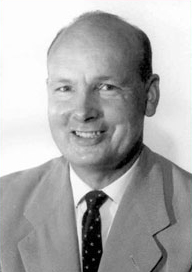
1998 INDUCTEE Colin S. Moffat (1914-1975)
Hyde Park YMCA of Chicago
London YMCA of Ontario Canada
Moose Jaw YMCA of Sask Canada
YMCA in India
YMCA of Metropolitan Chicago
YMCA of Western Ontario
Illinois Area Council
Colin Moffat began his association with the YMCA as a youth in Canada. He served in youth and physical secretary positions in YMCAs in Ontario, before joining the Chicago YMCA in 1939.
He enrolled at George Williams College and enlisted in the First Canadian Paratroopers battalion after graduation. After the war, Moffat worked for two years as the principal of the YMCA College of Physical Education in Madras, India. He returned to Canada as the physical director and later assistant general secretary of the London (Ontario) YMCA.
In 1949, after completing graduate studies at Springfield College (then the International YMCA College), he moved to the Detroit association before his appointment as associate secretary for personnel for the Illinois Area Council. Moffat joined the International Committee for Overseas Staff in 1957. He initiated the World Service Workers program and the Young Professionals Abroad program. He is remembered through the Colin S. Moffat Scholarship Fund at Springfield College.
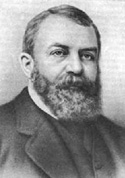
Although sometimes forgotten, at its beginnings the YMCA was, above all, a religious organization. According to YMCA historian Howard Hopkins, evangelist Dwight L. Moody is “the greatest religious figure in the first century of the American YMCA.” Moody was affiliated with the Chicago (Ill.) YMCA and pressed it in the direction of evangelism. As president of the association, he secured funding to erect the Chicago YMCA’s first building. Moody was the leading religious figure of his day, a revivalist who reached millions. He said he owed more to the YMCA than to any other organization for equipping him to do religious work. At a YMCA secretaries meeting in 1879, he said, “I would recommend a gymnasium, classes, medical lectures, social receptions, music…we do not want simply evangelistic meetings.” Moody was instrumental in establishing the YMCA’s student volunteer movement and what is now known as World Service.

2010 INDUCTEE Dwight Moody (1837-1899)
Although sometimes forgotten, at its beginnings the YMCA was, above all, a religious organization. According to YMCA historian Howard Hopkins, evangelist Dwight L. Moody is “the greatest religious figure in the first century of the American YMCA.” Moody was affiliated with the Chicago (Ill.) YMCA and pressed it in the direction of evangelism. As president of the association, he secured funding to erect the Chicago YMCA’s first building. Moody was the leading religious figure of his day, a revivalist who reached millions. He said he owed more to the YMCA than to any other organization for equipping him to do religious work. At a YMCA secretaries meeting in 1879, he said, “I would recommend a gymnasium, classes, medical lectures, social receptions, music…we do not want simply evangelistic meetings.” Moody was instrumental in establishing the YMCA’s student volunteer movement and what is now known as World Service.
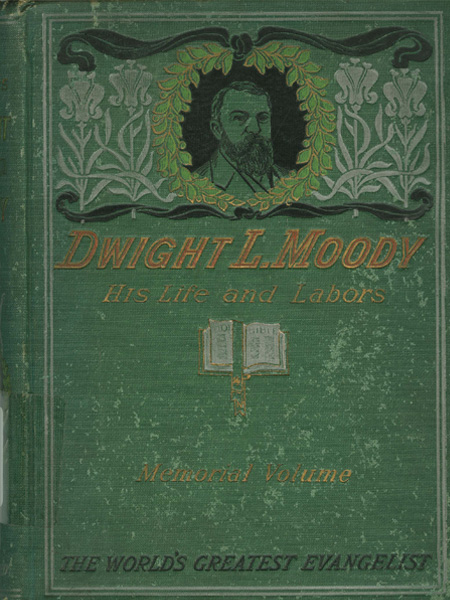
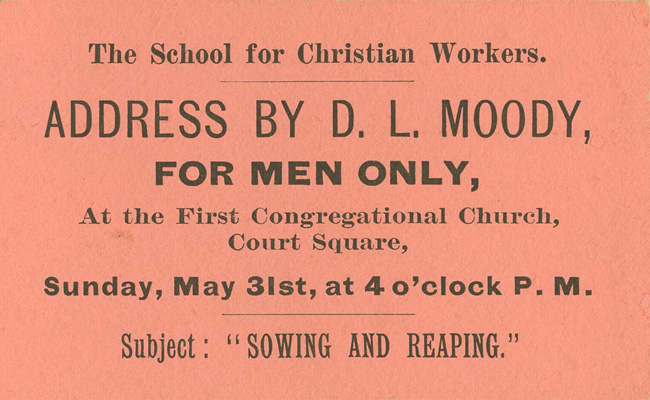
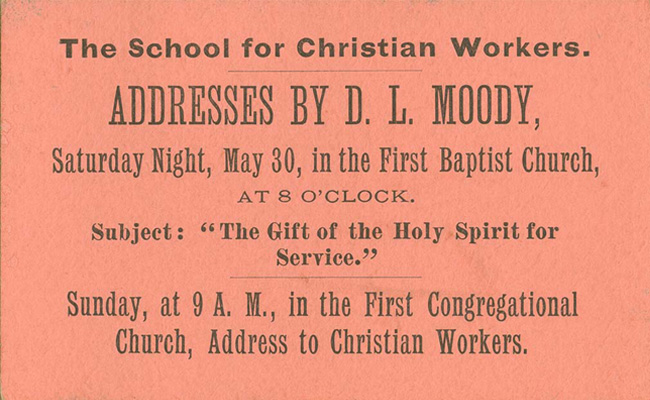
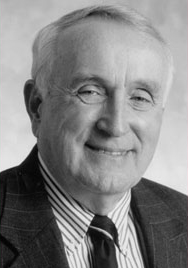
Adrian Moody went to work for the YMCA upon graduating from college, resulting in a career that spanned more than 40 years. Moody served as chief execuive officer of four YMCAs: Moultrie, Ga.; Bristol, Tenn.; Middle Tennessee; and Greater Miami, Fla.
He was also senior vice president of the Houston, Texas association and south field executive for the YMCA of the USA. After retiring in 1999, Moody returned to Nashville to become a volunteer for the Y, where he championed the association’s international relationships. His international work is extensive: he helped to found YMCAs in Russia and to re-establish YMCA relations in South Africa. He has led the Nashville Y’s engagement with both the Jerusalem International YMCA and the East Jerusalem YMCA.
A man of extraordinary personal warmth and deep faith, Moody maintained a passion for changing lives through YMCA programs, including connecting young people with opportunities to serve and build friendships throughout the world.

2006 INDUCTEE Adrian B. Moody (1935-2015)
YMCA of Bristol
YMCA of Greater Houston
YMCA of Greater Miami
YMCA of the USA
YMCA of Middle Tennessee
YMCAs in Russia
Adrian Moody went to work for the YMCA upon graduating from college, resulting in a career that spanned more than 40 years. Moody served as chief execuive officer of four YMCAs: Moultrie, Ga.; Bristol, Tenn.; Middle Tennessee; and Greater Miami, Fla.
He was also senior vice president of the Houston, Texas association and south field executive for the YMCA of the USA. After retiring in 1999, Moody returned to Nashville to become a volunteer for the Y, where he championed the association’s international relationships. His international work is extensive: he helped to found YMCAs in Russia and to re-establish YMCA relations in South Africa. He has led the Nashville Y’s engagement with both the Jerusalem International YMCA and the East Jerusalem YMCA.
A man of extraordinary personal warmth and deep faith, Moody maintained a passion for changing lives through YMCA programs, including connecting young people with opportunities to serve and build friendships throughout the world.
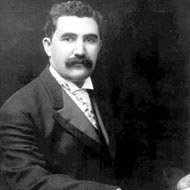
In 1892, Jesse Moorland was appointed the first general secretary of the “Colored YMCA” in Washington, D.C., working hard to maintain financial support for the association during the economic depression of 1893.
Moorland served as a church pastor in Nashville (Tenn.) and Cleveland (Ohio) for five years. From 1898 until 1923, he served on the YMCA’s national staff supporting YMCA work in African-American communities. Moorland worked with industrialists John D. Rockefeller and Julius Rosenwald to support the work of the Y in black communities.
He convinced Rosenwald, president of Sears, Roebuck and Co. to offer $25,000 to any community that could raise $75,000 for the construction of a black YMCA. Twenty-five “Rosenwald Buildings” were constructed between 1910 and 1931. Moorland then faced the challenge of staffing these YMCAs, working with Student YMCAs as a source of qualified leadership.
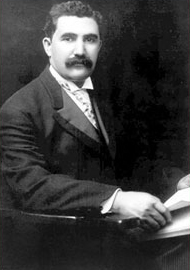
2000 INDUCTEE Jesse Moorland (1863-1940)
National Staff of the YMCA
In 1892, Jesse Moorland was appointed the first general secretary of the “Colored YMCA” in Washington, D.C., working hard to maintain financial support for the association during the economic depression of 1893.
Moorland served as a church pastor in Nashville (Tenn.) and Cleveland (Ohio) for five years. From 1898 until 1923, he served on the YMCA’s national staff supporting YMCA work in African-American communities. Moorland worked with industrialists John D. Rockefeller and Julius Rosenwald to support the work of the Y in black communities.
He convinced Rosenwald, president of Sears, Roebuck and Co. to offer $25,000 to any community that could raise $75,000 for the construction of a black YMCA. Twenty-five “Rosenwald Buildings” were constructed between 1910 and 1931. Moorland then faced the challenge of staffing these YMCAs, working with Student YMCAs as a source of qualified leadership.
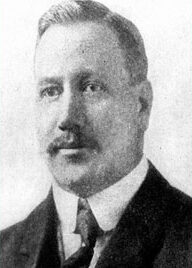
James Naismith, inventor of basketball, urged the young William Morgan to attend the International YMCA Training School (now Springfield College) upon graduating from high school. He became the physical director of the Auburn (Maine) YMCA after completing his studies. He stayed in Maine for just one year before accepting a position at the Holyoke (Mass.) YMCA.
While at Holyoke, he realized that basketball was too strenuous for the gym class of middle-aged businessmen that met at noon. He combined aspects of basketball and badminton to create a game he called “mintonette.” Morgan was invited to demonstrate his new game for faculty and students at the International YMCA Training School in nearby Springfield. While watching the game, the spectators suggested a new name, “volley ball.” The rest is history.
Morgan left the YMCA in 1897 to begin a career with General Electric and Westinghouse. He kept ties with Springfield College and the game he created, stating he was content in the knowledge that the game brought a richer life to millions of people throughout the world.
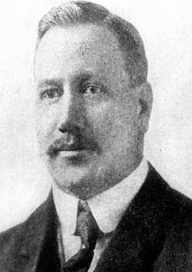
2001 INDUCTEE William G. Morgan (1870-1942)
Greater Holyoke YMCA
James Naismith, inventor of basketball, urged the young William Morgan to attend the International YMCA Training School (now Springfield College) upon graduating from high school. He became the physical director of the Auburn (Maine) YMCA after completing his studies. He stayed in Maine for just one year before accepting a position at the Holyoke (Mass.) YMCA.
While at Holyoke, he realized that basketball was too strenuous for the gym class of middle-aged businessmen that met at noon. He combined aspects of basketball and badminton to create a game he called “mintonette.” Morgan was invited to demonstrate his new game for faculty and students at the International YMCA Training School in nearby Springfield. While watching the game, the spectators suggested a new name, “volley ball.” The rest is history.
Morgan left the YMCA in 1897 to begin a career with General Electric and Westinghouse. He kept ties with Springfield College and the game he created, stating he was content in the knowledge that the game brought a richer life to millions of people throughout the world.
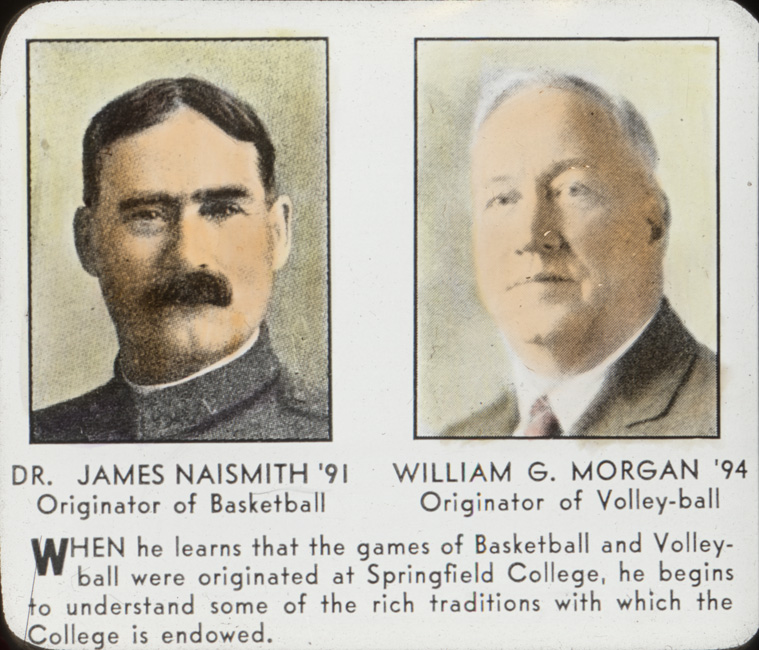
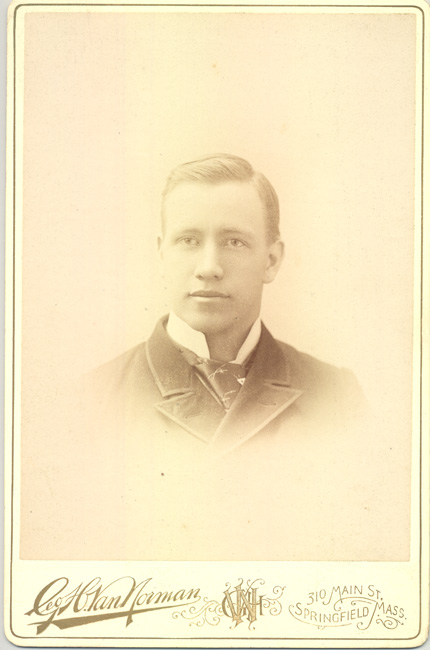
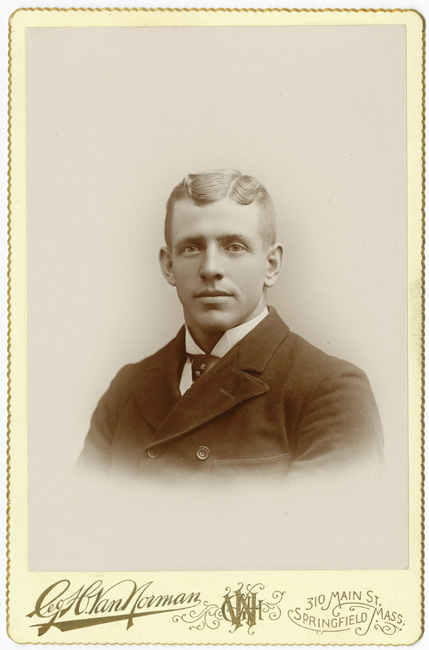
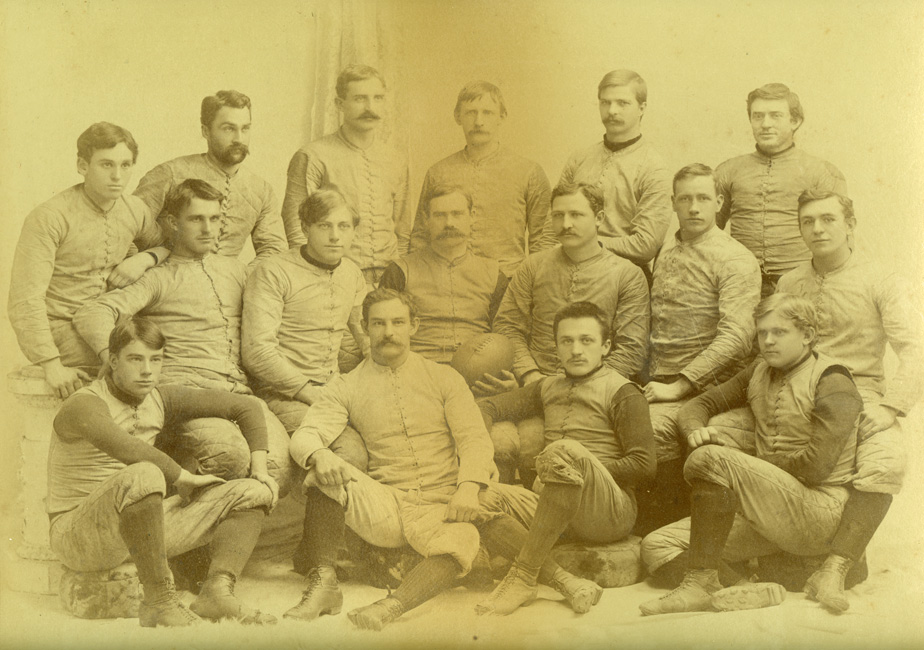
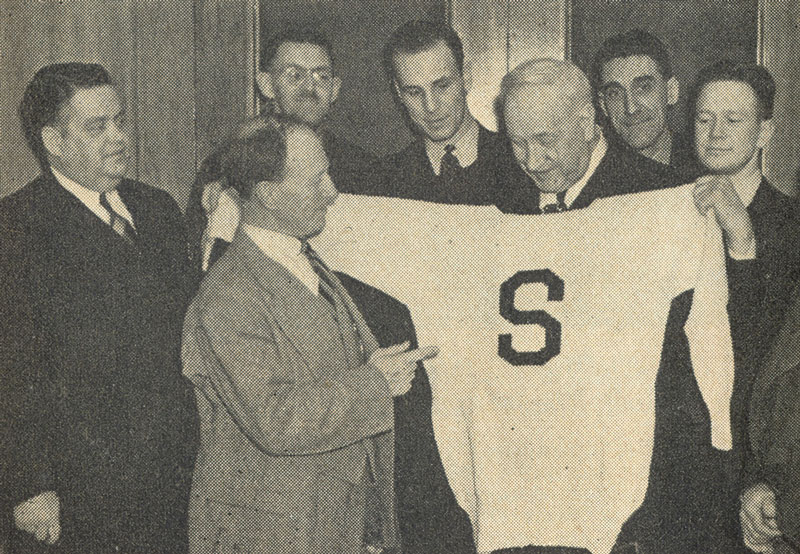
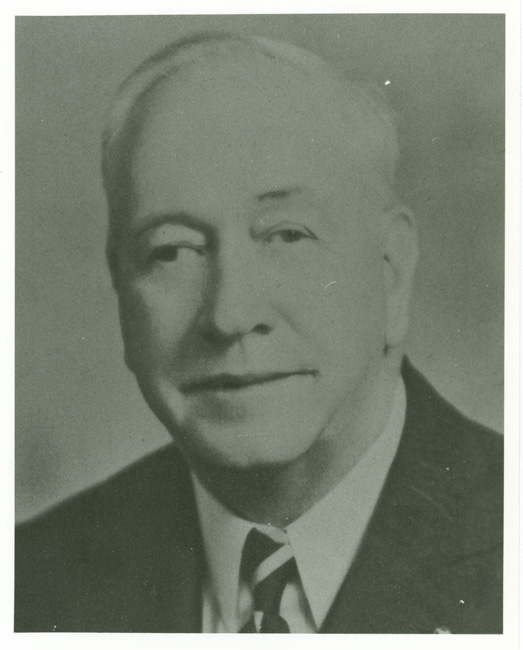
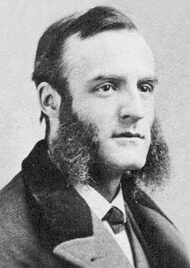
Richard Morse was a nephew to Samuel Morse, inventor of the telegraph. He was ordained a Presbyterian minister, but never entered the active ministry. Instead, he chose to become the religious editor of The New York Observer, a weekly newspaper founded by his father.
It was through a report of a YMCA convention he wrote for that paper, that Morse sought out work in the YMCA. He first joined the YMCA in 1869 as editor and publisher of the new Association Monthly magazine. This began a 47 year career, which culminated in his appointment as general secretary of the YMCA’s International Committee. Morse was one of the original members of the World’s Committee from 1878 to 1888, and was active in the New York City association.
Morse’s YMCA work took him across the Atlantic Ocean 50 times, including relief work in France during World War I. Among the several books written by Dr. Morse are, “My Life with Young Men,” “A History of the North American Young Men’s Christian Associations,” and “Robert R. McBurney, A Memorial.”
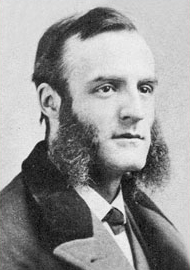
2006 INDUCTEE Richard C. Morse (1841-1926)
New York City Association
Richard Morse was a nephew to Samuel Morse, inventor of the telegraph. He was ordained a Presbyterian minister, but never entered the active ministry. Instead, he chose to become the religious editor of The New York Observer, a weekly newspaper founded by his father.
It was through a report of a YMCA convention he wrote for that paper, that Morse sought out work in the YMCA. He first joined the YMCA in 1869 as editor and publisher of the new Association Monthly magazine. This began a 47 year career, which culminated in his appointment as general secretary of the YMCA’s International Committee. Morse was one of the original members of the World’s Committee from 1878 to 1888, and was active in the New York City association.
Morse’s YMCA work took him across the Atlantic Ocean 50 times, including relief work in France during World War I. Among the several books written by Dr. Morse are, “My Life with Young Men,” “A History of the North American Young Men’s Christian Associations,” and “Robert R. McBurney, A Memorial.”
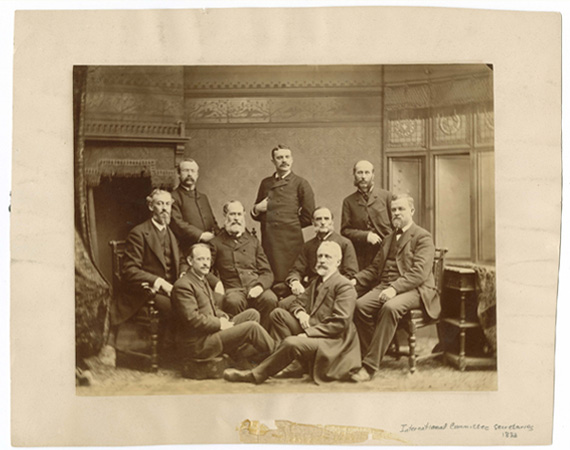
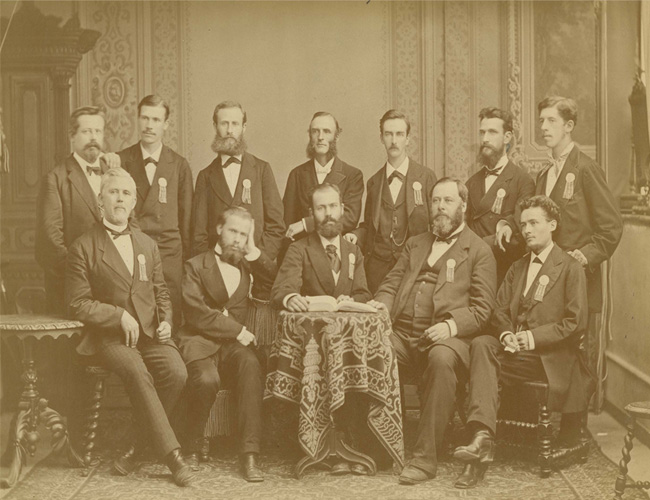
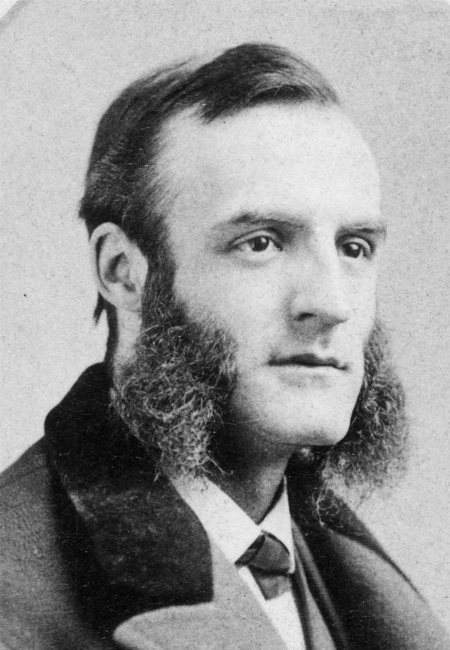
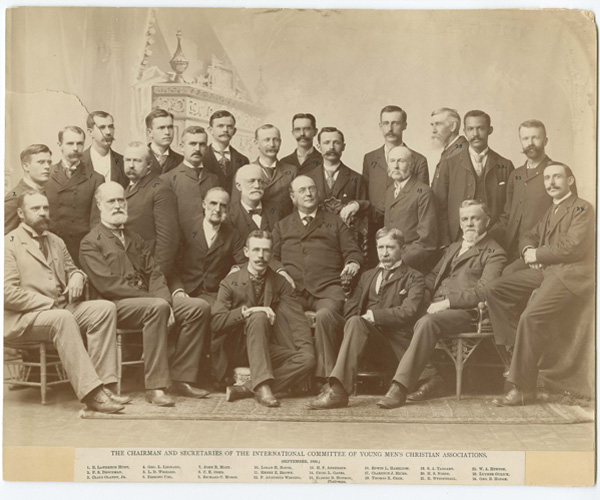
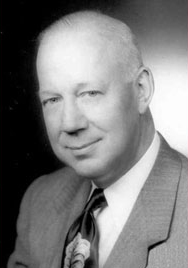
For the first 20 years of his career, beginning in 1924, Clarence “Red” Moser worked with youth at the Evanston (Ill.) YMCA. He published “Twenty Years of Boy’s Work in the YMCA,” outlining the policies, philosophy, and programs of his work with young people.
In 1945, he was appointed the director of youth programs at the Central Atlantic Area YMCA. He was nationally recognized for his innovative work with youth, and was sought after as a trainer in youth work. He retired in 1968 as the associate executive of the Central Area Council, after 40 years of service in the Y.
In retirement, he became an adjunct professor at Springfield College and directed a study on developing new techniques for training volunteers for the National YMCA Board. He was actively involved with the Head Start Program, 4-H Foundation, and Parent-Youth Clinics.

1996 INDUCTEE Clarence Moser (d. 1981)
Central Atlantic Area YMCA
Central Area Council
For the first 20 years of his career, beginning in 1924, Clarence “Red” Moser worked with youth at the Evanston (Ill.) YMCA. He published “Twenty Years of Boy’s Work in the YMCA,” outlining the policies, philosophy, and programs of his work with young people.
In 1945, he was appointed the director of youth programs at the Central Atlantic Area YMCA. He was nationally recognized for his innovative work with youth, and was sought after as a trainer in youth work. He retired in 1968 as the associate executive of the Central Area Council, after 40 years of service in the Y.
In retirement, he became an adjunct professor at Springfield College and directed a study on developing new techniques for training volunteers for the National YMCA Board. He was actively involved with the Head Start Program, 4-H Foundation, and Parent-Youth Clinics.
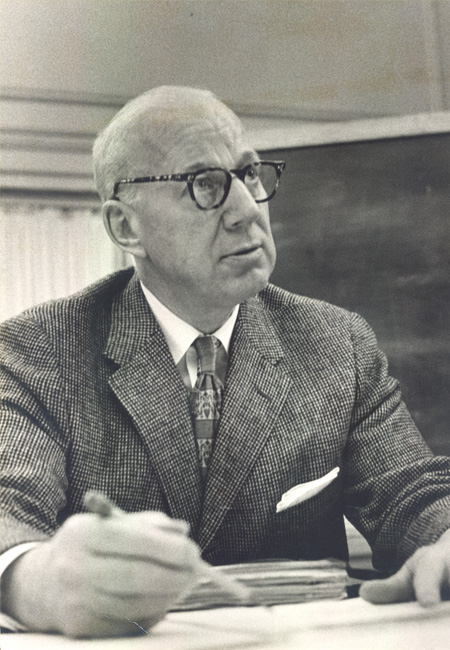
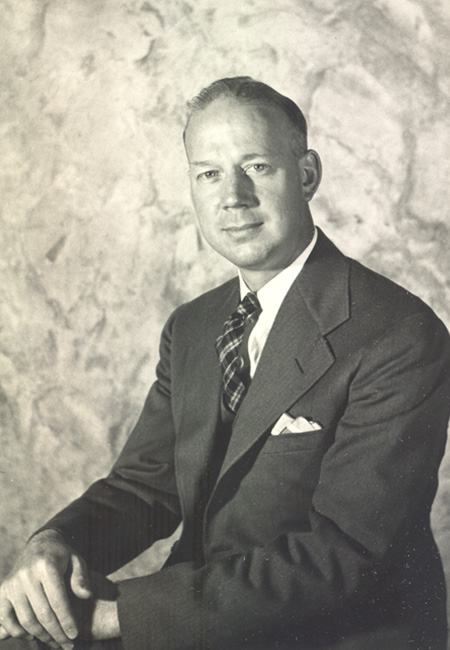
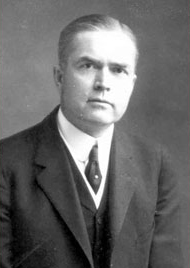
Described as “one of the most nobly useful men in the world” by President Woodrow Wilson, John R. Mott began his association with the YMCA as a leader of the Student YMCA at Cornell University. Beginning in 1888, he served a 27-year tenure as national secretary of the Student YMCAs.
From 1915 to 1928, he served as general secretary of the International Committee (today’s YMCA of the USA), and also served on the executive committee of the World’s Committee of YMCAs. Mott led the YMCA’s expansive involvement in World War I. Under his leadership, the national movement raised $250 million for YMCA programs supporting troops in the U.S. and overseas. Beginning in the late 1920s, he turned his attention to international projects focused on unifying world-wide Christian evangelical concerns.
Mott authored 16 books, visited over 83 nations, and received honorary awards from 14 countries, including the Distinguished Service Medal from the United States. He received six honorary degrees from universities around the world and was awarded the Nobel Peace Prize for his life-long humanitarian efforts.

1990 INDUCTEE John R. Mott (1865-1955)
Student YMCAs
Described as “one of the most nobly useful men in the world” by President Woodrow Wilson, John R. Mott began his association with the YMCA as a leader of the Student YMCA at Cornell University. Beginning in 1888, he served a 27-year tenure as national secretary of the Student YMCAs.
From 1915 to 1928, he served as general secretary of the International Committee (today’s YMCA of the USA), and also served on the executive committee of the World’s Committee of YMCAs. Mott led the YMCA’s expansive involvement in World War I. Under his leadership, the national movement raised $250 million for YMCA programs supporting troops in the U.S. and overseas. Beginning in the late 1920s, he turned his attention to international projects focused on unifying world-wide Christian evangelical concerns.
Mott authored 16 books, visited over 83 nations, and received honorary awards from 14 countries, including the Distinguished Service Medal from the United States. He received six honorary degrees from universities around the world and was awarded the Nobel Peace Prize for his life-long humanitarian efforts.
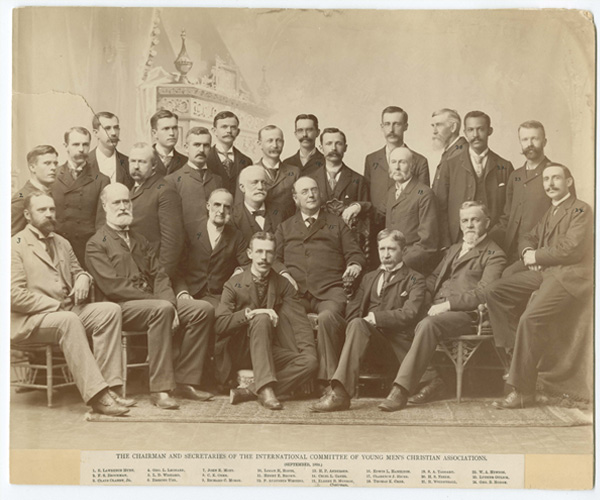
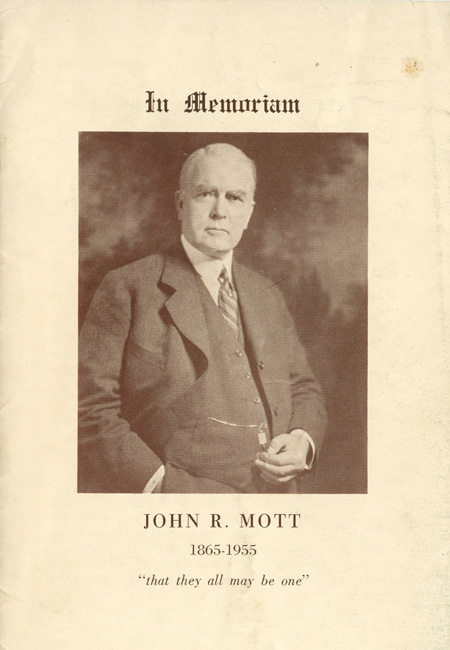
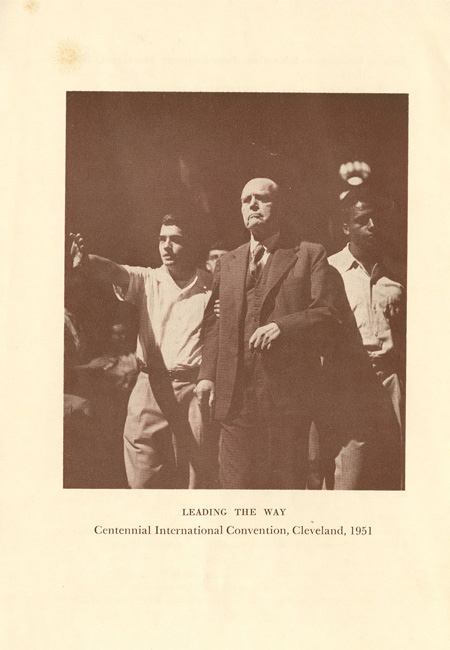
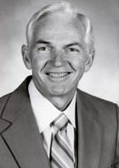
Clayton Myers grew up involved in the Campden (N.J.) YMCA. After completing service in the Navy during World War II, he enrolled at Springfield College and eventually earned his Ph.D. at Ohio State University. He worked in youth and fitness program positions at YMCAs in New York City, Jamestown, N.Y. and at YMCA of the Oranges (N.J.). Myers served 12 years on the Ohio-West Virginia YMCA staff as regional associate for health and physical education.
In 1976, he was appointed director of the Nationwide YMCA Cardiovascular Health Program. Meyers developed a multi-level national system of training, certification, and support for fitness specialists. He was the guiding force behind the “Y’s Way to Physical Fitness,” an instructor guidebook first published in 1973. He also created the Y Cardiac Therapy Program, a revolutionary approach to treat patients in a non-medical facility. He organized two YMCA Cardiovascular Health Consultations attended by experts from around the world. Myers was honored with the Roberts-Gulick Award, the Paul Dudley White Award for Physical Fitness Leadership, and the YMCA of the USA Healthy Lifestyle Exemplary Leadership Award.

2007 INDUCTEE Dr. Clayton R. Myers
Ohio-West Virginia YMCA
Orange YMCA
YMCA of Greater New York
Clayton Myers grew up involved in the Campden (N.J.) YMCA. After completing service in the Navy during World War II, he enrolled at Springfield College and eventually earned his Ph.D. at Ohio State University. He worked in youth and fitness program positions at YMCAs in New York City, Jamestown, N.Y. and at YMCA of the Oranges (N.J.). Myers served 12 years on the Ohio-West Virginia YMCA staff as regional associate for health and physical education.
In 1976, he was appointed director of the Nationwide YMCA Cardiovascular Health Program. Meyers developed a multi-level national system of training, certification, and support for fitness specialists. He was the guiding force behind the “Y’s Way to Physical Fitness,” an instructor guidebook first published in 1973. He also created the Y Cardiac Therapy Program, a revolutionary approach to treat patients in a non-medical facility. He organized two YMCA Cardiovascular Health Consultations attended by experts from around the world. Myers was honored with the Roberts-Gulick Award, the Paul Dudley White Award for Physical Fitness Leadership, and the YMCA of the USA Healthy Lifestyle Exemplary Leadership Award.
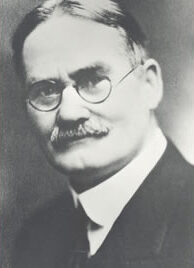
James Naismith had already earned a theology degree from McGill University (Canada) before enrolling at the International YMCA Training School (now Springfield College) as a graduate student.
In 1891, faculty member Luther Gulick asked Naismith to develop a game that students could play indoors during winter months. Combining elements of rugby, lacrosse, soccer, and the children’s game “Duck on a Rock,” Naismith introduced his game, “basket ball,” in December 1891. Some of the earliest basketball games in history were played here in Judd Gymnasia, where Naismith also taught classes.
Naismith became a lifelong member of the International Rules Committee, and in 1936, saw basketball become an Olympic sport. Beginning in 1895, Naismith served as the physical secretary for the Denver (Colo.) YMCA, and attended Gross Medical School. After graduation, he moved to the University of Kansas where, for 41 years, his duties included pastor, coach, athletic director, and professor.
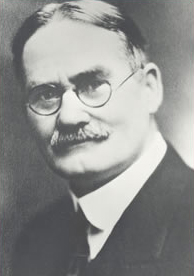
1998 INDUCTEE James A. Naismith (1861-1939)
James Naismith had already earned a theology degree from McGill University (Canada) before enrolling at the International YMCA Training School (now Springfield College) as a graduate student.
In 1891, faculty member Luther Gulick asked Naismith to develop a game that students could play indoors during winter months. Combining elements of rugby, lacrosse, soccer, and the children’s game “Duck on a Rock,” Naismith introduced his game, “basket ball,” in December 1891. Some of the earliest basketball games in history were played here in Judd Gymnasia, where Naismith also taught classes.
Naismith became a lifelong member of the International Rules Committee, and in 1936, saw basketball become an Olympic sport. Beginning in 1895, Naismith served as the physical secretary for the Denver (Colo.) YMCA, and attended Gross Medical School. After graduation, he moved to the University of Kansas where, for 41 years, his duties included pastor, coach, athletic director, and professor.
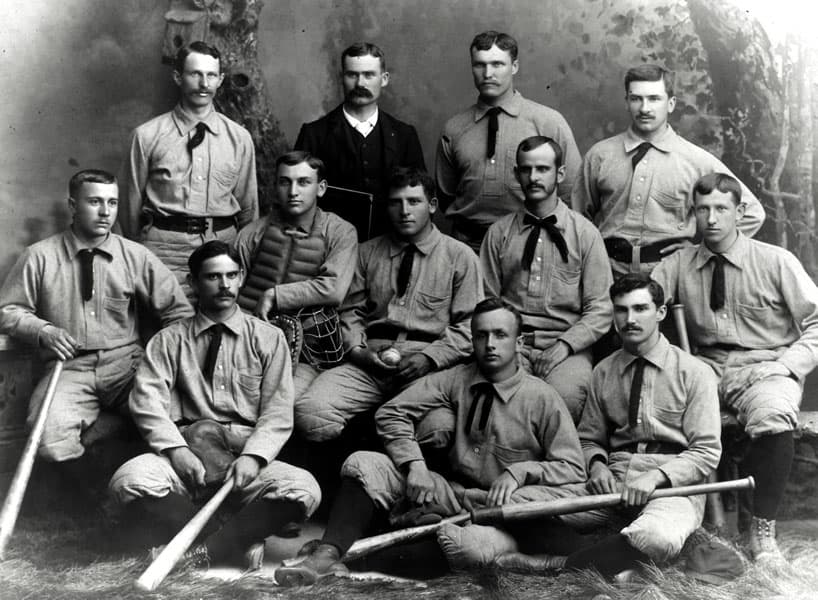
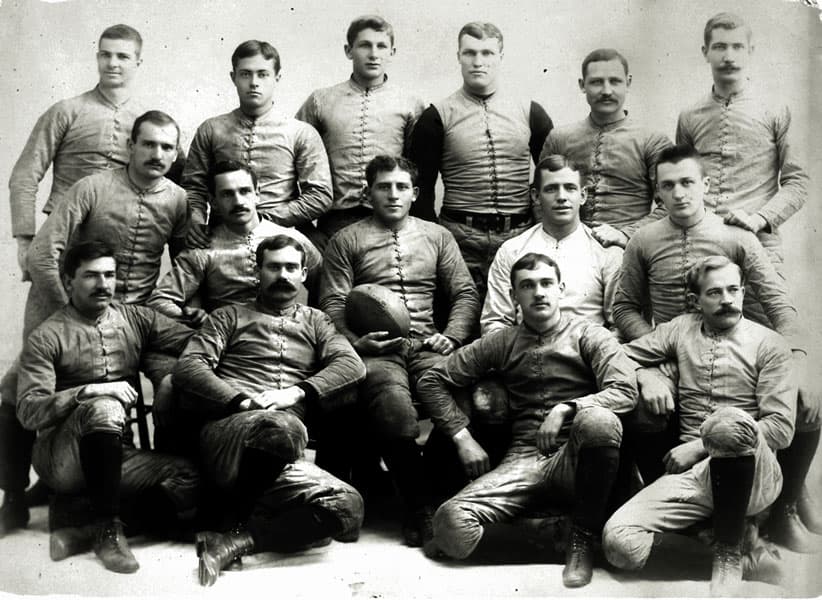
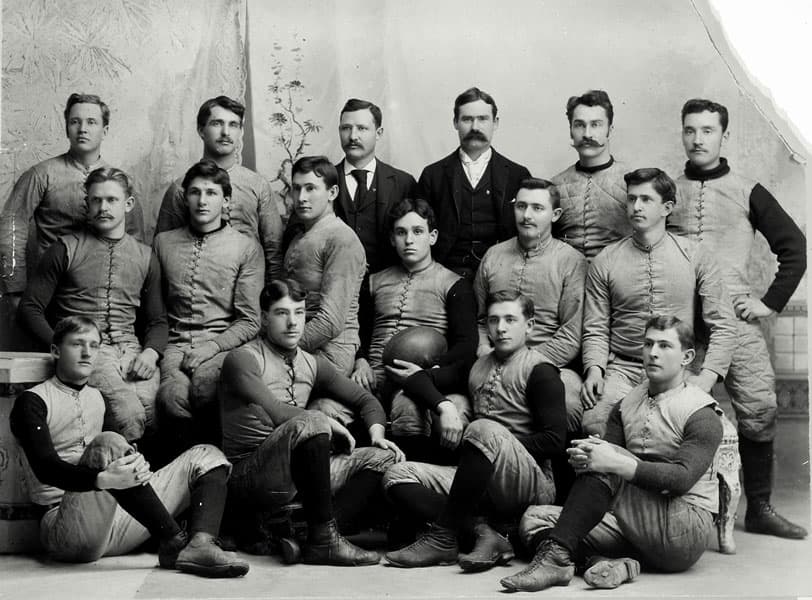
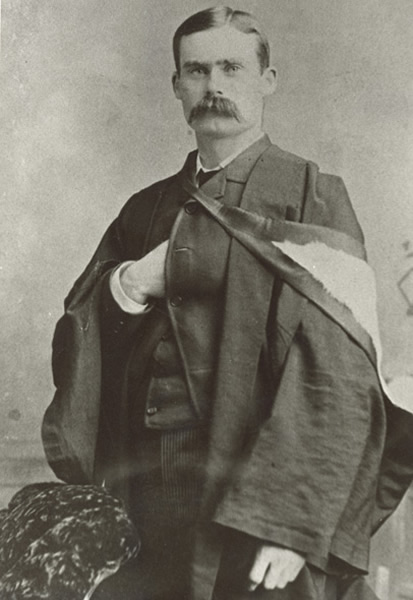
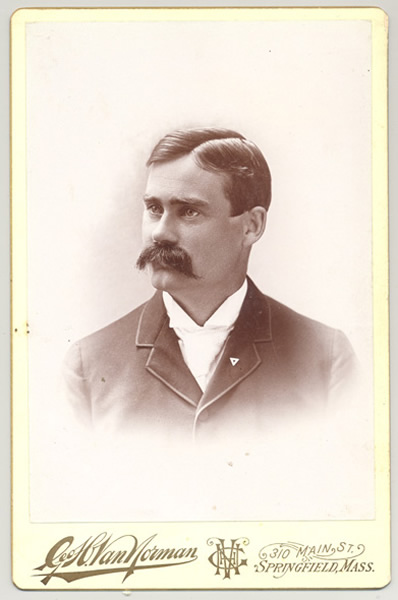
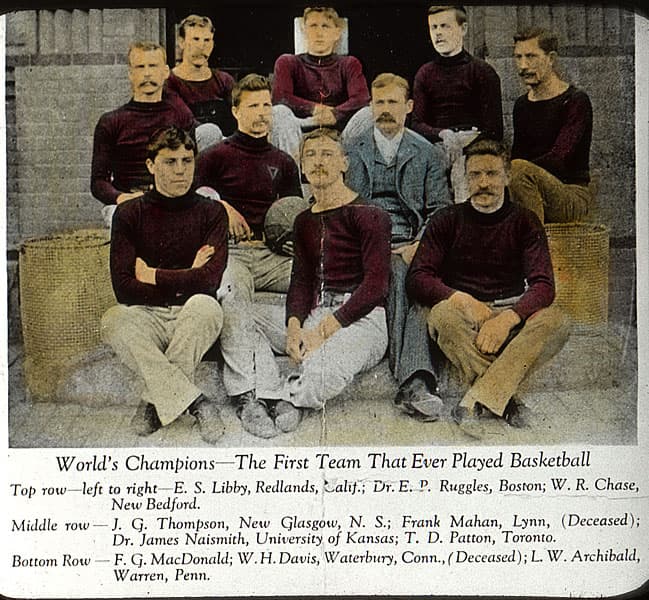
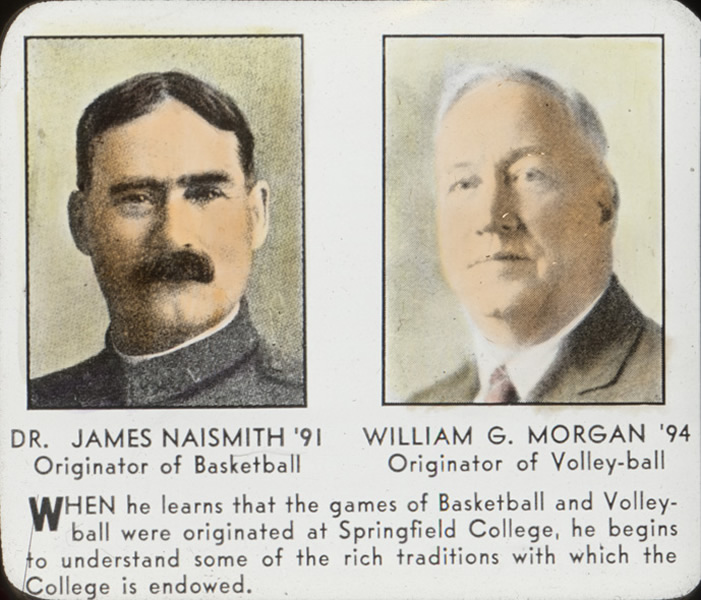
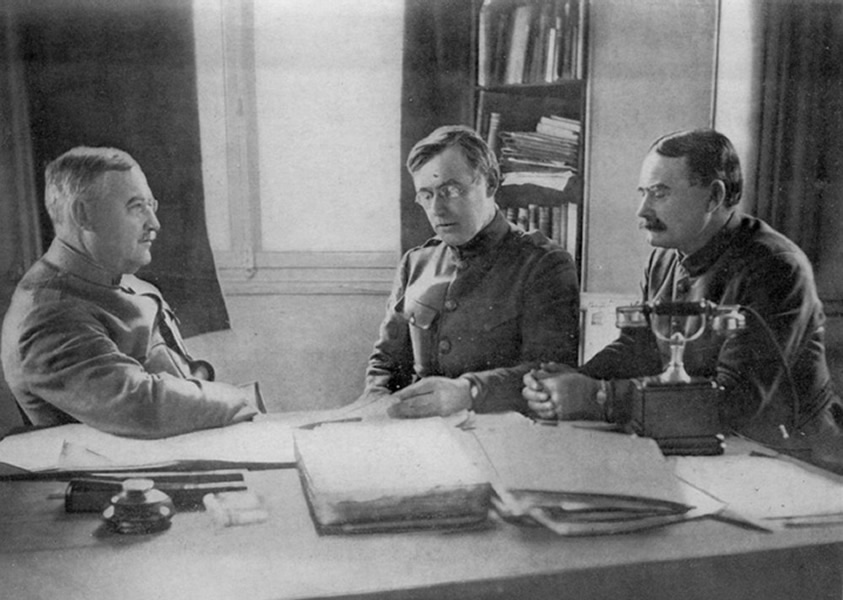
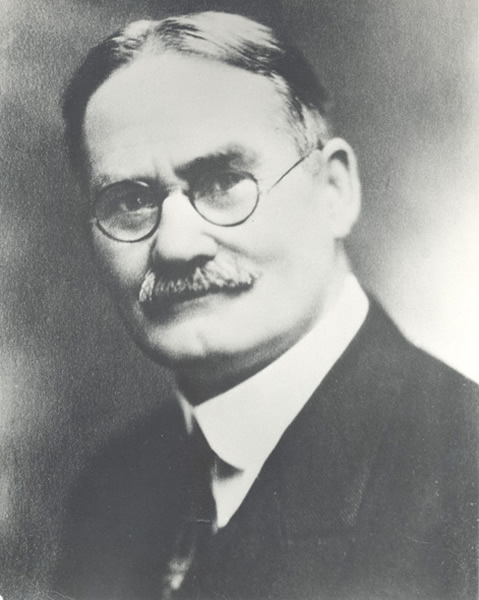
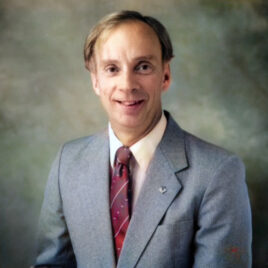
Richard Newcomb Jones’ YMCA career is truly a lifelong affair. With his first YMCA experience coming at 9 years old as a Y member, Jones went from a volunteer, to a part-time employee, eventually capping off his Y career as national associate director of sports for the YMCA of the USA. Under Jones’ supervision and leadership, YMCA leaders club programming flourished throughout the Great Lakes region. His work with program development has led to robust leadership training programs and thousands of qualified individuals who have ascended into leadership roles. Jones’ influence with the leadership programs has positively impacted the lives of thousands of teenagers and rising leaders for the YMCA and beyond. Jones made a point of forming relationships with everyone he met. This made him the first call for anyone wanting to take the next step of their career or anyone looking for recommendations to fill a new position. Jones’ passion for development and training has given the Y a rich internal pool of leaders and innovators for years to come.
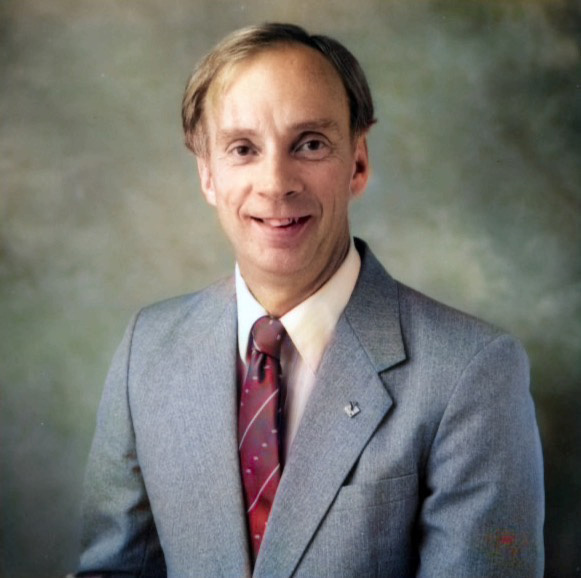
2023 INDUCTEE Richard Newcomb Jones
Lake County West End YMCA, Ohio
YMCA of the USA
Richard Newcomb Jones’ YMCA career is truly a lifelong affair. With his first YMCA experience coming at 9 years old as a Y member, Jones went from a volunteer, to a part-time employee, eventually capping off his Y career as national associate director of sports for the YMCA of the USA. Under Jones’ supervision and leadership, YMCA leaders club programming flourished throughout the Great Lakes region. His work with program development has led to robust leadership training programs and thousands of qualified individuals who have ascended into leadership roles. Jones’ influence with the leadership programs has positively impacted the lives of thousands of teenagers and rising leaders for the YMCA and beyond. Jones made a point of forming relationships with everyone he met. This made him the first call for anyone wanting to take the next step of their career or anyone looking for recommendations to fill a new position. Jones’ passion for development and training has given the Y a rich internal pool of leaders and innovators for years to come.
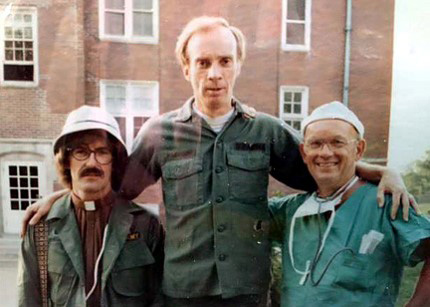
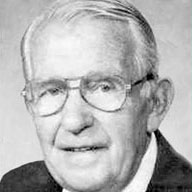
Joel Nystrom began his relationship with the YMCA as a student leader at Iowa State University.
After completing his undergraduate degree in 1925, he joined the staff of the West Side Branch of the YMCA of Greater New York as the fellowship secretary. In 1930, after earning his graduate degree from Columbia University and his subsequent ordination as a Methodist minister, he was appointed the religious education director at West Side, and later served at the Intercollegiate branch.
For 10 years, beginning in 1940, Nystrom worked in Uruguay, first as director of the YMCA College, and then as director of the International YMCA Camp. Beginning in 1952, Nystrom served as the director of development and later director of the International Committee of YMCA of the USA. He retired in 1968.
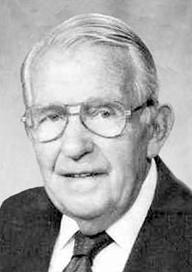
1986 INDUCTEE Joel E. Nystrom
International YMCA Camp
West Side Branch YMCA
International Committee of the YMCA
Joel Nystrom began his relationship with the YMCA as a student leader at Iowa State University.
After completing his undergraduate degree in 1925, he joined the staff of the West Side Branch of the YMCA of Greater New York as the fellowship secretary. In 1930, after earning his graduate degree from Columbia University and his subsequent ordination as a Methodist minister, he was appointed the religious education director at West Side, and later served at the Intercollegiate branch.
For 10 years, beginning in 1940, Nystrom worked in Uruguay, first as director of the YMCA College, and then as director of the International YMCA Camp. Beginning in 1952, Nystrom served as the director of development and later director of the International Committee of YMCA of the USA. He retired in 1968.
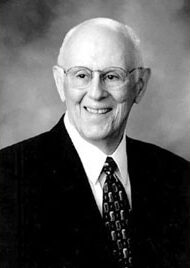
John O’Melia served in the Army during WWII, and completed his undergraduate and graduate studies at Western Reserve University before joining the Cleveland (Ohio) YMCA staff. As an assistant program secretary, he developed an innovative interracial camp, community service programs for youth, and a citywide coeducational camp.
He also served as executive secretary in two Cleveland branches. In 1956, O’Melia joined the Ohio-West Virginia Area Council of YMCAs, where he had the responsibility of coordinating adult and industrial programs, interracial services, and inner-city initiatives. In 1960, he founded the YMCA Center for International Management Studies, which offered management education activities to industrial leaders from the midwest and their counterparts from foreign countries.
As director of National Program Services, and later as executive of Constituent Services on the national staff, O’Melia provided leadership for the full range of YMCA programs and organizational initiatives. From 1970 until his retirement in 1988, O’Melia worked with the International Division of the YMCA of the USA, first as the executive director of World Development and then as the director of the International Division.
O’Melia’s father, uncle, and brother were all YMCA directors.
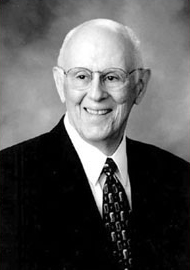
2000 INDUCTEE John O’Melia (1923-2011)
YMCA of the USA
Ohio-West Virginia Area Council
John O’Melia served in the Army during WWII, and completed his undergraduate and graduate studies at Western Reserve University before joining the Cleveland (Ohio) YMCA staff. As an assistant program secretary, he developed an innovative interracial camp, community service programs for youth, and a citywide coeducational camp.
He also served as executive secretary in two Cleveland branches. In 1956, O’Melia joined the Ohio-West Virginia Area Council of YMCAs, where he had the responsibility of coordinating adult and industrial programs, interracial services, and inner-city initiatives. In 1960, he founded the YMCA Center for International Management Studies, which offered management education activities to industrial leaders from the midwest and their counterparts from foreign countries.
As director of National Program Services, and later as executive of Constituent Services on the national staff, O’Melia provided leadership for the full range of YMCA programs and organizational initiatives. From 1970 until his retirement in 1988, O’Melia worked with the International Division of the YMCA of the USA, first as the executive director of World Development and then as the director of the International Division.
O’Melia’s father, uncle, and brother were all YMCA directors.
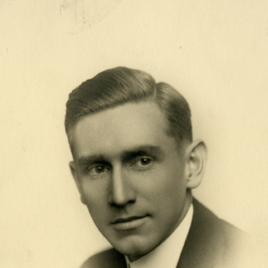
Over 40 years, Owen Pence became one of the most influential and well-respected representatives of non-governmental organizations. His work began with student work in France with the National War Work Council. He eventually served 23 years on the National Council in Personnel Services staff and as director of the Bureau of Research, Studies and Trends.
After his retirement in 1949, Pence became Secretary for International Affairs of the World Alliance of YMCAs and represented the Alliance at the United Nations in New York. His apprentice, Arthur L. Swift Jr., says of him in a statement, “No man in our generation has more profoundly and more soundly influenced the development of our Movement. Encouraging, urging, condemning by conference and example, he gave the brotherhood of secretaries and their lay boards and committees in local communities across America a new understanding of the importance and use of careful records and studies.”
Pence also helped characterize the Association, showing its growth and influence trends. He fought for the strengthening of policies in personnel, the raising of standards, and the adequate education of secretaries in their preparation and training. He was also integral in the publication of the YMCA Yearbook, where he analyzed and appraised the Association’s work regarding current events. Swift describes Pence once more, “In loyalty unsurpassed; in critical and creative leadership a guiding force in the Association’s progress; a wise and trusted friend, a keen analyst, an able historian; an untiring worker, exact and exacting, very respectful of detail, yet with mind alert to national and world affairs and their meaning for Christian efforts and hopes.”
Pence authored and edited dozens of prominent essays, research studies, and books for the Association over his 40 years of service.
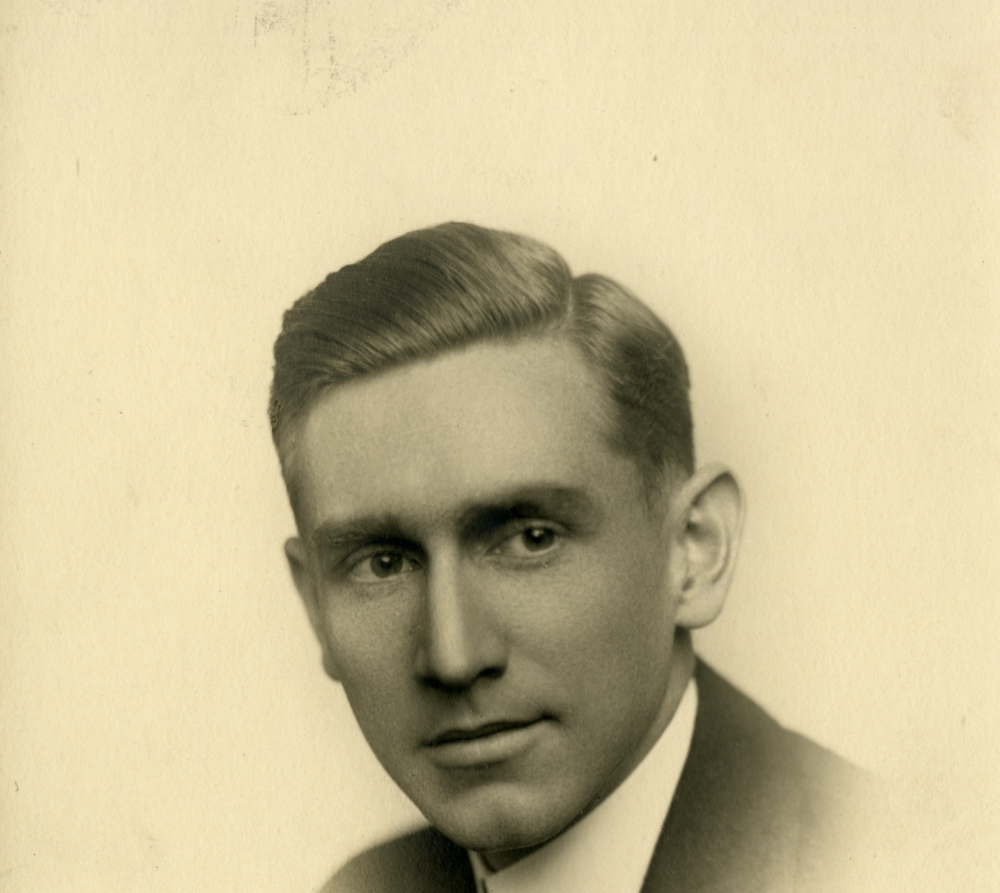
2023 INDUCTEE Owen Pence
Over 40 years, Owen Pence became one of the most influential and well-respected representatives of non-governmental organizations. His work began with student work in France with the National War Work Council. He eventually served 23 years on the National Council in Personnel Services staff and as director of the Bureau of Research, Studies and Trends.
After his retirement in 1949, Pence became Secretary for International Affairs of the World Alliance of YMCAs and represented the Alliance at the United Nations in New York. His apprentice, Arthur L. Swift Jr., says of him in a statement, “No man in our generation has more profoundly and more soundly influenced the development of our Movement. Encouraging, urging, condemning by conference and example, he gave the brotherhood of secretaries and their lay boards and committees in local communities across America a new understanding of the importance and use of careful records and studies.”
Pence also helped characterize the Association, showing its growth and influence trends. He fought for the strengthening of policies in personnel, the raising of standards, and the adequate education of secretaries in their preparation and training. He was also integral in the publication of the YMCA Yearbook, where he analyzed and appraised the Association’s work regarding current events. Swift describes Pence once more, “In loyalty unsurpassed; in critical and creative leadership a guiding force in the Association’s progress; a wise and trusted friend, a keen analyst, an able historian; an untiring worker, exact and exacting, very respectful of detail, yet with mind alert to national and world affairs and their meaning for Christian efforts and hopes.”
Pence authored and edited dozens of prominent essays, research studies, and books for the Association over his 40 years of service.
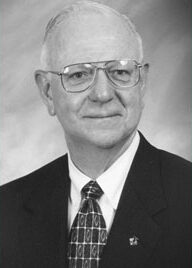
Bill Phillips decided to become a YMCA director while attending a teen Leadership Development Conference at YMCA Blue Ridge Assembly. He began his career as Boys’ Work secretary at his hometown Y in Pensacola, Fla. Beginning in 1962, he served in several leadership roles at the Central Florida YMCA in Orlando, and in 1968, Phillips returned to Pensacola as general director to lead the racial integration of that YMCA.
Phillips returned to the Central Florida YMCA during the 1970s as associate general director and then chief executive officer. He was the president and chief executive officer of the YMCA of Greater Seattle from 1982 to 1992, during which time two capital campaigns were completed and the budget tripled. He was appointed president and chief executive officer of the YMCA of Greater Houston (Texas) in 1992, a position he held until his retirement in 2002.
In Houston, the Y grew from $27 million to nearly $70 million. Four new facilities were constructed, 15 were renovated, and the funds were secured for three additional branches. Phillips served on the Board of Trustees of the YMCA Retirement and the National Board of the YMCA of the USA. He often said he was most proud of the fact that over 25 people who served on his staff went on to become chief executive officers, including five in the Urban Group.
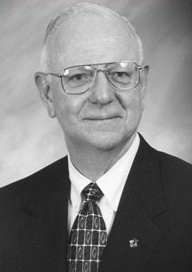
2006 INDUCTEE William V. Phillips
YMCA of Greater Houston
YMCA of Greater Seattle
YMCA of Northwest Florida
Bill Phillips decided to become a YMCA director while attending a teen Leadership Development Conference at YMCA Blue Ridge Assembly. He began his career as Boys’ Work secretary at his hometown Y in Pensacola, Fla. Beginning in 1962, he served in several leadership roles at the Central Florida YMCA in Orlando, and in 1968, Phillips returned to Pensacola as general director to lead the racial integration of that YMCA.
Phillips returned to the Central Florida YMCA during the 1970s as associate general director and then chief executive officer. He was the president and chief executive officer of the YMCA of Greater Seattle from 1982 to 1992, during which time two capital campaigns were completed and the budget tripled. He was appointed president and chief executive officer of the YMCA of Greater Houston (Texas) in 1992, a position he held until his retirement in 2002.
In Houston, the Y grew from $27 million to nearly $70 million. Four new facilities were constructed, 15 were renovated, and the funds were secured for three additional branches. Phillips served on the Board of Trustees of the YMCA Retirement and the National Board of the YMCA of the USA. He often said he was most proud of the fact that over 25 people who served on his staff went on to become chief executive officers, including five in the Urban Group.
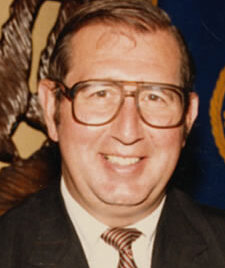
Peter Post found his passion and lifelong connection to the Y when he was 18 years old joining the staff of the Camp Hazen YMCA in Chester, Connecticut where he worked while attending Bates College. He joined the Y full time as a youth director at the YMCA in Westfield, Massachusetts before joining the Bridgeport, Connecticut YMCA as a branch director. From there he became the General Director of the Woburn, Massachusetts Y before merging it with the Boston Association. He then began a 23 year career in Boston that included becoming the President/CEO in 1981 for an 11 year run. His tenure in Boston included the largest capital campaign in history of the Boston Y at the time as well as creating a homeless shelter for 22 families. He was instrumental as chairman of the World Urban Network Steering Committee. Peter served as the Associate National Executive/Chief Operating Officer of the YMCA of the USA where he was instrumental in creating the Metro 30 organization to strengthen and expand YMCA work in urban areas. He re-established YMCA World Service awareness and giving from local YMCAs, through the MRC field system to increase international understanding and financial support of global Y initiatives.
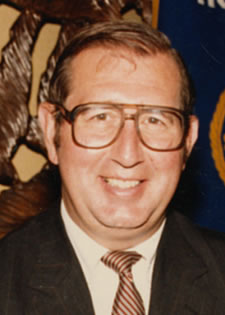
2016 INDUCTEE Peter Post
YMCA of the USA
Camp Hazen YMCA
YMCA of Greater Westfield
Bridgeport YMCA
Woburn YMCA
Peter Post found his passion and lifelong connection to the Y when he was 18 years old joining the staff of the Camp Hazen YMCA in Chester, Connecticut where he worked while attending Bates College. He joined the Y full time as a youth director at the YMCA in Westfield, Massachusetts before joining the Bridgeport, Connecticut YMCA as a branch director. From there he became the General Director of the Woburn, Massachusetts Y before merging it with the Boston Association. He then began a 23 year career in Boston that included becoming the President/CEO in 1981 for an 11 year run. His tenure in Boston included the largest capital campaign in history of the Boston Y at the time as well as creating a homeless shelter for 22 families. He was instrumental as chairman of the World Urban Network Steering Committee. Peter served as the Associate National Executive/Chief Operating Officer of the YMCA of the USA where he was instrumental in creating the Metro 30 organization to strengthen and expand YMCA work in urban areas. He re-established YMCA World Service awareness and giving from local YMCAs, through the MRC field system to increase international understanding and financial support of global Y initiatives.
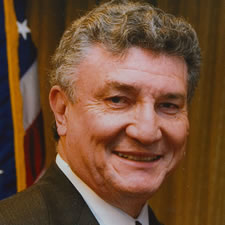
Jerry has been the Secretary General and CEO, Rosario YMCA, Argentina; Founder and CEO, YMCA of Costa Rica and co-founder YMCA of Guatemala; Director of the International Office for Latin America and the Caribbean, YMCA of the USA; Director, International Group, YMCA of the USA; and Chief International Officer, YMCA of the USA.
Jerry launched Mano a Mano sin Fronteras youth service-learning exchange. He created the Binational Mexico/United States Committee that brought together key leaders to provide oversight leading to a strong and meaningful relationship through the YMCA North American Network. He led the development of the United States/Mexico Border Coalition convening local Ys to support the development of YMCA Homes (Casas) for Migrant youth and Ys in Tijuana and Ciudad Juarez. He led U.S. efforts in the development and growth of YMCAs in Eastern Europe after the fall of the Soviet Union.
Jerry is a founder and key motivator of the YMCA Secours Speciaux. This fund allows dedicated YMCA leaders to retire to a decent life after years of service in Latin America, Asia and Africa. Jerry is also a founder of the International Coalition of YMCA Universities. Jerry is the co-founder and supporter of the U.S. Hispanic/Latino Leadership Network.

2016 INDUCTEE Jerry Prado-Shaw
YMCA of Costa Rica
YMCA of Guatemala
International Office for Latin America and the Caribbean
Rosario YMCA, Argentina
Jerry has been the Secretary General and CEO, Rosario YMCA, Argentina; Founder and CEO, YMCA of Costa Rica and co-founder YMCA of Guatemala; Director of the International Office for Latin America and the Caribbean, YMCA of the USA; Director, International Group, YMCA of the USA; and Chief International Officer, YMCA of the USA.
Jerry launched Mano a Mano sin Fronteras youth service-learning exchange. He created the Binational Mexico/United States Committee that brought together key leaders to provide oversight leading to a strong and meaningful relationship through the YMCA North American Network. He led the development of the United States/Mexico Border Coalition convening local Ys to support the development of YMCA Homes (Casas) for Migrant youth and Ys in Tijuana and Ciudad Juarez. He led U.S. efforts in the development and growth of YMCAs in Eastern Europe after the fall of the Soviet Union.
Jerry is a founder and key motivator of the YMCA Secours Speciaux. This fund allows dedicated YMCA leaders to retire to a decent life after years of service in Latin America, Asia and Africa. Jerry is also a founder of the International Coalition of YMCA Universities. Jerry is the co-founder and supporter of the U.S. Hispanic/Latino Leadership Network.
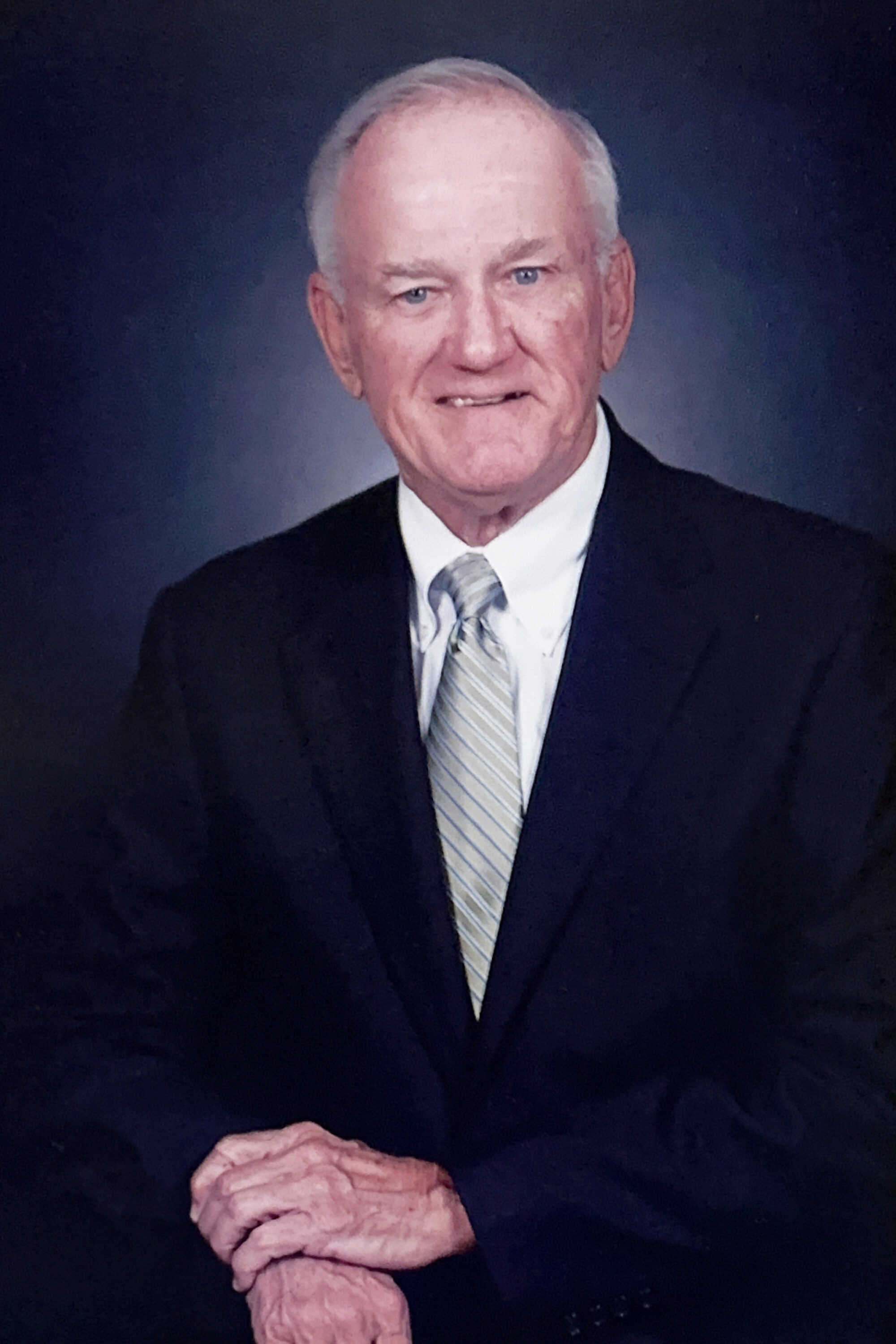
The advocacy and perseverance of Jim Raines personifies the YMCA’s commitment to diversity, inclusion, and social justice. In the face of a defiant board, community, and network of CEOs, Raines racially integrated the YMCA of Albany, Ga., in 1968. During this time, many southern Ys were not integrated, and some even withdrew from the national Y to stay racially segregated. Despite the lack of support and unity, Raines committed his service to creating a welcoming and inclusive community with a lack of advancement around him. Moreover, Raines displayed more courage and great leadership in his service in San Francisco. Here, Raines was involved in international programs that focused on aid for South Asian refugees. He also continued to fight for diversity and inclusion during the height of the AIDS epidemic, providing strong advocacy in 1980s San Francisco. Raines didn’t keep his knowledge and passion of fighting discrimination to himself, rather he was very influential in coaching, professional development, and helping colleagues in their journey towards social equity. Raines was always committed to engaging and supporting the advancement of women, minorities, and LGBTQ+ members, staff, and program participants. In a dark time, Raines showed the YMCA what was needed to eliminate segregation. Through his courage and action, Raines’ legacy continues to live on through the Y’s work in diversity, inclusion, and social justice.

2023 INDUCTEE Jim Raines
Albany Area YMCA
YMCA of Greater New York
Birmingham, AL YMCA
Lynchburg Central Branch YMCA
The advocacy and perseverance of Jim Raines personifies the YMCA’s commitment to diversity, inclusion, and social justice. In the face of a defiant board, community, and network of CEOs, Raines racially integrated the YMCA of Albany, Ga., in 1968. During this time, many southern Ys were not integrated, and some even withdrew from the national Y to stay racially segregated. Despite the lack of support and unity, Raines committed his service to creating a welcoming and inclusive community with a lack of advancement around him. Moreover, Raines displayed more courage and great leadership in his service in San Francisco. Here, Raines was involved in international programs that focused on aid for South Asian refugees. He also continued to fight for diversity and inclusion during the height of the AIDS epidemic, providing strong advocacy in 1980s San Francisco. Raines didn’t keep his knowledge and passion of fighting discrimination to himself, rather he was very influential in coaching, professional development, and helping colleagues in their journey towards social equity. Raines was always committed to engaging and supporting the advancement of women, minorities, and LGBTQ+ members, staff, and program participants. In a dark time, Raines showed the YMCA what was needed to eliminate segregation. Through his courage and action, Raines’ legacy continues to live on through the Y’s work in diversity, inclusion, and social justice.
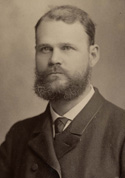
The Reverend David Allen Reed, a Congregationalist minister who assisted Dwight Moody in religious revivals, founded the tuition-free School for Christian Workers at Winchester Square in Springfield, Mass., in 1885. The school was dedicated to the training of Sunday school teachers, and included a Young Men’s Christian Association Department. Reed raised the funds to launch the school with its own building, and, according to YMCA historian Howard Hopkins, “maintained it against great odds through its pioneer years.” The school later became Springfield College. Reed chose Robert Ross McBurney, “father” of the New York YMCA, as vice president and appointed Moody to the board, assuring a strong YMCA connection.

2010 INDUCTEE David Allen Reed (1850-1932)
YMCA Training School (Springfield College)
International YMCA Training School (Springfield College)
The Reverend David Allen Reed, a Congregationalist minister who assisted Dwight Moody in religious revivals, founded the tuition-free School for Christian Workers at Winchester Square in Springfield, Mass., in 1885. The school was dedicated to the training of Sunday school teachers, and included a Young Men’s Christian Association Department. Reed raised the funds to launch the school with its own building, and, according to YMCA historian Howard Hopkins, “maintained it against great odds through its pioneer years.” The school later became Springfield College. Reed chose Robert Ross McBurney, “father” of the New York YMCA, as vice president and appointed Moody to the board, assuring a strong YMCA connection.
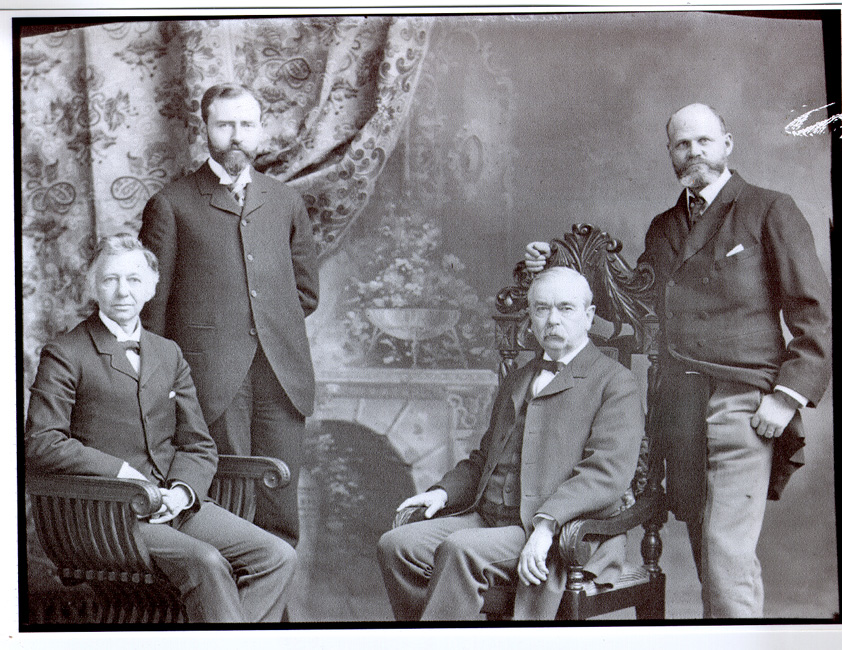
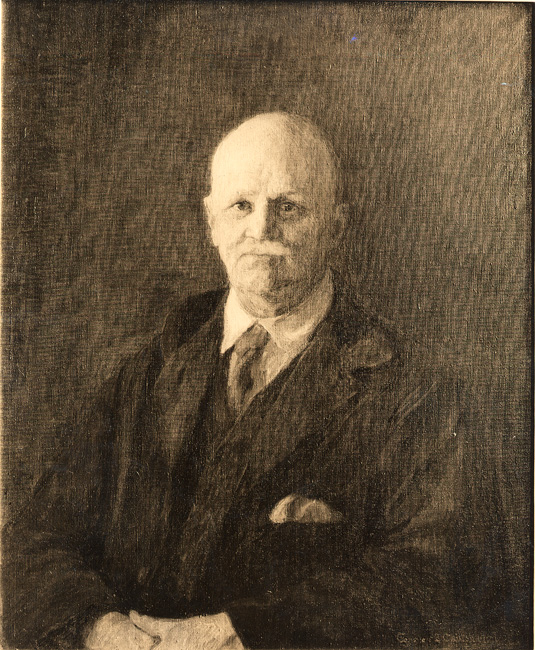
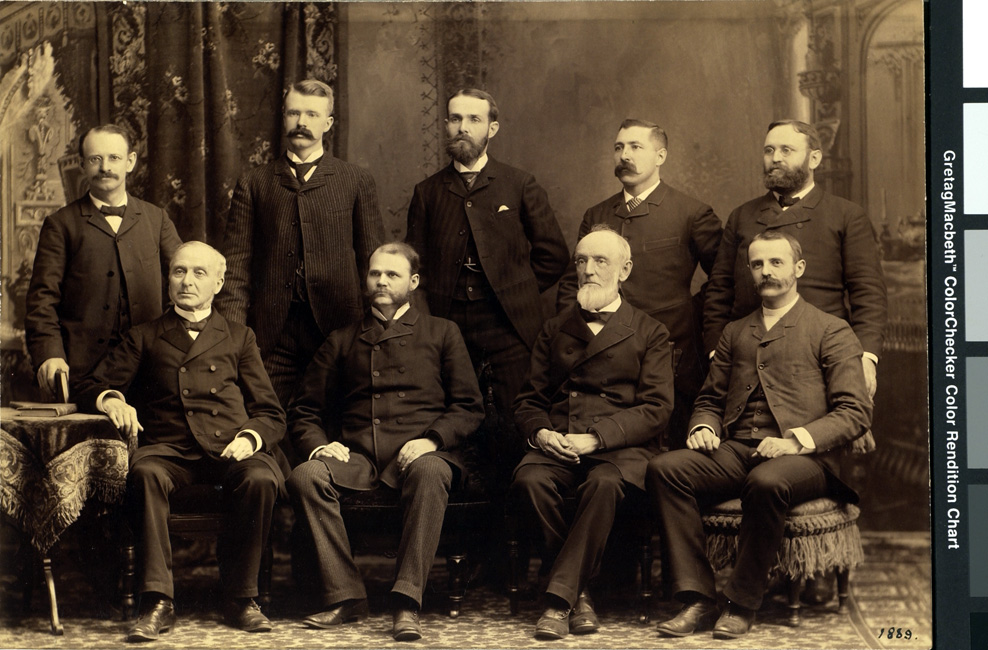
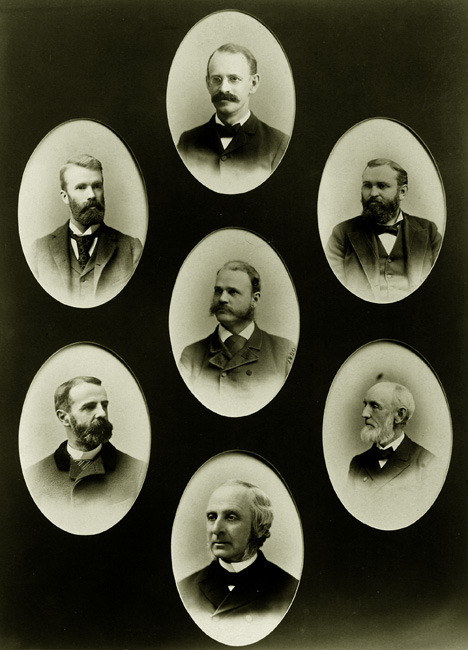
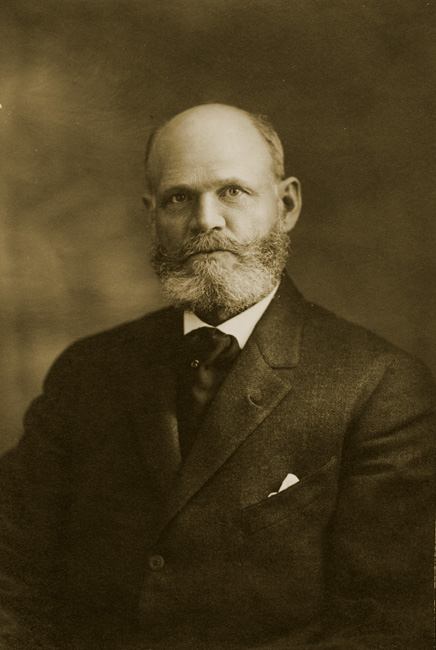
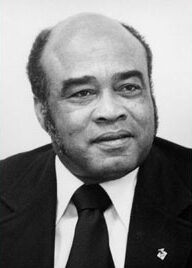
Dunbar Reed earned his undergraduate degree from Wiley College in Texas and his graduate degree from Springfield College. He began his career in 1938 as a program director at the Kansas City (Mo.) YMCA.
He worked mostly in Ys that served predominantly black communities, but did not confine himself to that role. He frequently worked with the community as a whole, specializing in problem solving and volunteer development. In 1941, Reed became a branch executive at the Wichita (Kan.) YMCA.
Beginning in 1953, he served on the national staff at two area councils and then became the director of field services for the National Council. At one point, he was the highest-ranking African-American in the United States YMCA movement.
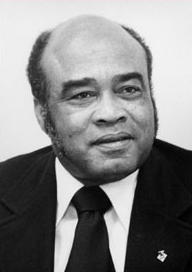
2003 INDUCTEE Dunbar Reed (1915-1983)
YMCA of Wichita Kansas
National Council of YMCAs
Dunbar Reed earned his undergraduate degree from Wiley College in Texas and his graduate degree from Springfield College. He began his career in 1938 as a program director at the Kansas City (Mo.) YMCA.
He worked mostly in Ys that served predominantly black communities, but did not confine himself to that role. He frequently worked with the community as a whole, specializing in problem solving and volunteer development. In 1941, Reed became a branch executive at the Wichita (Kan.) YMCA.
Beginning in 1953, he served on the national staff at two area councils and then became the director of field services for the National Council. At one point, he was the highest-ranking African-American in the United States YMCA movement.
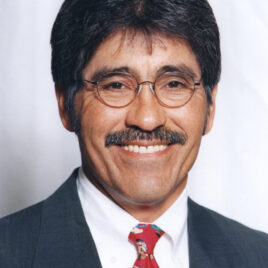
Although José Rendón’s YMCA tenure was mostly spent in one state between two cities, the impact of his hard work expands not only all over the city of San Antonio, but the state of Texas and nations around the world, particularly in Latin America and the Caribbean. Rendón was a champion of grassroots organizing and the advancement of a Hispanic Latino movement within the YMCA. When serving as executive director for the Westside YMCA in San Antonio, Texas, Rendón helped pioneer the concept of city-YMCA partnerships. Rendón’s public policy-guided vision helped develop facilities and provide services to vulnerable communities within San Antonio. This movement proved to be influential in the city, as more than 50% of YMCAs in San Antonio had some form of a partnership with the city by the late 1980s. Rendón also worked tirelessly to develop and pave the way for Hispanic and Latino communities within the Y. For example, with his signature grassroots method, Rendón helped form the first National Hispanic Conference in 1990 and the YMCA Hispanic Latino Leadership Network. Rendón’s service expanded internationally when he volunteered to work with the Latin America and Caribbean Alliance (LACA) of YMCAs. Specifically, Rendón worked with the YMCAs of Chile, Brazil, and Uruguay. With his help, YMCA national and LACA redesigned their philanthropic systems, saving some YMCAs from potential bankruptcy. Although Rendón’s career found himself in one state, his collaboration and grassroots organizing has created lasting impacts around the globe.
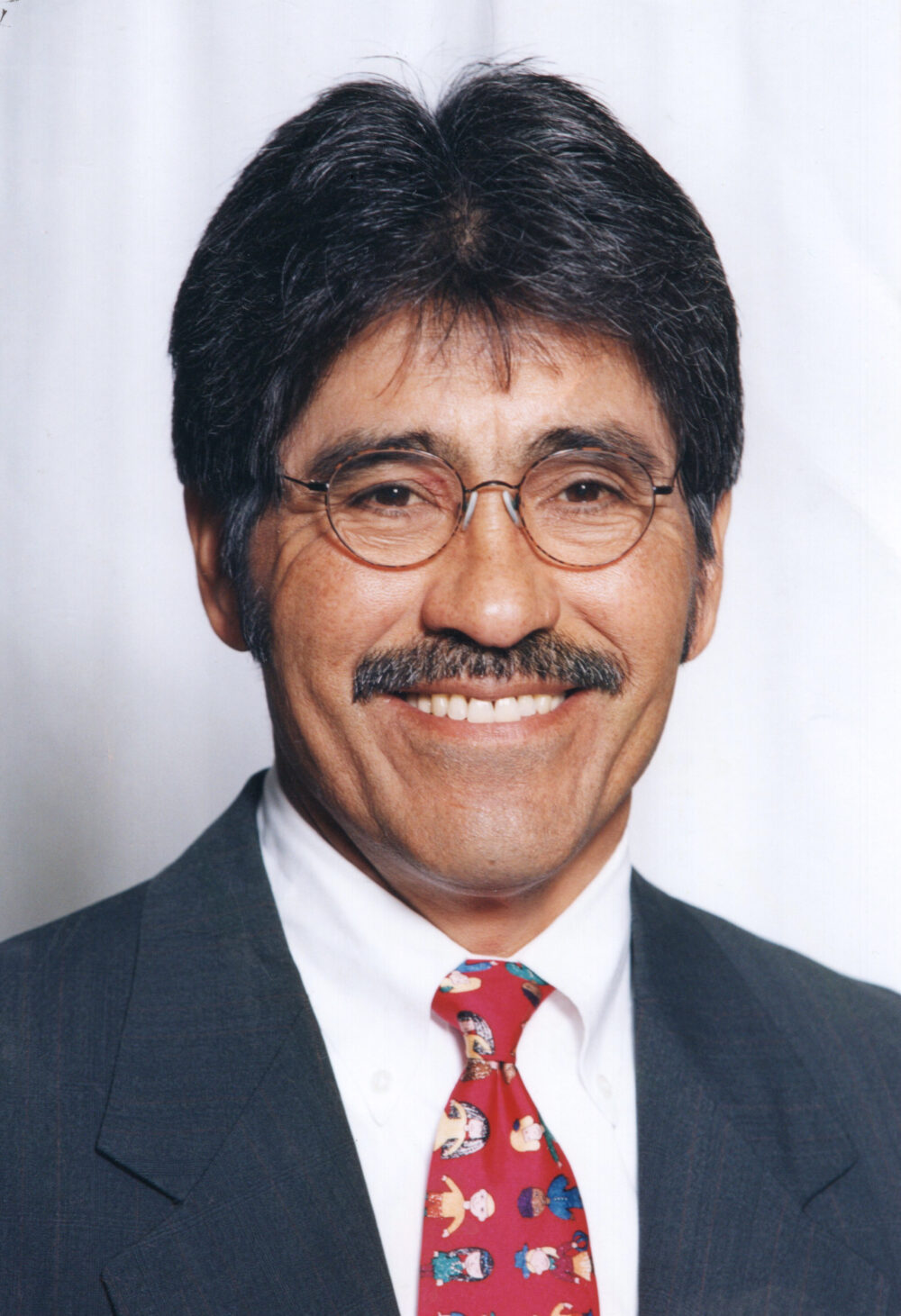
2023 INDUCTEE José Rendón
YMCA of Greater Houston Area
Latin American & Caribbean Alliance of YMCAs
Although José Rendón’s YMCA tenure was mostly spent in one state between two cities, the impact of his hard work expands not only all over the city of San Antonio, but the state of Texas and nations around the world, particularly in Latin America and the Caribbean. Rendón was a champion of grassroots organizing and the advancement of a Hispanic Latino movement within the YMCA. When serving as executive director for the Westside YMCA in San Antonio, Texas, Rendón helped pioneer the concept of city-YMCA partnerships. Rendón’s public policy-guided vision helped develop facilities and provide services to vulnerable communities within San Antonio. This movement proved to be influential in the city, as more than 50% of YMCAs in San Antonio had some form of a partnership with the city by the late 1980s. Rendón also worked tirelessly to develop and pave the way for Hispanic and Latino communities within the Y. For example, with his signature grassroots method, Rendón helped form the first National Hispanic Conference in 1990 and the YMCA Hispanic Latino Leadership Network. Rendón’s service expanded internationally when he volunteered to work with the Latin America and Caribbean Alliance (LACA) of YMCAs. Specifically, Rendón worked with the YMCAs of Chile, Brazil, and Uruguay. With his help, YMCA national and LACA redesigned their philanthropic systems, saving some YMCAs from potential bankruptcy. Although Rendón’s career found himself in one state, his collaboration and grassroots organizing has created lasting impacts around the globe.
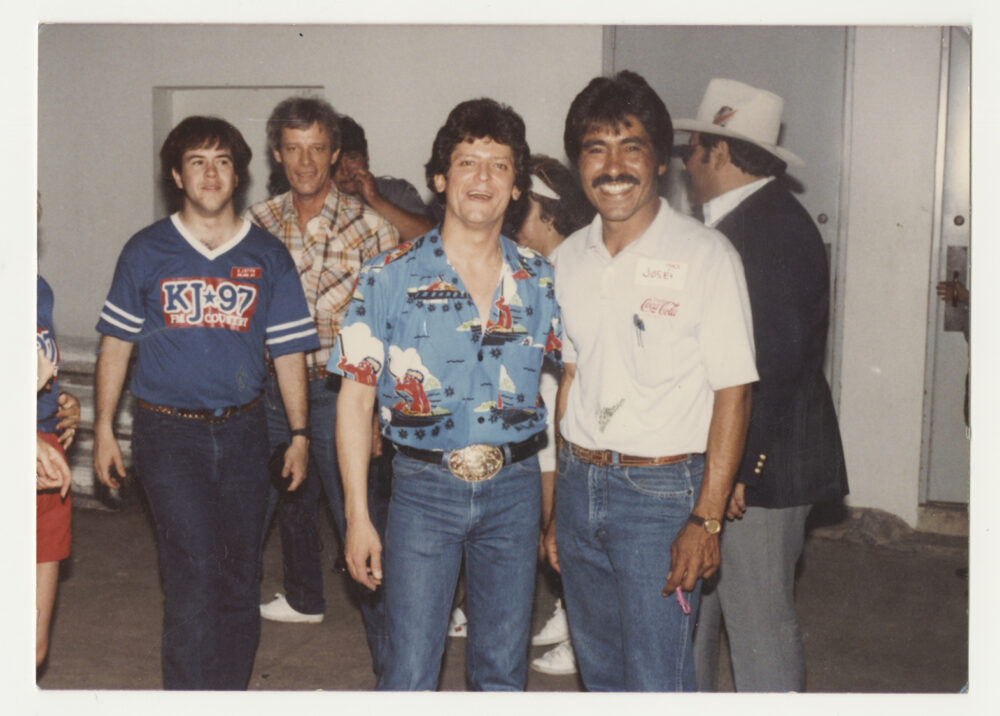
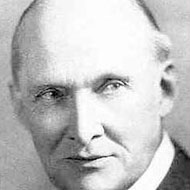
Edgar M. Robinson first became associated with the YMCA as a college student in New Brunswick, Canada. He served as the chairman of the Boys’ Work Committee and later developed their first camping program. In 1898, he was hired as the Boys’ Work secretary by the Massachusetts-Rhode Island State Committee.
He worked four days a week while attending the International YMCA Training School (now Springfield College). Although the emphasis on youth was a minor part of the national organization’s work, Robinson was appointed the Boys’ Work secretary of the International Committee in 1900. At the time, there were twenty Boys’ Work secretaries and 30,000 boys as members nationwide. Thirteen years later, there were 363 secretaries with over 120,000 youth in membership. Robinson developed camping programs, father and son programs, sex education programs, specialized work with employed boys and wartime programs.
He was also instrumental in the development of the Boy Scouts of America. In 1920, Robinson completed a nine-month world tour which led to the 1923 “Conference with Boys” in Austria, attracting 800 delegates from 54 countries. After his retirement, Robinson returned to Springfield College where he served as the dean of the Boy’s Work Department.
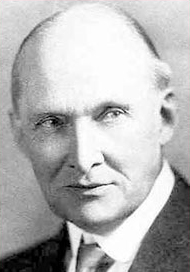
2000 INDUCTEE Edgar M. Robinson (1867-1951)
Massachusetts-Rhode Island State Committee
International YMCA College
Edgar M. Robinson first became associated with the YMCA as a college student in New Brunswick, Canada. He served as the chairman of the Boys’ Work Committee and later developed their first camping program. In 1898, he was hired as the Boys’ Work secretary by the Massachusetts-Rhode Island State Committee.
He worked four days a week while attending the International YMCA Training School (now Springfield College). Although the emphasis on youth was a minor part of the national organization’s work, Robinson was appointed the Boys’ Work secretary of the International Committee in 1900. At the time, there were twenty Boys’ Work secretaries and 30,000 boys as members nationwide. Thirteen years later, there were 363 secretaries with over 120,000 youth in membership. Robinson developed camping programs, father and son programs, sex education programs, specialized work with employed boys and wartime programs.
He was also instrumental in the development of the Boy Scouts of America. In 1920, Robinson completed a nine-month world tour which led to the 1923 “Conference with Boys” in Austria, attracting 800 delegates from 54 countries. After his retirement, Robinson returned to Springfield College where he served as the dean of the Boy’s Work Department.
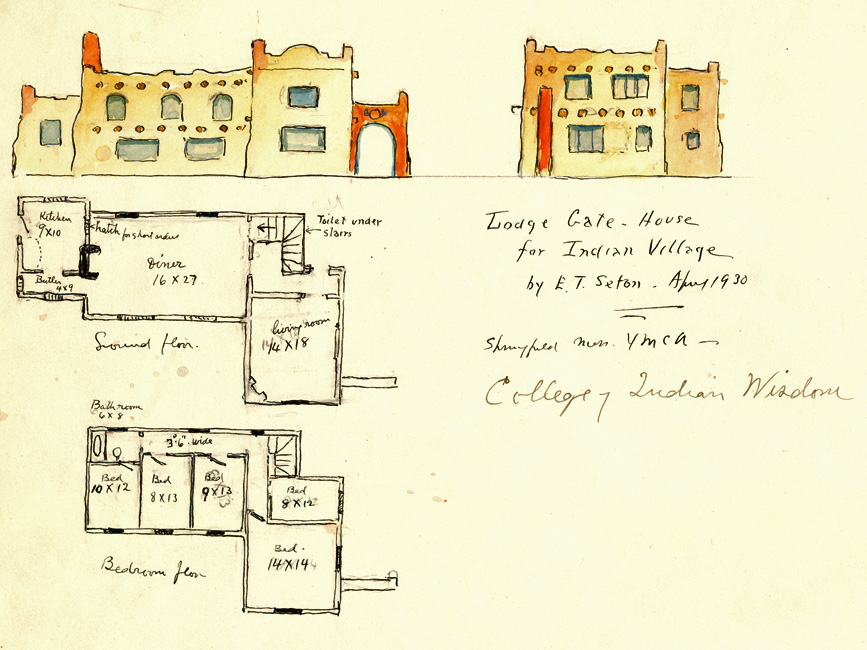
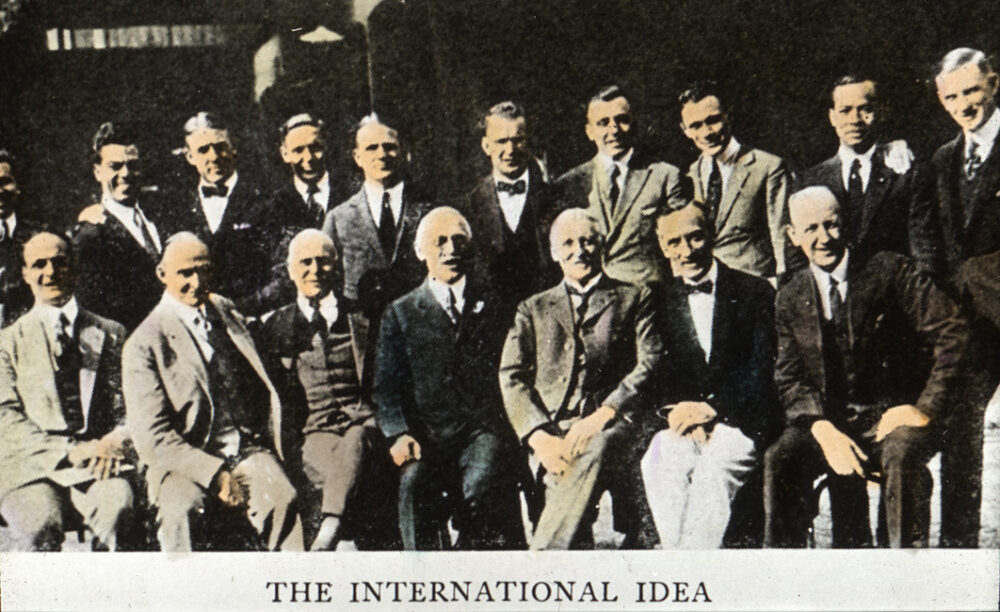
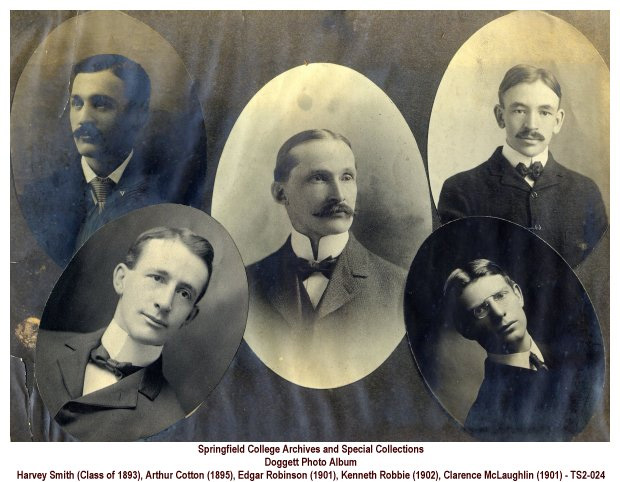
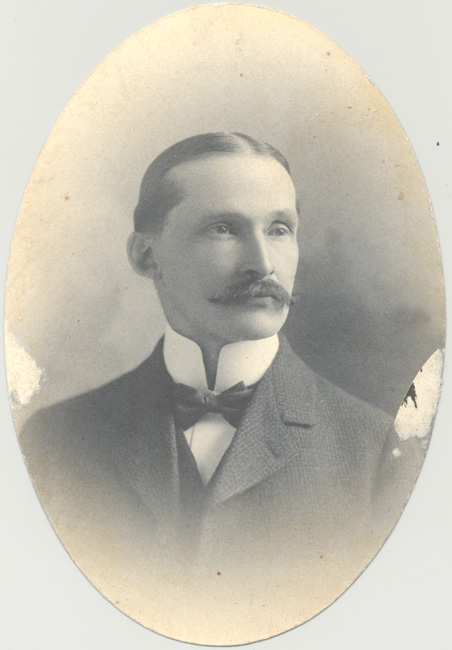
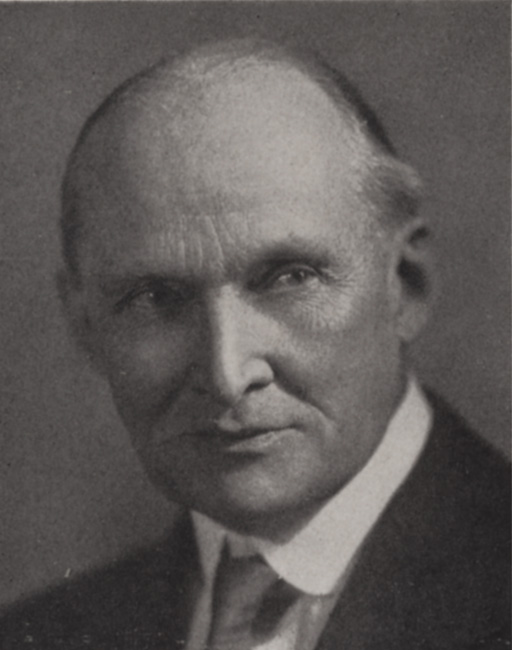
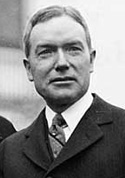
The beginnings of the YMCA Retirement Fund go back to 1911, when a secretaries conference raised the idea. Five years later, the formation of such a fund was authorized, and in 1922, the fund was begun, largely due to a major ($1 million) gift from John D. Rockefeller Jr.
By 1934, the fund had survived the Depression and had assets of $15 million. In the years since, the fund has enhanced the retirement security of tens of thousands of YMCA employees and has been a significant factor in the recruitment and retention of YMCA staff. That alone would assure a memorable place for Rockefeller in YMCA history, but this extraordinary philanthropist was a YMCA hero for other reasons as well. He contributed generously to the construction of YMCAs around the world.

2010 INDUCTEE John D. Rockefeller Jr. (1874-1960)
The beginnings of the YMCA Retirement Fund go back to 1911, when a secretaries conference raised the idea. Five years later, the formation of such a fund was authorized, and in 1922, the fund was begun, largely due to a major ($1 million) gift from John D. Rockefeller Jr.
By 1934, the fund had survived the Depression and had assets of $15 million. In the years since, the fund has enhanced the retirement security of tens of thousands of YMCA employees and has been a significant factor in the recruitment and retention of YMCA staff. That alone would assure a memorable place for Rockefeller in YMCA history, but this extraordinary philanthropist was a YMCA hero for other reasons as well. He contributed generously to the construction of YMCAs around the world.
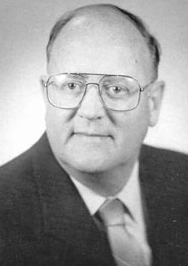
Rix Rogers began his career in 1956 at the Lakeshore Branch of the Montreal YMCA. He became the assistant general secretary of the Montreal YMCA in 1965, and served as its chief executive officer from 1968 to 1971.
Rogers was appointed to general secretary/chief executive officer of the National Council of YMCAs of Canada in 1971, and held this position until his retirement in 1986. He received his undergraduate degree from the University of Toronto and graduate degree from Springfield College. Rogers is known for his expertise in board development, committee work, volunteer and staff development, and fundraising.
He formed relationships with the Canadian government, which helped to create new ways to provide YMCA services across Canada. Rogers served as the Canadian trustee for the U.S. Retirement Fund Board of Trustees and represented Canada in the World Alliance from 1982 to 1984. As a founding member of the North American Urban Group, he brought together chief executive officers from large Urban Ys in the United States and Canada.

1988 INDUCTEE Rix G. Rogers (d. 1998)
National Council of YMCAs of Canada
Rix Rogers began his career in 1956 at the Lakeshore Branch of the Montreal YMCA. He became the assistant general secretary of the Montreal YMCA in 1965, and served as its chief executive officer from 1968 to 1971.
Rogers was appointed to general secretary/chief executive officer of the National Council of YMCAs of Canada in 1971, and held this position until his retirement in 1986. He received his undergraduate degree from the University of Toronto and graduate degree from Springfield College. Rogers is known for his expertise in board development, committee work, volunteer and staff development, and fundraising.
He formed relationships with the Canadian government, which helped to create new ways to provide YMCA services across Canada. Rogers served as the Canadian trustee for the U.S. Retirement Fund Board of Trustees and represented Canada in the World Alliance from 1982 to 1984. As a founding member of the North American Urban Group, he brought together chief executive officers from large Urban Ys in the United States and Canada.
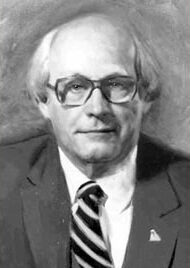
John O. Root’s career and education were interrupted by a five-year term as an Air Force Officer during WWII. After the war, he returned to George Williams College and graduated with a physical education degree in 1946.
After many years of YMCA service, he became president of the YMCA of Metropolitan Chicago (Ill.) in 1963 and served in that capacity for 20 years. He left a legacy of broadening the scope of the YMCA, while expanding and strengthening its traditional programs. A number of Chicago’s new program initiatives became national models for YMCAs and other human service agencies.
Under his leadership, the Y replaced inner city buildings with new facilities and implemented a new Human and Community Development Center concept in collaboration with other nonprofit agencies. He served on numerous national, regional, and local YMCA boards, as well as on municipal and community agency committees.
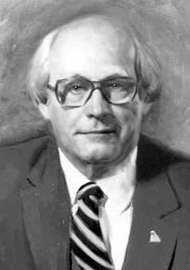
1989 INDUCTEE John O. Root (d. 2005)
John O. Root’s career and education were interrupted by a five-year term as an Air Force Officer during WWII. After the war, he returned to George Williams College and graduated with a physical education degree in 1946.
After many years of YMCA service, he became president of the YMCA of Metropolitan Chicago (Ill.) in 1963 and served in that capacity for 20 years. He left a legacy of broadening the scope of the YMCA, while expanding and strengthening its traditional programs. A number of Chicago’s new program initiatives became national models for YMCAs and other human service agencies.
Under his leadership, the Y replaced inner city buildings with new facilities and implemented a new Human and Community Development Center concept in collaboration with other nonprofit agencies. He served on numerous national, regional, and local YMCA boards, as well as on municipal and community agency committees.
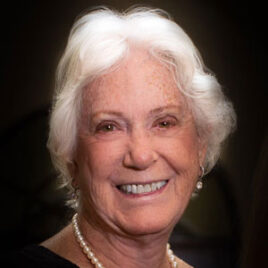
Trailblazer. Barrier breaker. Committed. These are just a few of the words used to describe Barbara Roper’s passion as a longtime volunteer for the YMCA. Since 1971, Barbara Roper has been an active volunteer with the YMCA of Central Florida, where she became the first woman chair in 1980. Roper broke many barriers, including serving as the first woman to chair the Y-USA Board of Directors. She made it her mission to challenge the status quo and blazed a path that has opened the door for other women to take on lead roles throughout the Y community. On the international front, Roper was a committee member of the International YMCA and has traveled the world as a representative of the Y Movement, sharing her commitment and dedication at YMCAs in Ecuador, Africa, Nepal, Norway and more.
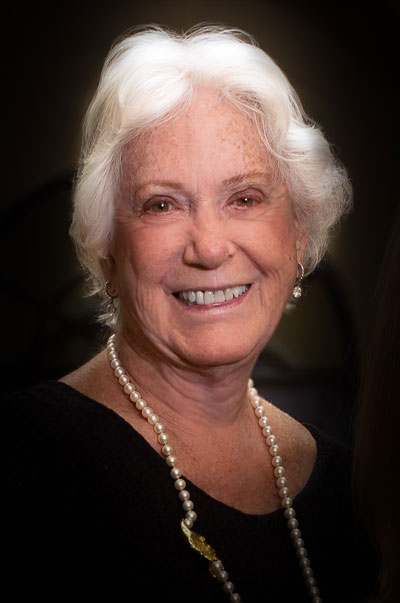
2019 INDUCTEE Barbara Roper
YMCA of the USA
International YMCA
Trailblazer. Barrier breaker. Committed. These are just a few of the words used to describe Barbara Roper’s passion as a longtime volunteer for the YMCA. Since 1971, Barbara Roper has been an active volunteer with the YMCA of Central Florida, where she became the first woman chair in 1980. Roper broke many barriers, including serving as the first woman to chair the Y-USA Board of Directors. She made it her mission to challenge the status quo and blazed a path that has opened the door for other women to take on lead roles throughout the Y community. On the international front, Roper was a committee member of the International YMCA and has traveled the world as a representative of the Y Movement, sharing her commitment and dedication at YMCAs in Ecuador, Africa, Nepal, Norway and more.
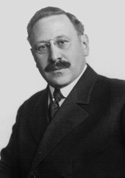
A part owner and director of Sears, Roebuck and Co., Julius Rosenwald of Chicago (Ill.) was a philanthropist with a particular commitment to the welfare and education of the African-American community. He worked closely with Booker T. Washington and was a longtime board member of the Tuskegee Institute.
In 1910, he offered $25,000 toward the construction of a YMCA for “colored men” for any city that would match his gift with $75,000. Rosenwald said there should be buildings in cities with “large numbers of colored people” for their use, and he stated that there was “no organization better suited for this work than the YMCA.” Soon, there were “Rosenwald YMCAs” in Washington, Indianapolis (Ind.), Atlanta (Ga.), Baltimore (Md.), Brooklyn (N.Y.), Cincinnati (Ohio), Columbus (Ohio), Kansas City (Mo.), New York (N.Y.), Philadelphia (Pa.), and St. Louis (Mo.).

2010 INDUCTEE Julius Rosenwald (1862-1932)
A part owner and director of Sears, Roebuck and Co., Julius Rosenwald of Chicago (Ill.) was a philanthropist with a particular commitment to the welfare and education of the African-American community. He worked closely with Booker T. Washington and was a longtime board member of the Tuskegee Institute.
In 1910, he offered $25,000 toward the construction of a YMCA for “colored men” for any city that would match his gift with $75,000. Rosenwald said there should be buildings in cities with “large numbers of colored people” for their use, and he stated that there was “no organization better suited for this work than the YMCA.” Soon, there were “Rosenwald YMCAs” in Washington, Indianapolis (Ind.), Atlanta (Ga.), Baltimore (Md.), Brooklyn (N.Y.), Cincinnati (Ohio), Columbus (Ohio), Kansas City (Mo.), New York (N.Y.), Philadelphia (Pa.), and St. Louis (Mo.).
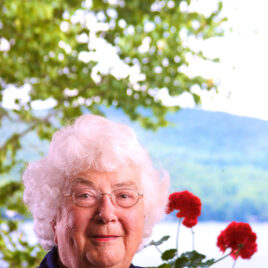
Jane Seaver Kirk paved the way for women to become executive leaders within the YMCA movement. Minus the first three months of her career, Kirk was the first woman to hold whatever position she had in the Y. For example, Kirk started the first program for American military in a downtown YMCA. She also was the first female member of the Middle Atlantic Region YMCA staff. Adding to the theme of firsts, during Kirk’s first year as deputy director of the YMCA International Group, fundraising for the National World Service Campaign went from $60,000 to $1 million. These groundbreaking accomplishments eventually led to Kirk receiving Fund Raising Executive of the Year in 1991, the highest honor for the North American YMCA Financial Development Officers. Kirk continued to serve the YMCA mission well after her retirement, taking many opportunities to volunteer for various boards and committees. Her willingness to serve others long after retirement clearly displays the purpose and spirit of the YMCA. As Jane herself put it: “My goal has always been to demonstrate by performance that I have been qualified to hold the position. Working hard to do well is the way I live my life all the time. I am happy that I have the mind, spirit, and body to be able to do so.”
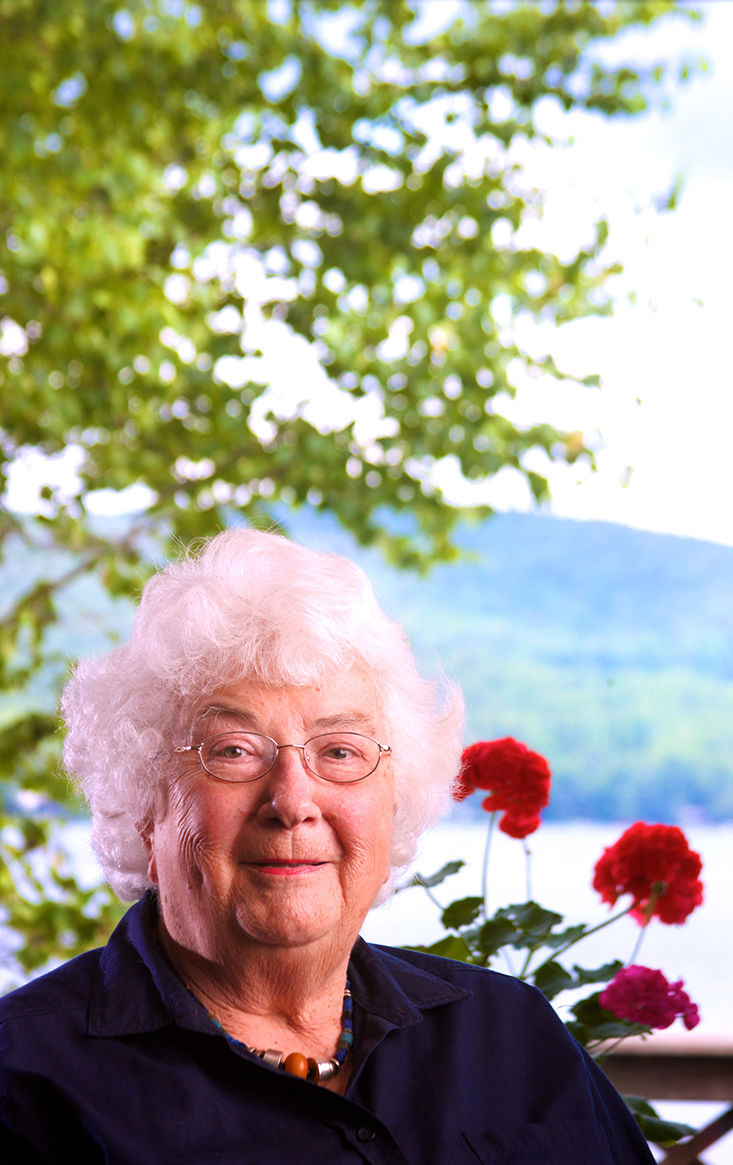
2023 INDUCTEE Jane Seaver Kirk
Navy YMCA
Omaha YMCA
Newark YM-YWCA
YMCA of the USA, Middle Atlantic
YMCA of the USA
Jane Seaver Kirk paved the way for women to become executive leaders within the YMCA movement. Minus the first three months of her career, Kirk was the first woman to hold whatever position she had in the Y. For example, Kirk started the first program for American military in a downtown YMCA. She also was the first female member of the Middle Atlantic Region YMCA staff. Adding to the theme of firsts, during Kirk’s first year as deputy director of the YMCA International Group, fundraising for the National World Service Campaign went from $60,000 to $1 million. These groundbreaking accomplishments eventually led to Kirk receiving Fund Raising Executive of the Year in 1991, the highest honor for the North American YMCA Financial Development Officers. Kirk continued to serve the YMCA mission well after her retirement, taking many opportunities to volunteer for various boards and committees. Her willingness to serve others long after retirement clearly displays the purpose and spirit of the YMCA. As Jane herself put it: “My goal has always been to demonstrate by performance that I have been qualified to hold the position. Working hard to do well is the way I live my life all the time. I am happy that I have the mind, spirit, and body to be able to do so.”
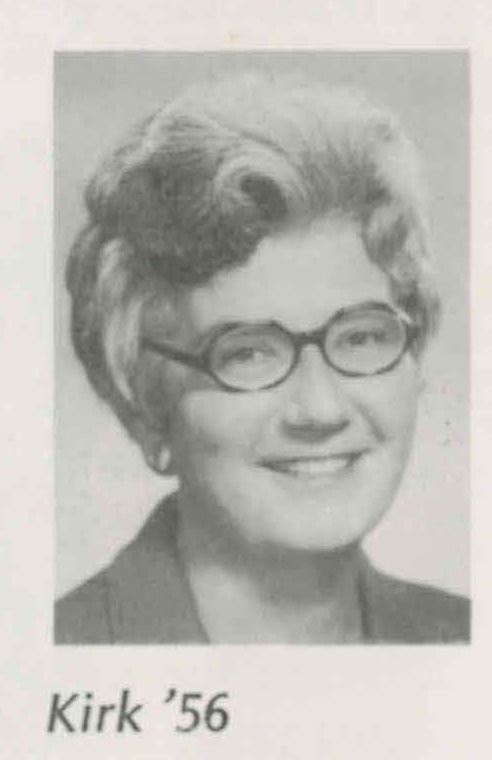
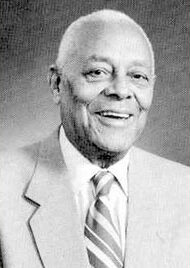
As a teen, Ed Singer was a member of the Zanesfield, Ohio Hi-Y Club. He began his career as a physical education director in Ohio YMCAs, first in Columbus and then in Cincinnati, from 1936 to 1941. Singer served as director of the Douglas USO Club at Fort Sill (Okla.) and as the itinerant director of the Regional Army and Navy Department of the YMCA.
He returned to local YMCA work after World War II as executive director of the YMCA in Kansas City (Kan.). Singer resigned from the Y in protest after being told that, despite his credentials, “the time was not right for the appointment of a colored secretary,” when he applied for the general secretary for the Midwest position. One year later, Leo Marsh recruited him back to the Y as general program and membership secretary for the Center Avenue Branch in Pittsburgh (Pa.). Singer remained in Pittsburgh until 1951, when became branch executive, and later associate general secretary, in Pasadena (Calif.).
He and other African-American leaders promoted an “open door” policy of YMCA membership throughout the U.S. as well as an “equal pay for equal positions” policy for all Y staff. In 1961, Singer was appointed executive director of the Nuuanu YMCA branch in Honolulu (Hawaii). Five years later, he joined the national staff as association executive of the Pacific Southwest Area Council of the YMCA. In 1967, he was appointed the director of the Washington office of the National Board, where he served until his retirement.
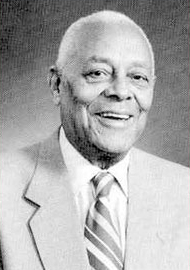
1991 INDUCTEE C. Edward Singer
Cincinnati YMCA
The Greater Kansas City YMCA
YMCA of Central Ohio
YMCA of Honolulu
YMCA of Pasadena California
Pacific Southwest Council of the YMCA
As a teen, Ed Singer was a member of the Zanesfield, Ohio Hi-Y Club. He began his career as a physical education director in Ohio YMCAs, first in Columbus and then in Cincinnati, from 1936 to 1941. Singer served as director of the Douglas USO Club at Fort Sill (Okla.) and as the itinerant director of the Regional Army and Navy Department of the YMCA.
He returned to local YMCA work after World War II as executive director of the YMCA in Kansas City (Kan.). Singer resigned from the Y in protest after being told that, despite his credentials, “the time was not right for the appointment of a colored secretary,” when he applied for the general secretary for the Midwest position. One year later, Leo Marsh recruited him back to the Y as general program and membership secretary for the Center Avenue Branch in Pittsburgh (Pa.). Singer remained in Pittsburgh until 1951, when became branch executive, and later associate general secretary, in Pasadena (Calif.).
He and other African-American leaders promoted an “open door” policy of YMCA membership throughout the U.S. as well as an “equal pay for equal positions” policy for all Y staff. In 1961, Singer was appointed executive director of the Nuuanu YMCA branch in Honolulu (Hawaii). Five years later, he joined the national staff as association executive of the Pacific Southwest Area Council of the YMCA. In 1967, he was appointed the director of the Washington office of the National Board, where he served until his retirement.
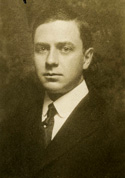
William S. Sloane was president of the National War Work Council, which was formed in 1917, and raised and managed hundreds of millions of dollars to support YMCA initiatives to serve American and allied troops during World War I. During the war, he was one of the “dollar-a-year men,” who put aside their own personal gain and fortune to put their vast experience earned in the private sector to work by hugely expanding the outreach of the YMCA.
The contributions of the YMCA during the war were amazingly extensive and impressive, involving the construction and operation of thousands of centers for service personnel, support for U.S. YMCAs serving the military, mobilizing well-known entertainers for service abroad, and literally hundreds of other programs and services that employed more than 25,000 YMCA workers. In 1930, Sloane House, a New York YMCA residence for servicemen, was opened in his honor.

2010 INDUCTEE William S. Sloane (1873-1922)
William S. Sloane was president of the National War Work Council, which was formed in 1917, and raised and managed hundreds of millions of dollars to support YMCA initiatives to serve American and allied troops during World War I. During the war, he was one of the “dollar-a-year men,” who put aside their own personal gain and fortune to put their vast experience earned in the private sector to work by hugely expanding the outreach of the YMCA.
The contributions of the YMCA during the war were amazingly extensive and impressive, involving the construction and operation of thousands of centers for service personnel, support for U.S. YMCAs serving the military, mobilizing well-known entertainers for service abroad, and literally hundreds of other programs and services that employed more than 25,000 YMCA workers. In 1930, Sloane House, a New York YMCA residence for servicemen, was opened in his honor.
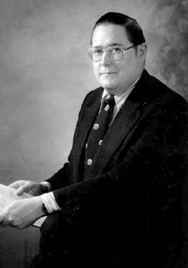
With an undergraduate degree in economics and history and graduate degrees in both business and divinity, Harold Smith was well prepared for his 42 years at the YMCA Retirement Fund. He served in various roles before his 1983 appointment as president and chief investment officer.
In Smith’s 17 years as president, the Fund grew from 17,000 members with $400 million in assets, to 75,000 members and $3.75 billion in assets. Smith also had success combining his expertise in financial matters and his deeply spiritual side. From 1958 to 2000 he served as voluntary senior pastor of the Unity Hill United Church of Christ in Trumbull, Conn. Smith served as a member of the YMCA of the USA International Committee and director of the World Federation of Associations of YMCA Secretaries in Geneva, Switzerland. He was the treasurer of the YMCA Association of Professional Directors (APD) from 1969 to 1978, and served a three-year term as the APD president.
In retirement, Smith continued to serve on the Board of the International Branch of the YMCA of Greater New York and as a Springfield College trustee. He was awarded an Honorary Doctorate by Springfield College in 1998.

2001 INDUCTEE Harold C. Smith (1934-2017)
With an undergraduate degree in economics and history and graduate degrees in both business and divinity, Harold Smith was well prepared for his 42 years at the YMCA Retirement Fund. He served in various roles before his 1983 appointment as president and chief investment officer.
In Smith’s 17 years as president, the Fund grew from 17,000 members with $400 million in assets, to 75,000 members and $3.75 billion in assets. Smith also had success combining his expertise in financial matters and his deeply spiritual side. From 1958 to 2000 he served as voluntary senior pastor of the Unity Hill United Church of Christ in Trumbull, Conn. Smith served as a member of the YMCA of the USA International Committee and director of the World Federation of Associations of YMCA Secretaries in Geneva, Switzerland. He was the treasurer of the YMCA Association of Professional Directors (APD) from 1969 to 1978, and served a three-year term as the APD president.
In retirement, Smith continued to serve on the Board of the International Branch of the YMCA of Greater New York and as a Springfield College trustee. He was awarded an Honorary Doctorate by Springfield College in 1998.
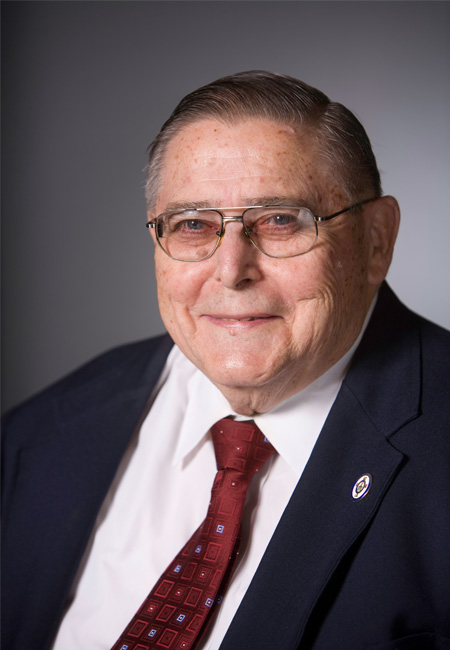
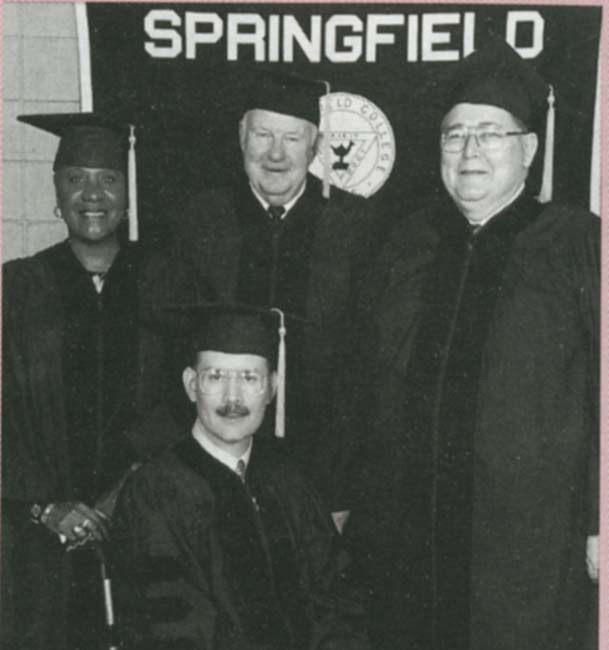
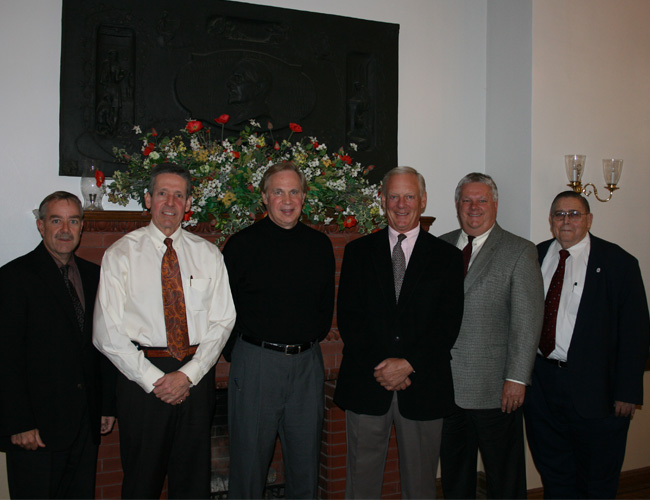
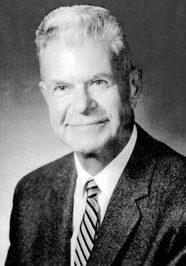
Roy Sorenson began his lifelong association with the YMCA as a 12-year-old in Milwaukee. He worked part-time for the Madison YMCA while attending the University of Wisconsin, and joined the Milwaukee YMCA staff in 1923 as the assistant Boys’ Work secretary.
In 1927, he joined the National Council of YMCAs, first on the Boys’ Work staff and later with the National Program Services Department. For 10 years, Sorenson served the National Council in Chicago (Ill.), where he helped introduce nonfacility-centered programs and community club programs into the YMCA. In 1946, he became the managing director of the San Francisco (Calif.) YMCA.
Under his leadership, four new branches were developed and an innovative youth work program was initiated. Sorensen was instrumental in the development of the San Francisco Master Plan for Youth, the Social Welfare Council, and the Bay Area United Fund. Sorenson authored “Designing Education in Values: A Case Study in Institutional Change,” “The Art of Board Membership,” and “How to Be a Board or Committee Member.”

1997 INDUCTEE Roy Sorenson (1900-1966)
YMCA of San Francisco
National Council of YMCAs
Madison YMCA
Roy Sorenson began his lifelong association with the YMCA as a 12-year-old in Milwaukee. He worked part-time for the Madison YMCA while attending the University of Wisconsin, and joined the Milwaukee YMCA staff in 1923 as the assistant Boys’ Work secretary.
In 1927, he joined the National Council of YMCAs, first on the Boys’ Work staff and later with the National Program Services Department. For 10 years, Sorenson served the National Council in Chicago (Ill.), where he helped introduce nonfacility-centered programs and community club programs into the YMCA. In 1946, he became the managing director of the San Francisco (Calif.) YMCA.
Under his leadership, four new branches were developed and an innovative youth work program was initiated. Sorensen was instrumental in the development of the San Francisco Master Plan for Youth, the Social Welfare Council, and the Bay Area United Fund. Sorenson authored “Designing Education in Values: A Case Study in Institutional Change,” “The Art of Board Membership,” and “How to Be a Board or Committee Member.”
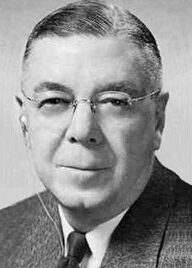
J. Edward Sproul began his work in 1916 as an assistant secretary for religious activities at the Newark (N.J.) YMCA. During WWI, he became a program secretary with an Army YMCA unit.
After the war, he returned to the YMCA as assistant state secretary in New Jersey, and in 1921 became the executive secretary of the Ridgewood (N.J.) YMCA. Sproul served on the 1925 YMCA Constitutional Convention, charged with formulating the constitution of the National Council.
Two years later, he joined the staff of the program section of the newly-formed National Council. After receiving his master’s degree in Humanics from Springfield College (then the International YMCA College) in 1936, he became the executive of the Program and Research Division, and later was the secretary of the Committee on Public Affairs on the national staff.
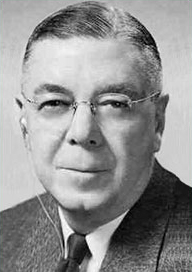
1986 INDUCTEE J. Edward Sproul
Ridgewood YMCA
National Council of YMCAs
Newark YMCA
J. Edward Sproul began his work in 1916 as an assistant secretary for religious activities at the Newark (N.J.) YMCA. During WWI, he became a program secretary with an Army YMCA unit.
After the war, he returned to the YMCA as assistant state secretary in New Jersey, and in 1921 became the executive secretary of the Ridgewood (N.J.) YMCA. Sproul served on the 1925 YMCA Constitutional Convention, charged with formulating the constitution of the National Council.
Two years later, he joined the staff of the program section of the newly-formed National Council. After receiving his master’s degree in Humanics from Springfield College (then the International YMCA College) in 1936, he became the executive of the Program and Research Division, and later was the secretary of the Committee on Public Affairs on the national staff.
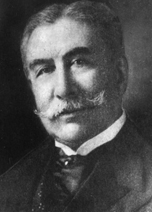
James M. Stokes was part of the national governance of the YMCA starting with the Executive Committee and continuing with the International Committee. (These were predecessor organizations to the YMCA of the USA.) Committed to spreading the YMCA idea worldwide, Stokes was instrumental in the development and cultivation of YMCAs in France, Italy, Egypt, Syria, Switzerland, and Great Britain. He was a private banker in New York and also director of a number of large business enterprises in the city. He funded YMCA buildings in St. Petersburg, Russia; Rome, Berlin, Vienna, and other European cities, as well as India, China, and Japan.

2013 INDUCTEE James M. Stokes (1842-1918)
International Committee of the YMCA
James M. Stokes was part of the national governance of the YMCA starting with the Executive Committee and continuing with the International Committee. (These were predecessor organizations to the YMCA of the USA.) Committed to spreading the YMCA idea worldwide, Stokes was instrumental in the development and cultivation of YMCAs in France, Italy, Egypt, Syria, Switzerland, and Great Britain. He was a private banker in New York and also director of a number of large business enterprises in the city. He funded YMCA buildings in St. Petersburg, Russia; Rome, Berlin, Vienna, and other European cities, as well as India, China, and Japan.
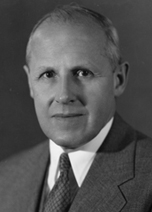
Tracy Strong (1887-1968) began his YMCA career as the boys work secretary for the Seattle YMCA in 1909. In 1923, he joined the boys work staff of the World Alliance and, in 1926, he was appointed World YMCA boys work secretary. In that position, he was active in developing the International Older Boys’ Camps. Strong took a leading role in the War Prisoners Aid Program at the outbreak of World War II. He supervised the distribution of education, recreational, and religious materials to 6 million prisoners in 30 countries. He was decorated by the French, Polish, and Belgian governments for this work. He retired as general secretary of the World Committee in 1953 and was later appointed field professor of YMCA history at George Williams College.

2013 INDUCTEE Tracy Strong (1887-1968)
Seattle YMCA
World Committee
Tracy Strong (1887-1968) began his YMCA career as the boys work secretary for the Seattle YMCA in 1909. In 1923, he joined the boys work staff of the World Alliance and, in 1926, he was appointed World YMCA boys work secretary. In that position, he was active in developing the International Older Boys’ Camps. Strong took a leading role in the War Prisoners Aid Program at the outbreak of World War II. He supervised the distribution of education, recreational, and religious materials to 6 million prisoners in 30 countries. He was decorated by the French, Polish, and Belgian governments for this work. He retired as general secretary of the World Committee in 1953 and was later appointed field professor of YMCA history at George Williams College.
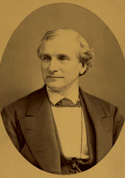
George H. Stuart, an Irish immigrant who became a prominent businessman, met with YMCA founder George Williams in 1850. From that meeting, came Stuart’s leadership in the American YMCA movement. He founded the Philadelphia (Pa.) YMCA in 1854. Stuart advocated for a paid secretary, employing John Wanamaker and thus beginning the professionalization of the movement.
Stuart’s organizational and fundraising abilities were put to the greatest test during the Civil War, when as chairman of the United States Christian Commission (organized by YMCAs to recruit and support Union troops), he raised $6 million in support of the welfare of soldiers. The Commission provided religious supplies and preachers, but also staffed kitchens and medical facilities and provided transportation and free telegrams for troops. After the war, Stuart – a confidant of U.S. President Ulysses S. Grant – was instrumental in the movement to reform the government’s treatment of Native Americans.

2010 INDUCTEE George H. Stuart (1816-1890)
United States Christian Commission
George H. Stuart, an Irish immigrant who became a prominent businessman, met with YMCA founder George Williams in 1850. From that meeting, came Stuart’s leadership in the American YMCA movement. He founded the Philadelphia (Pa.) YMCA in 1854. Stuart advocated for a paid secretary, employing John Wanamaker and thus beginning the professionalization of the movement.
Stuart’s organizational and fundraising abilities were put to the greatest test during the Civil War, when as chairman of the United States Christian Commission (organized by YMCAs to recruit and support Union troops), he raised $6 million in support of the welfare of soldiers. The Commission provided religious supplies and preachers, but also staffed kitchens and medical facilities and provided transportation and free telegrams for troops. After the war, Stuart – a confidant of U.S. President Ulysses S. Grant – was instrumental in the movement to reform the government’s treatment of Native Americans.
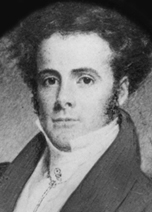
Captain Thomas V. Sullivan (1800-1859), a sea captain and founder of the first United States YMCA, was inspired by his encounter with the nascent YMCA movement in England. Before the age of 33, Sullivan had been shipwrecked in the Antarctic and attacked by pirates off the coast of Brazil. He had also made and lost a fortune. Hardships associated with life at sea and an illness led to his conversion to a more active Christianity in 1833. Taking his message to his community he began what he called a “Marine Mission at Large.” His interdenominational work as a lay missionary involved preaching and distributing tracts on board ships in an attempt to reach men who would otherwise attend no religious service. He called his interdenominational work “social religion” and when he read about the London YMCA he wasted no time in expressing his enthusiasm for the idea. In December 1851, Sullivan founded the Boston YMCA, the first YMCA in the United States. He found the ideals of the YMCA so compelling that he advocated for the newly created organization with the zeal of a preacher. Soon, Sullivan had managed to encourage the residents of cities and towns all over New England to form YMCA groups in their community. Though little detail is known of his life and career, Capt. Sullivan can be regarded as the inspiration and driving force for the establishment of the YMCA movement in the United States.

2013 INDUCTEE Captain Thomas V. Sullivan (1800-1859)
Captain Thomas V. Sullivan (1800-1859), a sea captain and founder of the first United States YMCA, was inspired by his encounter with the nascent YMCA movement in England. Before the age of 33, Sullivan had been shipwrecked in the Antarctic and attacked by pirates off the coast of Brazil. He had also made and lost a fortune. Hardships associated with life at sea and an illness led to his conversion to a more active Christianity in 1833. Taking his message to his community he began what he called a “Marine Mission at Large.” His interdenominational work as a lay missionary involved preaching and distributing tracts on board ships in an attempt to reach men who would otherwise attend no religious service. He called his interdenominational work “social religion” and when he read about the London YMCA he wasted no time in expressing his enthusiasm for the idea. In December 1851, Sullivan founded the Boston YMCA, the first YMCA in the United States. He found the ideals of the YMCA so compelling that he advocated for the newly created organization with the zeal of a preacher. Soon, Sullivan had managed to encourage the residents of cities and towns all over New England to form YMCA groups in their community. Though little detail is known of his life and career, Capt. Sullivan can be regarded as the inspiration and driving force for the establishment of the YMCA movement in the United States.
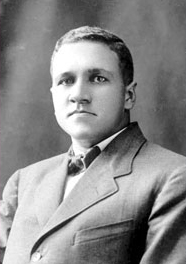
Channing Tobias worked to create strong YMCAs in African-American communities throughout his career. He served 12 years as national student secretary, and in 1923, was appointed the senior secretary of the “Colored Men’s Department” of the YMCA.
He traveled extensively in the U.S. working to provide better YMCA services for African-Americans. His work also brought him overseas as a member of the student deputation that visited European relief areas and as a delegate and speaker at the World YMCA Conference in Finland. He provided training in places such as Estonia, Latvia, Poland, Czechoslovakia, Palestine, and the Congo. Tobias’ efforts also reached outside his YMCA work.
As a well-known champion for civil rights, he was an unofficial advisor for Presidents Franklin Roosevelt and Harry Truman. He was successful in helping to change discriminating policies in the U.S. Government, including in the Military. His influence extended beyond America. On the eve of WWII, Mahatma Gandhi broke his custom of silence every Monday to talk with Tobias about race relations during a trip to India.

1993 INDUCTEE Dr. Channing H. Tobias (1882-1961)
YMCA in Czechoslovakia
YMCA in Estonia
YMCA in Latvia
YMCA in Palestine
YMCA in Poland
Colored Men's Department of the YMCA
Channing Tobias worked to create strong YMCAs in African-American communities throughout his career. He served 12 years as national student secretary, and in 1923, was appointed the senior secretary of the “Colored Men’s Department” of the YMCA.
He traveled extensively in the U.S. working to provide better YMCA services for African-Americans. His work also brought him overseas as a member of the student deputation that visited European relief areas and as a delegate and speaker at the World YMCA Conference in Finland. He provided training in places such as Estonia, Latvia, Poland, Czechoslovakia, Palestine, and the Congo. Tobias’ efforts also reached outside his YMCA work.
As a well-known champion for civil rights, he was an unofficial advisor for Presidents Franklin Roosevelt and Harry Truman. He was successful in helping to change discriminating policies in the U.S. Government, including in the Military. His influence extended beyond America. On the eve of WWII, Mahatma Gandhi broke his custom of silence every Monday to talk with Tobias about race relations during a trip to India.
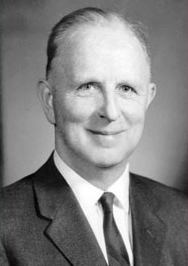
Edmund R. Tomb started his 43-year career in the Monmouth County (N.J.) YMCA. Like many other YMCA professionals, he traveled and worked at several YMCAs in his career.
He started two YMCA camps that have grown and flourished to become among the most recognized Y camps in the country: Camp Speers-Eljabar in Pennsylvania and Frost Valley YMCA in New York’s Catskill region. Tomb was also active on the national level, recruiting many YMCA volunteers who became national leaders.
He promoted the development of YMCAs in Puerto Rico, vigorously supported the growth of the YMCAs Youth and Government programs, and gave leadership to interracial activities. For the last 23 years of his career until his retirement in 1967, Tomb served as the executive of the Central Atlantic Council.

1993 INDUCTEE Edmund R. Tomb
Central Atlantic Council
Edmund R. Tomb started his 43-year career in the Monmouth County (N.J.) YMCA. Like many other YMCA professionals, he traveled and worked at several YMCAs in his career.
He started two YMCA camps that have grown and flourished to become among the most recognized Y camps in the country: Camp Speers-Eljabar in Pennsylvania and Frost Valley YMCA in New York’s Catskill region. Tomb was also active on the national level, recruiting many YMCA volunteers who became national leaders.
He promoted the development of YMCAs in Puerto Rico, vigorously supported the growth of the YMCAs Youth and Government programs, and gave leadership to interracial activities. For the last 23 years of his career until his retirement in 1967, Tomb served as the executive of the Central Atlantic Council.
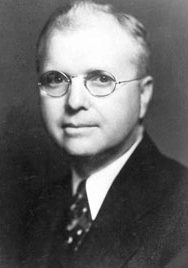
Leslie Tompkins joined the Yonkers (N.Y.) YMCA as a teenager and became employed working with the “boot blacks” and “newsboys”, the school dropouts of the 1900s. He graduated from Springfield College in 1918 shortly before entering the Army. After his military service, he joined the Maine State YMCA Committee, where he helped to found the Maine State YMCA Camp.
He served as general secretary of the Gloversville (N.Y.) and Amsterdam (N.Y.) YMCAs. He then joined the New York State YMCA Executive Committee, where he had training and support responsibilities for railroad and city associations. In 1937, he became the executive for personnel services of the National Council of YMCAs. He helped to implement a new approach to personnel policies and established a new certification system.
In 1946, he was named associate general secretary and served as executive of field services on the national staff until his retirement in 1957. He also served eight years as the executive director of the Association of Secretaries.

1995 INDUCTEE Leslie J. Tompkins
YMCA in Amsterdam
YMCA of Yonkers Inc.
National Council of YMCAs
Maine State YMCA Committee
New York State YMCA Executive Committee
Leslie Tompkins joined the Yonkers (N.Y.) YMCA as a teenager and became employed working with the “boot blacks” and “newsboys”, the school dropouts of the 1900s. He graduated from Springfield College in 1918 shortly before entering the Army. After his military service, he joined the Maine State YMCA Committee, where he helped to found the Maine State YMCA Camp.
He served as general secretary of the Gloversville (N.Y.) and Amsterdam (N.Y.) YMCAs. He then joined the New York State YMCA Executive Committee, where he had training and support responsibilities for railroad and city associations. In 1937, he became the executive for personnel services of the National Council of YMCAs. He helped to implement a new approach to personnel policies and established a new certification system.
In 1946, he was named associate general secretary and served as executive of field services on the national staff until his retirement in 1957. He also served eight years as the executive director of the Association of Secretaries.
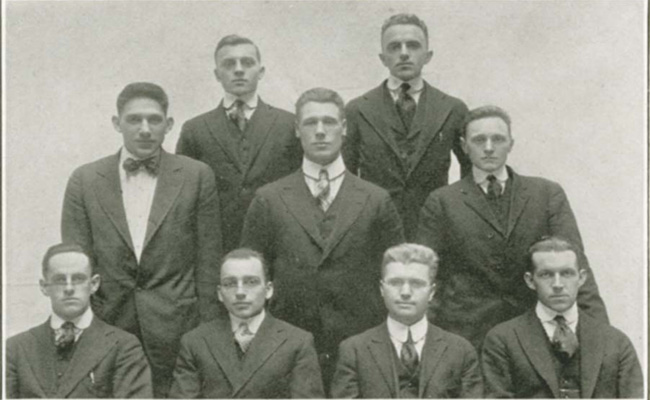
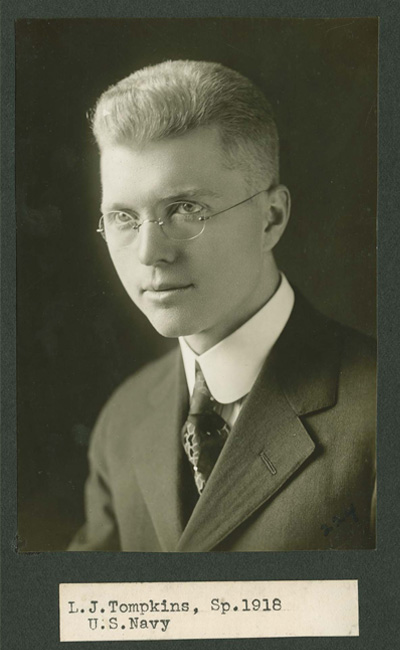
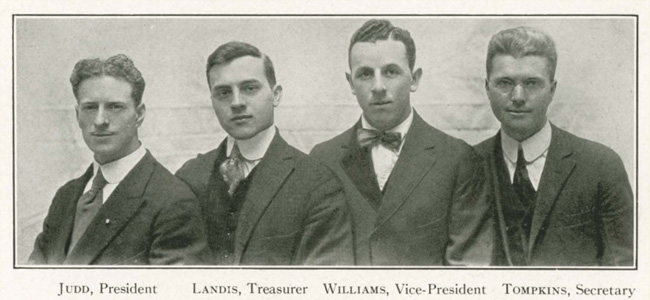
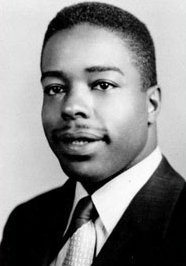
Daniel Tyler first started working with the Little Rock (Ark.) YMCA in 1945. After service in Kansas and California, he was selected to do Y work in Africa. In Liberia, he organized programs, conferences and the first international work camp.
For 13 years, he served as the general secretary of the Uganda YMCA, moving the organization from 12 members to 3,000 members, and increasing assets of $101 to $1,500,000. He also founded and organized a vocational training center and refugee project that served over 60,000 refugees in ten settlement areas. Tyler assisted YMCAs in Kenya, Uganda, Zambia, Ethiopia, and Rhodesia. From 1979-1984, he held various positions in the International Division. He was responsible for the supervision of overseas operation in Jerusalem, Italy, Spain, and other countries.
Tyler’s skills in problem solving, organizational development, financial planning, and corporate planning made an invaluable contribution to the YMCA worldwide.

1994 INDUCTEE Daniel P. Tyler
YMCA in California
YMCA in Ethiopia
YMCA in Kansas
YMCA in Kenya
YMCA in Rhodesia
YMCA in Uganda
YMCA in Zambia
YMCA of Metropolitan Little Rock
International Division
YMCA in Liberia
Daniel Tyler first started working with the Little Rock (Ark.) YMCA in 1945. After service in Kansas and California, he was selected to do Y work in Africa. In Liberia, he organized programs, conferences and the first international work camp.
For 13 years, he served as the general secretary of the Uganda YMCA, moving the organization from 12 members to 3,000 members, and increasing assets of $101 to $1,500,000. He also founded and organized a vocational training center and refugee project that served over 60,000 refugees in ten settlement areas. Tyler assisted YMCAs in Kenya, Uganda, Zambia, Ethiopia, and Rhodesia. From 1979-1984, he held various positions in the International Division. He was responsible for the supervision of overseas operation in Jerusalem, Italy, Spain, and other countries.
Tyler’s skills in problem solving, organizational development, financial planning, and corporate planning made an invaluable contribution to the YMCA worldwide.
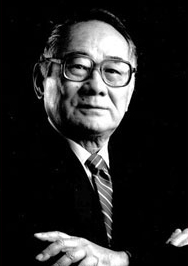
Despite growing up in an era when Japanese-Americans faced the challenges of intense discrimination, Wada grew to become a regional and national leader for humanitarian causes.
He was an editor of the University of California at Berkeley newspaper in 1940, but was unable to secure employment as a journalist after college. He was drafted into the Army’s Military Intelligence Service in 1941. After he left the Army, he took his first job with the YMCA at the University of California’s Student YMCA in 1946. He went on to program director positions in the San Francisco YMCA, and became the executive director of the Buchanan Street Y after a short tenure with the California Youth Authority.
While working in San Francisco, Wada established a bridge between Japanese-American and African-American youth. In retirement, Wada was appointed to the Board of Regents for the University of California, the first Asian regent in the board’s 109-year history.

1999 INDUCTEE Yoritada Wada (1916-1997)
University of California Student YMCA
YMCA of San Francisco
Despite growing up in an era when Japanese-Americans faced the challenges of intense discrimination, Wada grew to become a regional and national leader for humanitarian causes.
He was an editor of the University of California at Berkeley newspaper in 1940, but was unable to secure employment as a journalist after college. He was drafted into the Army’s Military Intelligence Service in 1941. After he left the Army, he took his first job with the YMCA at the University of California’s Student YMCA in 1946. He went on to program director positions in the San Francisco YMCA, and became the executive director of the Buchanan Street Y after a short tenure with the California Youth Authority.
While working in San Francisco, Wada established a bridge between Japanese-American and African-American youth. In retirement, Wada was appointed to the Board of Regents for the University of California, the first Asian regent in the board’s 109-year history.
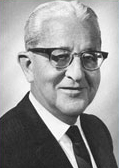
Harold Wagner started his career as the Boys’ Work director at the Long Beach (Calif.) YMCA in 1919. For 10 years, beginning in 1926, he served in several capacities with the YMCA in Los Angeles.
Wagner became the associate executive for the Pacific Southwest Area Council of YMCAs from 1936 to 1940, and then the associate general executive for the Los Angeles YMCA until 1942. He spent four years as the managing director of the San Francisco YMCA.
He returned to the YMCA of Metropolitan Los Angeles as chief executive officer for the next 20 years, until he moved on to become assistant to the president of Occidental College. Wagner was affiliated with the Pacific Camping Association, the California Conference of Social Work, and served as a trustee of George Williams College.

1987 INDUCTEE Harold A. Wagner (1900-1989)
YMCA of Greater Long Beach
Pacific Southwest Council of the YMCA
YMCA of Metropolitan Los Angeles
Harold Wagner started his career as the Boys’ Work director at the Long Beach (Calif.) YMCA in 1919. For 10 years, beginning in 1926, he served in several capacities with the YMCA in Los Angeles.
Wagner became the associate executive for the Pacific Southwest Area Council of YMCAs from 1936 to 1940, and then the associate general executive for the Los Angeles YMCA until 1942. He spent four years as the managing director of the San Francisco YMCA.
He returned to the YMCA of Metropolitan Los Angeles as chief executive officer for the next 20 years, until he moved on to become assistant to the president of Occidental College. Wagner was affiliated with the Pacific Camping Association, the California Conference of Social Work, and served as a trustee of George Williams College.
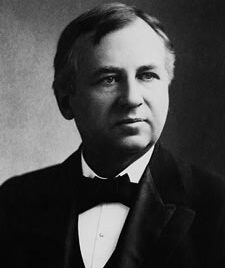
At the age of 19 John Wanamaker was hired by the Philadelphia YMCA, officially becoming the first corresponding secretary in the YMCA movement. The Y centered itself around making a conscious evangelistic effort to bring the youth to faith in Jesus Christ. John initiated daily prayer meetings at noon. He also supervised the distribution of hundreds of New Testaments, enlisted and trained more than forty young men as Sunday School teachers and secured many pledges of total abstinence.
When the Civil War began in 1861, Wanamaker helped other northern YMCA leaders who were forming the United States Christian Commission to support the enlisted men of the Union Army and Navy.
After four years with the Association, John Wanamaker decided to leave the position for a highly successful and financially rewarding career in retail. Even with his thriving businesses however, he always made time for the Y, and in 1870 John Wanamaker was elected President of the Philadelphia Association. He continued to invest in the mission of the YMCA as a result of his business success, both nationally and internationally. He never lost sight of the promise of the Y mission to influence the lives of men in society.
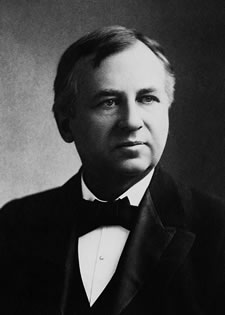
2016 INDUCTEE John Wanamaker (1838-1922)
At the age of 19 John Wanamaker was hired by the Philadelphia YMCA, officially becoming the first corresponding secretary in the YMCA movement. The Y centered itself around making a conscious evangelistic effort to bring the youth to faith in Jesus Christ. John initiated daily prayer meetings at noon. He also supervised the distribution of hundreds of New Testaments, enlisted and trained more than forty young men as Sunday School teachers and secured many pledges of total abstinence.
When the Civil War began in 1861, Wanamaker helped other northern YMCA leaders who were forming the United States Christian Commission to support the enlisted men of the Union Army and Navy.
After four years with the Association, John Wanamaker decided to leave the position for a highly successful and financially rewarding career in retail. Even with his thriving businesses however, he always made time for the Y, and in 1870 John Wanamaker was elected President of the Philadelphia Association. He continued to invest in the mission of the YMCA as a result of his business success, both nationally and internationally. He never lost sight of the promise of the Y mission to influence the lives of men in society.
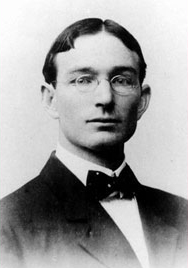
In the first decades of the 1900s, publicly addressing the social and economic problems faced by blacks in the South was uncommon. But Willis Weatherford argued that the ethics of Christianity obligated Southerners to improve race relations.
He developed strategies to educate whites and promote economic support for blacks. His determination to work for social change stemmed from his early experiences as a YMCA student secretary. Weatherford founded and served as president of the Southern YMCA College in Nashville (Tenn.). He also founded the Blue Ridge Assembly in North Carolina as a Southern YMCA training center.
His work related to race relations included the publication of five books that drew national recognition. His book, “Race Relations,” was used as a common text book in college courses following its publication in 1934. He also organized numerous conferences and meetings to bring blacks and whites together to discuss integration during a time of legally mandated segregation.

1993 INDUCTEE Willis D. Weatherford (1875-1970)
Southern YMCA College
In the first decades of the 1900s, publicly addressing the social and economic problems faced by blacks in the South was uncommon. But Willis Weatherford argued that the ethics of Christianity obligated Southerners to improve race relations.
He developed strategies to educate whites and promote economic support for blacks. His determination to work for social change stemmed from his early experiences as a YMCA student secretary. Weatherford founded and served as president of the Southern YMCA College in Nashville (Tenn.). He also founded the Blue Ridge Assembly in North Carolina as a Southern YMCA training center.
His work related to race relations included the publication of five books that drew national recognition. His book, “Race Relations,” was used as a common text book in college courses following its publication in 1934. He also organized numerous conferences and meetings to bring blacks and whites together to discuss integration during a time of legally mandated segregation.
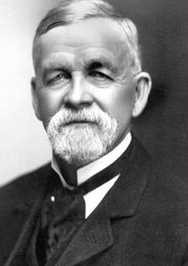
Described by his contemporaries as “the best-loved man of the brotherhood,” Robert Weidensall worked tirelessly for 37 years developing YMCAs in rural communities in the mid-to-late 1800s. Weidensall began his YMCA work after serving in the Civil War.
He laid the foundation for the great network of local and state YMCAs of the Midwest, traveling nearly 200,000 miles over 14 years. He began building YMCAs along the expanding railroads, and soon expanded his work to German-speaking young men, college students, and the men of the South. He advocated for staff training and for state YMCA committees.
He helped found both George Williams College and the organization that would become the Association of YMCA Professionals (AYP). He was described by his peers as a man of “great character, of the farmer-engineer-explorer-pioneer type…He had the gift of prophecy, combined with common sense.”

2001 INDUCTEE Robert Weidensall (1836-1922)
Described by his contemporaries as “the best-loved man of the brotherhood,” Robert Weidensall worked tirelessly for 37 years developing YMCAs in rural communities in the mid-to-late 1800s. Weidensall began his YMCA work after serving in the Civil War.
He laid the foundation for the great network of local and state YMCAs of the Midwest, traveling nearly 200,000 miles over 14 years. He began building YMCAs along the expanding railroads, and soon expanded his work to German-speaking young men, college students, and the men of the South. He advocated for staff training and for state YMCA committees.
He helped found both George Williams College and the organization that would become the Association of YMCA Professionals (AYP). He was described by his peers as a man of “great character, of the farmer-engineer-explorer-pioneer type…He had the gift of prophecy, combined with common sense.”
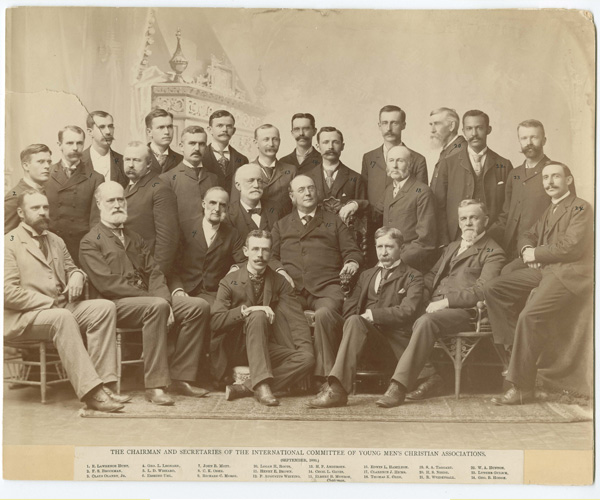
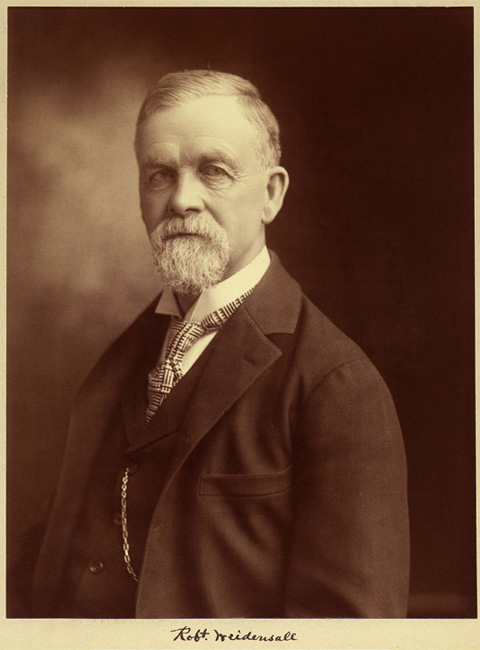
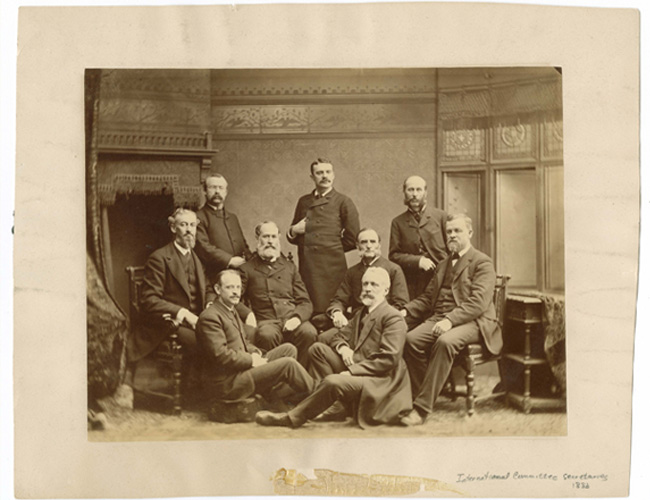
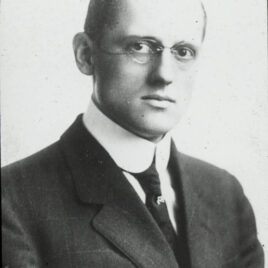
William Wesley Peter began his work with the YMCA in 1904 as the Dayton, Ohio, association vice president while a student at Northwestern. In 1910, he earned his M.D. and became a medical missionary in China. Dr. Peter joined the health division of the Chinese National YMCA in 1913. He began organizing and lecturing at national health education programs in cooperation with the China Medical Missionary Association and the National Medical Association.
While secretary with the National Committee in China, Dr. Peter organized the Typhus Commission; served as chairman of the Sanitation Board of the Chinese and Foreign Famine Relief Committee; as a member of the Huai Valley Conservation Board; as Honorary Secretary of China Central Committee; a part of the American Red Cross; and a lecturer on public health at Peking Union Medical College and St. John’s University Medical School.
Moreover, Dr. Peter also edited and founded Health Magazine, was co-author of “Famine Fever,” and has written numerous articles on phases of public health. In 1924, he was decorated by the Chinese Government and was made an Honorary Member of the Japanese Red Cross following relief work during the Japanese earthquake.
Through the Chinese National YMCA, Dr. Peter was a public health pioneer, establishing education systems and raising awareness for diseases like cholera, affecting thousands. His lectures brought forth the National Council of Health Education, which combined the principles of medical and educational organizations and the YMCA’s.
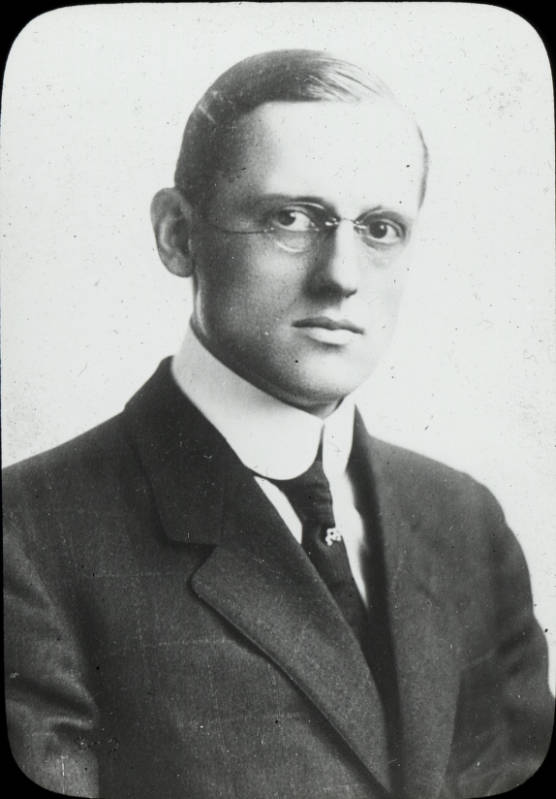
2023 INDUCTEE William Wesley Peter
William Wesley Peter began his work with the YMCA in 1904 as the Dayton, Ohio, association vice president while a student at Northwestern. In 1910, he earned his M.D. and became a medical missionary in China. Dr. Peter joined the health division of the Chinese National YMCA in 1913. He began organizing and lecturing at national health education programs in cooperation with the China Medical Missionary Association and the National Medical Association.
While secretary with the National Committee in China, Dr. Peter organized the Typhus Commission; served as chairman of the Sanitation Board of the Chinese and Foreign Famine Relief Committee; as a member of the Huai Valley Conservation Board; as Honorary Secretary of China Central Committee; a part of the American Red Cross; and a lecturer on public health at Peking Union Medical College and St. John’s University Medical School.
Moreover, Dr. Peter also edited and founded Health Magazine, was co-author of “Famine Fever,” and has written numerous articles on phases of public health. In 1924, he was decorated by the Chinese Government and was made an Honorary Member of the Japanese Red Cross following relief work during the Japanese earthquake.
Through the Chinese National YMCA, Dr. Peter was a public health pioneer, establishing education systems and raising awareness for diseases like cholera, affecting thousands. His lectures brought forth the National Council of Health Education, which combined the principles of medical and educational organizations and the YMCA’s.
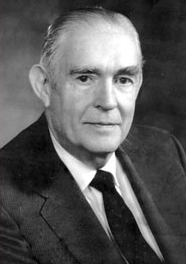
Forrest Wharry began his affiliation with the YMCA as a 14-year-old member of the Peoria (Ill.) YMCA Board of Directors. After graduating from college, he worked in the public accounting field in Peoria before his appointment in 1939 as metropolitan business secretary of the YMCA of Greater St. Louis (Mo.).
He then became the assistant general secretary and controller of the St. Louis YMCA, a position he held until 1950. Wharry then went on to serve as the associate secretary, and later as president, of the YMCA Retirement Fund.
His tenure was marked by improved benefits for YMCA personnel in both the Retirement Plan and the Savings and Security Plan. Wharry was also active in the Association of Secretaries, the predecessor of today’s Association of YMCA Professionals.

1987 INDUCTEE Forrest E. Wharry
YMCA Retirement Fund
Forrest Wharry began his affiliation with the YMCA as a 14-year-old member of the Peoria (Ill.) YMCA Board of Directors. After graduating from college, he worked in the public accounting field in Peoria before his appointment in 1939 as metropolitan business secretary of the YMCA of Greater St. Louis (Mo.).
He then became the assistant general secretary and controller of the St. Louis YMCA, a position he held until 1950. Wharry then went on to serve as the associate secretary, and later as president, of the YMCA Retirement Fund.
His tenure was marked by improved benefits for YMCA personnel in both the Retirement Plan and the Savings and Security Plan. Wharry was also active in the Association of Secretaries, the predecessor of today’s Association of YMCA Professionals.
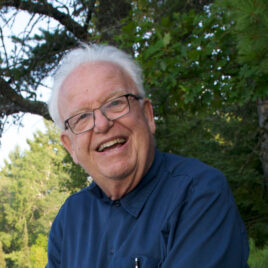
Throughout Skip Wilke’s years on the staff of the YMCA of Greater St. Paul (MN), the YMCA of Metropolitan Minneapolis, and the YMCA of Greater New York, he consistently expanded the YMCA’s influence nationally and internationally. Wilke’s historic commitment to YMCA camping led to him becoming one of the most recognized and respected camping leaders in the YMCA Movement, including participation or leadership in the YMCA Mid America Camp Conference (MACC) for 48 consecutive years. Wilke was instrumental in strengthening Minnesota’s Youth in Government program throughout the 1970s, setting the stage to build young leaders who continue to serve the Y. During the 1980s, he set off on an extended international journey to visit YMCAs throughout Europe, Asia, and the Middle East, developing personal relationships with international YMCA leaders that heightened his effectiveness in support of YMCA international relations and programs. As a volunteer, Wilke made his most significant mark supporting YMCA camping, international work, and youth programs with his time, wisdom, humor, and generous financial contributions.
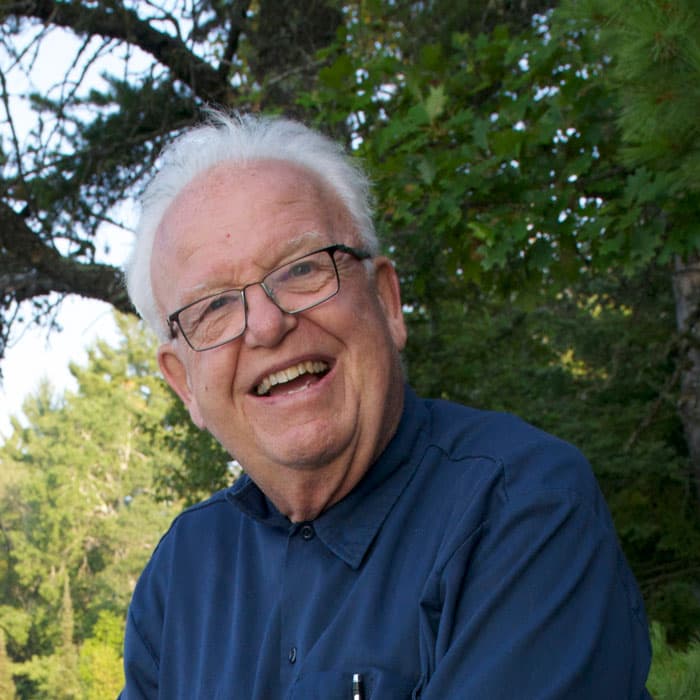
2019 INDUCTEE Robert “Skip” Wilke (1938-2017)
YMCA of Greater New York
YMCA of Greater St. Paul
Throughout Skip Wilke’s years on the staff of the YMCA of Greater St. Paul (MN), the YMCA of Metropolitan Minneapolis, and the YMCA of Greater New York, he consistently expanded the YMCA’s influence nationally and internationally. Wilke’s historic commitment to YMCA camping led to him becoming one of the most recognized and respected camping leaders in the YMCA Movement, including participation or leadership in the YMCA Mid America Camp Conference (MACC) for 48 consecutive years. Wilke was instrumental in strengthening Minnesota’s Youth in Government program throughout the 1970s, setting the stage to build young leaders who continue to serve the Y. During the 1980s, he set off on an extended international journey to visit YMCAs throughout Europe, Asia, and the Middle East, developing personal relationships with international YMCA leaders that heightened his effectiveness in support of YMCA international relations and programs. As a volunteer, Wilke made his most significant mark supporting YMCA camping, international work, and youth programs with his time, wisdom, humor, and generous financial contributions.
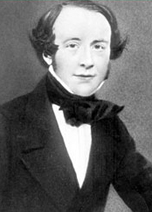
Raised in the rural countryside of England, George Williams was drawn to London as a young man during the Industrial Revolution. He worked long hours in a city store, living in small, crowded rooms in the same building.
The moral conditions of the inner city were incompatible with Williams’ evangelical Christian outlook. He organized a series of prayer meetings and Bible classes for 11 of his colleagues. These simple meetings formed the basis of the Young Men’s Christian Association. Williams grew to be a prominent businessman in London. He maintained a lifelong affiliation with the rapidly-spreading association, providing influence and financial support.
In recognition of his contribution to English society and the world, Williams was knighted by Queen Victoria in 1894. After his death in 1905, he was commemorated by a stained-glass window in the nave of Westminster Abbey. Sir George Williams is buried in St. Paul’s Cathedral.

1990 INDUCTEE Sir George Williams (1821-1905)
Raised in the rural countryside of England, George Williams was drawn to London as a young man during the Industrial Revolution. He worked long hours in a city store, living in small, crowded rooms in the same building.
The moral conditions of the inner city were incompatible with Williams’ evangelical Christian outlook. He organized a series of prayer meetings and Bible classes for 11 of his colleagues. These simple meetings formed the basis of the Young Men’s Christian Association. Williams grew to be a prominent businessman in London. He maintained a lifelong affiliation with the rapidly-spreading association, providing influence and financial support.
In recognition of his contribution to English society and the world, Williams was knighted by Queen Victoria in 1894. After his death in 1905, he was commemorated by a stained-glass window in the nave of Westminster Abbey. Sir George Williams is buried in St. Paul’s Cathedral.
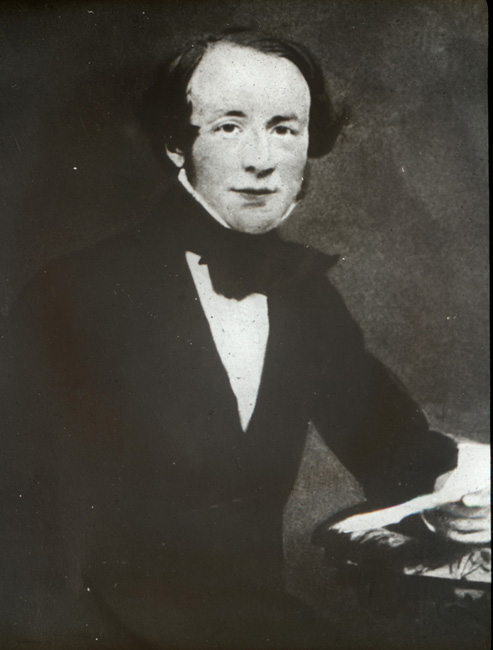
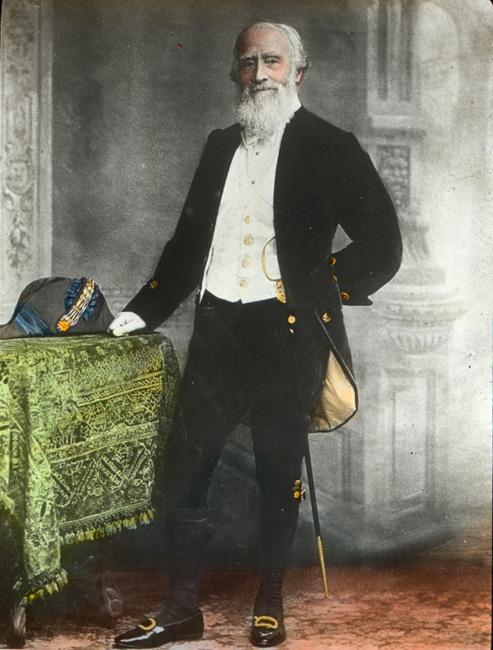
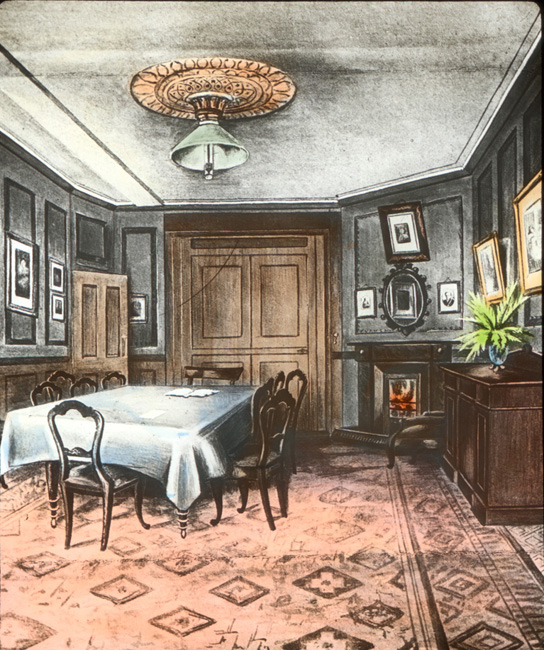
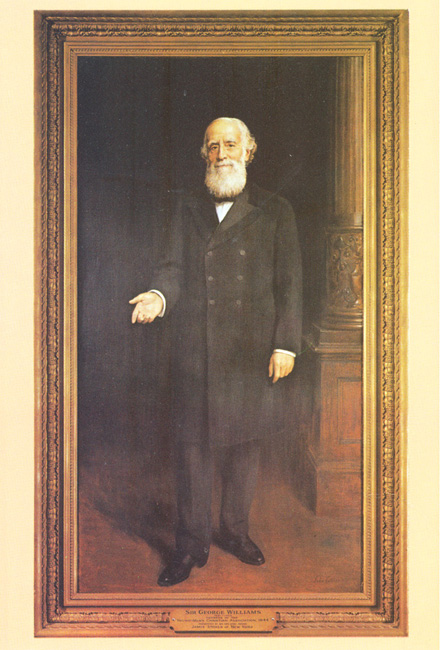
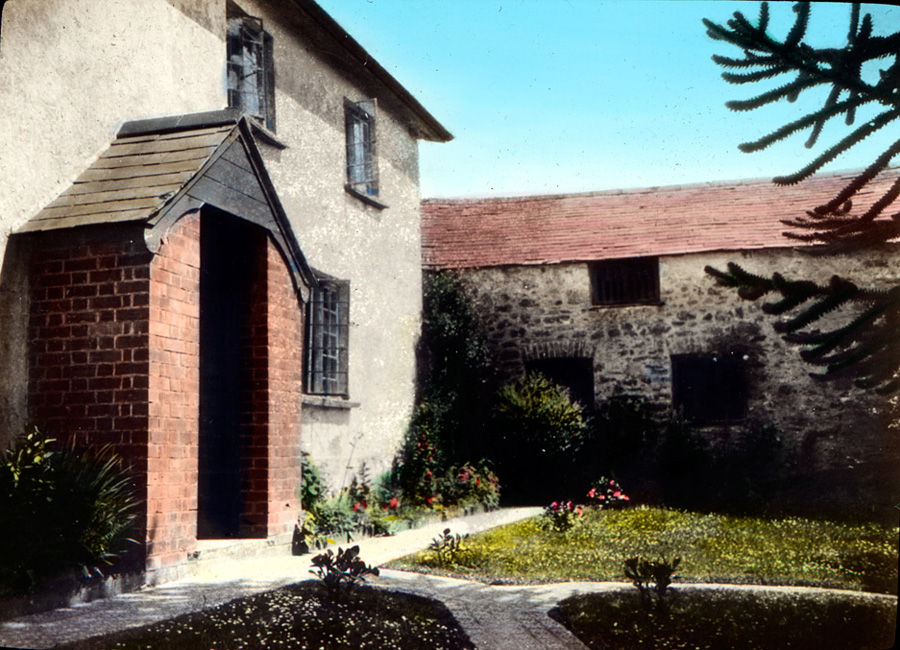
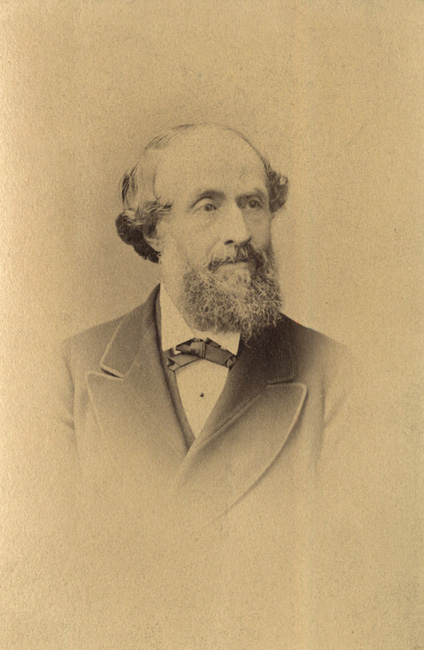
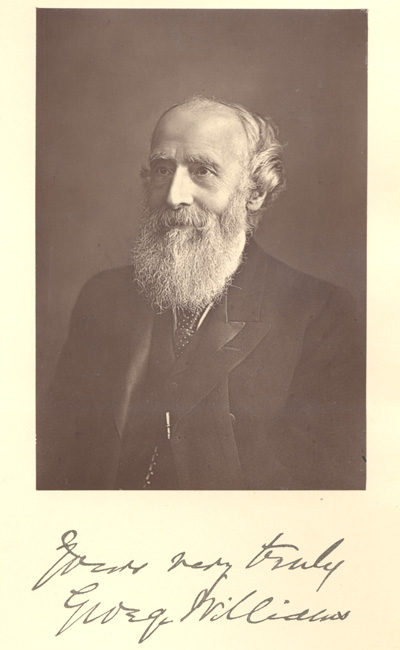
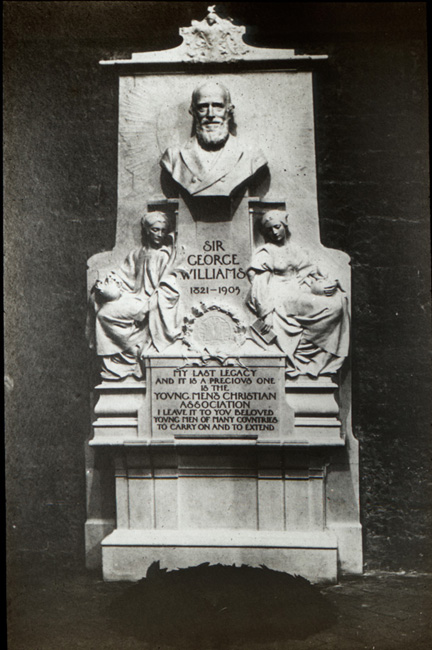
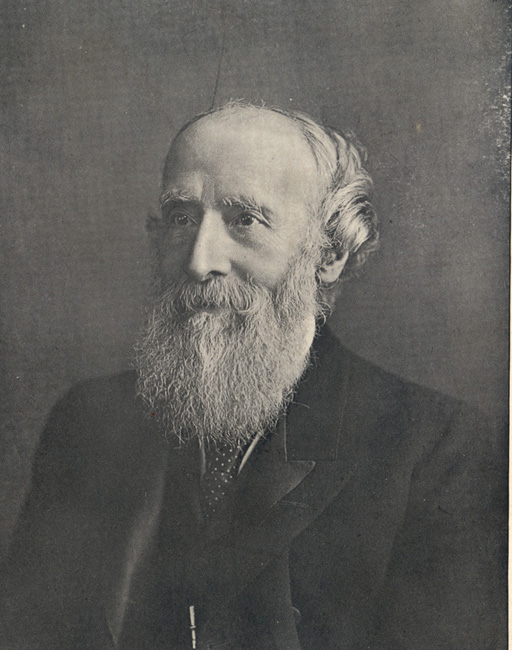
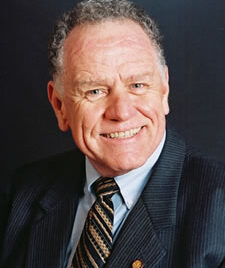
As Director of the Philadelphia MRC Len launched several major initiatives including the Delaware Valley Marketing Co-Op which involved all the YMCAs in the MRC with planned membership campaigns and membership trainings.
Len developed several new initiatives as the East Field Executive including yearly multi-day CEO/CVO Institutes, Board Assessments, Member Service rating process, and continued the Marketing Co-Op that he initiated in Philadelphia. Len was able to bring together the MRCs and the East Field, which was not done anywhere else in the country. The East Field went from having the highest number of “troubled YMCAs” in the country to having the lowest. His initiative of pooled resources, his strategic plan, and his focus made the entire East Field organization most successful.
While leading the Jerusalem YMCA during a difficult time after 9/11 and during the 2nd Gulf War he was able to bring the first USAID grant to the Jerusalem International YMCA (JIY). This meant JIY could continue services working with Palestinian and Israeli teens as well as running programs in some troubled northern Israeli Arab communities. He believed the good in people’s hearts would always come through. Len embodies the spirit of the YMCA, showing a concern and love for all.
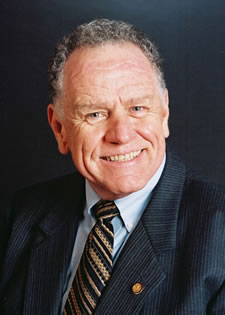
2016 INDUCTEE Len Wilson
Philadelphia MRC
As Director of the Philadelphia MRC Len launched several major initiatives including the Delaware Valley Marketing Co-Op which involved all the YMCAs in the MRC with planned membership campaigns and membership trainings.
Len developed several new initiatives as the East Field Executive including yearly multi-day CEO/CVO Institutes, Board Assessments, Member Service rating process, and continued the Marketing Co-Op that he initiated in Philadelphia. Len was able to bring together the MRCs and the East Field, which was not done anywhere else in the country. The East Field went from having the highest number of “troubled YMCAs” in the country to having the lowest. His initiative of pooled resources, his strategic plan, and his focus made the entire East Field organization most successful.
While leading the Jerusalem YMCA during a difficult time after 9/11 and during the 2nd Gulf War he was able to bring the first USAID grant to the Jerusalem International YMCA (JIY). This meant JIY could continue services working with Palestinian and Israeli teens as well as running programs in some troubled northern Israeli Arab communities. He believed the good in people’s hearts would always come through. Len embodies the spirit of the YMCA, showing a concern and love for all.
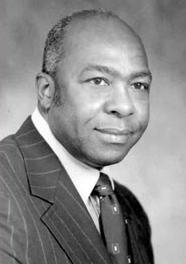
Robert Wilson was an outstanding basketball player at West Virginia State College, and after graduation, played for the Harlem Globetrotters, Chicago Stags, and Tri-City Blackhawks. He was one of the first men to break the NBA color barrier.
After his basketball career, he became a teacher in North Carolina. In 1955, he accepted his first YMCA position as the youth director in the Milwaukee association. While there, he developed the first Hi-Y and Tri-Hi-Y training for YMCAs, as well as innovative outreach programs. He also served YMCAs in Dayton (Ohio) and Detroit (Mich.). Wilson became the chief executive officer of the YMWCA of Newark (N.J.) in 1970, the first African-American to lead a metropolitan YMCA.
Under his leadership, the Y gained solid financial footing while expanding its inner-city child care center and youth programs. In 1978, he joined the national staff as regional associate executive for the Northeast region, and later became the Management Resource Center (MRC) director for the YMCA of Greater New York. In 1989, he was appointed executive vice president of the YMCA Retirement Fund. Wilson was awarded the Brotherhood Award from the National Conference of Christians and Jews, and was inducted into the Sports Halls of Fame at the Harlem (N.Y.) YMCA and West Virginia State College.

1998 INDUCTEE Robert W. Wilson, Jr.
YMCA of Greater Dayton
YMCA of Greater New York
YMCA of Metropolitan Detroit
YMCA of Metropolitan Milwaukee Inc.
Robert Wilson was an outstanding basketball player at West Virginia State College, and after graduation, played for the Harlem Globetrotters, Chicago Stags, and Tri-City Blackhawks. He was one of the first men to break the NBA color barrier.
After his basketball career, he became a teacher in North Carolina. In 1955, he accepted his first YMCA position as the youth director in the Milwaukee association. While there, he developed the first Hi-Y and Tri-Hi-Y training for YMCAs, as well as innovative outreach programs. He also served YMCAs in Dayton (Ohio) and Detroit (Mich.). Wilson became the chief executive officer of the YMWCA of Newark (N.J.) in 1970, the first African-American to lead a metropolitan YMCA.
Under his leadership, the Y gained solid financial footing while expanding its inner-city child care center and youth programs. In 1978, he joined the national staff as regional associate executive for the Northeast region, and later became the Management Resource Center (MRC) director for the YMCA of Greater New York. In 1989, he was appointed executive vice president of the YMCA Retirement Fund. Wilson was awarded the Brotherhood Award from the National Conference of Christians and Jews, and was inducted into the Sports Halls of Fame at the Harlem (N.Y.) YMCA and West Virginia State College.
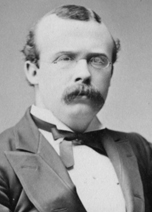
Luther D. Wishard (1854-1925), the first YMCA student secretary, formed campus associations in the USA—including one at the divinity school at Vanderbilt University, the first YMCA at a theological school—and saw the campus YMCA movement grow explosively. Under his leadership, there were 345 student associations with more than 22,000 members by 1891. A devout Christian, Wishard thought of his YMCA work as a kind of evangelism, spreading both Christianity and the principles of the YMCA. As the American YMCA movement spread to other countries, Wishard convinced some of those early YMCA missionaries to transplant the student YMCA concept to the lands in which they were working. In 1884, the first student YMCA outside North America was established at Jaffna College in Ceylon. By 1887, student YMCAs had been created in Japan, China, India, Syria, and Turkey. Wishard’s astonishing contributions to the movement are historic. He took a “world tour of missions” to promote the student movement (with financial assistant from John Wanamaker), during which he helped establish a university YMCA in Tokyo. He later served as the first secretary of foreign work for the International Committee. And with all of that, Wishard still found the time, energy, and backing to create the YMCA center on Lake George at Silver Bay, N.Y., still a distinguished and active YMCA conference center.

2013 INDUCTEE Luther D. Wishard (1854-1925)
YMCA Campus Associations Founder
International Student YMCAs
Silver Bay YMCA
Luther D. Wishard (1854-1925), the first YMCA student secretary, formed campus associations in the USA—including one at the divinity school at Vanderbilt University, the first YMCA at a theological school—and saw the campus YMCA movement grow explosively. Under his leadership, there were 345 student associations with more than 22,000 members by 1891. A devout Christian, Wishard thought of his YMCA work as a kind of evangelism, spreading both Christianity and the principles of the YMCA. As the American YMCA movement spread to other countries, Wishard convinced some of those early YMCA missionaries to transplant the student YMCA concept to the lands in which they were working. In 1884, the first student YMCA outside North America was established at Jaffna College in Ceylon. By 1887, student YMCAs had been created in Japan, China, India, Syria, and Turkey. Wishard’s astonishing contributions to the movement are historic. He took a “world tour of missions” to promote the student movement (with financial assistant from John Wanamaker), during which he helped establish a university YMCA in Tokyo. He later served as the first secretary of foreign work for the International Committee. And with all of that, Wishard still found the time, energy, and backing to create the YMCA center on Lake George at Silver Bay, N.Y., still a distinguished and active YMCA conference center.
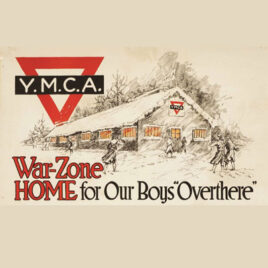
The YMCA: From 1914 to 1918, the conflict that would come to be known as the First World War ensnared 28 nations with a total population of 1.5 billion, or 90% of the world’s known populace. Fifty-nine million men fought in World War I, resulting in 7.7 million deaths and 18.6 million injuries. By the time America entered the war in 1917, it was clear that World War I would be remembered as a great humanitarian crisis. Before the United states joined the battle, the YMCA leveraged America’s status as a neutral nation, providing relief to prisoners of war on both sides of the conflict. During this period, 65 YMCA secretaries worked with prisoners of war in Great Britain, France, Italy, Serbia, Austria, Germany, Russia, Bulgaria, and Romania. Serving over five million detainees through morale-building activities and the provision of equipment, the YMCA’s work ensured that war prisoners received both humane treatment and mental welfare. The ability of the YMCA to engage in this work speaks volumes to its credibility, and the value world leaders placed upon the Movement. On April 6, 1917 President Wilson declared that the United States would join the Allied Forces, officially beginning America’s involvement in the war. Immediately, the YMCA pledged its support. Expanding upon its legacy of service during previous conflicts, the YMCA was asked to take on nearly all human service activities for the U.S. military. Over the next two years, the YMCA dispatched 25,926 men and women to minister to the mental, spiritual, and physical needs of the Allied Forces in what former President William Howard Taft called “one of the greatest achievements of peace in all the history of human warfare.”
The Work: Selecting from approximately 200,000 applications, the YMCA divided the workers between home and overseas assignments. Women workers comprised 20% of the total, with twice as many serving overseas as on the home front. Drawing upon its expertise in mental, spiritual, and physical development, the YMCA brought the full suite of its programs to bear in the war effort. Educators offered literacy and English instruction as well as courses on a wide variety of topics. Ministers provided spiritual guidance and conducted religious services. General Pershing, commander of the American Expeditionary Forces, specifically asked the YMCA to organize athletic activities to help make the troops “fit to fight.” In addition to its personnel, the YMCA also organized 1,470 entertainers to be sent overseas to perform for troops. It conducted this work through 26 leave centers in France, 4,000 “huts” and tents, and 1,500 canteens and post exchanges. The Y funded this work through the United War Work Campaign, which raised $192,000,000.
The Aftermath of War: After the war, the YMCA organized the Inter-Allied Games. About 1,500 athletes representing 18 nations participated. The YMCA paid for the design and construction of Pershing Stadium, the French donated the land, and American troops built the facility. YMCA personnel received 319 citations and decorations, including the French Legion d’Honneur, the Order of the British Empire, the Distinguished Service Cross, and the Distinguished Service Medal. Sadly, six men and two women working under the YMCA banner were killed in action. WWI marked a turning point for the YMCA. The success of its work validated its approach to holistic development in addition to introducing the YMCA to millions of individuals who benefited from its programs for the first time. We remember and recognize these extraordinary individuals who exemplify the YMCA cause.
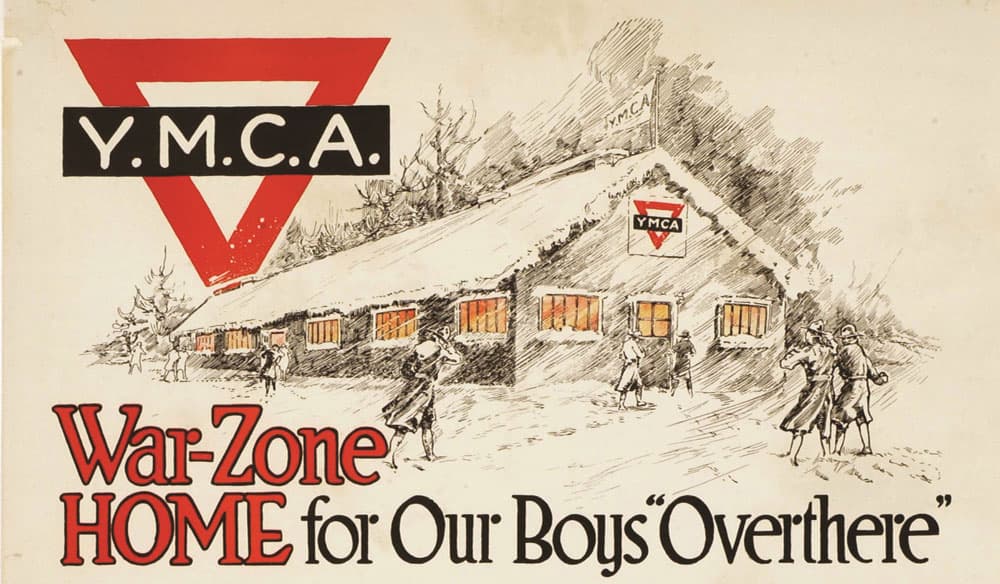
2019 INDUCTEE World War I Staff and Volunteers
The YMCA: From 1914 to 1918, the conflict that would come to be known as the First World War ensnared 28 nations with a total population of 1.5 billion, or 90% of the world’s known populace. Fifty-nine million men fought in World War I, resulting in 7.7 million deaths and 18.6 million injuries. By the time America entered the war in 1917, it was clear that World War I would be remembered as a great humanitarian crisis. Before the United states joined the battle, the YMCA leveraged America’s status as a neutral nation, providing relief to prisoners of war on both sides of the conflict. During this period, 65 YMCA secretaries worked with prisoners of war in Great Britain, France, Italy, Serbia, Austria, Germany, Russia, Bulgaria, and Romania. Serving over five million detainees through morale-building activities and the provision of equipment, the YMCA’s work ensured that war prisoners received both humane treatment and mental welfare. The ability of the YMCA to engage in this work speaks volumes to its credibility, and the value world leaders placed upon the Movement. On April 6, 1917 President Wilson declared that the United States would join the Allied Forces, officially beginning America’s involvement in the war. Immediately, the YMCA pledged its support. Expanding upon its legacy of service during previous conflicts, the YMCA was asked to take on nearly all human service activities for the U.S. military. Over the next two years, the YMCA dispatched 25,926 men and women to minister to the mental, spiritual, and physical needs of the Allied Forces in what former President William Howard Taft called “one of the greatest achievements of peace in all the history of human warfare.”
The Work: Selecting from approximately 200,000 applications, the YMCA divided the workers between home and overseas assignments. Women workers comprised 20% of the total, with twice as many serving overseas as on the home front. Drawing upon its expertise in mental, spiritual, and physical development, the YMCA brought the full suite of its programs to bear in the war effort. Educators offered literacy and English instruction as well as courses on a wide variety of topics. Ministers provided spiritual guidance and conducted religious services. General Pershing, commander of the American Expeditionary Forces, specifically asked the YMCA to organize athletic activities to help make the troops “fit to fight.” In addition to its personnel, the YMCA also organized 1,470 entertainers to be sent overseas to perform for troops. It conducted this work through 26 leave centers in France, 4,000 “huts” and tents, and 1,500 canteens and post exchanges. The Y funded this work through the United War Work Campaign, which raised $192,000,000.
The Aftermath of War: After the war, the YMCA organized the Inter-Allied Games. About 1,500 athletes representing 18 nations participated. The YMCA paid for the design and construction of Pershing Stadium, the French donated the land, and American troops built the facility. YMCA personnel received 319 citations and decorations, including the French Legion d’Honneur, the Order of the British Empire, the Distinguished Service Cross, and the Distinguished Service Medal. Sadly, six men and two women working under the YMCA banner were killed in action. WWI marked a turning point for the YMCA. The success of its work validated its approach to holistic development in addition to introducing the YMCA to millions of individuals who benefited from its programs for the first time. We remember and recognize these extraordinary individuals who exemplify the YMCA cause.
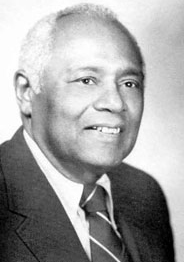
Walter F. Worrill began his YMCA career at the Pasadena (Calif.) association. He was a well-known leader of a multiracial group promoting integration and was secretary of the local National Association for the Advancement of Colored People (NAACP), before accepting a position in the Chicago (Ill.) YMCA in 1950.
For 21 years, he served as the community boys’ secretary, and later as executive director of the Wabash Avenue Branch, one of Chicago’s most important African-American social institutions that provided housing and services to recent Southern migrants.
He advanced to increasingly responsible positions in the Chicago association before becoming the executive director of the Middle Atlantic region on the National Council of YMCAs in 1971, a position he held until he retired in 1980. He served as chairman of the Illinois-Indiana Chapter of the YMCA Association of Professional Directors (APD). He continued his involvement with the YMCA after retirement as a board member of the Upper Main Line YMCA in Pennsylvania.

1988 INDUCTEE Walter F. Worrill (1914-2013)
Wabash Avenue Branch
YMCA of Metropolitan Chicago
National Council of YMCAs
Walter F. Worrill began his YMCA career at the Pasadena (Calif.) association. He was a well-known leader of a multiracial group promoting integration and was secretary of the local National Association for the Advancement of Colored People (NAACP), before accepting a position in the Chicago (Ill.) YMCA in 1950.
For 21 years, he served as the community boys’ secretary, and later as executive director of the Wabash Avenue Branch, one of Chicago’s most important African-American social institutions that provided housing and services to recent Southern migrants.
He advanced to increasingly responsible positions in the Chicago association before becoming the executive director of the Middle Atlantic region on the National Council of YMCAs in 1971, a position he held until he retired in 1980. He served as chairman of the Illinois-Indiana Chapter of the YMCA Association of Professional Directors (APD). He continued his involvement with the YMCA after retirement as a board member of the Upper Main Line YMCA in Pennsylvania.
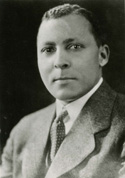
Beginning as a student secretary while in college, Max Yergan worked to promote the YMCA movement at colleges in the Southwest. After graduating, he became a teacher in Raleigh, N.C., but reconvened his YMCA work as a war work secretary in 1916. He spent two years accompanying the Indian Troops in Dar-Es-Salaam, German East Africa, and then went to France to work with the African-American units of the Expeditionary Army.
After the war, he returned to the United States and was ordained a minister. In 1921, he set out for South Africa to develop a YMCA for black South Africans. A fierce advocate for the rights of black South Africans, Yergan lectured before the white Student Christian Associations in South Africa on the inclusive nature of the Kingdom of God, forcing them to re-examine the racial conditions of their country. Yergan’s work got a boost when John D. Rockefeller Jr., donated $25,000 toward the construction of a YMCA building, which Yergan called the South African Training Center.
In 1936, he returned to the United States and became the first teacher of African-American studies at City College of New York. Yergan was a controversial activist whose politics, over the years, shifted from communist to anti-communist, but his pioneering YMCA work in South Africa stands as his monumental legacy.

2010 INDUCTEE Max Yergan (1892-1975)
Beginning as a student secretary while in college, Max Yergan worked to promote the YMCA movement at colleges in the Southwest. After graduating, he became a teacher in Raleigh, N.C., but reconvened his YMCA work as a war work secretary in 1916. He spent two years accompanying the Indian Troops in Dar-Es-Salaam, German East Africa, and then went to France to work with the African-American units of the Expeditionary Army.
After the war, he returned to the United States and was ordained a minister. In 1921, he set out for South Africa to develop a YMCA for black South Africans. A fierce advocate for the rights of black South Africans, Yergan lectured before the white Student Christian Associations in South Africa on the inclusive nature of the Kingdom of God, forcing them to re-examine the racial conditions of their country. Yergan’s work got a boost when John D. Rockefeller Jr., donated $25,000 toward the construction of a YMCA building, which Yergan called the South African Training Center.
In 1936, he returned to the United States and became the first teacher of African-American studies at City College of New York. Yergan was a controversial activist whose politics, over the years, shifted from communist to anti-communist, but his pioneering YMCA work in South Africa stands as his monumental legacy.
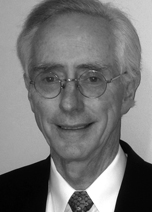
Peter D. Ziegler is one of two volunteers being inducted in the class of 2013, the first official recognition of volunteers within the history of the YMCA Hall of Fame. While being an active and passionate volunteer for his home YMCA, the Kettle Moraine YMCA in West Bend, Wis., Ziegler will be remembered for his tireless work as a volunteer with the board of trustees of the YMCA Retirement Fund. Joining the board at time of the 9/11 attack on New York City, Ziegler provided prudent counsel and support during recovery as financial markets responded in unprecedented ways. What he will be remembered for the most will be his leadership of the YMCA Retirement Fund when, during his tenure as chairman, new regulations proposed in Washington threatened the unique status of the YMCA Retirement Plan. Under Ziegler’s leadership, with full support of all of the trustees, in partnership with Fund CEO John Preis, a national public policy campaign was initiated that resulted in one of the largest engagement of local YMCA leadership to mobilize support in every Congressional Office on the Hill in support of special legislation to preserve the historical status of the fund. Ziegler’s credibility before Congress was strengthened immeasurably not only as volunteer chair of the YMCA Retirement Fund board, but also for being active on his local board of directors as chair of the Kettle Moraine YMCA. Ziegler’s national leadership as chair of the YMCA Retirement Fund enabled them to secure the full value of the fund in perpetuity by the unanimous vote of Congress. The initiative resulted in the signed approval by the President of the United States of America, George W. Bush. Perseverance and continuity of investment policy with Ziegler’s influence helped the fund to recover from the impact of the Great Recession. Lessons learned from 9/11 helped the fund improve off site redundancy systems resulting in absolute seamless operations despite the devastation and power losses caused by Hurricane Sandy, during Ziegler’s final year of service on the board of trustees. Read Peter D. Ziegler’s extended biography.

2013 INDUCTEE Peter D. Ziegler
YMCA Retirement Fund
Peter D. Ziegler is one of two volunteers being inducted in the class of 2013, the first official recognition of volunteers within the history of the YMCA Hall of Fame. While being an active and passionate volunteer for his home YMCA, the Kettle Moraine YMCA in West Bend, Wis., Ziegler will be remembered for his tireless work as a volunteer with the board of trustees of the YMCA Retirement Fund. Joining the board at time of the 9/11 attack on New York City, Ziegler provided prudent counsel and support during recovery as financial markets responded in unprecedented ways. What he will be remembered for the most will be his leadership of the YMCA Retirement Fund when, during his tenure as chairman, new regulations proposed in Washington threatened the unique status of the YMCA Retirement Plan. Under Ziegler’s leadership, with full support of all of the trustees, in partnership with Fund CEO John Preis, a national public policy campaign was initiated that resulted in one of the largest engagement of local YMCA leadership to mobilize support in every Congressional Office on the Hill in support of special legislation to preserve the historical status of the fund. Ziegler’s credibility before Congress was strengthened immeasurably not only as volunteer chair of the YMCA Retirement Fund board, but also for being active on his local board of directors as chair of the Kettle Moraine YMCA. Ziegler’s national leadership as chair of the YMCA Retirement Fund enabled them to secure the full value of the fund in perpetuity by the unanimous vote of Congress. The initiative resulted in the signed approval by the President of the United States of America, George W. Bush. Perseverance and continuity of investment policy with Ziegler’s influence helped the fund to recover from the impact of the Great Recession. Lessons learned from 9/11 helped the fund improve off site redundancy systems resulting in absolute seamless operations despite the devastation and power losses caused by Hurricane Sandy, during Ziegler’s final year of service on the board of trustees. Read Peter D. Ziegler’s extended biography.